2024 LEARNING AND TEACHING REPORT
1

1
CPUT Learning and Teaching Report 2024
2
Faculty-based learning and Teaching
3
Learning and Teaching: Fundani Centre for Higher Education Development (CHED)
4
Holistic student support and Initiatives towards student success

Prof Rishidaw Balkaran
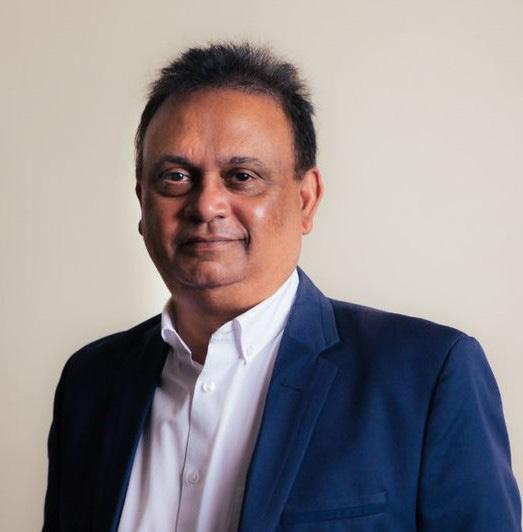
The 2024 academic year stands as a powerful testament to what can be achieved when a university community is united by a shared vision and guided by a deep sense of purpose. It has been a year of resilience and renewal, in which we have celebrated remarkable successes while also confronting the challenges and opportunities that define the current higher education landscape. What has been most inspiring is the way our staff, students, and partners have collectively embodied the spirit of Creating Futures, demonstrating in tangible ways that Vision 2030 is not simply a strategy on paper, but a living and evolving practice shaping the daily life of our institution. Across our campuses, teaching and learning has continued to transform in ways that are both innovative and inclusive. We have seen the steady strengthening of curricula, the embedding of workintegrated learning and community engagement, and the introduction of new pedagogical approaches that speak to the realities of the world our graduates are entering. This year has reinforced that learning at our university is not static. It is a dynamic, relational, and future-oriented endeavour that extends far beyond the classroom. Our graduates are not only prepared for careers, but are equipped to become ethical, critical, and socially responsive contributors to society.
The principle of Oneness, one of the pillars of Vision 2030, has been particularly evident in how we have sought to ensure belonging, inclusivity, and social justice in all our academic projects. We have strengthened multilingual pedagogies that affirm the linguistic and cultural diversity of our students. We have celebrated the value of indigenous knowledge alongside scientific innovation, ensuring that our work is not divorced from the lived experiences of our communities. We have also deepened student–staff partnerships, recognising that students are not passive recipients of knowledge, but active co-creators of learning. These efforts remind us that true excellence in higher education is only possible when multiple voices, identities, and perspectives are valued and heard. At the same time, the principle of Smartness has guided our embrace of technology, innovation, and digital transformation. The accelerated use of learning analytics has given us deeper insights into the student experience, enabling more proactive interventions to support success and progression. Digital tools have been harnessed to create interactive, engaging learning environments, while professional development initiatives have strengthened the capacity of our staff to teach in technology-rich contexts. By investing in these innovations, we are ensuring that our graduates leave us not only with disciplinary expertise but also with the digital literacies and adaptive skills required to navigate the complex world of work.
No reflection on 2024 would be complete without addressing the rapid rise of Artificial Intelligence (AI). For many, AI has been viewed primarily through the lens of risk, particularly in relation to academic integrity and assessment. Yet we have chosen to see AI not as a threat, but as an opportunity to reimagine learning. This year, our university developed an AI Practice Guide for students, hosted workshops to build staff and student capacity, and introduced faculty-level AI portals with shared prompt libraries. These interventions reflect our decision to enable ethical and creative use of AI, rather than attempt to police it out of existence. We are clear that our responsibility is to prepare students for a world where AI will be ever-present, helping them to use these tools critically, responsibly, and imaginatively. In doing so, we are shaping graduates who can thrive in an AI-infused workplace and society. A key enabler of much of this progress has been the University Capacity Development Grant (UCDG). The UCDG has allowed us to invest meaningfully in staff development, curriculum renewal, and student support. It has provided pathways for early-career academics to grow in their roles, supported the professionalisation of teaching, and strengthened extended curriculum programmes that are vital to widening access and success. Through this grant, we have been able to sustain the scholarship of teaching and learning, advance multilingual pedagogies, and embed capacity-building initiatives that will endure well beyond the lifespan of the funding. It is no exaggeration to say that the UCDG has been a catalyst for transformation, enabling us to act with both agility and foresight.
What emerges most clearly from this year is that our university is living its Vision 2030 mandate in practice. Oneness has been realised in the way we continue to promote inclusivity, belonging, and shared humanity, drawing on the values of ubuntu to shape our educational mission. Smartness has been made visible in our responsiveness to technological change, our embrace of innovation, and our commitment to building a university that is future-focused and globally connected. Together, these two principles anchor our work and remind us that transformation is both an intellectual and a moral project.
As we turn toward 2025, we do so with a sense of momentum and possibility. The foundations built during 2024, through innovation in pedagogy, the responsible integration of AI, and the strengthening of staff and student capacities, provide a strong platform for the year ahead. In 2025, our focus will be on deepening the gains we have made, advancing curriculum renewal across all fields, and widening access to success for every student who entrusts us with their education. Guided by Vision 2030, we will continue to shape a university that is inclusive, smart, and socially just, an institution that not only responds to the challenges of our time but also helps to define the future of higher education in South Africa and beyond.
Prof. R. Balkaran Deputy Vice-Chancellor: Learning and Teaching
van die
Leer en Onderrig
Die 2024-akademiese jaar staan as ’n kragtige getuienis van wat bereik kan word wanneer ’n universiteitsgemeenskap verenig is deur ’n gedeelde visie en gelei word deur ’n diep sin vir doelgerigtheid. Dit was ’n jaar van veerkragtigheid en vernuwing waarin ons merkwaardige suksesse gevier het terwyl ons ook die uitdagings en geleenthede, wat die huidige hoër onderwyslandskap kenmerk, die hoof gebied het. Wat die meeste inspirasie gebring het, is die manier waarop ons personeel, studente en vennote kollektief die gees van Creating Futures beliggaam het, en op tasbare wyses getoon het dat Visie 2030 nie bloot ’n strategie op papier is nie, maar ’n lewende en ontwikkelende praktyk wat die daaglikse lewe van ons instelling vorm.
Regoor ons kampusse het leer en onderrig voortgegaan om te transformeer op maniere wat beide innoverend en inklusief is. Ons het die bestendige versterking van kurrikula gesien, die inbedding van werk-geïntegreerde leer en gemeenskapsbetrokkenheid, asook die bekendstelling van nuwe pedagogiese benaderings wat spreek tot die werklikhede van die wêreld waarin ons graduandi hulle bevind. Hierdie jaar het bevestig dat leer aan ons universiteit nie staties is nie.
Dit is ’n dinamiese, relasionele en toekomsgerigte strewe wat ver buite die klaskamer strek. Ons graduandi word nie net voorberei vir loopbane nie, maar word toegerus om etiese, kritiese en sosiaal-responsiewe bydraers tot die samelewing te wees.
Die beginsel van Eenheid, een van die pilare van Visie 2030, was besonder sigbaar in hoe ons gestreef het na samehorigheid , inklusiwiteit en sosiale geregtigheid in al ons akademiese projekte. Ons het meertalige pedagogieë versterk wat die linguistiese en kulturele diversiteit van ons studente bevestig. Ons het die waarde van inheemse kennis gevier tesame met wetenskaplike innovasie, en so verseker dat ons werk nie losstaan van die lewenswerklikhede van ons gemeenskappe nie. Ons het ook student-personeel vennootskappe verdiep en erken dat studente nie passiewe ontvangers van kennis is nie, maar aktiewe medeskeppers van leer. Hierdie pogings herinner ons daaraan dat ware uitnemendheid in hoër onderwys slegs moontlik is wanneer veelvuldige stemme, identiteite en perspektiewe waardeer en gehoor word. Terselfdertyd het die beginsel van Wysheid ons omhelsing van tegnologie, innovasie en digitale transformasie gelei. Die versnelde gebruik van leeranalise het ons dieper insigte gegee in die studente-ervaring, wat proaktiewer intervensies moontlik maak om sukses en vordering te ondersteun. Digitale hulpmiddels is benut om interaktiewe en boeiende leeromgewings te skep, terwyl professionele ontwikkelingsinisiatiewe die kapasiteit van ons personeel versterk het om in tegnologie-ryke kontekste te onderrig. Deur in hierdie innovasies te belê, verseker ons dat ons graduandi die universiteit verlaat nie slegs met vakkennis nie, maar ook met die digitale geletterdheid en aanpassingsvermoë wat nodig is om die komplekse wêreld van werk te navigeer.
Geen refleksie oor 2024 sou volledig wees sonder verwysing na die vinnige opkoms van Kunsmatige Intelligensie (KI) nie. Vir baie is KI hoofsaaklik deur die lens van risiko beskou, veral in verband met akademiese integriteit en assessering. Tog het ons gekies om KI nie as ’n bedreiging te sien nie, maar as ’n geleentheid om leer te herorweeg. Hierdie jaar het ons universiteit ’n KI-praktykgids vir studente ontwikkel, werkswinkels aangebied om personeel en studente se kapasiteit te versterk, en fakulteitsvlak-KI-portale met gedeelde “prompt libraries” bekendgestel. Hierdie intervensies reflekteer ons besluit om die etiese en kreatiewe gebruik van KI moontlik te maak, eerder as om dit te probeer polisieer. Ons is duidelik dat ons verantwoordelikheid is om studente voor te berei vir ’n wêreld waar KI altyd teenwoordig sal wees, en om hulle te help om hierdie hulpmiddels krities, verantwoordelik en verbeeldingryk te gebruik. Op hierdie manier vorm ons graduandi wat kan floreer in ’n wêreld van werk en ’n samelewing wat deur KI deursuur word.
’n Sleutelenabler van baie van hierdie vooruitgang was die Universiteits Kapasiteits Ontwikkeling Subsidie (UKOS). Die UKOS het ons toegelaat om betekenisvol te belê in personeelontwikkeling, kurrikulumvernuwing en studenteondersteuning. Dit het loopbane vir vroeëfase-akademici moontlik gemaak, die professionalisering van onderrig bevorder en uitgebreide kurrikulumprogramme versterk wat noodsaaklik is vir toegang en sukses. Deur hierdie subsidie kan ons die leer en onderrig -navorsing volhou, meertalige pedagogieë bevorder en kapasiteitsbou-inisiatiewe bewerkstellig wat lank sal voortduur. Dit is geen oordrywing om te sê dat die UKOS ’n katalisator vir transformasie was nie, wat ons in staat gestel het om met sowel wendbaarheid as met vooruitgangsvermoë op te tree.
Wat die duidelikste uit hierdie jaar na vore kom, is dat ons universiteit se Visie 2030-mandaat in praktyk uitleef. Eenheid is sigbaar in die manier waarop ons voortgaan om inklusiwiteit, samehorigeheid en gedeelde menslikheid te bevorder, terwyl ons op die waardes van ubuntu steun om ons opvoedkundige missie te vorm. Ons wyshied is sigbaar deur ons reaksievermoë op tegnologiese verandering, ons omhelsing van innovasie en ons verbintenis om ’n universiteit te bou wat toekomsgerig en wêreldverbonde is. Saam anker hierdie twee beginsels ons werk en herinner dit ons dat transformasie sowel ’n intellektuele as ’n morele projek is.
Wanneer ons na 2025 kyk, doen ons dit met ’n gevoel van momentum en moontlikheid. Die fondamente wat gedurende 2024 gelê is, deur pedagogiese innovasie, die verantwoordelike integrasie van KI en die versterking van personeel- en studentekapasiteit, bied ’n sterk platform vir die jaar wat voorlê. In 2025 sal ons fokus wees om die winste wat ons gemaak het te verdiep, kurrikulumvernuwing oor alle velde te bevorder en toegang tot sukses vir elke student wat sy of haar opleiding aan ons toevertrou, te verbreed. Gelei deur Visie 2030 sal ons voortgaan om ’n universiteit te vorm wat inklusief, slim en sosiaal regverdig is, ’n instelling wat nie net reageer op die uitdagings van ons tyd nie, maar ook help om die toekoms van hoër onderwys in Suid-Afrika en verder te definieer.
Prof. R Balkaran
Adjunkvisekanselier: Onderrig en Leer
Xhosa
Umlayezo ovela kuSekela-Sekela Kansile: Imfundo noKutya
Unyaka wezifundo ka-2024 ububungqina obunamandla bento enokufezekiswa xa uluntu lweyunivesithi luhlanganiswe ngumbono ofanayo bekwakhokelwa yinjongo yengqiqo enzulu. Ibingunyaka wokunyamezela nokuvuselela, apho sibhiyozele impumelelo eqaqambileyo ngelixa sikwajongene nemiceli mngeni kunye namathuba achaza imeko yangoku yemfundo ephakamileyo. Eyona nto ibikhuthaza nangakumbi yindlela abasebenzi bethu, abafundi, kunye namaqabane abaye bazixhamla ngayo kumoya wokuDala iKamva, bebonisa ngeendlela ezicacileyo ukuba i-Vision 2030 ayisosicwangciso nje esisephepheni, kodwa yindlela ephilayo neguqukayo eyenza ubomi bemihla ngemihla beziko lethu. Kuzo zonke iikhampasi zethu, ukufundisa nokufunda kuye kwaqhubeka nokutshintsha ngeendlela ezintsha nezibandakanyayo. Siye sabona ukuqhubeka kokomelela kwekharityhulam, ukuzinza kokufunda okuhlangeneyo emsebenzini kunye nokubandakanyeka koluntu, kunye nokwaziswa kweendlela ezintsha zokufundisa ezithetha ngezinto eziyinyani zehlabathi abangena kuzo abanezidanga zethu. Lo nyaka ubonisile kwakhona ukuba ukufunda kwiyunivesithi yethu ayisiyonto ime ndaweni inye. Bubudlelwane obuguquguqukayo yinto enamandla, yobudlelwane, kunye nekamva elijolise kwikamva elidlulela ngaphaya kweklasi. Abaphumeleleyo bethu abalungiseleli kuphela imisebenzi, kodwa baxhotyiswe ukuba babe ngabaxhasi bokuziphatha, ababobuchule, kunye negalelo ekuhlaleni eluntwini.
Umgaqo woBunye, enye yeentsika zoMbono wowama-2030, ubonakale ngokukodwa kwindlela esiye sazama ngayo ukuqinisekisa ubukho bethu, ukubandakanywa, kunye nobulungisa kwezentlalo kuzo zonke iiprojekthi zethu zemfundo. Siye saqinisa iimfundiso yeelwimi ezininzi eziqinisekisa ukwahluka kweelwimi nenkcubeko zabafundi bethu. Sibhiyozele ukubaluleka kolwazi lwemveli kunye nezinto ezintsha zenzululwazi, ukuqinisekisa ukuba umsebenzi wethu awuhlukaniswanga namava aphilayo oluntu lwethu. Siye saqinisa intsebenziswano yabafundi-abasebenzi, siqonda ukuba abafundi abangabo abamkeli bolwazi, kodwa bakaw ngabadali bolwazi lokufunda. Ezi nzame zisikhumbuza ukuba ukugqwesa kwenene kwimfundo ephakamileyo kunokwenzeka kuphela xa amazwi amaninzi, ubumi, kunye neembono zixatyisiwe kwaye ziyeviwa.
Kwangelo xesha, umgaqo weBukrelekrele ukhokele ukwamkela kwethu itekhnoloji, izinto ezintsha, kunye nenguqu yedijithali. Ukusetyenziswa okukhawulezileyo kohlalutyo lokufunda kusinike ukuqonda okunzulu kumava omfundi, okwenza ungenelelo olusebenzayo lokuxhasa impumelelo kunye nenkqubela phambili. Izixhobo zedijithali ziye zasetyenziswa ukudala iindawo zokufunda ezisebenzisanayo, ezibandakanyekayo, ngelixa amaphulo ophuhliso lobuchwephesha eqinise amandla abasebenzi bethu ukuba bafundise kwiimeko ezilungileyo zetekhnoloji. Ngokutyala imali kwezi zinto zintsha, siqinisekisa ukuba abaphumeleleyo bethu abasishiyi kuphela nobuchule boqeqesho kodwa kunye nezakhono zedijithali kunye nezakhono zokuziqhelanisa ezifunekayo ukuze sijongane nomsebenzi wehlabathi elintsonkothileyo. Akukho kucinga kunzulu malunga no-2024 kuya kugqitywa ngaphandle kokujongana nokunyuka okukhawulezileyo kwe-Artificial Intelligence (AI). Kwabaninzi, i-AI ijongwe ikakhulu ngelensi yomngcipheko, ngakumbi ngokunxulumene nokuthembeka kwezemfundo kunye novavanyo. Nangona kunjalo, sikhethe ukubona i-AI njengento engoyikisiyo, kodwa njengethuba lokucinga ngokutsha imo yokufunda. Kulo nyaka, iyunivesithi yethu iphuhlise isiKhokelo sokuSebenza kwe-AI yabafundi, yabamba iindibano zocweyo zokwakha abasebenzi kunye namandla abafundi, yaze yazisa iiphothali ze-AI zenqanaba lefakhalthi kunye neeprompthi ezifikelelekayo zelayibrari. La mangenelelo abonisa isigqibo sethu sokuvumela ngokuziphatha kunye nokusetyenziswa kobuchule be-AI, endaweni yokuzama ukuyiphelisa. Sicacisa ukuba uxanduva lwethu kukulungiselela abafundi kwihlabathi apho i-AI iya kuhlala ikhona, ukubanceda ukuba basebenzise ezi zixhobo ngokubalulekileyo, ngokufanelekileyo nangokucinga. Ngokwenza njalo, sibumba abaphumeleleyo abanokuphumelela kwindawo yokusebenza kunye noluntu oluphila ne-AI.
Akukho kucinga kunzulu malunga no-2024 kuya kugqitywa ngaphandle kokujongana nokunyuka okukhawulezileyo kwe-Artificial Intelligence (AI). Kwabaninzi, i-AI ijongwe ikakhulu ngelensi yomngcipheko, ngakumbi ngokunxulumene nokuthembeka kwezemfundo kunye novavanyo. Nangona kunjalo, sikhethe ukubona i-AI njengento engoyikisiyo, kodwa njengethuba lokucinga ngokutsha imo yokufunda. Kulo nyaka, iyunivesithi yethu iphuhlise isiKhokelo sokuSebenza kwe-AI yabafundi, yabamba iindibano zocweyo zokwakha abasebenzi kunye namandla abafundi, yaze yazisa iiphothali ze-AI zenqanaba lefakhalthi kunye neeprompthi ezifikelelekayo zelayibrari. La mangenelelo abonisa isigqibo sethu sokuvumela ngokuziphatha kunye nokusetyenziswa kobuchule be-AI, endaweni yokuzama ukuyiphelisa. Sicacisa ukuba uxanduva lwethu kukulungiselela abafundi kwihlabathi apho i-AI iya kuhlala ikhona, ukubanceda ukuba basebenzise ezi zixhobo ngokubalulekileyo, ngokufanelekileyo nangokucinga. Ngokwenza njalo, sibumba abaphumeleleyo abanokuphumelela kwindawo yokusebenza kunye noluntu oluphila ne-AI.
Eyona nto iphambili eyenza uninzi lwale nkqubela phambili ibe yiNkxasomali yoPhuhliso lwezaKhono yeYunivesithi (UCDG). I-UCDG isivumele ukuba sityale imali ngokufanelekileyo kuphuhliso lwabasebenzi, ukuvuselelwa kwekharityhulam kunye nenkxaso yabafundi. Ibonelele ngeendlela zokuba izifundiswa zokuqala zikhule kwiindima zazo, ixhase ubungcali bokufundisa, kwaye yomeleze iinkqubo zekharityhulam ezongezelelweyo ezibalulekileyo ekwandiseni ukufikelela kunye nempumelelo. Ngesi sibonelelo, sikwazile ukuxhasa ngokuzinzileyo ukufundiswa kokufundisa kwabafundi, ukuqhubela phambili ukufundiswa kweelwimi ezininzi, kunye nokudibanisa amaphulo okwakha amandla aya kuhlala ngaphaya kobomi benkxasomali. Ayisiyonto igqithisileyo ukutsho ukuba i-UCDG ibe yinto ebangela inguqu engakumbi, esenza ukuba sisebenze ngokufanelekileyo nangokujonga phambili. Eyona nto ivela ngokucacileyo kulo nyaka kukuba iyunivesithi yethu iphila igunya layo le-Vision 2030 emsebenzini wayo. Ubunye buphunyezwe ngendlela esiqhubeka ngayo ekukhuthazeni ukubandakanywa, ukuba yinxalenye, kunye nobuntu ngokulinganayo bomntu wonke, sisebenzisa ukuxabiseka kobuntu ukubumba injongo yethu kwezemfundo. Ubukrelekrele bobonakalisiwe kwindlela esiye sajongana ngayo notshintsho lwetekhnoloji, ukwamkela kwethu izinto ezintsha, kunye nokuzibophelela kwethu ekwakheni iyunivesithi ejolise kwixesha elizayo kunye nehlabathi jikelele. Ngokudibeneyo, le migaqo mibini igxininisa umsebenzi wethu kwaye isikhumbuza ukuba inguqu yiprojekthi yobukrelekrele kunye nokuziphatha.
Njengoko sijika sijonga ku2025, sikwenza oko ngemvakalelo yamandla namathuba. Iziseko ezakhiwe ngo2024, ngokusebenzisa izinto ezintsha kwezemfundo, ukudityaniswa okunoxanduva kwe-AI, kunye nokomeleza amandla abasebenzi kunye nabafundi, kubonelela ngamathuba akwiqondo eliphakamileyo lonyaka ozayo. Ngo2025, sakugxila ekuqinisekiseni inzuzo ezinzileyo, ukuqhubela phambili ukuhlaziywa kwekharityhulam kuzo zonke iinkalo, kunye nokwandisa ukufikelela kwimpumelelo kuwo wonke umfundi esinoxanduva ngemfundo yakhe. Sikhokelwa nguMbono we2030, siza kuqhubeleka ukubumba iyunivesithi ebandakanyayo, ekrelekrele nenobulungisa kwezentlalo, iziko elingahlangabezani kuphela nemingeni yexesha lethu kodwa elikwanceda ukutyhila nokuchaza ikamva lemfundo ephakamileyo eMzantsi Afrika nangaphaya.
UNjing. Balkaran
ISekela Vayisi-Tshansela: Ukufunda nokuFundisa - Cape Peninsula University of Technology
Throughout rates reflect the efficiency of teaching and learning measured per cohort of students admitted to the University in a specific year. The statistics below reflect the throughput rate in 2019, 2020 and 2021 at CPUT. The numbers reflect the students who completed their qualifications in minimum time, indicated as “Graduates in Min time”. However, not all students managed to complete within the prescribed period; some took an extra year (“Graduates in Min + 1”) or an additional two years (“Graduates in min + 2”).
During these years, CPUT started phasing in the Higher Education Qualification Sub-Framework (HEQSF) qualifications on the 10-level National Qualifications Framework (NQF). The newly introduced qualifications are included in the tables below, leading to a shift in student registration. The last year for registration for pre-HEQSF qualifications was 2019. The throughput rate for these legacy qualifications is not included in this report.
A) All qualifications: The overall throughput rate for all students in the 2019, 2020 and 2021 cohorts was as follows:
B) The Diploma (360 credits) is a three-year full-time programme. The student numbers increased as these Diplomas are HEQSF-aligned qualifications replacing the National Diploma. The 2021 cohort, a group of students who managed to complete their studies during COVID, increased slightly from 41% in 2020 to 44% in 2021.
C) The Advanced Diploma (120 credits) is a one-year programme if completed full-time. This is an HEQSF-aligned qualification at NQF 7.
D) The Bachelor’s Degree (480 – NQF 7) is a full-time programme over four years.
E) The Bachelor Honours Degree (120 credits) is a one-year programme if done full-time:
Master’s Degrees:
F) Postgraduate studies – Postgraduate Diplomas, Master’s and Doctoral qualifications aligned to the HEQSF - have been offered at CPUT in recent years.
The Postgraduate Diploma: 2021 was the first year in which CPUT introduced an additional group of qualifications to its suite of qualifications – the Postgraduate Diploma. In terms of the NQF 2008, Universities of Technology can offer Postgraduate Diplomas – a 120 credit qualification at NQF 8.
Doctoral Degrees:
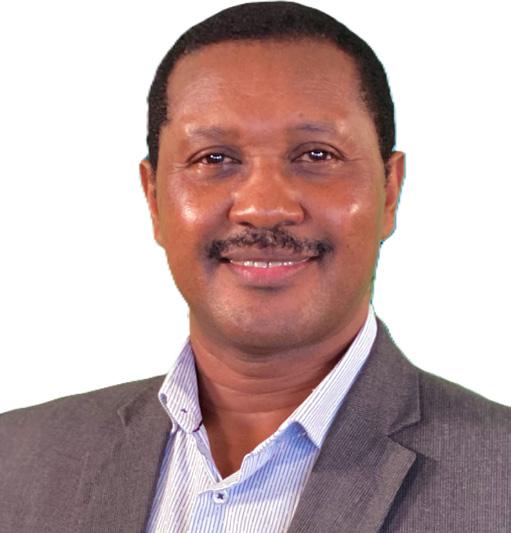
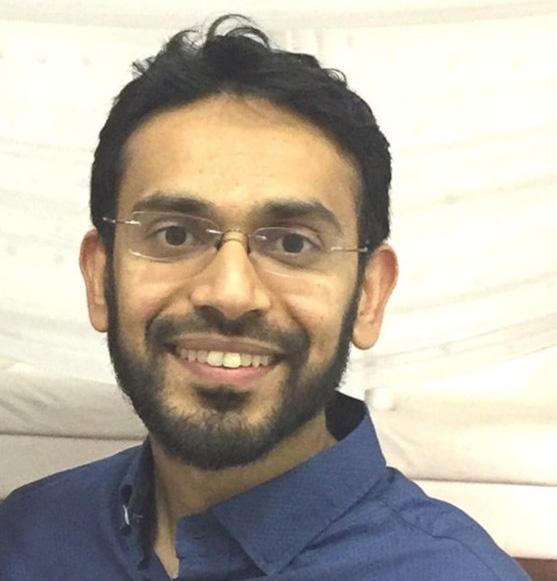
Dedicated to Designing for and Driving Student Success
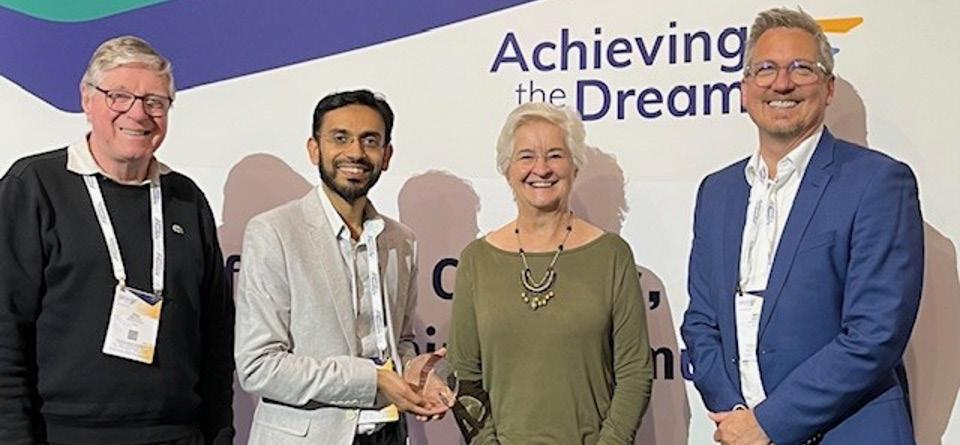
Introduction
The Faculty of Applied Sciences experienced a vibrant and impactful academic year in 2024, marked by a broad spectrum of initiatives and achievements. From welcoming a significant influx of new students to celebrating the accomplishments of both staff and graduates, the faculty actively pursued the University’s mission of ‘Creating Futures’. The year was characterised by a commitment to innovative learning and teaching methodologies, responding to the rise of AI-related technologies, as evidenced by various examples that were highlighted in the annual Learning and Teaching Colloquium. Furthermore, the faculty actively engaged in cutting-edge research across diverse fields – research which directly translated into curriculum strengthening and addressing both local and global challenges. Community engagement and outreach initiatives underscored the Faculty’s dedication to societal impact, with growing international collaborations and partnerships. This report offers a glimpse into the dynamic activities and collective spirit that defined the Faculty of Applied Sciences in 2024.
The Faculty’s Learning and Teaching Coordinator (Prof. Muhammad Nakhooda) is a co-leader, along with CPUT’s Director of the Fundani Centre for Higher Education Development, on an Institutional project that is designed to source and interrogate data from an array of sources, in order to understand and drive student success initiatives at CPUT. The project extends beyond this Institution, with regional partners at the University of Cape Town (UCT), University of the Western Cape (UWC) and Stellenbosch University (SU). Moreso, the project is a national one, coordinated by the Siyaphumelela network. In February 2024, Prof. Nakhooda attended the annual Achieving the Dream Conference in Florida, USA, where CPUT was recognised for its impact in using data to understand student needs better. Of particular relevance to this report is the fact that the Faculty’s own Department of Maths and Physics has been brought into the project and now plays an integral role in analysing the data produced through the project. Students take on mini-projects as part of their Work Integrated Learning (WIL) and Service Learning (SL) components, thereby lending a student voice to this important initiative. The Siyaphumelela project at CPUT continues to grow from strength to strength, with the development of dashboards and the implementation of broader conversations in this space.
As we seek to expand our Programme Qualification Mix (PQM), the Faculty awaits approval from the Council on Higher Education (CHE) and the South African Qualifications Authority (SAQA) for a Postgraduate Diploma in Mathematical Sciences, a Master’s Degree of in Biotechnology, and a Doctoral Degree in Marine Science.
As the Faculty expands into new knowledge domains, the Maths and Physics Department has been developing its first undergraduate qualification, a Bachelor’s Degree in Applied Industrial Physics, over the course of 2024, with external approvals by the CHE and SAQA planned for 2025. It is hoped that this very novel qualification will be on offer to students very soon.
The Faculty of Applied Sciences embraces Heritage and explores Indigenous Knowledge.
The Faculty has always demonstrated a commitment to acknowledging and integrating heritage and exploring the rich potential of indigenous knowledge within its diverse academic and research activities. Central to the success of these initiatives lies our student capital and agency, and we truly celebrate this!
A significant marker of this engagement is the Faculty of Applied Sciences Heritage Day Celebration. This annual event serves as a platform to celebrate South Africa’s mostly, national but also international rich cultural heritages while also showcasing each department’s cutting-edge research and innovations to the broader university community. During the Heritage Day celebration, representatives from the DFST, including Dr Vusi Mshayisa and MSc student Ms Tina Bebe, presented research focused on sustainable food solutions, such as edible insect proteins and innovative food product development. This deliberate connection between cultural celebration and the presentation of research, which often draws inspiration from traditional food sources, underscores the Faculty’s understanding of heritage as a living and evolving entity. The showcasing of edible insect proteins, a food source with deep roots in various African cultures, directly links scientific inquiry with indigenous food knowledge.
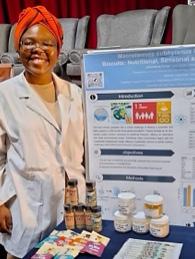
Further highlighting the Faculty’s engagement with broader African heritage is its hosting of the Africa Day Panel Discussion. This online event, commemorating Africa Day 2024, brought together esteemed panelists from universities across all five regions of Africa to discuss the theme: “Educate an African fit for the 21st Century: Building resilient education systems for increased access to inclusive, lifelong, quality, and relevant learning in Africa”. The discussion inherently touched upon the importance of contextual relevance in education, with several panellists emphasising the crucial role of indigenous languages and perspectives in shaping educational systems. Prof. Sami Aifa from Tunisia specifically discussed the challenges related to language and emphasised the need to promote indigenous languages in education, suggesting the translation of scientific books into local languages for better understanding. Similarly, Dr Theresia Busagara from Tanzania also addressed language inequality in education, advocating for a gradual shift to promote local languages in shaping education and culture. The Dean of the Faculty of Applied Sciences, Prof. Kioko, underscored the importance of reimagining educational frameworks to ensure inclusivity and relevance in the rapidly evolving 21st century. Dr Kabelo Sebolai, CPUT’s Institutional Language Coordinator, aptly concluded the discussion by highlighting the significance of “Africans telling the story about Africa”, reinforcing the importance of African perspectives and heritage in shaping the continent’s future.
A unique and compelling example of the integration of indigenous knowledge within the Faculty’s activities was the reflection of Dr Moagabo Ragoasha as an “Ocean Sangoma” during the SEAmester VII voyage. SEAmester, South Africa’s “floating university”, provides invaluable hands-on experience in marine research. This inclusion signifies a progressive recognition within the Faculty of diverse ways of knowing and understanding the marine environment, where indigenous spiritual connections to the ocean are acknowledged alongside scientific inquiry. More on this can be found in the Faculty’s Newsletters (links in this report).
The research conducted by Dr Vusi Mshayisa on edible insects provides another significant link to indigenous knowledge. His work, showcased during the Heritage Day celebration and also presented at the Jomo Kenyatta University of Agriculture and Technology (JKUAT) in Kenya, focuses on unravelling the nutritional, structural, and techno-functional properties of edible insects.
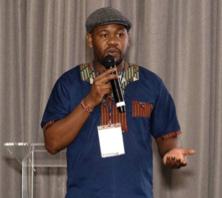
This research not only scientifically validates the nutritional value of a food source traditionally consumed in many African cultures but also explores its potential as a sustainable protein source to address global food security issues.
Presentation of the work at the National Research Foundation’s (NRF) Next Generation and Emerging Researchers Symposium, held from 23 to 25 October 2024 and titled “Edible insect flours: proximate, physicochemical and functional properties for sustainable food”, was awarded the Best Oral Presentation.
The granting of a US patent for a starch-soluble dietary fibre nanocomposite made from Bambara groundnuts, a legume widely cultivated and consumed in Africa, is an excellent achievement by Prof. Victoria Jideani and her colleagues, and subtly highlights the utilisation of indigenous plant resources for innovative applications.
The Faculty’s commitment to acknowledging heritage is also reflected in the celebration of Women’s Day. This annual Faculty event serves as an occasion to honour the achievements of women within the faculty and to reflect on the legacy of those who paved the way for gender equality in academia.
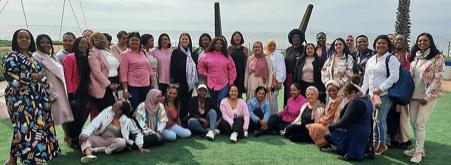
The Faculty’s Annual Multilingual Reading Quiz served a dual role in 2024, overlapping with the impactful Mandela Day Project of Faculty Reading Champions. Mandela Day encourages community service and reflection on the legacy of Nelson Mandela. This project, a collaboration with the Institutional Civic and Community Engagement Unit and library staff, saw the student volunteers visiting Balvenie Primary School, Astra Special Education School, and the Saartjie Baartman Centre for Women and Children. At each location, the students read stories and poems from collected books to the children and families. This act of sharing narratives included indigenous folklore and oral traditions, contributing to the transmission and appreciation of cultural heritage. The event was particularly well received by the students and the community being served.
Across the Faculty there are innumerable examples of research conducted as a direct response to answering community needs. One such example is the Biomonitoring Research conducted by Prof. Vernon Somerset and Dr Charlton van der Horst on the Berg River and the Eerste-Kuils River systems, which offers a significant contribution to understanding local aquatic ecosystems. Such ecological understanding often aligns with and can be enriched by traditional ecological knowledge held by local communities. Similarly, the Sea Savers Programme, co-developed by Dr Koebraa Peters, engages local communities in ocean awareness activities and rocky shore explorations, providing opportunities for incorporating local ecological knowledge and perspectives into marine conservation efforts.
The Faculty actively engages with and advanced the vision of acknowledging and preserving indigenous knowledge systems through a variety of initiatives. From celebrating cultural heritage through events, such as Heritage Day, to exploring the scientific basis of traditional food sources, and acknowledging diverse ways of knowing, the Faculty demonstrates a growing appreciation for the richness and relevance of both heritage and indigenous knowledge in the modern academic and research landscape. Such an approach not only enriches the learning experience for students but also positions the Faculty to contribute meaningfully to addressing local and global challenges with a more holistic and culturally sensitive perspective, framed through our vision of ‘Ubuntu’.
The Faculty actively engages its student body in a multitude of initiatives designed to cultivate environmental awareness and foster a sense of responsibility towards the community and planet. Through a combination of hands-on experiences, curriculum integration, community engagement projects, and work integrated learning (WIL) opportunities, we seek to equip future scientists and professionals with the knowledge and skills (and passion!) necessary to address current and emerging environmental challenges.
A cornerstone of the Faculty’s approach to environmental education is the deliberate infusion of WIL, Service Learning (SL), and Civic Engagement (CE) into its diverse curricula. The Faculty has a dedicated unit, headed by Mr Andrew Rand, that assists departments in planning, integrating, and operationalising credit-bearing activities for WIL and SL, as well as volunteer-based CE projects. This strategic integration ensures that environmental awareness is not merely a theoretical concept but a lived experience for students across various disciplines.
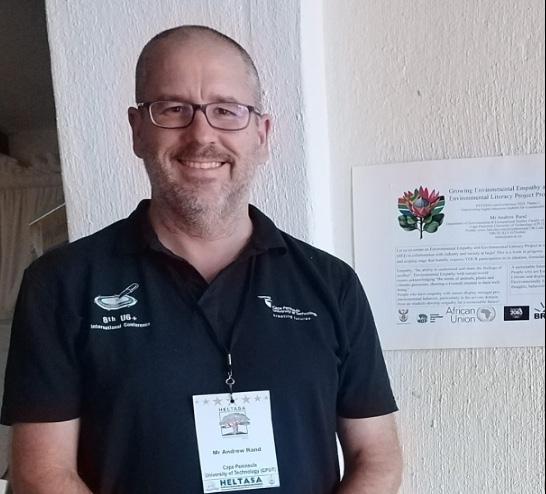
Service Learning, in particular, plays a significant role in connecting students with realworld environmental issues within their communities. These course-based, often creditbearing, experiences involve students participating in organised service activities that meet identified community needs, followed by reflection that deepens their understanding of course content and enhances their sense of civic responsibility. Several examples of these, across departments, illustrate this commitment:
• Exploration of Zandvlei Estuary: Nature Conservation and Marine Sciences students had the opportunity to explore the wonders of the Zandvlei Estuary. This hands-on experience provided invaluable lessons regarding the importance of conservation efforts aimed at these vital ecosystems, allowing students to apply their theoretical knowledge in a real-world setting. The visit deepened their understanding of estuarine ecosystems and instilled in them a sense of responsibility as future stewards of marine and coastal environments.
• One Rez One Garden Project: This student- and staff-led gardening project, as part of the Green Campus Initiative (GCI) is aimed at addressing food insecurity on campus while promoting sustainable, healthy living and mindful consumption. Residential students are responsible for the day-to-day running of the food gardens at the residences. This student-led initiative directly addresses food insecurity on campus by growing vegetables to feed the student community. By participating in the gardening activities, students learn about organic farming methods, composting, water conservation and biodiversity, simultaneously gaining practical knowledge about sustainable practices and cultivating environmental stewardship in the spirit of ubuntu.

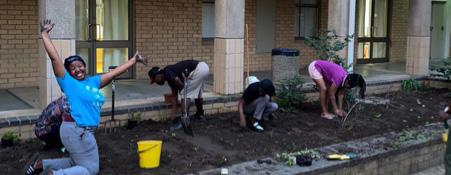
• Biotechnology Postgraduates and Water Awareness in Oudtshoorn: Students from the Postgraduate Diploma in Biotechnology were given the opportunity to undertake a service- learning project in Oudtshoorn, which focused on raising awareness regarding water quality and implementing preventive measures to protect scarce water resources. Students engaged with the local community, collected water and soil samples for laboratory analysis, and discussed sustainable development challenges. This project directly involved students in addressing a critical environmental issue with significant community impact, and links with analytical techniques used to evaluate water quality, which is part of the curriculum.

Civic Engagement (CE) at CPUT offers voluntary and community-based activities that operate independently of academic programme learning outcomes. While students do not receive marks for their participation, these activities provide non-curricular opportunities to contribute to socio-economic development and prepare students for good citizenship by raising awareness of the need for social responsibility and commitment to building a sustainable future. The Sea Savers Programme, co-developed by Dr Koebraa Peters, exemplifies this. Marine Science WIL students actively participate in ocean awareness activities, such as beach clean-ups and rocky shore explorations, connecting communities to science and promoting ocean conservation. This hands-on involvement allows students to contribute directly to marine environmental protection and engage with the public to raise awareness in respect of ocean health.
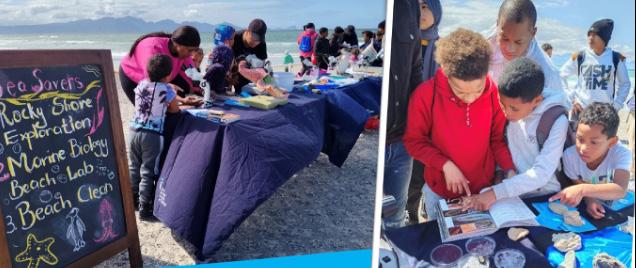
Work Integrated Learning (WIL) placements also provide crucial opportunities for students to gain practical experience in environmentally focused organisations and apply their knowledge in real-world scenarios. Among the various activities across all departments, which are credit-bearing, students undertake field trips and gain handson experience. For example, the training for Nature Conservation students at the Wildlife Forensics Academy exposes students to the practical aspects of combating environmental crimes. This training, involving mock crime scenes and evidence collection, directly prepares students for roles in environmental compliance and enforcement.
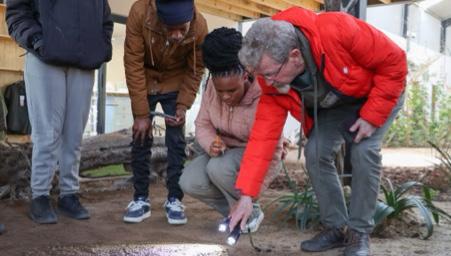
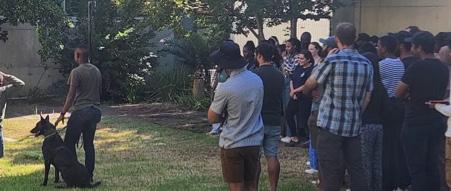
The impact of these initiatives on students is evident in their reflections, in which they note that the practical experience gave them a better understanding of how dogs are used in conservation efforts. Similarly, students who participated in the Table Mountain hike expressed a new-found connection with nature and a sense of personal capability. Likewise, all such experiential learning activities really serve to broaden and enrich students’ understanding of the theoretical components of their curricula.
The Faculty stands as a dynamic hub for nurturing future leaders and innovators across a diverse range of scientific and technological fields. A key tenet of our educational philosophy is the seamless integration of academic learning with practical, real-world experience. As a result, we can boast a rich tapestry of student success stories in industry, demonstrating the transformative impact of its educational approach.
Work integrated learning (WIL) is a cornerstone of the educational experience at CPUT. It is a learning philosophy rooted in a partnership between the Institution and external stakeholders, which include industry employers, research laboratories and government entities. The primary objective of WIL is to provide students with an enhanced learning experience within a workplace setting, allowing them to apply their academic knowledge to real-life situations under the guidance of experienced mentors and academic staff from both industry and CPUT.
Examples of student success during WIL span across all departments. Here are a few notable examples:
• Consumer Science Students showcase real-world Skills: The Consumer Science Department’s WIL programme culminates in an interactive poster presentation session during which third-year students share their three-month internship experiences with peers, staff, and industry partners. This platform allows students to articulate how they have merged theoretical knowledge with practical workplace experiences, often showcasing food samples that directly demonstrate their responsibilities during their internships. This event serves as both an assessment and also as a crucial networking opportunity that often leads to employment. The Consumer Sciences Programme recognises outstanding contributions that students made during their WIL year. These awards recognised Ms L. Mdingi (who served WIL at Excellent Meats) and Mr L. Mdange (who served WIL at Bake It Easy) for their diligence and professionalism.
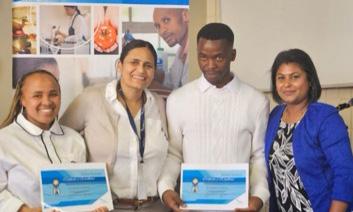
Students from Mathematical Sciences collaborating with the Western Cape Department of Agriculture (WCDoAg): Through a Memorandum of Understanding (MoU) with the Western Cape Department of Agriculture (WCDoAg), students in their third-year of the Diploma in Mathematical Sciences undertook their WIL at the WCDoAg head office. Mathematics and statistics play a vital role in the decision-making process in agriculture, from improving crop yields to predicting weather patterns. This exposure not only broadens the students’ understanding of industry applications but also reveals potential career pathways they might not have previously considered. Furthermore, two Mathematical Sciences students are actively engaged in WIL projects within CPUT’s Department of Agriculture, focusing on wine data analysis under the mentorship of Dr Anton Nel, Senior Lecturer in the Agriculture Department. Their work applies analytical and statistical skills to explore factors affecting wine production and quality, demonstrating direct cross-disciplinary collaborations.
• Energy Storage and the Circular Economy: The Chemistry Department’s Dr Dorcas Zide has worked intensively to create a thriving ecosystem of WIL and graduate programmes that focus on sustainable energy storage and battery recycling. The Energy Storage Graduate & WIL Program provides practical experience in advanced battery development and manufacturing, leading to impressive employment outcomes for its graduates. The involvement of WIL students in projects related to green hydrogen and battery technology - as showcased at events, such as the South African National Energy Development Institute’s (SANEDI) Energy Conference - provides them with invaluable industry exposure and practical skills highly sought after in the burgeoning renewable energy sector.
Participation in competitions and industry events offers students the opportunity to test their skills, network with professionals, and gain recognition within their respective fields. Several examples illustrate student participation and success, and can be found in the Insights Newsletters (see later in this report). CPUT students are making an impact!
The success of our alumni in various industries serves as a powerful testament to the effectiveness of the Faculty’s educational approach in preparing graduates for meaningful and impactful careers.
Creating success in Agricultural Management: One notable example comes from the Agriculture Department, where Mr Lihle Fetile, a proud graduate of the CPUT Department of Agriculture, was nominated for and won in two categories - Agri Worker and Junior Management of the Year 2024 - at the prestigious Western Cape Prestige Agri Awards (PAA). This significant achievement (Mr Fetile emerged victorious from among 101 participants) underscores the strong foundation provided by his agricultural education at CPUT and his dedication to his profession. His philosophy of always giving his best and going the extra mile serves as an inspiration to current students and highlights the recognition in industry that CPUT graduates can achieve.
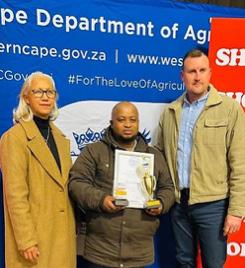
• Charting a global Career in Marine Science: The journey of Megan Shipton, a former Marine Science student, exemplifies how the education and training at CPUT can open doors to a global career. Following her Diploma in Marine Science and participation in a research expedition to the Southern Ocean aboard the SA Agulhas II, Megan pursued further studies and gained extensive research experiences in France and Ireland, ultimately leading to her current role at the Marine Institute in Galway, Ireland, as a Laboratory Analyst focusing on shellfish aquaculture. Her success story highlights the international recognition of CPUT’s Marine Science programme and the diverse opportunities available to its graduates in the global marine research and aquaculture industries.
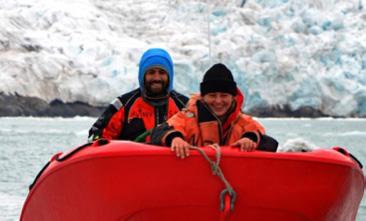
Programmes, supported by sound pedagogy, in the Faculty of Applied Sciences provide fertile ground for cultivating industry leaders and fostering significant student success after graduation. Due to the flagship and comprehensive WIL programmes, active participation in industry-linked events, transformative international exchange opportunities, the inspiring achievements of its alumni, and the encouragement of entrepreneurial ventures, the Faculty ensures that its graduates are well-prepared to thrive and make meaningful contributions across a wide spectrum of industries.
We actively strive to pursue opportunities to provide our students with a global perspective through a diverse range of internationalisation initiatives. These initiatives span academic exchanges, participation in international summits, collaborative research opportunities, and individual pursuits of international study and work experience, all contributing to the Faculty’s vision of being a leading institution in Africa and beyond.
Enhancing Learning through Academic Exchange Programmes
A part of the Faculty’s internationalisation strategy is its commitment to academic exchange programmes. For example, a Memorandum of Understanding (MoU) with the FH Münster University of Applied Sciences in Germany (FH: ‘Fachhochschule’ or ‘polytechnic institute’) makes it possible for student exchange. Two students from Germany visited CPUT under this MoU and joined the Diploma in Consumer Sciences Food and Nutrition class.
The exchange proved mutually beneficial, enriching the learning experiences of both the visiting and local students. Oyena Dlwengu, a second-year CPUT student, described working with one of the German exchange students, Litha, as “really awesome”, noting that Litha offered “unique perspectives and ideas to assist with group practicals”. Despite initial social differences and language barriers, Litha integrated well with the local students, leaving with a richer understanding and appreciation of the South African cultural and indigenous knowledge landscape. Similarly, Alistor Rossouw, another second-year CPUT student, enjoyed collaborating with the second German exchange student, Freya. He reported learning “some fascinating facts about Germany” and admired Freya’s diligence and imaginative problem-solving skills in the laboratory.
The exchange students in turn reflected on their time at CPUT and in Cape Town. They lauded the “cultural immersion, educational opportunities, and warm hospitality of the South African people” as making it a “truly memorable experience”. They also valued the opportunity to collaborate with students from the Department of Biotechnology and Consumer Science. The academic staff were commended for being knowledgeable and passionate about their subject. Through this MoU, further exchanges are planned in the coming years, and will be expanded to include many other universities and opportunities for our students.
The Faculty’s collaboration with the Joint Institute for Nuclear Research (JINR) in Dubna, Russia, also presents significant internationalisation opportunities for students. This collaboration provides CPUT researchers with access to JINR’s state-of-theart research facilities in nuclear and particle physics. Importantly, it also offers CPUT students the chance to participate in training, internships, and workshops at the JINR, enhancing their expertise in high-energy physics and related fields. Discussions held in December 2024 between CPUT and JINR delegates focused on fostering future collaborations that will elevate the Physics program, particularly through a Bachelor’s Degree in Applied Industrial Physics, which will soon be on offer at CPUT.
The Faculty seeks to participate regularly in international networks to foster collaboration and knowledge exchange, which can indirectly benefit students through expanded opportunities. Dr Koebraa Peters from the Department of Conservation and Marine Sciences co-facilitated a workshop in Madagascar on the Ballast Water Management and Anti-Fouling Systems Conventions in May 2024. Invited by the International Maritime Organisation due to her expertise in marine invasive species, Dr Peters’ involvement highlights the Faculty’s role in building African capacity for the protection of the marine environment. Such engagements can lead to future collaborative projects involving students from CPUT and partner institutions in other African nations.

The Faculty strongly emphasises the importance of community engagement as an integral part of its educational philosophy, which is also embedded in the Faculty’s Strategic Plan. Across its various departments and programmes, students are actively involved in a diverse range of initiatives that aim to address community needs, promote social responsibility, and provide them with valuable experiential learning opportunities, as highlighted in several parts of this report. These initiatives span service learning integrated into the curriculum, voluntary civic engagement projects, outreach programmes sharing scientific knowledge, and collaborations with external organisations.
The Faculty actively promotes service learning (SL), which is defined as a course-based, credit-bearing experience in which students participate in organised service activities that meet identified community needs and reflect on the service activity to further understand course content and enhance civic responsibility.
• Chemistry Students support Learners through Service Learning: The Department of Chemistry has implemented service-learning projects in which CPUT students provide academic support in Physical Science and Mathematics to academically disadvantaged learners in selected schools. These projects involve classroom instruction and offer learners the opportunity to engage in practical experiments in a Chemistry laboratory. By facilitating hands-on experiments, the CPUT students help learners apply theoretical concepts and gain a deeper understanding of science. This not only benefits the learners but also allows the CPUT students to apply their theoretical knowledge to real-life scenarios, enhancing their understanding and developing essential graduate attributes, such as social responsibility, leadership, and teamwork.
Several more examples of civic engagement and service-learning activities can be found in the Faculty Insights Newsletter (the links are to be found later in this report). The numerous examples of student-led and student-involved community engagement initiatives within the Faculty underscore our commitment to fostering not only academic excellence but also a strong sense of social responsibility in our students.
This important annual event was held on 2 October 2024 - with slight changes to the regular format. Whereas, in the past, interested participants would submit abstracts for an opportunity to present at the colloquium, it was decided that, for the 2024 colloquium, departmental representation would be prioritised. Consequently, each Department was asked to present some of their combined best practices and to highlight achievements and challenges.
A keynote address was delivered by Dr Vusi Mshayisa of the Department of Food Science and Technology. Dr Mshayisa’s address highlighted the growing role of AI in Education and the need to navigate the future of learning and teaching through blended education and AI integration.
After the keynote address, the departmental presentations offered a very rich and diverse display of learning, teaching and assessment practices across an array of contexts. The presentations fell broadly into 4 themes:
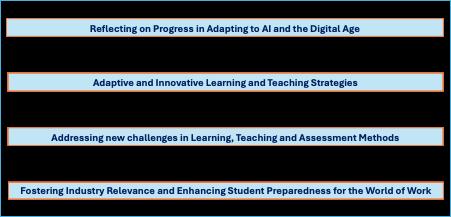
A reflective summary of each theme is presented below, combining the various presentations from each Department. What becomes clear is that pedagogy across the Faculty is constantly evolving, responding to changes in student, lecturer and digital needs, along with inputs from our industry stakeholders.
A reflective summary of each theme is presented below, combining the various presentations from each Department. What becomes clear is that pedagogy across the Faculty is constantly evolving, responding to changes in student, lecturer and digital needs, along with inputs from our industry stakeholders.
The past year has witnessed a multifaceted engagement within the Faculty concerning the rapidly changing digital landscape and its impact on learning, teaching and assessments. Recognising the transformative potential and inherent challenges presented by technological advancements, particularly with respect to AI, the various Departments in the Faculty undertook critical reflections to ensure that the pedagogy remained innovative, relevant, and academically rigorous.
The Department of Agriculture, for instance, presented their practice of leveraging the social media application WhatsApp for academic support, conducting instant polls during lectures to gauge student understanding, and providing real-time feedback. This demonstrated a commitment to utilising readily accessible digital platforms to foster continuous communication and create a more interactive learning environment. Moreover, such an intervention presents new opportunities for student-lecturer feedback, requiring no more technology than is already present in the classroom. The Chemistry Department also offered a presentation on the use of Mentimeter for formative assessment, facilitating post-lecture reflections and immediate feedback.

The Department of Conservation and Marine Sciences (CMS) provided a compelling case study on the challenges encountered with AI detection in a second-year assignment in the Diploma Course in Nature Conservation. The incident, in which a student’s use of AI was detected in a number of submissions, including instances of paraphrased AI-generated work, prompted a Faculty-wide reflection on how to adapt assessment strategies to this new reality. The CMS Department’s experience underscores the complexities and the ongoing need for refinement in our approaches to academic honesty in the increasingly pervasive digital age. The Department adopted a forward-thinking approach and redesigned learning and teaching to include AI in certain instances, rather than solely viewing the technology as a threat to academic integrity, thereby requiring punitive interventions.
The Department of Mathematics and Physics also grappled directly with the challenge of proctoring assessments for a programming course, whilst ensuring that authentic learning takes place. Recognising the increasing capabilities of AI tools to generate computer code, the Department proactively shared information regarding specific R code generators with students to ensure a level playing field. This transparent approach acknowledged the reality of AI availability. The Department then successfully leveraged the Respondus Lockdown Browser (LDB), available through the Blackboard LMS, to restrict the use of software applications during online assessments. Such examples represent very novel ways in which departments are responding to new and emerging threats to academic integrity.
The Biotechnology Department identified adapting to the digital age and the need for innovation in learning and teaching by introducing the ‘Coding Friday Initiative’ aimed at promoting tangible practical applications and focusing on real-world scenarios with regard to understanding basic coding.
Exploring the confluence of Science and Art
A presentation by Dr Koebraa Peters from the Marine Sciences Programme exemplified a truly transdisciplinary learning approach in a Science as a subject in the classroom, that smartly involved technology integration. Students were tasked with developing a short documentary (or digital story) on aquatic ecosystems, which is part of their curriculum. This exercise required students to plan, gather, and interpret visual data and utilise various technologies for film production, thereby integrating subject knowledge with creative expression, and developing several skills alongside, such collaboration, communication, technological adeptness, and an appreciation for the role of creative expression in the sciences. Highly positive student feedback pointed to the value of such innovation to elevate the learning experience.
Dr Peters explained that such a pedagogy activates new pathways and creates opportunities for new ways of thinking about the hard sciences, blending analytical and creative thinking:
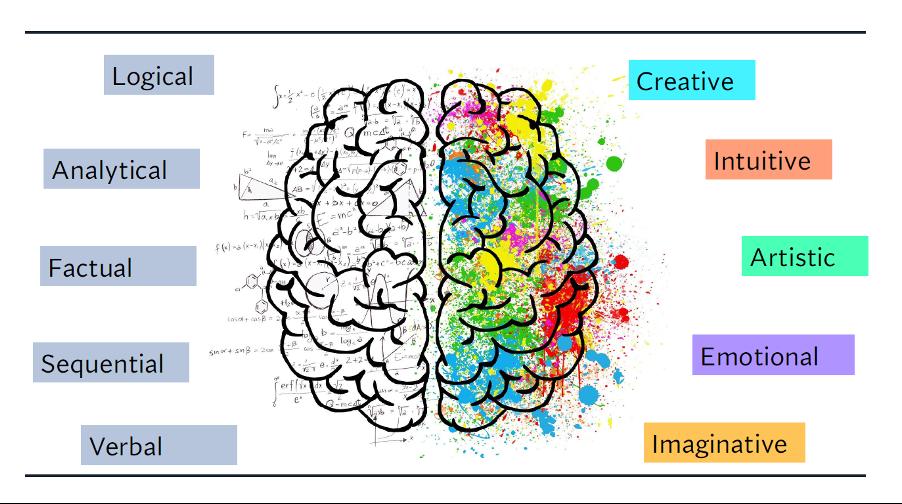
She further explained that the practice is linked to CPUT’s Graduate Attributes (GAs), and thereby promotes holistic learning, as explained by her graphic:
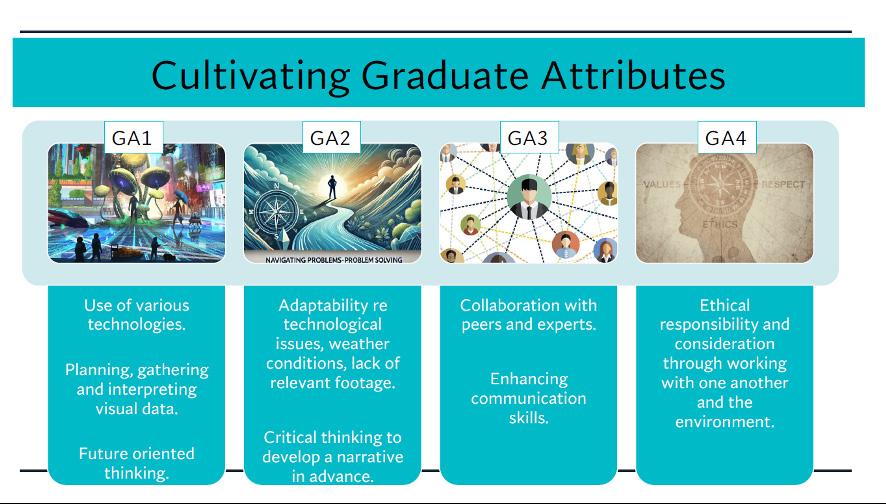
GA1 Technological capability and foresight
GA2 Resilience and problem-solving capability
GA3 Relational capability
GA4 Ethical capability and respect
Recognising that the educational landscape is continuously evolving, our Departments have actively explored, implemented, and refined novel approaches to enhance student engagement, foster deeper and critical understanding, and equip our graduates with the skills required for the world of work. This commitment to innovation spans diverse disciplines, encompassing pedagogical advancements, technology integration, and meaningful connections with industry.
We have increasingly seen a shift towards more active and collaborative learning methodologies. The Department of Agriculture, for example, reported on their embrace of group work, incorporating group projects and presentations as integral components of student assessment.
This approach not only develops teamwork and communication skills but also encourages peer learning and the collective exploration of complex agricultural concepts. The introduction of group leaders, where “peer mentors” were trained to guide practical sessions that were completed as groups, demonstrated a creative use of peer-assisted learning. Students commented that this method enhanced understanding and allowed for more active feedback. An added advantage was that students were able to converse with each other in various ways and in diverse languages. As a result, multilingualism added an extra layer of richness to the groupwork discussions. Research in the Faculty (Nakhooda and Paxton 2021: A translanguage pedagogy to promote Biotechnology concept engagement and academic literacy in a linguistically-diverse university context, Critical Studies in Teaching and Learning: 9, pp 38-55) provides strong support for the use of multilingualism and translanguaging as a pedagogical tool to create meaning using various representations, drawing on student cultural and linguistic agencies.
The Department of Agriculture embraced the slogan ‘Unity Through Diversity’ to overcome their challenges and draw on collective motivation and capital to see them through the academic year.
With each academic year, with each new cohort of students, and with the constant societal and technological changes, the Faculty is met with new challenges that it must overcome in order to maintain the quality of its offerings. We have built sufficient resilience across our academic projects to be able to withstand many of these challenges, but these responses do not come without introspection and appropriate action.
A further theme emanating from the 2024 Learning and Teaching Colloquium was one in which Departments detailed how they addressed the new and often unexpected challenges with which they were faced. In the age of AI, a critical challenge lies in ensuring that fair assessment practices are maintained. This is fundamental to ensuring academic integrity and accurately measuring student learning. Our Departments have actively reviewed, adapted, and innovated their approaches to cater for pervasive technologies that can easily manipulate authentic learning.
It has become necessary to embrace a diverse range of assessment methods, moving beyond traditional examinations to incorporate strategies that evaluate a broader spectrum of student learning and competencies. Across the faculty, Departments have effectively utilised group projects and presentations, which serve as valuable tools for assessing students’ collaborative abilities, communication skills, and their capacity to synthesise and present complex curriculum concepts. We have seen an increase in practical assignments, which are a very useful intervention to allow students to develop skills which cannot (yet) be outsourced to technologies, thereby increasing the professional value of our graduates. We, therefore, see a closer link between theoretical concepts and practical applications, while not forgoing the need to maintain technological adeptness.
Another notable example comes from the Chemistry Department: its presentations described the importance of work-placement opportunities and engagement with industry stakeholders and advisory board meetings to ensure that students remained competitive and well-prepared for the world of work in their final year. This focus on practical experience and industry feedback is essential in bridging the gap between academic learning and professional practice, especially with regard to the skills gap facing the South African economy.
The Marine Science Programme focused on collaborative, experiential and peer teaching in the Marine Technology – Project Design subject, illustrating their commitment to practical learning. The aim of this subject is to provide exposure to marine technology used within the Oceanography discipline and introduces students to the instrumentation used to measure various parameters in the ocean. The Practical Instrumentation Design Project within this subject provides students with valuable hands-on experience in designing and understanding marine technology.
The uniqueness of CPUT lies not only in its diverse technology-focused curricula, but especially in its industry-linked activities, in which undergraduate students are prepared for careers through experiential learning and industry placements. The Faculty of Applied Sciences prides itself on close links with industries, and active engagements with Advisory Boards. The Learning and Teaching Colloquium in 2024 highlighted a number of notable activities in this space.
The Biotechnology Department showcased industry collaboration and advisory board involvement as key learning and teaching strategies. The emphasis on collaboration with industry partners, such as UVU Bio, and obtaining feedback from industry during work-integrated learning visits ensures that the curriculum remains relevant and aligned with the needs of the growing biotechnology and bioeconomy sector - not only in the Western Cape, but also nationally and internationally. Several students were placed outside of the province and the country. The role of industry advisory boards in curriculum design and improved training quality is also recognised as vital in enhancing student preparedness for industry.
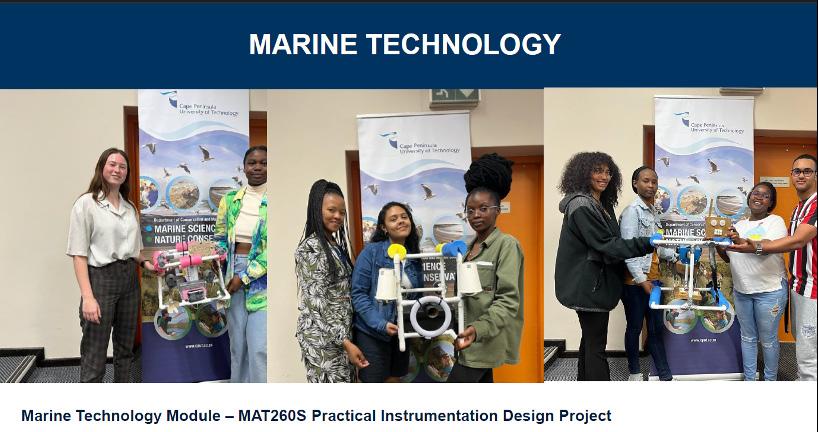
The Faculty’s commitment to industry relevance is embedded within the design and delivery of our academic programmes. The various Diplomas, Advanced Diplomas and Bachelor’s Degrees offered by all Departments have been designed with industry relevance in mind. Moreover, the needs of our students are paramount, and hence student leaders, either through class representatives or student bodies, are involved in all Faculty and Department level meetings. We are committed to student-centeredness, and our curricula reflect this.

The Faculty’s activities this year demonstrated a proactive and adaptive response to the opportunities and challenges presented by AI and the digital age. While significant progress has been made in integrating digital tools, addressing the complexities of AI in assessments, as well as designing and delivering innovative curricula and pedagogies, remains an ongoing area of development. As we move forward, the Faculty sees it necessary to focus on:
• Continued professional development to enhance digital literacies and pedagogical approaches in a technologically rich environment;
• Continued exploration of AI’s potential as a learning tool, alongside strategies for mitigating risks to academic integrity;
• Sharing best practices and lessons learned across Departments regarding technology integration and assessment innovation;
• Investing in infrastructure and resources to support effective online and blended learning modalities;
• Strengthening collaborations with industry partners to ensure our curricula remain aligned with the evolving demands of the workplace
As we usher in 2024, there are many milestones to celebrate. A very important one is the more than 1,000 new first-year students whom we welcomed to the Faculty this year. They have chosen CPUT, and our Faculty in par�cular, to lay the founda�on for their professional lives. I would also like to extend my best wishes to everyone in the Faculty as we support these First-Years and our returning students towards achieving their dreams and poten�al.
Another milestone is the launch of our very first Faculty Newsleter. This exci�ng venture is aimed at sharing our experiences across the Faculty. The Newsleters will encapsulate our collec�ve journey – highligh�ng our triumphs, innova�ons, and the unwavering spirit of our community (staff, students, and collaborators). They will hopefully enhance communica�on and further cul�vate our sense of togetherness as a Faculty.
We aim to have four Newsleters each year (one per Term) and, although they will not contain everything that has been achieved in the Faculty by that �me, they will give a window into the great and impac�ul work being done across the Faculty. We believe the Newsleter would give insight into the Faculty.
This first issue is a testament to our Faculty's vibrant academic ecosystem. From the exploratory ventures into the Zandvlei Estuary, enriching our understanding of Marine Biodiversity; to the celebratory end-of-year potjiekos compe��on; to the enlightening interna�onal exchange experiences with FH Münster University of Applied Sciences (in Germany); et cetera. Our commitment to addressing realworld challenges is vividly demonstrated through ini�a�ves like the student and staff-led gardening project aimed at comba�ng food insecurity on campus, while the spirit of innova�on is celebrated through the Science Idols event in the Chemistry Department, where students showcased their ingenuity and entrepreneurial skills.
Prof Joseph I.
Kioko
Launch of Faculty’s newsletter:
(Click on the image to be directed to the online version of the full newsletter.)

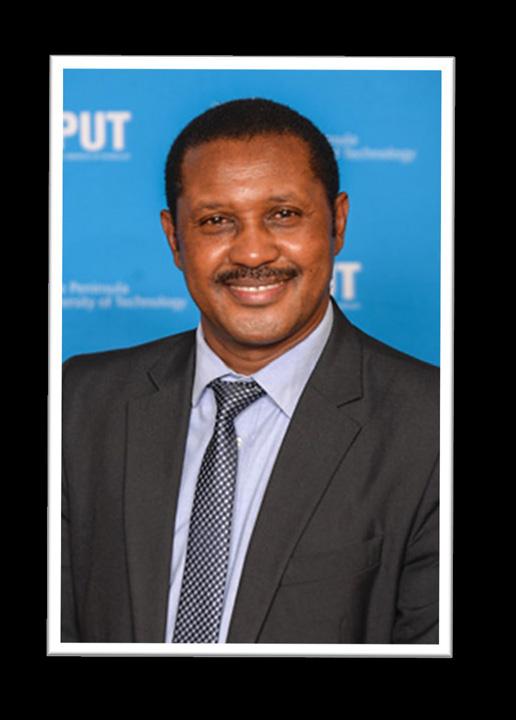
Dean of Applied Sciences

This edi�on also highlights our efforts and successes in infusing Work Integrated Learning, Service Learning, and Civic Engagement into our curriculum – thereby empowering our students to apply their knowledge in meaningful ways.
As we reflect on these and other stories in the Newsleter, we are reminded of the strength of our community and the impact of our collec�ve efforts. Let us con�nue to inspire, innovate, and influence posi�vely – embracing the challenges and opportuni�es that lie ahead.
Here's to a year of new discoveries, learning, and growth.
Welcome to our 2024 journey!

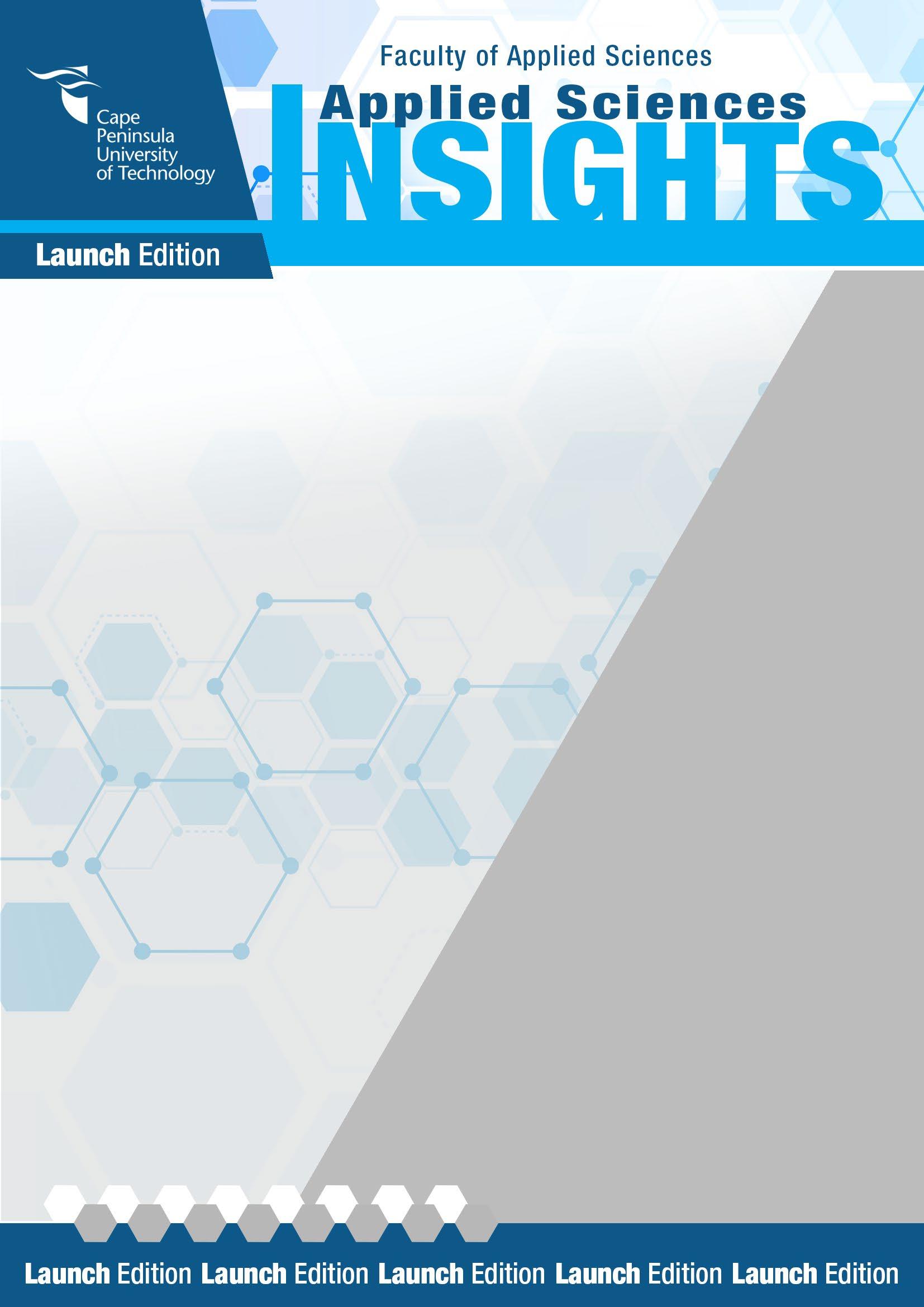
March 2024



come from our women staff, underlining their key influence in this Faculty. I would like to thank the incredible women of Applied Sciences for the great work that you do.




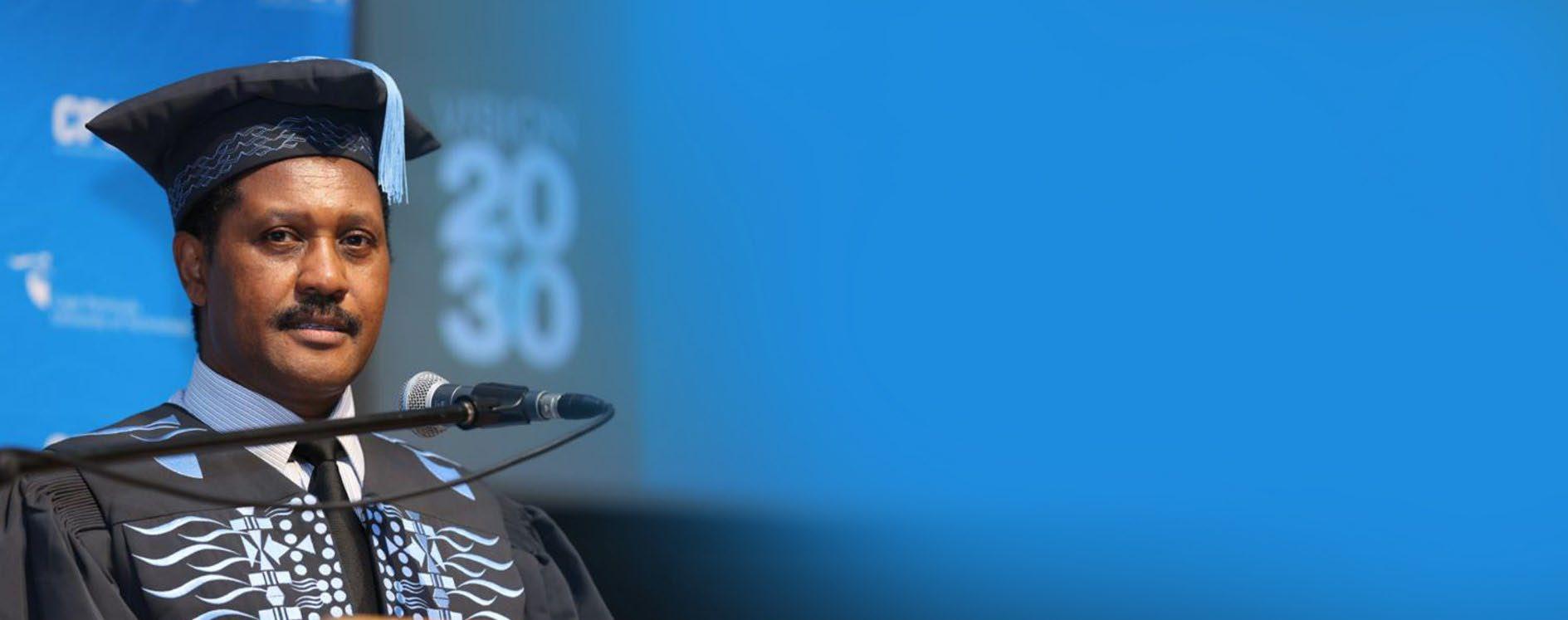

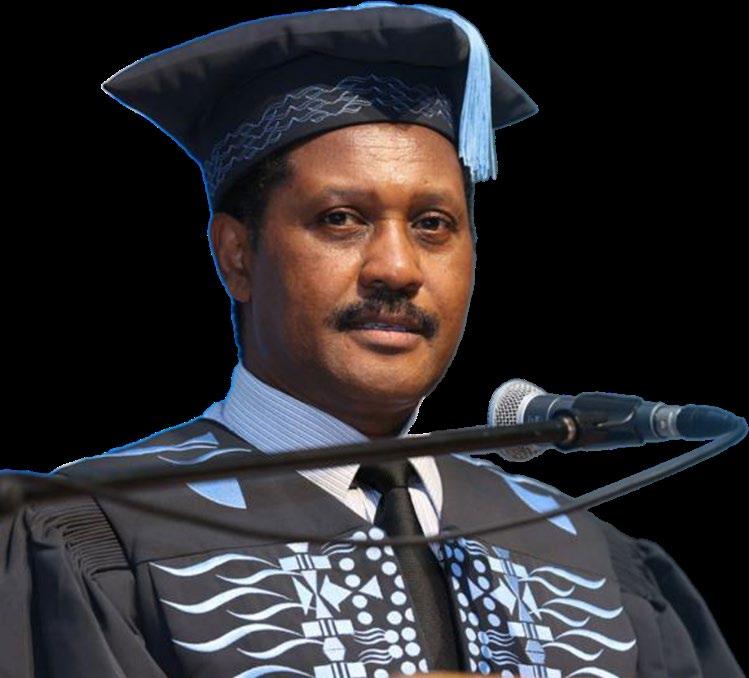
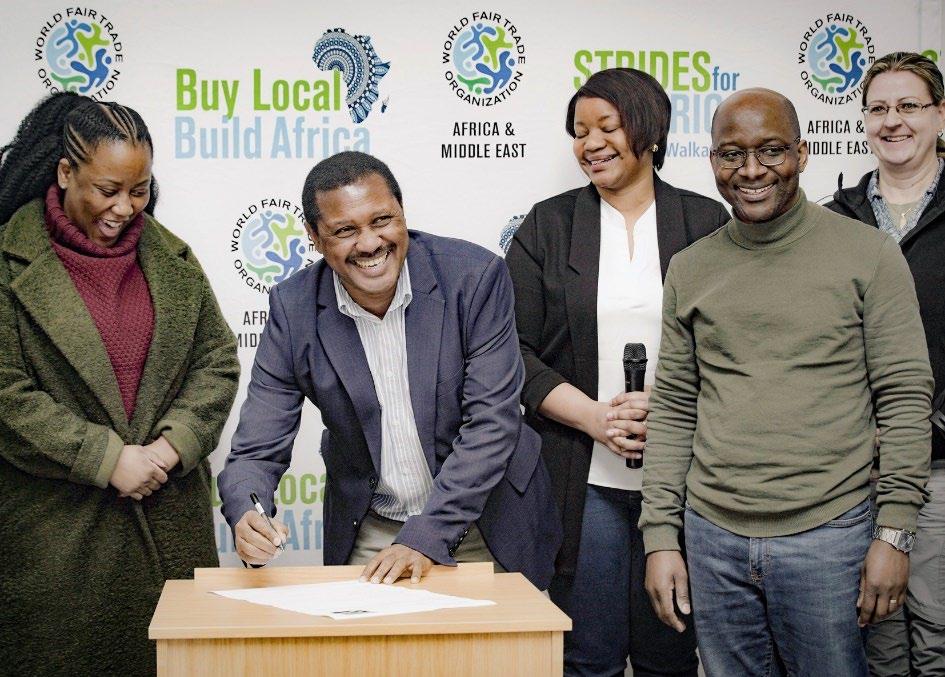

Together as a Faculty we have continued to make a positive impact both within and beyond CPUT. This is important if we are to achieve our vision of being a leading Faculty of Applied Sciences in Africa and beyond, seeking to build a better world for humanity. In that respect, our launch of the CPUT Fair Future (CPUTFF) initiative, led by the Department of Agriculture with the aim of promoting fair trade and sustainable development, is a major highlight. The initiative is supported by World Fair Trade Africa & Middle East (WFTO AME). This is the regional network for the World Fair Trade Organization (WFTO), making us a pioneering Fair Trade campus.
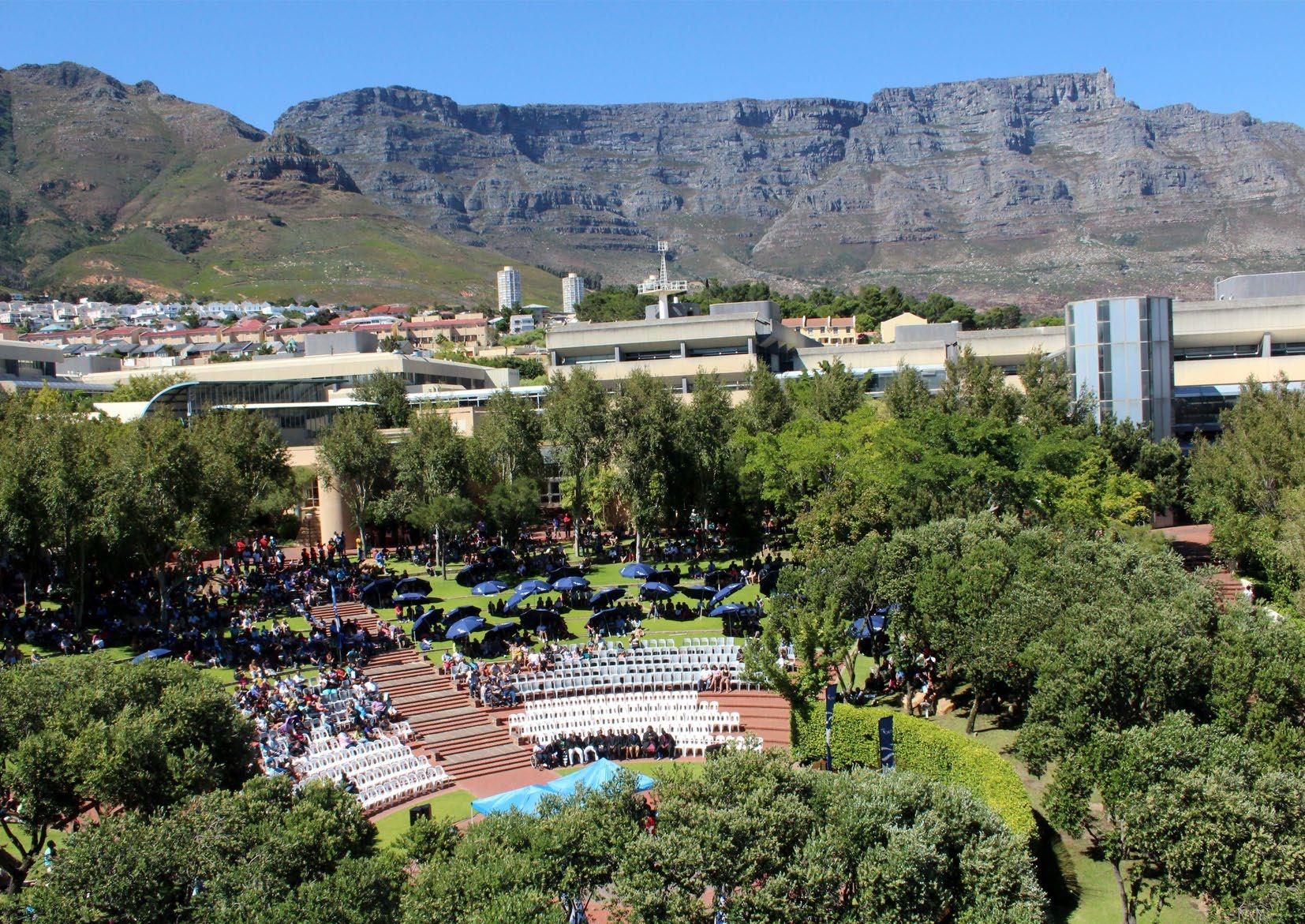
In addition, the Faculty played a key role in successfully hosting the Eighth International Conference of the U6+ Consortium of African Universities (10-12 September), which was attended by about 150 delegates from 22 Institutions from 5 countries. The conference brought together diverse experts from across the African continent who engaged in seeking solutions to sustainable development and transformation.
As we
Implementing CPUT’s AI Practice Guide for students:
The university has developed a very useful AI Practice Guide for students (ranging from novices to experts), which is designed to create an environment of ethical and enabling AI use.
Built into the Practice Guide is a growing Prompt Library, which is a space to co-create prompts for all university users.
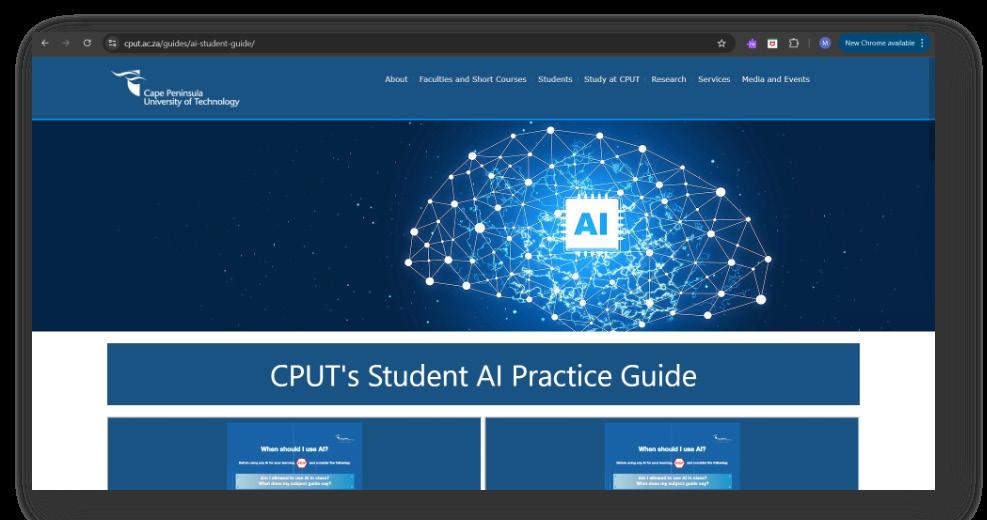
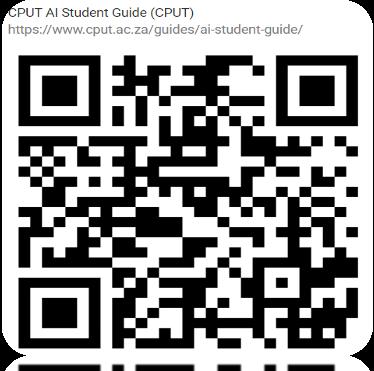
The Faculty’s own AI Portal:
In addition to the University’s AI Practice Guide, the Faculty also hosts its own AI Portal for staff members to explore the various platforms that are especially relevant to improving their pedagogies. This portal also includes a Prompt Library which can be used for a growing range of uses.
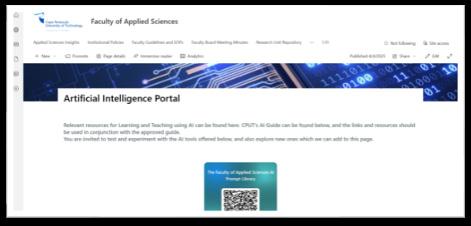
Linked to the Practice Guide and the Faculty’s AI Portal, we conducted several workshops to cultivate good practice and effective use or these resources. Some of these workshops, in which activities were developed around the resources available through such platforms, are listed below.
Building the Capacity for effective AI Use across the Faculty:
As an ongoing exercise to widen capacity and broaden academic development in response to new and emerging challenges, the Faculty ran several capacity development workshops during 2024, some of which are presented below:
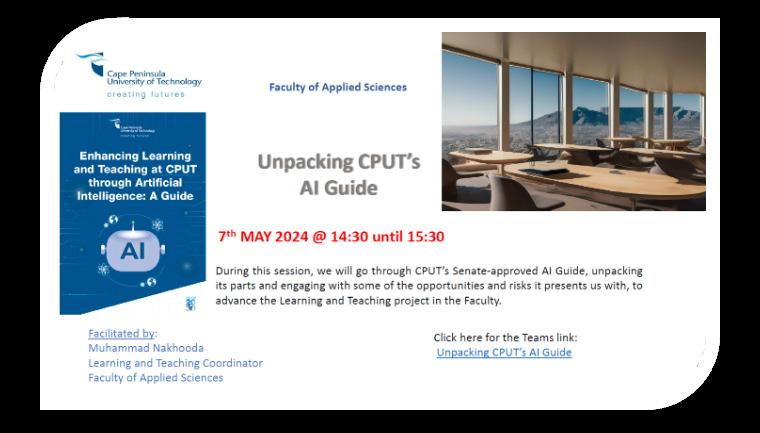
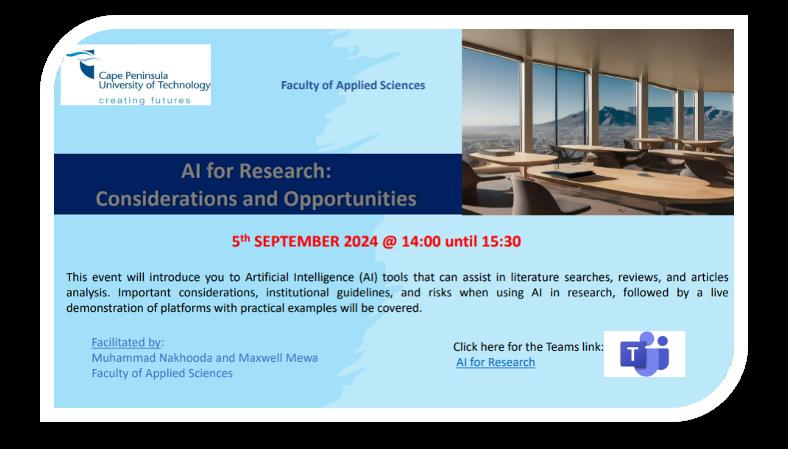
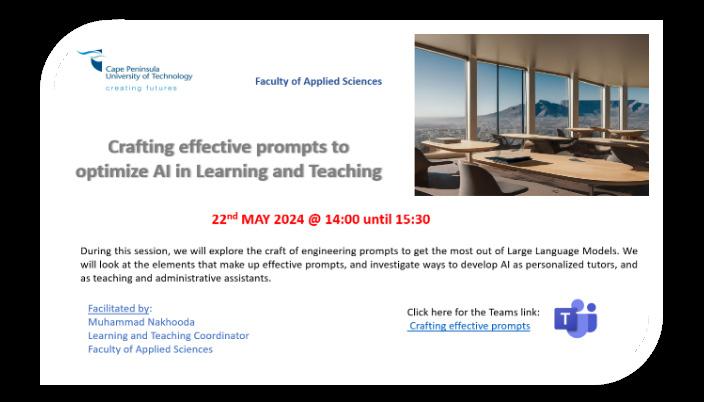
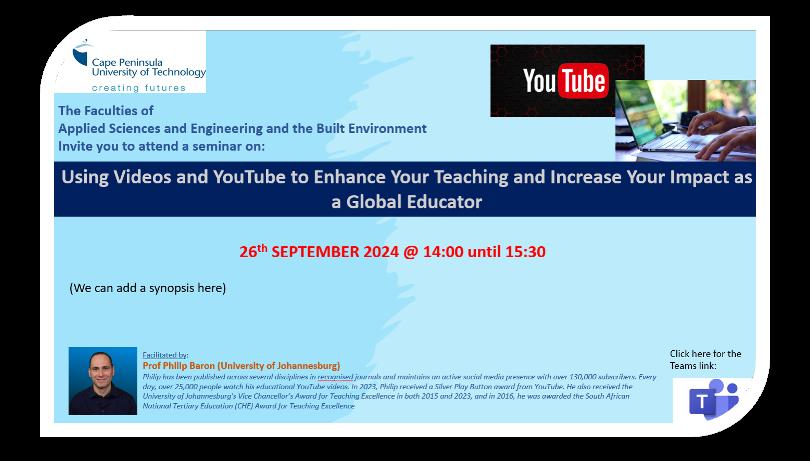
On reflection, 2024 stands out as a testament to the Faculty’s commitment to excellence and innovation across its core functions. The diverse achievements in learning and teaching, research, and engagement underscore the Faculty’s significant contributions to both the academic community and wider society. The emphasis on collaboration, both internal and external, has enabled a dynamic environment for growth and impact. As the Faculty looks ahead, the momentum of the 2024 academic year will undoubtedly continue to drive its pursuit of creating sustainable, inclusive, and impactful futures, solidifying its position as a leading Faculty of Applied Sciences in Africa.

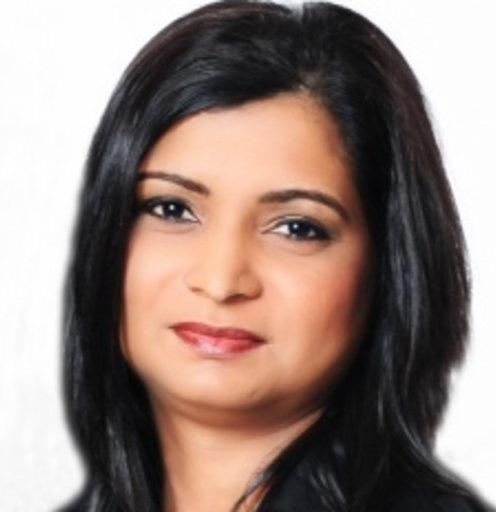
Prof Renitha Rampersad Acting Dean of the Faculty
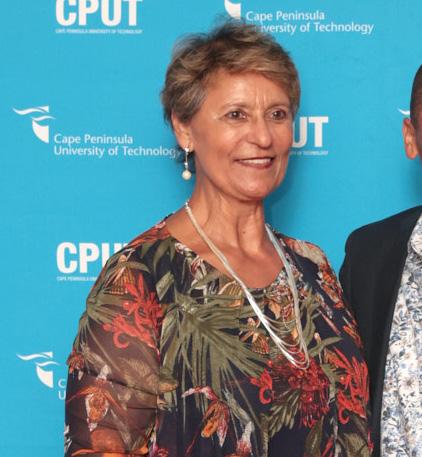
Prof Desireé Scholtz Assistant Dean: Learning and Teaching
Introduction
This report provides an overview of the activities in the respective portfolios related to learning and teaching in the Faculty of Business and Management Sciences (FBMS). The Faculty’s academic development approach to enable student-centredness for holistic learning and employability was central to the short-term focus areas, as outlined in the FBMS Strategic and Operational Plans. The Learning and Teaching focus areas were strategically and methodically addressed to ensure that staff development aligned with promoting appropriate teaching practices for student-centred learning. As has become customary in the FBMS, Academic Year 2024 (AY2024) was characterised by a number of activities that have become standard over the years, such as the L&T academic development webinars, Heritage Day and the Best Practice Seminar/Webinar, with new additions being the WIL Employers’ breakfast and the SL/CE showcase, amongst others. It is pleasing to note the continued positive developments in WIL/SL and CE in the Faculty, the increased appointments of peer support champions, the continuous academic development support initiatives, the development of the Kampass App and intensified IT co-ordination. The challenges and the need for improvements include working towards 100% WIL student placements and improving the administration of SETA funding for WIL placements, despite the current hard work and dedication of departmental WIL co-coordinators. In addition, a renewed focus on support for ECP (Extended Curriculum Programme) lecturers and all ECPs needs to be implemented. The Community of Practice culture amongst ECP lecturers in the FBMS needs to be revived.
This report includes information on the following focus areas pertaining to learning and teaching in AY2024:
• Learning and Teaching
• Work Integrated Learning(WIL)/Community Engagement (EC)/Student Learning (SL)
• IT Co-ordination
• Extended Curriculum Programme (ECP)
• Language Co-ordination
• Recognition of Prior Learning (RPL)
• Academic Appeals
Appreciation is expressed to the respective FBMS co-ordinators for their dedication to their portfolios and for completing the reports presented below.
Orientation was conducted across the various campuses and Departments and was well attended. The programmes were exciting and innovative. GBV and D6 information sessions, D6 walking tours, activities such as amazing races, campus tours, engagement of Student Affairs and with various internal and external partners, as well as departmentspecific content, provided meaningful insights into the wider campus life and the various Departments. Orientation programmes were also designed and implemented at all levels, including part-time and PG Diploma qualifications. The number of students who attended surpassed expectations. The programmes were well-conceived, and our staff did exceptionally well at welcoming our first-year students. Departmental staff members are commended. Orientation resources will be available online to accommodate those students who could not attend the scheduled sessions. The orientation programme was staggered to include students who registered late, as well as to ensure that sessions on academic support were provided purposefully and at appropriate times.
A summary of student activities includes the following:
• All Departments across the Faculty implemented the CPUT101 project during the year with selected modules integrated into a relational subject. Modules, such as GBV, Emma Sadlier social media developing digital footprint, personal budgeting, preparing for assessments, and academic literacy, developed personal and academic knowledge and skills in a very meaningful manner.
• Despite the late release of the Faculty University Capacity and Development Grant (UCDP) budget, Departments made every effort to ensure that this critical intervention or peer support was implemented across the Faculty. Their hard work is lauded as Departments across the Faculty appointed 15 teaching assistants (TAs), 12 retention officers (ROs), 8 mentors and 145 tutors - thus a total of 180 (mainly tutor) appointments. In support of student learning, the Faculty encouraged multilingualism by promoting peer support and discussions on multilingual pedagogies.
• The Faculty hosted a student-support developmental engagement on Wednesday, 21 August 2024: a webinar with the topic “How to conduct and support peer-topeer learning using multilingualism”. The facilitator, Ms Silulundi Coki (UCT) was engaging, and her presentation was well received. Students appreciated the event, and a more in-depth follow-up session was arranged focusing on tools to equip students to use translanguaging strategies for implementation as peer support champions.
• The Faculty has five Diversity and Inclusivity Champions (DICs) active across the Faculty. The Disability Unit conducted a mini workshop with FBMS on 23 August 2024 to introduce the programme. There is an increased interest among the Departments’ DICs and the intention is that all Departments should have at least one DIC per Department each year.
• On 17 October 2024, class representatives participated in a leadership programme. The event was hosted in collaboration with the District Six Museum. The programme aimed to enhance students’ leadership skills and promote social awareness, reinforcing CPUT’s graduate attributes of relational capabilities and ethical behaviour for meaningful engagement.
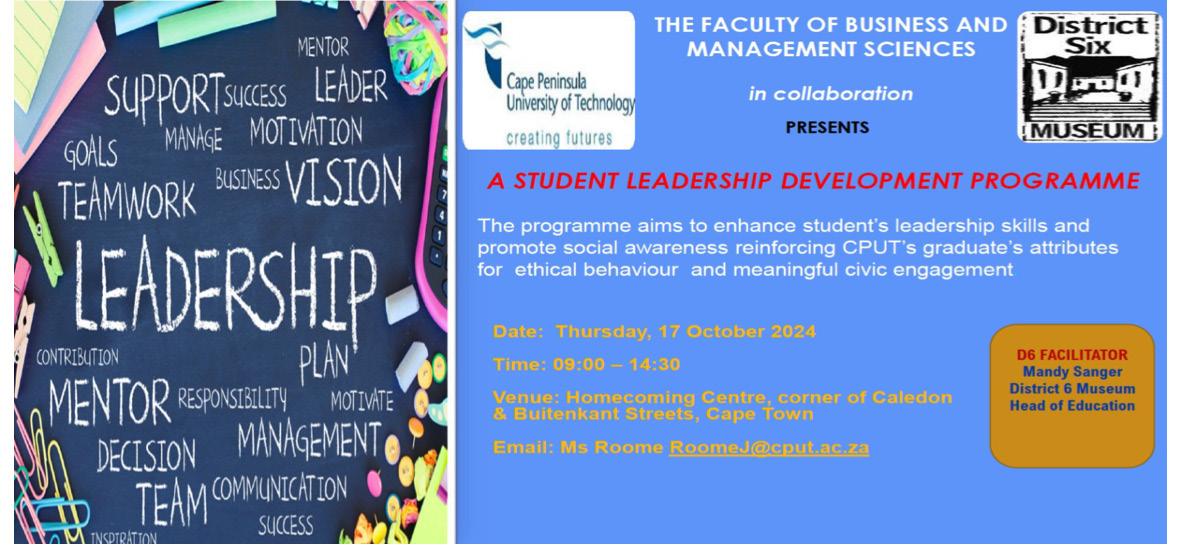
All class representatives received a certificate of participation.
Other student events included:
• Each Thursday in August: the Old Mutual Co-Curricula Financial Literacy project:
• As part of the FBMS Final Year Experience, the Faculty collaborated with Old Mutual to facilitate a MoneyWise project, in which an Old Mutual consultant presented sessions on many aspects of financial literacy, ranging from current student financial literacy practices to future thinking practices for life-long learning and to prepare students for the world of work.
• 14 August 2024: Student Entrepreneurship: The “Art of Pitching”, by SEDA & ABSA, took place first place at the Business Incubation and Innovation Centre (BIIC). “Only Friends Entertainment” was placed second.
• The Entrepreneurship Festival was held on 26 September 2024. (FBMS Market Day)
The Faculty has a structured Learning and Teaching schedule offering opportunities for staff development and capacity building. These sessions were held via MS Teams to accommodate the staff’s varied workload commitments and is an intentional endeavour to keep staff abreast of all curriculum developments. The sessions hosted were:
• 13 March: Student Counselling Guidance for FBMS staff: Facilitator: Ms Leanie Brits, HOD Student Counselling
• 30 April: Graduate Attributes in Curriculum: Facilitators: Dr Norodien-Fataar and Mrs Davids, Curriculum Development Unit, Fundani
• 6 May: AI in the Curriculum: Facilitator: Dr F. Waghid, Fundani Academic Staff Development
• 13 June: PGDIP Review Seminar. Purpose: to review current offerings for improvement and amendment where necessary.
• 18 June and 22 August: ‘New Lecturers Engagement’. Purpose: a platform for new lecturers to build capacity, connect across the Faculty, share concerns and provide support and general guidance regarding learning, teaching and assessment (LTA) expectations. Facilitators: Dr. S. Williams and Prof D. Scholtz
• 31 July: Teaching with Sustainable Development Goals in Curriculum
• 26 August: Imperatives for setting assessments in HE
• 3 September: Teaching with Case Studies
• Learning and T Portfolio Development Series (1,2,3&4): Focusing on the purpose of portfolios and developing a teaching philosophy statement by academic staff
• SharePoint training for site owners and departmental secretaries
Other notable activities:
• The Faculty hosted its Annual Achievers Awards on 8 March at the CTHS. Prof. Rodney Duffett received the Faculty Teaching Excellence award.
• 8 August: Women’s Day Event at CTHS under the theme #RadiateResilience: Revitalise Your Spirit, Rejuvenate Your Mind & Rebalance Your Soul
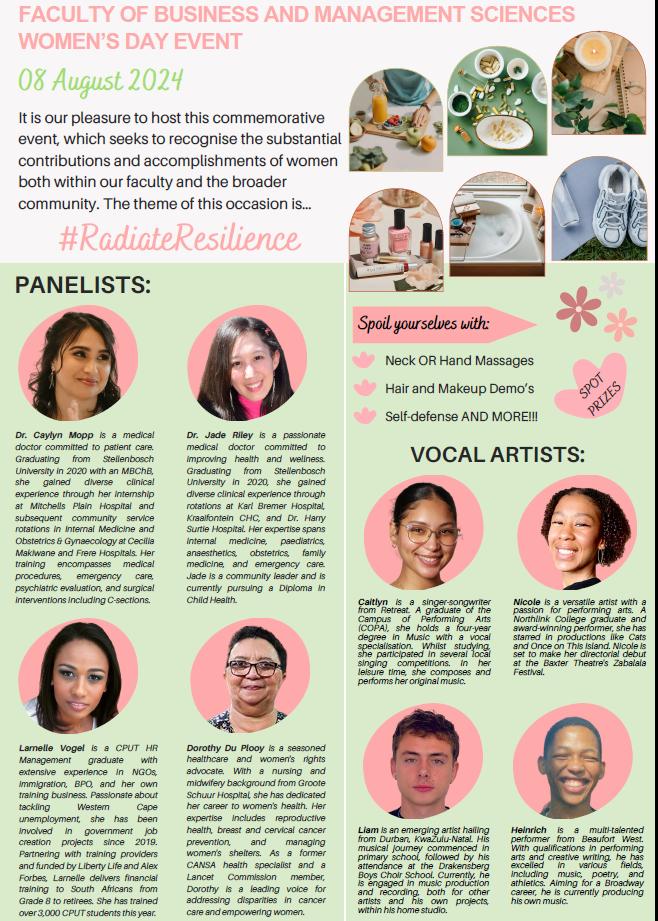
• 30 October: Best Practice Seminar under the theme ‘Breaking Barriers: Shaping Narratives and Futures. The event was a celebration of staff innovation in their endeavour to deliver relevant, responsive and current curricula. The event brief and programme are included.
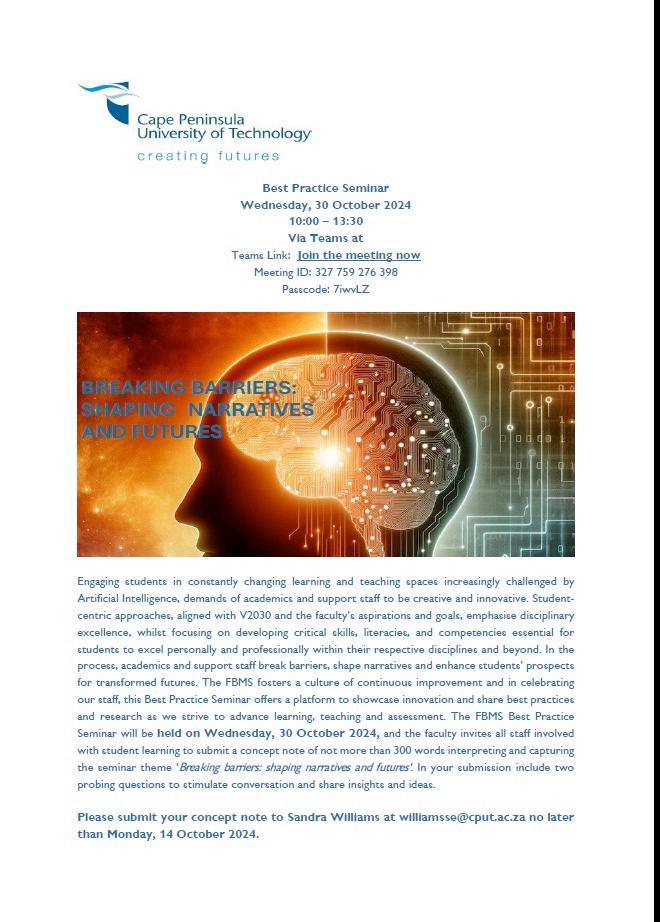
• Two staff members are certified academic advisors (AA) (Dr Dube and Dr Onojaefe) and, together with the Fundani AA, Lwando Mampunye, the Faculty implemented the AA project. Although this project was widely shared across the Faculty and an electronic booking system was implemented, the uptake was slow. The academic advisors are encouraged to devise strategies to increase awareness and uptake.
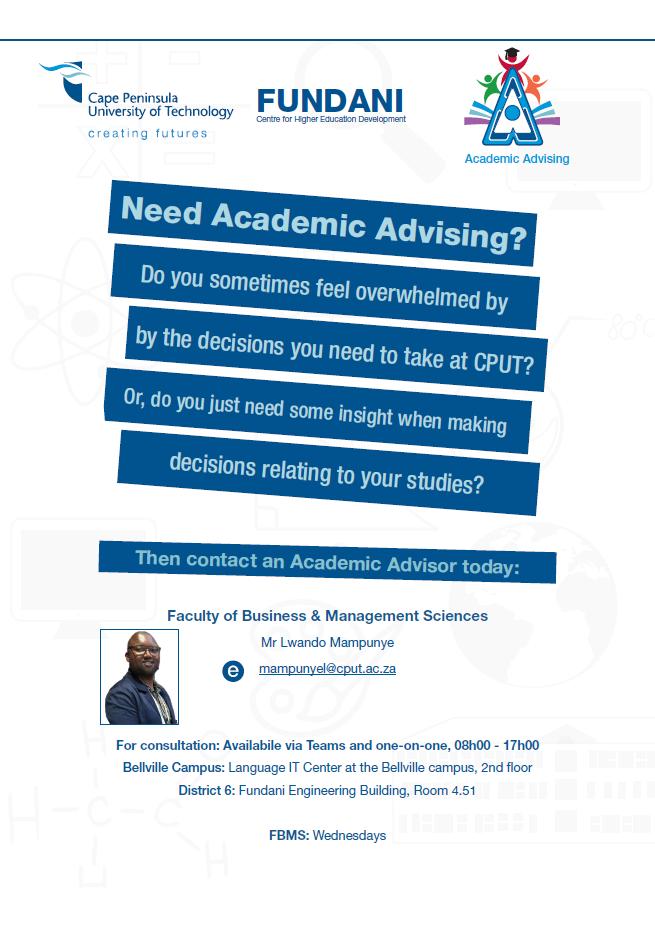
• Generative Artificial Intelligence impacts pedagogy and LTA approaches and practices should align with institutional guidelines and academic standards. All academics and students must be acquainted with these prescripts and to this end:
• Staff and student AI guidelines should be available via LMS. Pertinent sections are to be included in the subject guides and assessments.
• Departmental efforts should include awareness and developmental opportunities for staff and students.
• Learning and teaching representatives and Cos are to lead this endeavour under the guidance of the Faculty and Fundani.
• The FBMS Undergraduate Research Framework is designed as high-impact pedagogy, in which research is the vehicle for learning and teaching. This allows for closer alignment between undergraduate and postgraduate research, as well as for entrenching underpinning research principles for PG research. The framework should be implemented across qualifications and scaffolded between levels to achieve optimal reach and impact. This should be a collaborative, concerted approach in the Department.
There are four vacant departmental WIL Placement Co-ordinator positions that need to be filled within the following Departments: Retail Business Management, Entrepreneurship and Business Management, Management and Project Management, and the Unit for Applied Economics and Real Estate. Additionally, 2025 will see the placement of the first cohort of third-year Banking Diploma students for WIL, with an academic staff member overseeing the programme.Currently, academic staff appointed to these WIL roles split their time between lecturing responsibilities and WIL coordination. Due to time constraints, they are unable to fully dedicate their efforts to the WIL programme. This dual responsibility negatively impacts placement rates in these Departments, as reflected in the WIL placement statistics provided below.
Restructuring certain Faculty programmes to incorporate workplace learning modalities is essential. Currently, the structure of the Diploma in Accounting programme does not accommodate WIL placements. Similarly, in the Applied Legal Studies Department, programme restructuring has shifted WIL to a post-graduate component undertaken a year after graduation, separating it from the qualification itself. These approaches fundamentally alter the integration of WIL within academic programmes, depriving students of opportunities to gain practical workplace experience and apply their academic knowledge in real-world settings.
Although industry involvement is prevalent in certain programmes it can be improved in other academic programmes. It is important to extend the involvement of industry in academic programmes insofar as curriculum development, as well as training workshops and webinars, are concerned. Similarly, finalising MoUs is imperative for students to take cognisance of their responsibilities in work placements, since these MoUs are issued to companies prior to work placements.
In AY2024, the Faculty had accommodated 1602 full-time and part-time students in the work-based placement programme. Eighty-one percent (81%) of the total number of students were placed successfully at different companies. Four Departments, namely, the Cape Town Hotel School (second year), Marketing, Business Information and Administration, and Operations Management Departments, fared exceptionally well and achieved a 100% placement rate. Other Departments achieved excellent placement rates as well, namely, Public Administration and Governance (98%), Human Resource Management (84%), followed by Sport and Leisure Management (76%) and Operations Management (100%). The Retail Business Management Department, the Unit for Applied Economics and Real Estate, and the Entrepreneurship and Business Management Sciences Department experienced challenges in this respect and could place only 50% (maximally) of students, as noted in the placement statistics below:
Marketing
Business Information and Administration
Operations Management
Public Governance and Administration
Cape Town Hotel School
Tourism Management
Human Resource Management
Management & Project Management
Sport and Leisure Management
Event Management
Department of Financial Accounting and Taxation (PGDIP)
Retail Business Management Entrepreneurship and Business Management
Applied
& Real Estate
Students who could not be placed were required to complete a project in lieu of placements. While this was not ideal, a project was considered the last resort if placements were not successful. Although, of the total number of students, only 22% were assigned projects in the Faculty, on a departmental level - 85% of students in the Entrepreneurship and Business Management Department and 92% of students in the Unit for Applied Economics & Real Estate – the percentages were relatively high. Other Departments relied mainly on projects for students to complete WIL.
Marketing
Business Information and Administration
Operations Management
Public Governance and Administration
Cape Town Hotel School
Tourism Management
Human Resource Management
Management & Project Management
Sport and Leisure Management
Event Management
Department of Financial Accounting and Taxation.
Department of Internal Auditing and Financial Information Systems.
Department of Management Accounting
Retail Business Management
Entrepreneurship and Business Management
Business Information and Administration
First-year students within the BIA Department participated in event management, which included planning, organising, leading and controlling fundraising events. This was undertaken on behalf of two registered NGOs identified by the Wellington and District Six students. Such events included public awareness, and the actual fundraising events were marketed by students.
Sport and Leisure Management
Human Resources Management
Diploma students facilitated a project at a designated primary school in Bonteheuwel, where the students trained/coached an identified group of Grade 5 learners in Lacrosse. Prior to the school visits, the Advanced Level students completed practical sessions in the Sport Performance Laboratory, with technical staff in the Department, on key aspects in exercise and coaching techniques. The Service Learning Project was designed together with an NGO, Paradigm Leadership Academy for Youth (PLAY), and the South African ambassador of Lacrosse. The project consists of four phases.
The project educated a community on ways to manage waste and encouraged clean environments. This project aimed to enhance community resilience and promote sustainable living environments (SDG - sustainable cities and communities). Students embarked on projects that promoted sustainable waste reduction, recycling, and resource efficiency to help mitigate environmental impacts and promote sustainable lifestyles within communities.
This is consistent with the SDG of responsible consumption and production. This project promoted sustainable land management, biodiversity conservation, reforestation, and ecosystem restoration to preserve ecosystems and promote biodiversity within communities. This complemented the SDG of life on land. Thus, there was a need for collaboration and partnerships among youth, community organisations, Government, businesses, and other stakeholders to achieve sustainable development goals and drive positive change at the local and global levels. This complemented the SDG of creating partnerships for the goals. Based on the facts discussed, students were required to take part in community clean-up events and embark on waste reduction campaigns.
Public Governance and Administration
Marketing
Operations Management Hotel School ECP (PAG)
Tourism and Event Management
The Tippy Tap project is an initiative of UNICEF and World Vision. The project involves the construction of Tippy Taps within communities where there is limited access to running water and soap for handwashing. This includes constructing a Tippy Tap, which is a straightforward, uncomplicated handwashing facility. The Tippy Tap is constructed using plastic bottles, rope, sticks and soap. Number of Students involved: 8 Volunteers
The project aimed to improve business brands and, therefore, business sustainability. Student groups were expected to take business brands through the 3-step Brand for Success process to audit and improve their brands.
Students in the Project Management class (Advanced Dip. Project Management) identified a need in a community. This ranged from providing matric students with tutoring and assisting them to register at universities, establishing a vegetable garden for elderly and preschool individuals, supplying females at shelters with sanitary pads and other basic needs, to helping the homeless to pay for their stay at a shelter.
The CTHS hosted a project with the Dominican School for the Deaf, which is an underprivileged community, and offered them an experience of “a day at university”. A service learning project was held on Nelson Mandela Day (18 July 2024).
Students visited an orphanage (Baphumele Children’s Home) and donated non-perishable food, essential toiletries and, among other things, engaged the children in activities, such as interactive games and hands-on projects that could excite the children and boost their energy levels.
The Department of Tourism and Event Management, in collaboration with the WCED, participated in a Community Engagement Day and enlightened scholars, who came from over 60 schools within the Cape Metropole and surrounds, regarding study opportunities after their completion of high school.
• 30 Marketing students received extended internships to stay on with the companies and 4 students were offered employment opportunities in 2025.
• Several new partnerships were established: Marketing: 23; Sport and Leisure Management: 9; Tourism and Event Management: 40
• Retail Business Management: 5; Cape Town Hotel School: 7; Management and Project Management: 6.
• Tourism and Event Management signed a 3-year MoU with Iziko Museums, as well as with the Zeits MOCAA Museum.
• The Faculty received CATHSSETA funding for 40 Event Management students for December 2024 to May 2025.
• The Faculty received an allocation for 20 Event Management graduates from CATHSSETA.
• BANKSETA funding of R 14 520 000 was received for 44 BIA students. Each student received R5500/month for 6 months from January until June 2024.
• WIL: Despite efforts made to place students, they often leave their workplaces without proper notification to employers or the departmental WIL Co-ordinator.
• Students are reluctant to work without receiving a stipend
.
• Since companies already contribute towards SETAs they are not keen to pay stipends for student placements and encourage institutions to seek SETA funding.
• The administration required for SETA funding is overwhelming and adds to the workload of departmental WIL co-ordinators.
• CE/SL: Certain schools now mandate student vetting before implementing service-learning projects. This process may take up to two months for approval, with a cost of R85 per student. This requirement could potentially discourage the implementation of service-learning projects in schools.
• A webinar was held on 13 May 2024: “WIL Stakeholder engagement and stakeholder management” which covered aspects of “Best practices and collaboration in stakeholder engagement and stakeholder management”.
• Presenter: Sven Wolf
• A community engagement and service-learning seminar was held on 28 October 2024 during which students presented and showcased their projects.
• A WIL Industry Partnership breakfast was held on 20 November 2024 at the Granger Bay Hotel School to consolidate existing partnerships and to work towards establishing new work-placement partnerships.
• Five modules of the FYE programme will be piloted within the Faculty and integrated into third- year subjects. At the departmental level, subject lecturers were responsible for determining which subjects would be most suitable for integrating any of the FYE modules into their content.
• Legal advice was sought to address student absenteeism from the workplace. The MoAs were amended and forwarded to the legal department for review and input.
• Some of the assessments of WIL modules did not comply with CPUT’s Rules and Procedures for Learning, Teaching and Assessment of 2022. Departments had to review the type of WIL assessments in cases where they did not comply.
Advisory Committee Meetings
Except for the Graduate Centre for Management, Retail Business Management, and Sport and Leisure Management, all Departments held Advisory Committee meetings in 2024 year.
Departments
Accounting Departments
Applied Legal Studies
Business Information and Administration
Entrepreneurship and Business Management
Hotel School
Human Resource Management
Management and Project Management
Meeting dates
Semester 1: 20 May to 21 June 2024
Semester 2: 4 November to 13 December 2024
Minutes received
24 October 2024
31 May 2024
19 July 2024
20 September 2024
Semester 1: Tuesday, 18 June 2024 or Thursday, 20 June 2024
Semester 2: Tuesday, 3 December 2024
8 February 2024
16 April 2024
24 July 2024
17 September 2024
Friday, 17 May
Monday, 28 or Wednesday, 30 October (tentative)
17 May 2024 (confirmed), and 25 October 2024 (proposed date)
Departments
Operations Management
Public Governance and Administration
Unit for Applied Economics and Real Estate
Tourism Management Department and
Event Management Department (combined meeting)
Graduate Centre for Management
Retail Business Management
Sport and Leisure Management
Meeting dates
23 May 2024
26 July 2024
9 December 2024
27 February 2024
August 2024 (tentative)
13 June 2024
31 October 2024
Currently constituting committee
Currently constituting committee
Currently constituting committee
As part of the Vision 2030 initiative, the integration of smart technologies is pivotal for enhancing learning, teaching, and multi-purpose activities. To support this goal, the Faculty of Business and Management Sciences embarked on projects to convert selected lecture venues into laptop-friendly spaces and refurbish various study areas to create hybrid learning environments. These upgrades aimed to facilitate a blend of online and traditional in-person learning while improving the overall student and staff experience.
An inspection of all lecture venues and computer labs within the Commerce and Engineering buildings was conducted. This assessment identified the functionality of projectors and projection screens, and a detailed report was submitted to the FBMS Faculty Manager for further action.
In response, the Faculty procured 11 projectors and 7 screens to upgrade various lecture venues and labs. Unfortunately, three units were stolen, and reports were subsequently filed with the Security Department. Discussions regarding the upgrades of C2.58 and the SAP lab began in the second semester of 2024, with full implementation planned for 2025. The faculty is currently determining whether devices should be installed in all lecture venues and labs, prioritising those with the greatest need. Final decisions will depend on CAPEX budget approvals and allocations.
During the first semester, software requirements for computer labs were communicated to and verified with Mr Shadley Schloss. Imaging processes commenced during the term holidays. However, software requiring separate licences was not installed due to budget constraints, and academic staff were notified accordingly. The latest version of Office 365 is in use, but concerns have been raised regarding the additional licensing costs for certain add-ons. CTS has indicated their inability to fund these fees due to financial constraints, rendering the Faculty unable to meet certain programme requirements. Discussions are ongoing to find alternative solutions.
To address campus navigation challenges, the Faculty developed Kampass, an innovative mobile application aimed at improving efficiency and accessibility at CPUT. Key features include:
• Class Attendance Tracking: Real-time check-ins and attendance monitoring for students
• Real-Time Notifications: Instant updates on campus events and announcements
• Indoor Navigation: Detailed maps and step-by-step directions to classrooms, lecture halls, and offices
This application enhances the academic and operational experience of students, staff, and visitors.
The Vision 2030 strategy depends on a robust ICT infrastructure to support hybrid teaching, learning, and operational efficiency. While the Faculty has made significant progress in upgrading lecture venues, modernising computer labs, and innovating with the Kampass app, several challenges persist: particularly funding limitations and delays caused by third-party dependencies.
Despite these hurdles, successes include improved communication within the Faculty and support departments, partial lab upgrades, and the development of the Kampass application. Continued collaboration and strategic prioritisation will be essential to achieving the envisioned SMART CPUT environment.
During the first semester, software requirements for computer labs were communicated to and verified with Mr Shadley Schloss. Imaging processes commenced during the term holidays. However, software requiring separate licences was not installed due to budget constraints, and academic staff were notified accordingly. The latest version of Office 365 is in use, but concerns have been raised regarding the additional licensing costs for certain add-ons. CTS has indicated their inability to fund these fees due to financial constraints, rendering the Faculty unable to meet certain programme requirements. Discussions are ongoing to find alternative solutions.

ECP in the FBMS held a successful learner guide workshop on 22 January 2024. The main purpose of the workshop was to distinguish the ECP Subject Guide from the Mainstream Subject Guide.
The following were the objectives of the workshop, but not limited to:
1. To create a safe interactive environment to nurture new ideas from lecturers
2. To produce new innovative ways to make ECP SG more user-friendly 3. To foster interest in and assistance with more open and related collaboration among lecturers.
• A great deal of work can be done at faculty level, such as mini-engagements, mentoring, and discipline ECP best practices.
• The office of the ECP coordinator has not successfully implemented a developmental plan for ECP lecturers to enhance the professional skills and teaching strategies of ECP staff, to ensure that they are well-equipped to deliver an effective ECP program.
Language co-ordination focused largely on multilingualism, the concerns with regard to being exclusionary with code-switching, and providing feedback to the institutional Language Forum under the auspices of Fundani and the Senate Language Committee, chaired by the DVC L&T. As noted in the L&T report, the student discussions on how to use multilingualism in tutorials were joint projects between L&T and language coordination.
The Faculty Academic Writing Guide was revised to include a section on AI and plagiarism, after which it was translated into Afrikaans and IsiXhosa. This is a first for the FBMS. In addition, the academic writing guide has been submitted for a digital colour upgrade. This is a UCDG project and should be completed in AY2025. Faculty Language Committee members are the custodians of the Academic Writing Guide – as such, all translated copies were shared with Language Committee members to forward to all staff in Departments.
Discussions on language development across the curriculum and content revision for communication in the FBMS are ongoing. The Faculty language co-ordinator, as part of the Senate Language Committee, contributes to discussions on institutional name changes to the three official languages in the Western Cape.
The FBMS has the largest number of RPL applicants at CPUT and is the only Faculty with a RPL Committee, consisting of RPL Facilitators from each Department, who facilitate RPL applications. Applications are mainly for access to qualifications and for exemption of subjects. The Faculty has a dedicated RPL administrator supporting the Committee in its work. The RPL Committee members work collaboratively as a community of practice to develop access tests, to facilitate portfolio development, to discuss RPL cases presented to the committee, and to approve RPL applications before submission at Faculty level and, finally, to SENEX for approval.
summary of AY2024 RPL approvals for registration in AY2025 is presented as follows:
According to institutional promotional rules, students are academically excluded if they do not meet minimum requirements to be promoted from one year to the next. Students who are academically excluded may apply to be accepted, by submitting appeal applications to the Department. The departmental appeal panel reviews all submissions before forwarding the list of excluded students to the faculty office for review by the faculty appeals panel. The faculty panel is chaired by the Ass. Dean (L&T), with the Faculty Manager, the SRC representative and the HoD in attendance. The faculty appeals take place over two days, with an additional day for late submissions if this is required.
Departments accept most students, leaving only those who have been previously excluded or who have been in the system for several years, to be tabled at the faculty appeals panel. The departmental and Faculty’s academic appeals processes align with the institutional requirements. The statistics below, provide a snapshot of the number of students who were excluded overall in 2024 3038. Academic appeals apply to all students in diploma, degree, advanced diploma and postgraduate diploma programmes.
Business Information & Administration
Cape Town Hotel School
Entrepreneurship & Bus Mngt
Financial Accounting & Taxation
GCM
Human Resources Management
Internal Auditing & FIS
Management & Project Management
Management Accounting Marketing Operations Management Paralegal
Departments are requested to track the progress of students who were accepted on academic appeals to further track trends in whether academically excluded students succeed and graduate at the end of their studies. In an attempt to showcase the FBMS qualifications and how alumni have used qualifications to further their careers, the Faculty launched its first Alumni publication ‘#myFBMS Alumni Connect’ on Wednesday, 24 July 2024, at the CTHS. The first edition was the realisation of a vision to showcase FBMS programmes and to connect with our alumni. The launch was a special celebration and well attended by alumni, staff and media. Alumni showed great interest and the intention is to publish ‘#myFBMS Alumni Connect’ annually.
The FBMS has successfully addressed and provided capacity building for the L&T short-term goals (2021-2023) which were reviewed and consolidated in 2024. Addressing these short-term goals will be on-going since these are strategic objectives that align with Focus Areas 2 and 7 of V2030 and are intrinsic to L&T.
The short-term goals were addressed by all Departments in the FBMS, but were not necessarily achieved – hence the need to continue with the pursuit of providing support and engaging in continued discussions in these focus areas:
• Curriculum renewal
• Improving subject guides
• 21st century skills in curriculum development.
• Graduate attributes in curriculum content.
• Undergraduate research as high impact pedagogy
• SL/CE/COIL as high impact learning experiences
Given the numerous faculty and departmental discussions, faculty staff should be familiar with these short-term goals and how to work towards achieving them.
The Development for medium-term L&T goals (2025 – 2027) and long-term goals (2028-2030).
This will be a strategic focus area for the Faculty in which to design, workshop and develop capacity in order to achieve these goals.
AI will be infused in all academic, professional and personal activities. How this is navigated in the academic space will remain an important agenda item in the higher education landscape.
Following on from discussions held regarding PGDIP programmes, there is a need to revise certain PGDIP offerings in terms of subjects, content and, more importantly, learning and teaching methods, as well as the mode of delivery. This project needs to continue, with Departments working collaboratively to find solutions to common areas of discussion. Certain programmes have no vertical progression pathways for students; for example, the Diploma in Real Estate and the Bachelor Degree of Paralegal Studies do not have vertical progression pathways for academic or career progression. Curriculum development of new programmes needs to be prioritised in AY2025.
Learning and teaching in Higher Education remains an exciting space to traverse. For example, the fluid nature of knowledge, the changing workplace and workspace landscape, AI and greater focus being placed on ethics of care and wellness, provide a great many opportunities for the FBMS to explore focus areas for medium-term and long-term goals.
The need for staff to remain current regarding subject content, teaching methods and workplace trends is imperative; otherwise students might well not be employable. Collective wisdom and collaboration of minds has always proved to be advantageous in providing leadership at faculty level regarding learning, teaching and assessment.

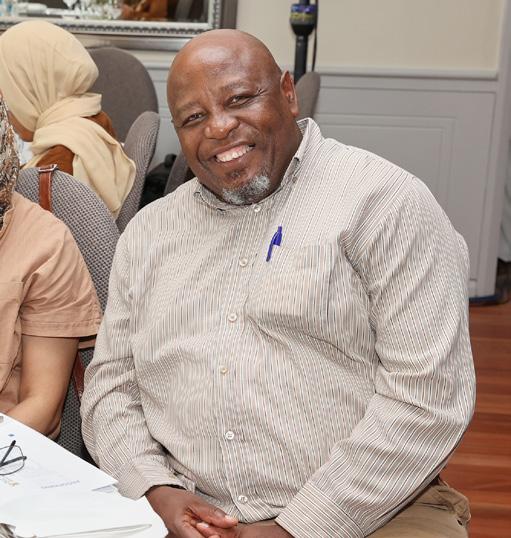
Prof Andile Mji Dean of the Faculty

Prof Hanlie Dippenaar Assistant Dean: Learning and Teaching
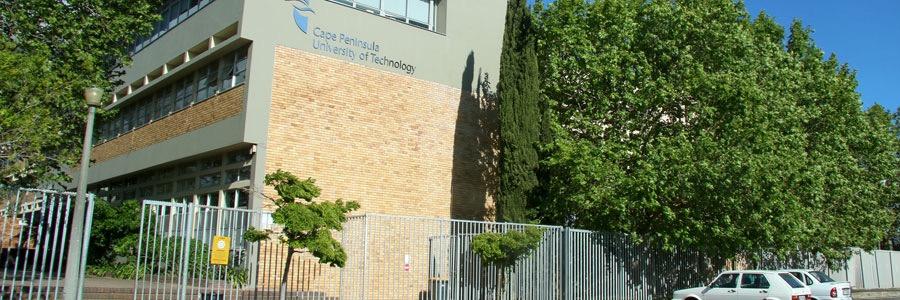
Introduction
The Faculty of Education is spread over two campuses. One campus is an inner-city campus situated in Mowbray which attracts many students from the greater Cape Town area, as well as other provinces, especially Eastern Cape, Limpopo and KZN. The language of instruction on the Mowbray campus is English. The other campus is a rural one situated in Wellington, about 70km outside Cape Town and the language of instruction on this campus is predominantly Afrikaans.
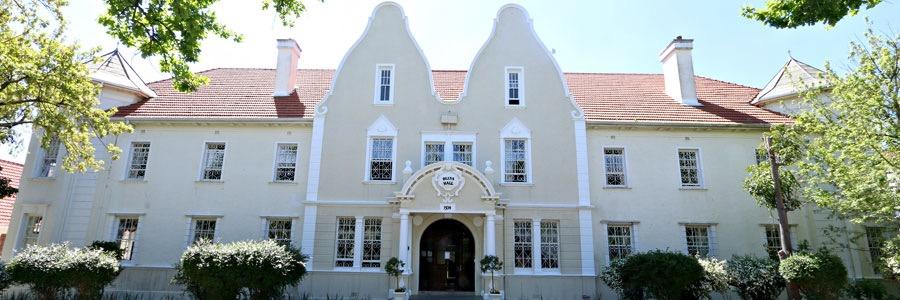
As we, as a Faculty, reflect upon the academic year of 2024, we take pride in the remarkable progress we have made in our collective pursuit of excellence in teaching and learning. Under the overarching CPUT theme of “Creating Futures”, this report highlights the diverse initiatives and achievements that have shaped the educational landscape within our institution. In our commitment to staying abreast of pedagogical advancements, the Education Faculty was at the forefront of activities which explore emerging trends and innovative practices in teaching. These activities served as catalysts for innovative, transformative and technologically advanced discussions, leading to the implementation of new strategies aimed at enhancing the learning experience for our students and staff. Outlined in this report are the details of our achievements, challenges, and future aspirations, as we continue to shape the future of education and empower generations to come.
• The Faculty of Education strengthened global ties through impactful collaborations: The THENSA Entrepreneurship Educators Programme (TEEP) collaborated with JAMK University, Tampere University and Munster Technological University to develop a Coaching and Mentoring Module. A pilot Train-the-Trainer workshop was held in January 2025. Dr Tanja Coetzer led the NRF-funded Foundation Phase Unplugged Coding Project, integrating computational thinking into early education.
Various educational initiatives, including entrepreneurship education, STEM integration, digital transformation, and blended learning were implemented. Developed interactive language games for Grade 6 learners, introduced unplugged coding in teacher training, and incorporated AI in assessments for ethical technology use. Dr Coetzer gave a presentation on mathematical pedagogy at the BERA/WERA Conference (UK). Three Faculty members received Teaching Excellence Awards, including Prof. Pieter Boer.
Hands-on learning and student empowerment were central to 2024 initiatives. Workintegrated learning (WIL) programs at under-resourced schools, tutoring programmes, and student projects have impacted over 500 learners, secured R96,000 in ETDPSETA funding, and fostered creativity and curriculum alignment. Oral presentation assessments in MEF471 were recorded and moderated externally, enhancing accountability.
The Faculty advocated for student-teacher safety at high-risk schools through virtual evaluations and stipend increases for evaluators, as well as mandated police clearances for school placements, aligning with WCED’s revised policy framework.
Community engagement programmes at under-resourced schools, tutoring programs, and student projects have impacted over 500 learners, secured R96,000 in ETDPSETA funding, and fostered creativity and curriculum alignment.
The Faculty deepened its commitment to societal upliftment by: donating clothing and toiletries to Steinthal Children’s Home and partnering with Capitec Bank to deliver financial literacy workshops for students.
Investments in staff growth and governance yielded tangible outcomes: Dr Cisca de Kock completed the CHEC Advancing Scholarship Programme and Sisonke Postgraduate Supervision Course. Five Faculty members progressed toward PhD completion, strengthening research output. The Faculty revived the Faculty Advisory Board to guide curriculum reviews and harmonised subject guides and graduate attributes (GAs) across campuses.
Improved student engagement during teaching practice (TP) sessions, with proactive feedback-seeking and application of insights to lesson planning, was prioritised. Collaborative presentation at the WCED Provincial Subject Committee meeting highlighted systemic challenges in mathematics education. The committee has prioritised the creation of mathematics workshops that target IP3/IP4 students in order to build their confidence and provide practical teaching strategies. The committee has also started implementing video-based self-reflection and peer feedback sessions to deepen critical analysis of teaching practices.
It should also be reported that 2024 saw the successful integration of technology in lessons, including PowerPoint, educational videos, and digital tools to enhance learning experiences. In collaboration with CIET, digital literacy programmes are planned to further expand training on advanced digital tools and promote ethical AI integration. The need to develop resources to help students deliver lessons in both IsiXhosa and their second language was identified; hence the adoption of a Dual-Language Teaching Framework to support IsiXhosa mother-tongue instruction and ensure equitable evaluation is explored.
The Faculty could record increased student participation in community projects, including TP placements in high-risk schools and correctional facilities, as well as the establishment of a Comprehensive Student Database to track placements and progress over the four-year TP programme. The challenges identified are logistical barriers, such as transportation issues in gang-prone areas for students residing on campuses, as well as delays in appointing tutors and mentors due to funding constraints.
Retention officers (ROs) were appointed to assist with administrative tasks for FYE . Fun activities were organised. Students provided feedback on their practice teaching experience and discussed issues within their mentor groups. This session was informal and students participated enthusiastically.
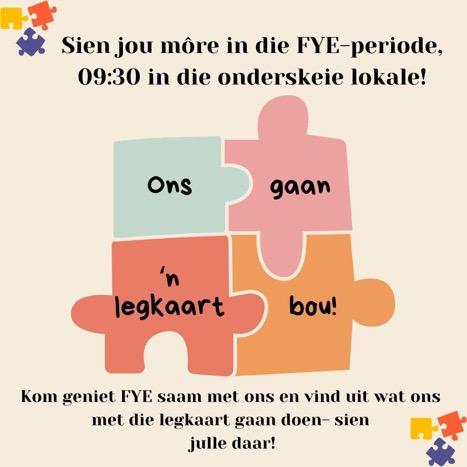
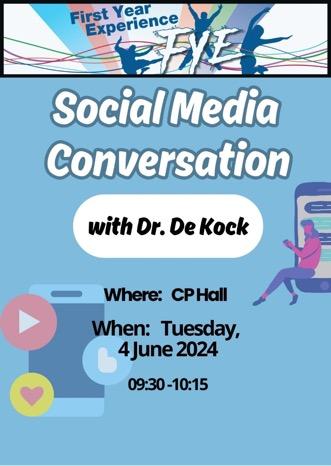
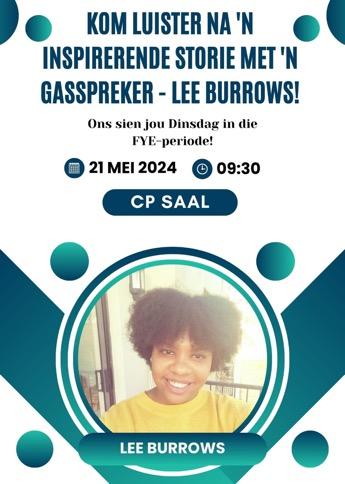
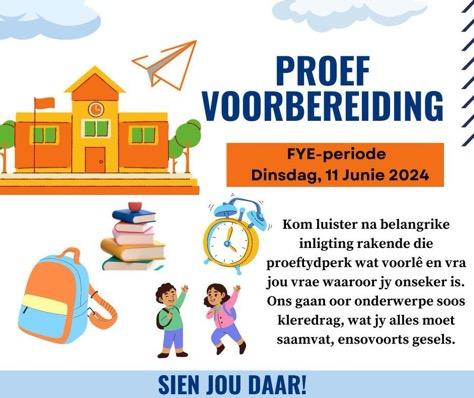

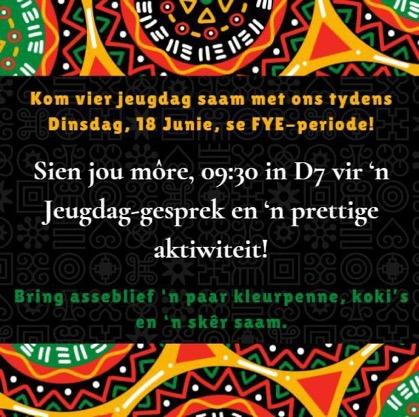

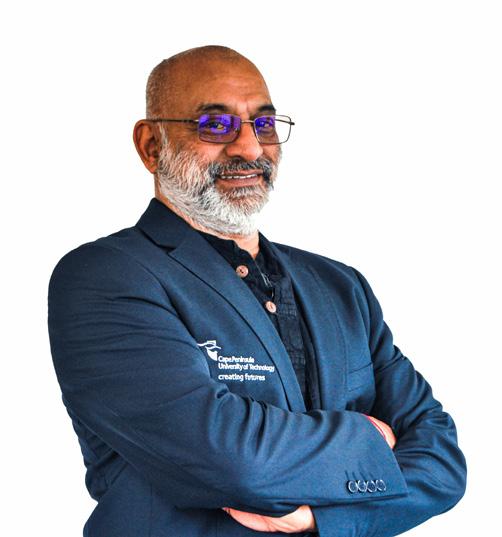
Prof Suresh Ramsuroop
Dean of the Faculty Assistant Dean of the Faculty
Faculty Vision
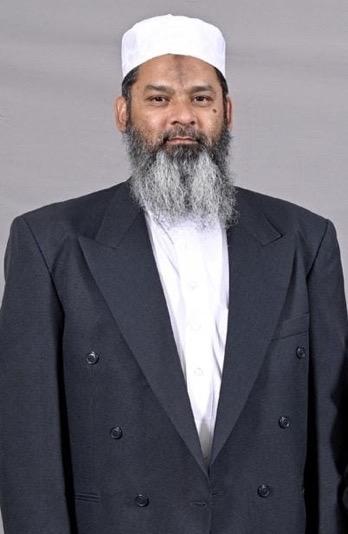
To be a leading Faculty in engineering and the built environment that advances knowledge through science, technology, and innovation for the benefit of society.
The Dean of the Faculty: Prof Suresh Ramsuroop
Prof. Suresh Ramsuroop was appointed Dean of the Faculty of Engineering and the Built Environment in December 2023, after having served as Acting Dean since September 2022 and as Assistant Dean of Teaching and Learning from April 2021. Prof. Ramsuroop holds a PhD in Chemical Engineering and has over 33 years of industrial and academic experience. Prof. Ramsuroop continues to engage in and promote academic excellence, as well as uphold high professional standards to underpin research and teaching in the field of engineering. He has been actively involved in various national and international professional activities that directly contributed to chemical engineering education and the profession. He currently serves on several working committees at the Engineering Council of South Africa (ECSA), including the generation of the new suite of engineering qualification standards for SA, the accreditation of national and international engineering programmes, and is presently the chairperson of the task team for the national implementation of the new legislation on Identification of Engineering Work (IDoEW). Prof. Ramsuroop is a registered Professional Engineering Technologist with the Engineering Council of South Africa (ECSA) and is a registered Chartered Engineer with the Engineering Council of the UK (ECUK). His current research interests include Computational Chemical Thermodynamics, Process Synthesis and Design, and Engineering Education.
Faculty Mission
To be a self-sustaining Faculty that is responsive and relevant; environmentally conscious; renowned for its innovation in teaching and learning, research, and technological development; and produced graduates that contribute to society.
Prof. Mujahid Aziz was appointed Assistant Dean of Learning and Teaching in the Faculty of Engineering and the Built Environment (FEBE) in July 2024 after having served as Acting HOD in the Department of Chemical Engineering. Prof. Aziz holds a PhD in Chemical Engineering and offers over 25 years of industrial and academic experience. He is a transformational educator who actively engages with students’ diverse needs and abilities to cultivate research and develop future professionals in the core disciplines of Engineering and Technology. As Assistant Dean of Learning and Teaching, he strategically advances academic excellence by integrating professional standards that elevate pedagogical practices in engineering.
He has designed and taught multiple undergraduate and postgraduate courses, successfully supervising over 100 postgraduate students (85 Honours, 18 Master’s, and 1 Doctoral). His research contributions include publications in DHET-accredited journals, WRC technical reports, and conference proceedings. Prof. Aziz’s leadership experience extends across key institutional and national platforms. He currently serves as a member of the Institutional Forum (CPUT-IF) and Trustee of the Retirement Fund Board (CPUT-RF). He previously held a board position at the Southern African Institute of Mining and Metallurgy (SAIMM). His influence in engineering is further recognised through his membership in ECSA, SAIMM, WISA, SASEE and SAIChE. Prof. Aziz is a National Research Foundation (NRF) reviewer and grant holder.
Learning and Teaching Coordination of Faculty
The eight Departments in the Faculty are supported by a committed and enthusiastic team of Faculty coordinators. These are a Learning and Teaching Coordinator, a Language Development Coordinator, an Extended Curriculum Programme (ECP) Coordinator, an IT Coordinator, a Work-Integrated Learning (WIL) Coordinator and a Student Engagement Coordinator. In addition to these coordinators, the Faculty is assisted by departmental Teaching and Learning representatives, as well as representatives from the Fundani Centre for Higher Education Development (CHED), and the Library.
The Faculty coordinators
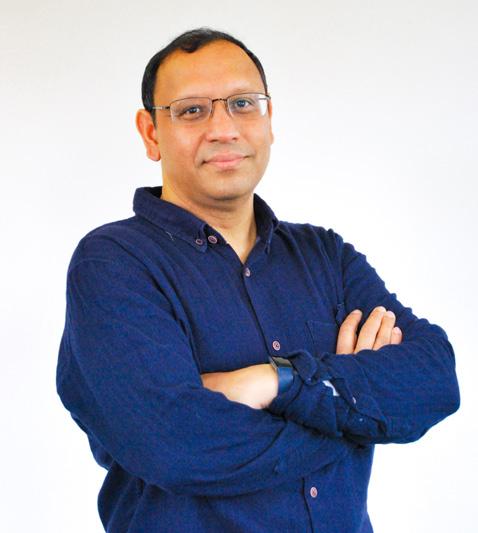
Dr Joe John ECP Coordinator
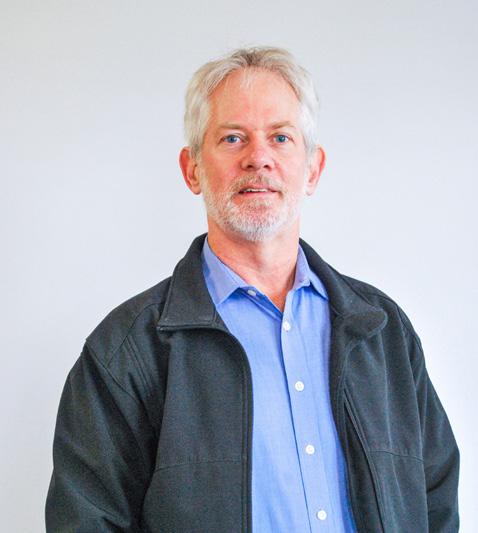
Mr David Evans IT Coordinator
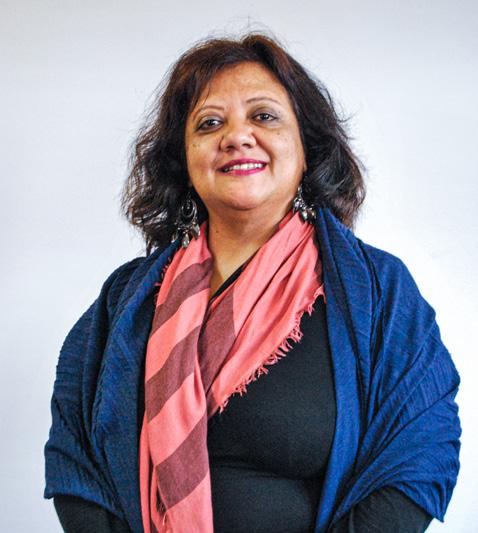
Ms Ayesha Reiners Language Coordinator
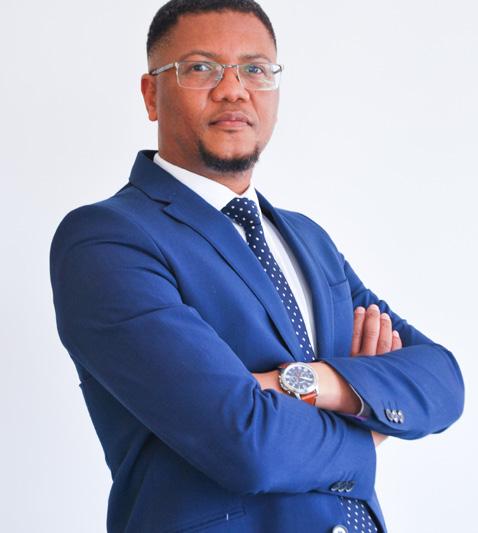

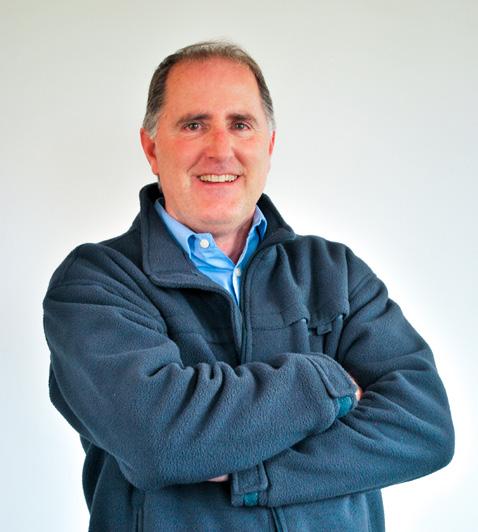
Engagement Coordinator
Swartz Learning and Teaching Coordinator
WIL Coordinator
The Faculty is one of six faculties and the second largest within CPUT, and approximately 9000 students registered in 2024. The Faculty consists of eight departments operating over three campuses (Bellville, District Six and Granger Bay) and has approximately 200 academic and research staff supported by 100 technical and administrative support staff.
The Faculty offers over 50 HEQSF aligned qualifications which include diplomas, advanced diplomas, degrees, honours degrees, postgraduate diplomas, master’s and doctoral degrees. It covers a broad range of Engineering, Built Environment, and related disciplines, which are summarised below:
Department of Chemical Engineering (DChE), Diploma, Advanced Diploma, Bachelor in Engineering Technology, Bachelor in Engineering Technology (Honours), Master’s and Doctoral qualifications in Chemical Engineering
Department of Civil Engineering and Geomatics (DCEG), Diploma, Advanced Diploma, Bachelor in Engineering Technology, Bachelor in Engineering Technology (Honours), Master’s and Doctoral qualifications in Civil Engineering Diploma and Bachelor in Geomatics and Geomatic Information Systems (GIS)
Department of Clothing and Textile Technology (DCTT), Diploma, Advanced Diploma, Postgraduate Diploma qualifications in Clothing and Textile Technology
Department of Construction Management and Quantity Surveying (DCMQS), Diploma, Advanced Diploma, Postgraduate Diploma qualifications in Construction Management, and Quantity Surveying
Department of Electrical, Electronic and Computer Engineering (DEECE), Diploma (DET), Bachelor in Engineering Technology, Bachelor in Engineering Technology (Honours), Master’s and Doctoral qualifications in Electrical and Computer Engineering
Department of Industrial and Systems Engineering (DISE), Diploma, Advanced Diploma, qualifications in Industrial Engineering, Advanced Diploma in Quality, Postgraduate Diploma and Master’s in Engineering Management
Departments of Maritime Studies (DMS), Bachelors in Nautical Science and Bachelors in Marine Engineering
Departments of Mechanical Engineering and Mechatronics (DMME) Diploma, Advanced Diploma, Postgraduate Diploma, Master’s, and Doctoral qualifications in Mechanical Engineering Diploma and Advanced Diploma in Mechatronic Engineering Advanced Diploma in Mechanical Engineering in Renewable Energy
The majority of the above-listed qualifications are professional qualifications that are accredited by various statutory professional bodies. These include the
• Engineering Council of South Africa (ECSA) (20 qualifications),
• South African Geomatics Council (SAGC) (4 qualifications)
• South African Maritime Safety Authority (SAMSA) (2 qualifications)
• South African Council for Quantity Surveying Professions (SACQSP) (2 qualifications)
• South African Council for the Project and Construction Management Professions (SACPCMP) (3 qualifications)
The table below presents data regarding the graduation rates in various Departments within the Faculty of Engineering and the Built Environment (2019 – 2024).
Faculty Of Engineering And The Built Environment
Chemical Engineering
Civil Engineering & Geomatics
Clothing & Textile Technology
Constr Man & Quantity Survey
Electr, Electronic & Comp Eng
Industrial & Systems Eng
Maritime Studies
Mechanical And Mechatronic Eng
Grand Total
Between 2015 and 2024, the Faculty of Engineering and the Built Environment successfully accredited 34 new programmes with the CHE and registered them with SAQA. These programmes, aligned with the Higher Education Qualifications SubFramework (HEQSF), were developed to replace Category C non-aligned HEQSF qualifications. All new HEQSF-aligned programmes underwent external review by the DHET accreditation by CHE, and subsequent registration with SAQA.
Throughout 2024, the Faculty of Engineering and the Built Environment (FEBE) implemented a wide range of initiatives aimed at transforming our curriculum in alignment with Vision 2030. These efforts were geared toward enhancing the learning experience for both students and staff. By fostering collaboration through joint projects and promoting professional growth, we have worked to cultivate an inclusive academic environment— one that not only celebrates diversity but also empowers individuals to realise their full potential. The following section of the report highlights key accomplishments achieved during 2024, spotlighting significant professional development initiatives and transformative projects that reflect our Faculty’s commitment to continuous improvement. These activities form part of our broader pursuit of academic excellence and societal relevance, underscoring our dedication to impactful scholarship and innovation.
A central focus of our efforts in 2024 was curriculum renewal. We introduced a series of innovations designed to embed critical skills aligned with the Fourth Industrial Revolution (4IR), digital literacy, and contemporary pedagogical approaches. These included the development of forward-looking academic programmes and the strategic integration of digital tools into the curriculum. At the same time, we prioritised the enhancement of the quality of teaching and learning. Targeted professional development workshops, particularly those focused on digital pedagogy and CPUT’s graduate attributes, played a vital role in equipping staff to deliver on this vision.
As part of our commitment to sustainable recurriculation, the Change Makers workshop for the Department of Maritime Studies (DMS) was held 28–29 November 2024, with partial funding from the Innovative Engineering Curricula (IEC) team. This team-building intervention was designed to prepare the Department for curriculum renewal. Building on the success of this initiative, similar workshops are planned across the Faculty in 2025, beginning with sessions for the Deanery and Heads of Department to ensure strong leadership support for the process.
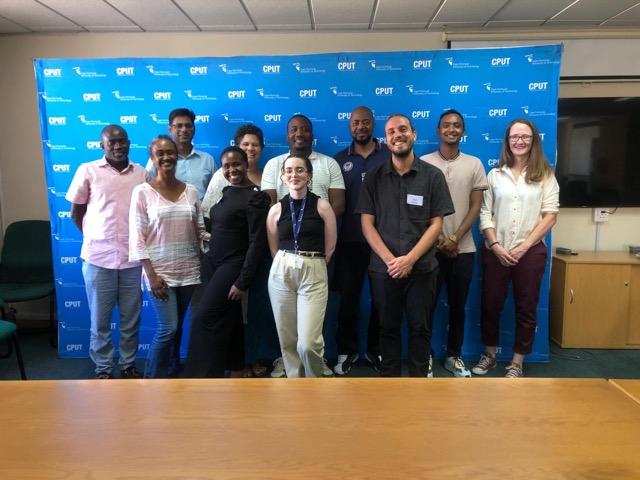
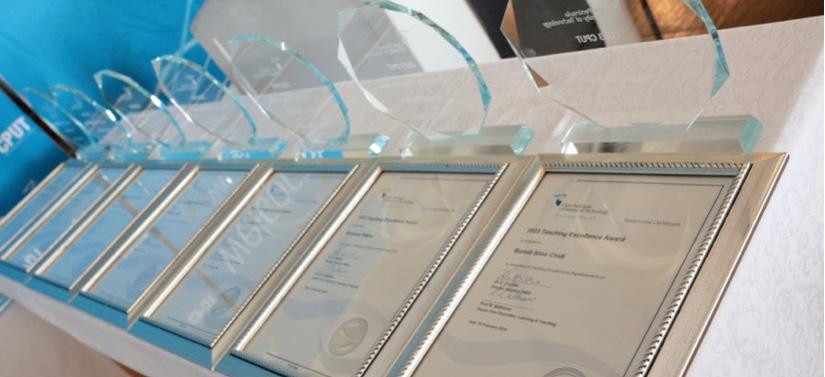
In recognition of promoting academic excellence in learning, teaching and assessments, several staff in the Faculty were recipients of the Teaching Excellence Awards (TEA). These awards are intended to: recognise, promote, and reward teaching excellence; enhance the professionalism of university lecturers; share excellent practice with the Faculty and Institution; provide opportunities for further professional development; and improve student engagement and success.
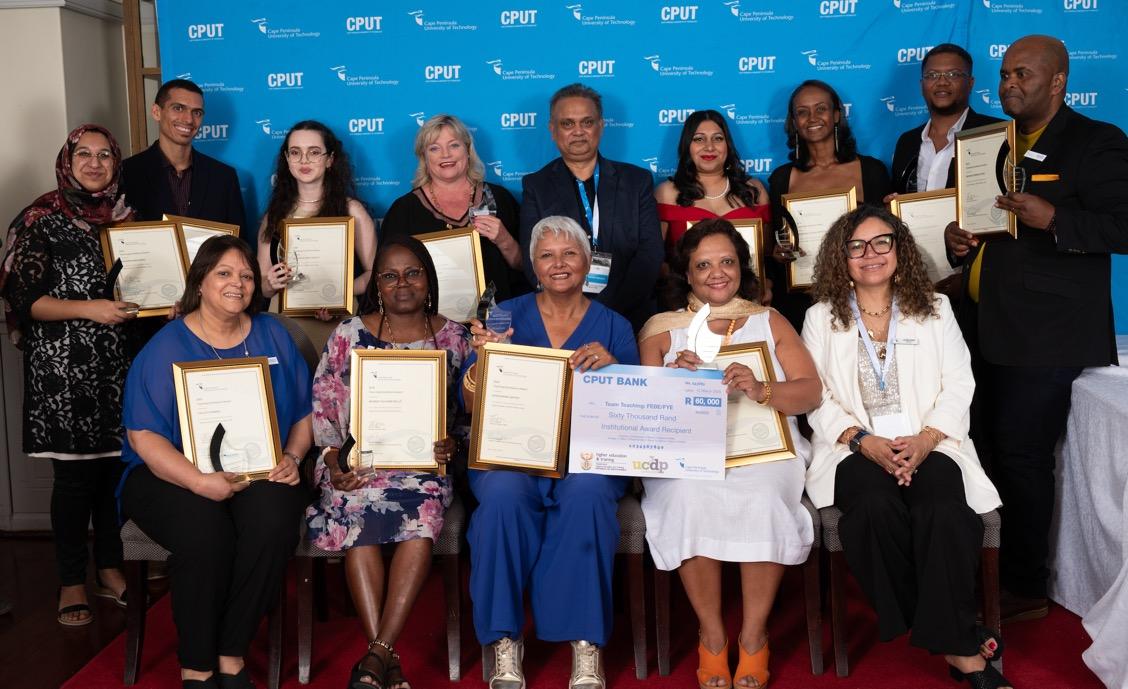
In 2024, CPUT adopted the new National University Teaching Award (NUTA) criteria. Faculty awarded three recipients with Faculty TEAs:
• Prof. Asis Patnaik – Teaching Leader Award
• Dr Gunjan Gupta – Established Teacher Award
• Dr Rumbi Muvunzi – Emerging Teacher Award
The Faculty also won the 2024 institutional award for the category of Team Teaching. The recipients of this award (listed from left to right in Figure 2) were (top row): Ms Naasirah Mohammed, Mr Dennit Adams, Ms Samantha Daffue, Dr Christel Ekron, Prof. Balkaran (DVC), Mrs Kajal Nadal-Singh, AProf Bronwyn Swartz, Mr Luvuyo Kakaza, Dr Mzukisi Kepe; (bottom row): Mrs Felicity Harris, Dr Basirat Bello, Mrs Khayzuran Jaffer, Mrs Ayesha Reiners, Dr Xena Cupido (Director of CHED Fundani).

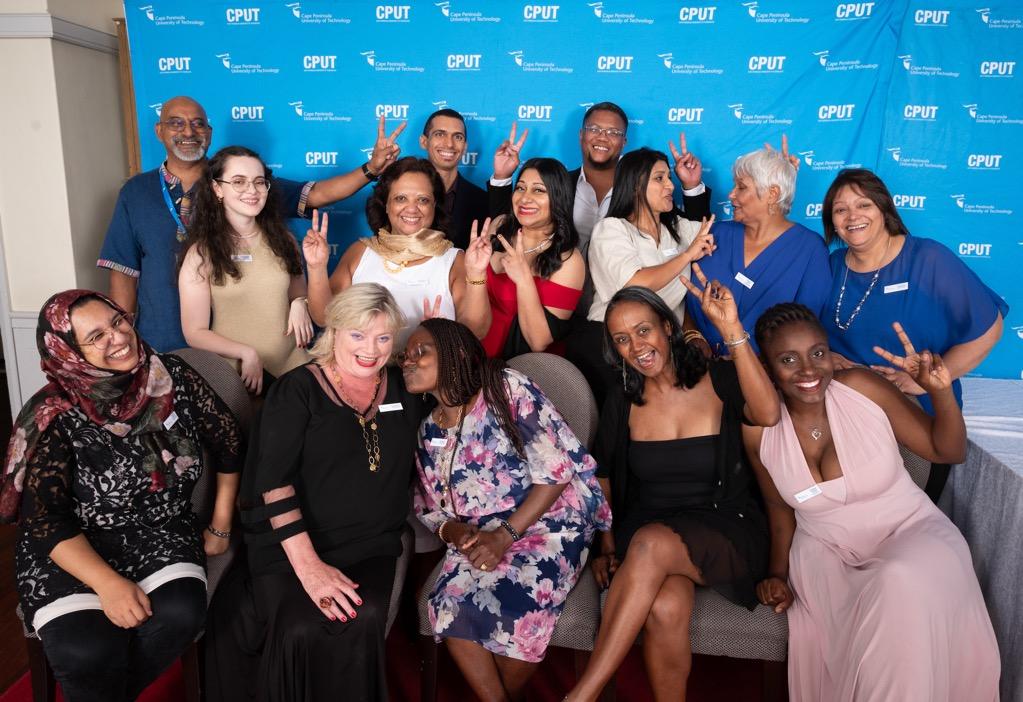
The Mining Qualifications Authority (MQA)-funded Academic Staff Development Programme (ASDP), implemented within the Faculty of Engineering and the Built Environment (FEBE), continues to grow steadily each year. Since the beginning of the 2024 academic year, six lecturers were appointed for a period of three years across the Departments of Mechanical and Mechatronics Engineering, Electrical, Electronic and Computer Engineering, Chemical Engineering, as well as Civil Engineering and Geomatics. The total value of these appointments amounted to approximately R15,000,000.00. Later in 2024, the programme expanded further with the award of funding for three additional lecturer positions, increasing the total financial investment to R23,628,048.00 for FEBE. The growth trajectory of the programme is expected to continue, as further applications for funding and appointments have already been submitted.
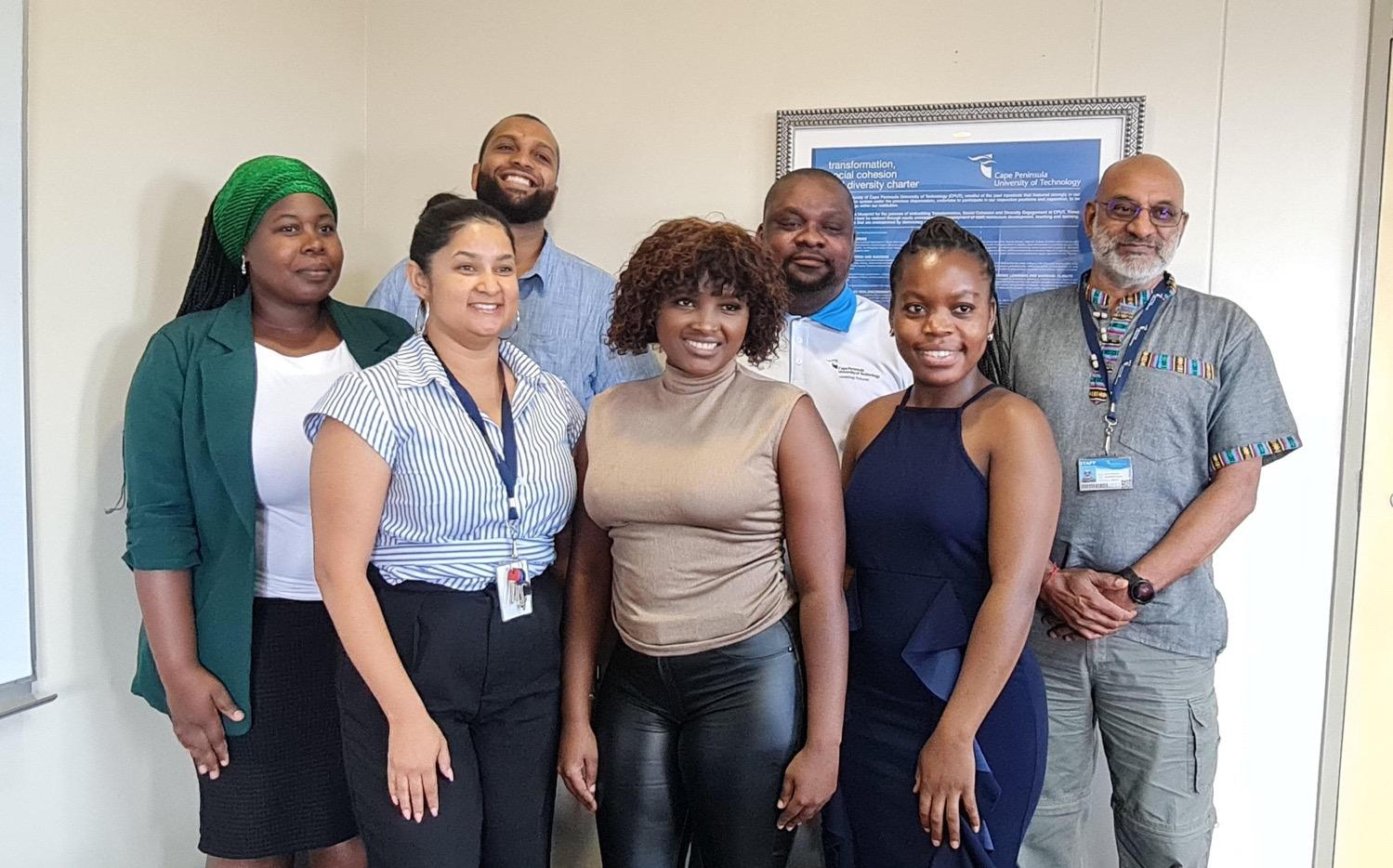
Four departmental L&T representatives (for CLOTEX, DMS, and Civil Engineering and Geomatics) were selected to partake in a national engineering educators’ training. Also facilitated by the IEC, the Transformative Teaching in Engineering Education (TTEE) programme is funded by the Royal Academy of Engineering (RAE), the DHET and UCDP. This 100-hour programme consists of 3 modules.
Part 1: The first module held at Lagoon Beach Hotel, Milnerton from the 27th – 29th January 2025, was entitled “Me and my students”. Participants engaged in reflective practices, practical activities and collaborative learning to better understand their personal teaching goals, the dynamics of engineering learning environments and how to cultivate productive and meaningful classroom interactions using Activity Theory and Mezirow’s Transformative Learning Theory.
Part 2: The module “Journey of Becoming” is scheduled to take place in Durban in May 2025, where the focus will shift to building agency in teachers and students. This phase will explore how to empower proactive learning and teaching while introducing strategies for assessing meaningful progress. Part 3: This module, entitled “Knowledge”, will take place in Johannesburg in September 2025 and will focus on how to structure and facilitate engaging engineering content effectively in order to ensure meaningful student participation and explore how to create scholarly publications.
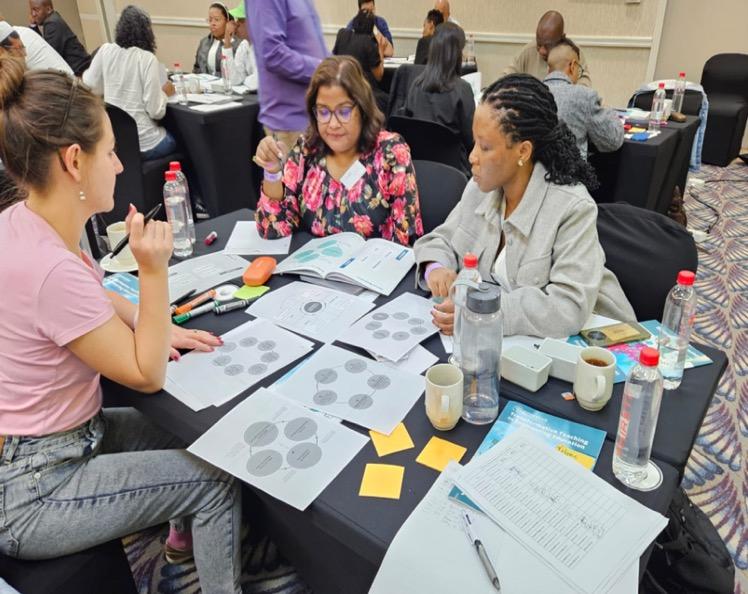
In June 2024, the Faculty held two successful two-day workshops, facilitated by Dave Wright, to support our staff in the ECSA registration process. One workshop was conducted for professional engineers on June 12 and 14 (25 attendees), while another for professional technologists and technicians took place on June 18 and 21 (43 attendees). These workshops provided valuable insights and guidance to our staff, equipping them with the necessary tools and knowledge to navigate the registration process effectively.
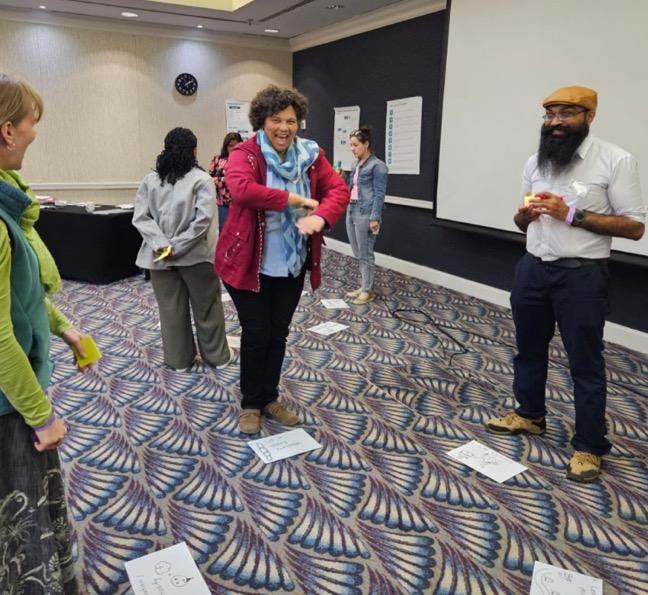
Moreover, the ECSA updated Graduate Attributes (GAs) in August 2023. Thus, Faculty is in the process of implementing these new GAs as stipulated by ECSA by adjusting the programmes . This is necessary in order to coordinate the introduction of the new GAs by transforming the existing GA practices (LT&A), as well as ensuring that the curriculum align with the new ECSA GAs. This will was coordinated by Bronwyn Swartz and drew on expertise already present in the Faculty. A national engineering education project team, known as the Innovative Engineering Curriculum (IEC) Team, funded by the Royal Academy of Engineering (UK) and the University of Pretoria (Transforming Systems through Partnerships), will provide some support for these workshops. The IEC team is comprised of engineering educators at 16 different universities that offer Engineering in South Africa. The core team consists of academics from seven universities, CPUT being one of them.
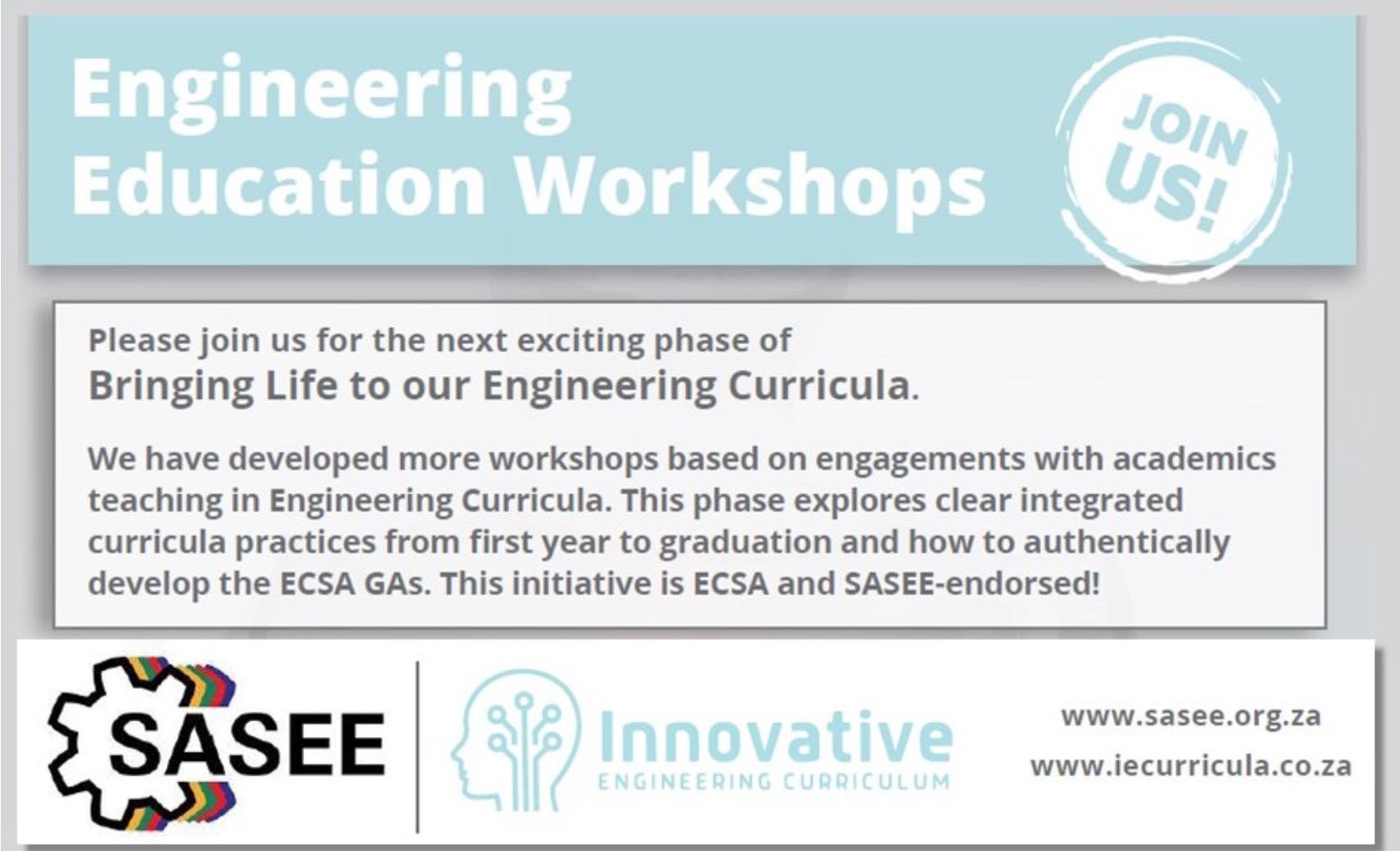
In addition to IEC online workshops, the faculty management team presented ECSA GA training during midsubject reviews with Departments in the first semester from April to May 2025, and will offer another training session in the second semester from September to October 2025. Midsubject reviews may be regarded as quality assurance measures; however, they simultaneously share good practice and promote staff development.
During midsubject reviews, the Assistant Dean and Faculty Coordinators visit each one of the Departments. Midsubject visits took place on the following dates:
Department of Civil Engineering and Geomatics – 16 April and 3 October 2024
• Department of Clothing and Textile Technology – 8 May and 4 October 2024
• Department of Construction Management and Quantity Surveying – 14 April 2024
• Department of Chemical Engineering – 15 April and 3 October 2024
• Department of Electrical, Electronic and Computer Engineering – 30 September
• Department of Industrial and Systems Engineering – 19 April and 3 October 2024
• Department of Mechanical and Mechatronic Engineering – 26 April 2024
• Department of Maritime Studies – 19 April and 27 September 2024
YouTube for Teaching and Learning with Professor Philip Baron
In collaboration with FAS, an online workshop on using YouTube to enhance L&T, facilitated by Prof. Phillip Baron from the University of Johannesburg, was held on 26 September 2024.
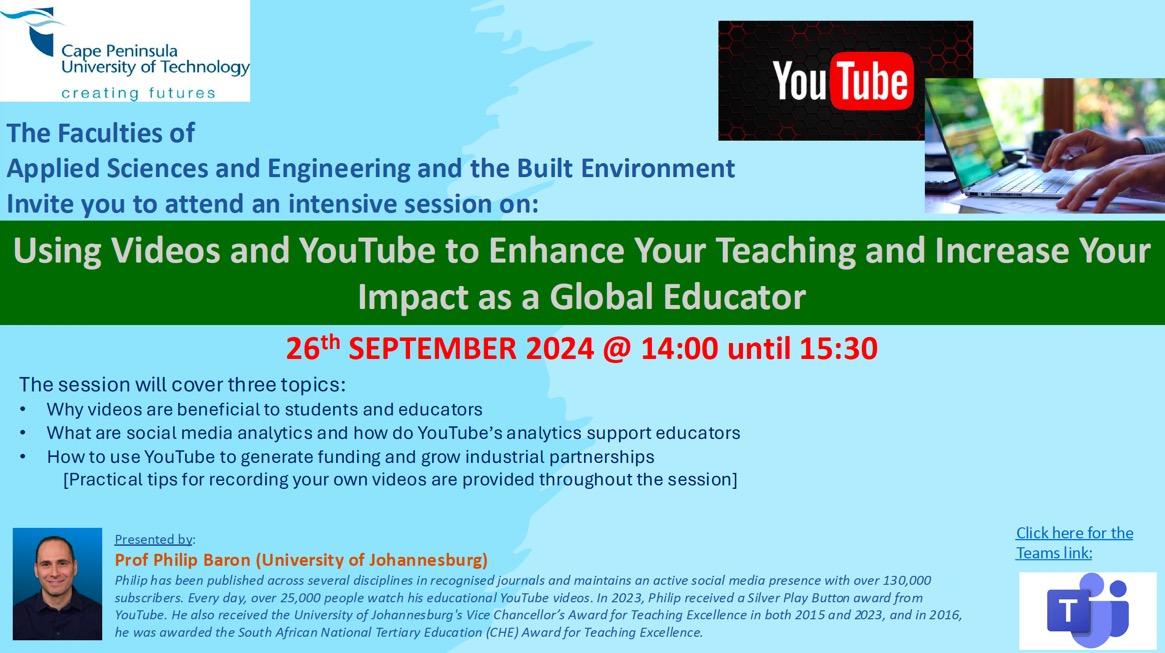
An opportunity has arisen for CPUT to offer a Certificated AI Engineer programme in collaboration with Microsoft AI University. While the training itself will be provided free of charge, it is important to note that the subsequent certification process will require a fee to be paid to Microsoft, and this is being arranged through Fundani (staff development UCGD). The Faculty aims to capitalise on this opportunity by having as many staff members as possible trained as AI Engineer facilitators. Departments were requested to submit a list of interested staff members who would like to undergo the facilitator training. This training will position CPUT to deliver cutting-edge AI engineering education, benefiting both students and industry professionals who seek to enhance their skills in this rapidly evolving field.
21 October 2024 - MS AI University certified AI Engineer kick-off meeting. FEBE identified 50 staff members to take part in the MS AI University certified AI Engineer training. The distribution of participants across Departments was as follows:
• 7 staff members from DEECE
• 2 staff members from the Department of CMQS
• 2 staff members from the Department of Chemical Engineering
• 6 from the Department of Civil Engineering and Geomatics
• 4 from DISE
• 14 from the Department of Mechanical and Mechatronic Engineering
• 3 from CLOTEX
The plan is to have staff members certified as MS AI Engineers by June 2025
The Cape Peninsula University of Technology (CPUT) has partnered with the Massachusetts Institute of Technology (MIT) to empower its engineering students with entrepreneurial skills through the globally acclaimed Disciplined Entrepreneurship methodology. The Faculty of Engineering and the Built Environment will be sending one of its staff members for training in this methodology in an attempt to embed the methodology in its engineering education programmes. This collaboration aims to transform technically skilled students into innovative, opportunity-driven entrepreneurs by equipping them with a structured 24-step framework for building scalable startups. By integrating MIT’s proven approach into its curriculum and workshops, CPUT is fostering a new generation of engineers who are not only problem-solvers but also job creators, ready to drive innovation and economic growth in South Africa and beyond.
In addition to the MIT collaboration, CPUT is also incorporating the Technology Entrepreneurship Education Programme (TEEP), developed through the Technological Higher Education Network South Africa (THENSA), to further strengthen the entrepreneurial capacity of its students. TEEP complements the Disciplined Entrepreneurship methodology by offering practical, locally relevant training that addresses the unique challenges and opportunities within the South African context. Through TEEP, students gain insights into innovation management, business model development, and the commercialisation of technology, all while receiving mentorship from industry professionals and academics. Together, these two programmes provide a comprehensive entrepreneurial education pipeline, ensuring that CPUT engineering students are equipped with both global frameworks and local insights to become successful technology-driven entrepreneurs.
Department name: Industrial and Systems Engineering
Activity Name: Electric Vehicle (EV) Training Project Based Learning (PjBL) Symposium
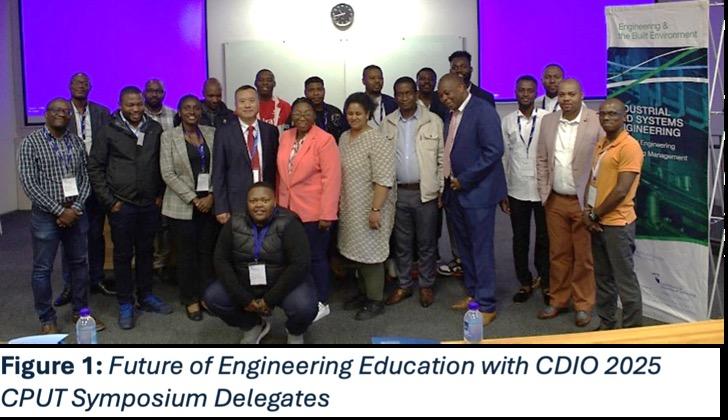
Objective: To review and enhance the Industrial Engineering curriculum by integrating hands-on learning approaches into engineering education, focusing on the Conceive, Design, Implement and Operate (CDIO) framework. The initiative aims to prepare engineers for the new digital industrial era through innovative educational strategies.
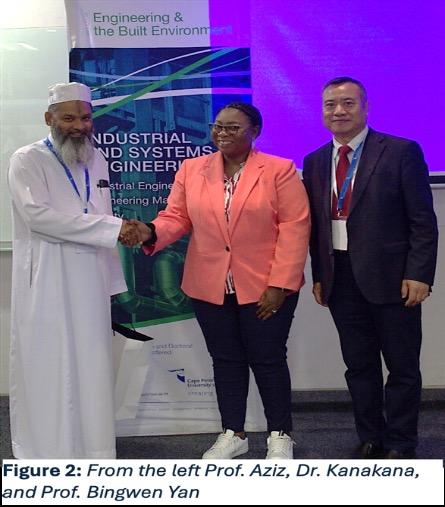
Participants and Stakeholders: Industry partners, educators and researchers, students from participating universities and academic institutions.
• Local: Cape Peninsula University of Technology (CPUT), Tshwane University of Technology (TUT), Durban University of Technology (DUT), and UNISA
• International: Kings College, Aston University, and Warwick University
Event Overview: On 30 January 2025, over 30 attendees gathered at the SARATEC conference venue on CPUT’s Cape Town/Bellville Campus for a multimodal symposium. The event featured presentations on electric vehicle technology, digital learning, projectbased learning, and risk management in engineering education. Participants engaged in discussions with regard to innovative approaches to engineering education, showcasing projects, such as electric drivetrain optimisation and SMART learning initiatives.
Future Actions and Follow-up Plans: The collaboration aims to (a) develop an EVbased Industrial Engineering module starting at diploma level, (b) continue integrating project-based learning into design-based subjects, (c) collaborate with the TIA Adaptronics Advanced Manufacturing Technology Laboratory, (d) refine educational strategies to shape future-ready engineers, and (e) expand interdisciplinary approaches to engineering education in South Africa.
Department name: Clothing and Textile Technology
Activity Name: Garment Donations for Children’s Hospital
Objective: The goal of this project was to integrate practical learning with community engagement by having second-year students design and produce garments for children in need. This initiative aimed to develop students’ technical skills while fostering social responsibility.
Target Audience and Stakeholders: The beneficiaries included paediatric patients in the short-stay ward of the Red Cross Children’s Hospital. Stakeholders involved were the University’s Clothing and Textiles Technology Department, students, hospital staff, Warriors of Hope representative, Zeenat Parker, and a local sewing store that supported the initiative.
Project Summary: Students created and donated kids’ underwear sets to the hospital. The project was well-received, with hospital staff and caregivers expressing deep appreciation for the students’ efforts. A local fabric store also contributed by advertising the “Fundies” as a charity donation. The children benefited from comfortable, well-made garments, aligning with the hospital’s efforts to enhance patient well-being during their stay. This project reinforced key skills in garment construction with a purpose, and the students gained valuable hands-on experience, practising teamwork while also building empathy. The students expressed pride in their contribution and appreciation for the opportunity to see their work make a difference.
Future Actions: Going forward, the project will be expanded to include more garment categories and possibly involve industry partners for material sponsorships. Additional collaboration with local charities and businesses will be explored to sustain and enhance the initiative’s impact.
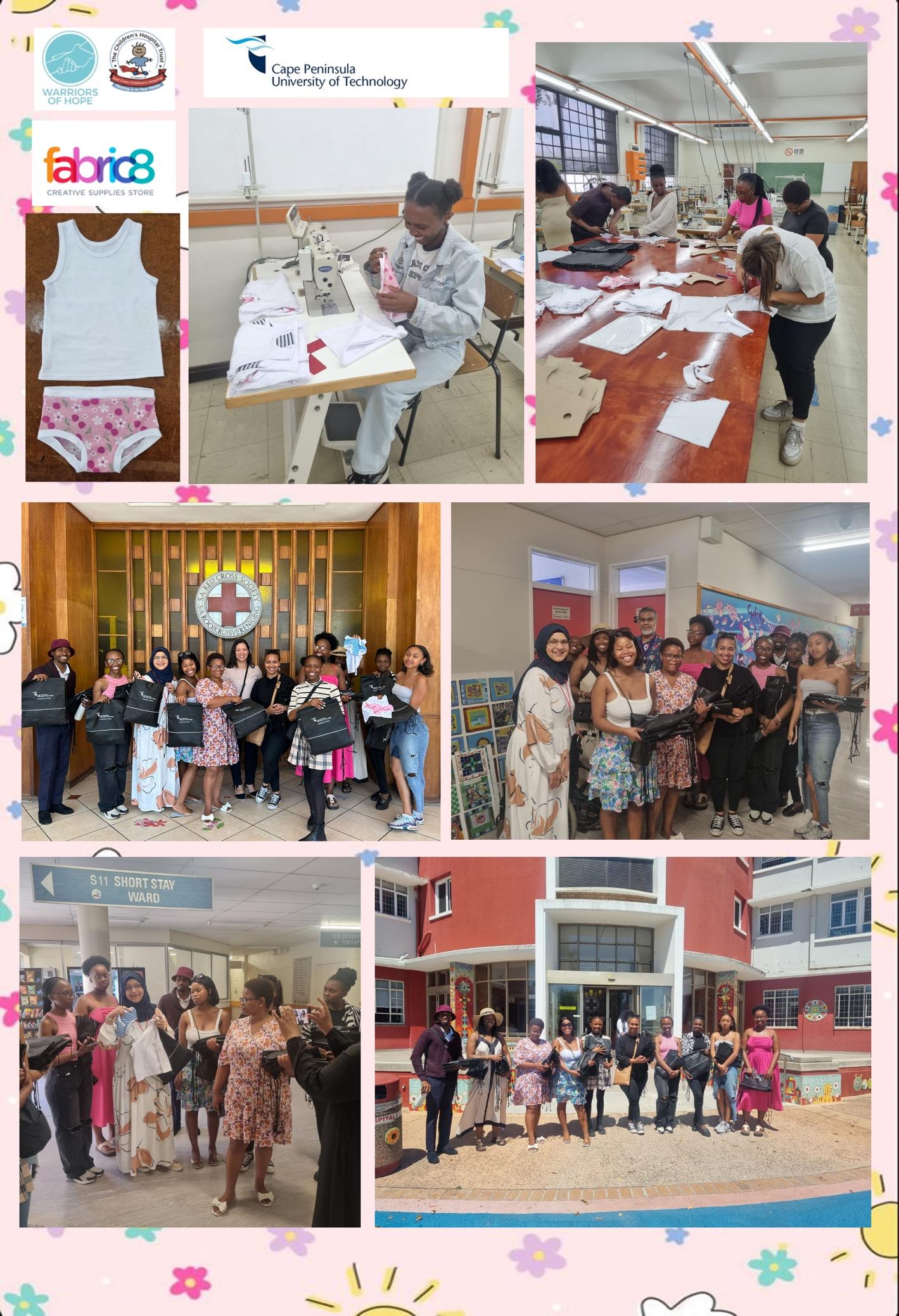
Department name: Mechanical and Mechatronic Engineering
Activity name: Mentor Programme for First-Year Students
Objective/Goal of the Activity:
The Mentor Programme aims to provide mentorship support to first-time entering firstyear students transitioning from high school to higher education. The goal is to ensure students receive guidance and support throughout their first academic year, enhancing their integration, well-being, and academic success.
Participants in this transformation intervention are first-year students in the Department of Mechanical and Mechatronic Engineering. Stakeholders include volunteer mentors, senior mentors, student engagement co-ordinator (Mr Kakaza) , the Faculty of Engineering and the Built Environment (FEBE).
Activity Description and Reception:
In 2025, a drive was conducted to recruit volunteer mentors, resulting in 17 successful applications. Fifteen of these applicants will undergo mentor training scheduled for 1314 February 2025. Senior mentors (7 candidates) with previous mentoring experience will be appointed to guide and supervise volunteer mentors. The strategy involves assigning volunteer mentors to groups of first-year students, encouraging one-on-one engagement and ongoing mentorship support for at least six months.
Feedback from mentors and mentees has been positive, highlighting the need for mentorship to accommodate the increased enrolments for 2025. However, the high mentor-to-mentee ratio (approximately 25 students per mentor) suggests a need for more mentors.
There is a necessity to appoint more to bring down the number of students per mentor senior mentors to support volunteer mentors and manage mentee groups more effectively. In addition, monitoring and evaluating the mentorship programme through monthly reports submitted by senior mentors is essential. Finally, the Department will reassess mentor-to-mentee ratios to improve efficiency and support structures.

Language development in the Faculty of Engineering is multifaceted and designed to promote effective communication and inclusivity among staff and students. Recognising that language plays a crucial role in all aspects of education, the Faculty conducted quarterly meetings to facilitate connection, idea sharing, and the establishment of a strong team ethic.
These meetings also focus on enhancing the first-year experience (FYE) and supporting information literacy development. The FYE programme provides ongoing assistance to first-year students through various themes, including psychosocial and academic support, which help ensure a smooth transition to university life. The FYE team continually reflects on and adjusts the programme to address students’ needs effectively.
Language development in the Faculty of Engineering is multifaceted and designed to promote effective communication and inclusivity among staff and students. Recognising that language plays a crucial role in all aspects of education, the Faculty conducted quarterly meetings to facilitate connection, idea sharing, and the establishment of a strong team ethic.
These meetings also focus on enhancing the first-year experience (FYE) and supporting information literacy development. The FYE programme provides ongoing assistance to firstyear students through various themes, including psychosocial and academic support, which help ensure a smooth transition to university life. The FYE team continually reflects on and adjusts the programme to address students’ needs effectively.
Additionally, the library is instrumental in fostering information literacy development. The language working group of FUNDANI promotes multilingual development within the Faculty, and numerous translations have been completed to aid classroom pedagogy. Lecturers can also request translations to enhance their teaching and learning processes.
Furthermore, in2024 FEBE hosted an International Day, an event that celebrated students from around the world and fosters social inclusion while valuing diversity. In conjunction with this initiative, a greeting booklet that celebrates all the languages represented in the FEBE was developed by the research unit.
The Extended Curriculum Programme (ECP) is a mechanism supported by the national Department of Higher Education and Training. The ECP aims to reduce first-year dropouts, improve graduation rates, and help students from disadvantaged backgrounds. The academic year of 2024 was completed successfully despite challenges faced by various Departments. The newly formed STARS unit committed to funding the same number of student support champions in 2024 as it did in 2023 to support lecturers and ECP students. The foundational provisional activities for each Department were implemented to enrich the curriculum and engage students on a deeper level in their first-year subjects. The Departments found alternative pathways to implement foundation provision activities that did not require funding. The ECP also received a boost in funding from the DHET (around 11 million Rand) for the 2024 financial cycle. This was used to mitigate the financial risks which the ECP was experiencing. New cost centers were implemented to start a streamlined financial management process and to eliminate historical imbalances Numerous staff members in the ECP are in the process of completing various qualifications.
The numerous presentations by ECP staff on learning and teaching at local conferences was another highlight. It is hoped that a paper can be published on this work. The staff members working in the ECP formed a research group that aims to share what is being done with DEECE ECP students. The following abstracts are the results of the research group:
1. Nomzamo Tshemese-Mvandaba, Naasirah Mohamed (2024): Evaluating the impact of an Orientation Program on First-year students’ development in the Electrical and Computer Engineering Extended Curriculum Programme (ECP), CPUT. 9TH SANRC Annual FYE Conference, 22 to 24 May 2024, Southern Sun Sandton, South Africa.
2. Naasirah Mohamed, Nomzamo Tshemese-Mvandaba(2024): Exploring the Impact of Student Support Groups on Academic Development: An Extended Curriculum Programme First-Year Perspective (Year: 2023). Heltasa Conference, 27 to 29 Nov 2024.
3. Azwihangwisi Mabuda, Naasirah Mohamed, Nomzamo Tshemese-Mvandaba, Sophie Musi (2024): Extended Curriculum Programme Integration: Redesigning the Digital Learning Space. Heltasa Conference, 27 to 29 Nov 2024.
4. Sophie Musi, Makuhane Sithole, Ayokunle Ayeleso, Azwihangwisi Mabuda (2024): Strategies for curriculum design for Mathematics and Physics in ECP in higher education. Heltasa Conference, 27 to 29 Nov 2024.
The abstracts for the above-mentioned presentations were submitted and accepted for presentation at conferences in 2024.
The Mentor Programme aims to provide mentorship support to first-time entering first-A team of B-Eng Tech Computer Engineering students from CPUT’s Department of Electrical, Electronic and Computer Engineering has won the national round of the prestigious Student Cluster Competition, hosted by the Centre for High Performance Computing (CHPC) at the CSIR. Guided by mentor Mthomasebe Adonis, the team comprised Tebogo Diraditsile, Abdullah Jaffer, Allen Van Dieman and Thina Nikita Calana, and outperformed top university teams across South Africa. Their victory earned them the honor of representing South Africa at the International Supercomputing Conference (ISC) in Hamburg, Germany, where they will compete on the global stage in the International Student Cluster Competition.
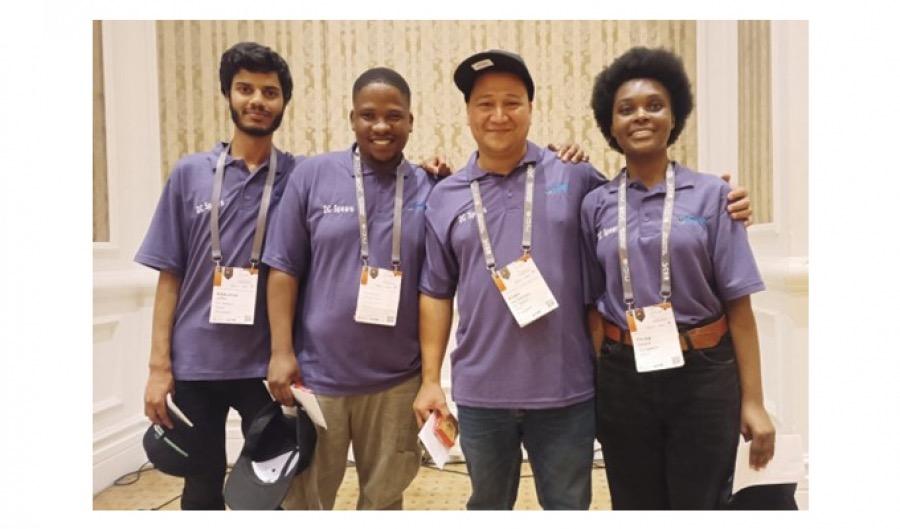
The Faculty of Engineering and the Built Environment (FEBE) made significant progress in 2024 towards achieving its vision and mission. We successfully transformed our curriculum to align with the Fourth Industrial Revolution (4IR) and CPUT’s Vision 2030. Our commitment to excellence is reflected in the numerous initiatives undertaken in that year, including staff development workshops, the xPlore 2024 competition achievement, and the establishment of the Research Unit of Engineering and the Built Environment Education (RUEBEE).
These advancements position FEBE at the forefront of engineering education, not only equipping students with the technical skills they need to succeed but also fostering critical thinking, innovation, and social responsibility. We are confident that our graduates will have a profound impact on society and contribute meaningfully to building a sustainable future. We look forward to continued growth and development in the coming year, with a focus on further strengthening our industry partnerships, expanding our research endeavours, and providing an exceptional learning experience for all our students.


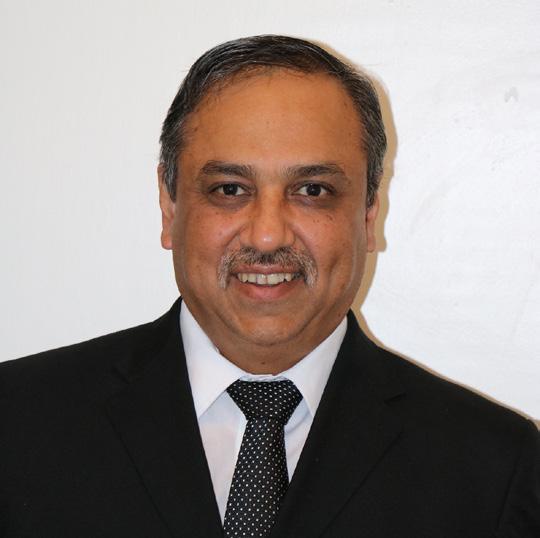
Introduction
In a time of rapid technological change, the Faculty of Health and Wellness Sciences stands at a critical intersection—where innovation meets responsibility and education meets impact. The theme for 2024 was of “AI for Good: Educate, Innovate, Impact” invited us to reflect on how artificial intelligence is reshaping teaching and learning within our classrooms, laboratories, and clinical training spaces.
As a university of technology in South Africa, we are uniquely positioned to harness the potential of AI not only to enhance academic excellence, but also to address persistent social and structural inequalities. Grounded in our commitment to social justice and inclusive education, this report explores how AI has been influencing student learning experiences, pedagogical practice, and the broader academic environment—while also highlighting the tensions and challenges that come with innovation.
In addition to spotlighting the role of AI, this report reflects on other key teaching and learning developments and events that shaped our Faculty in 2024. These include curriculum reviews, staff development initiatives, student feedback, and institutional quality enhancement processes. Together, these reflections offer an honest appraisal of our strengths, weaknesses, and emerging opportunities in a fast-changing higher education context.
Faculty Vision
A proud African technology-driven faculty taking the lead in relevant health and wellness education, research, and innovation in response to provincial, national and global socio-economic imperatives.
Faculty Mission
To empower agile graduate healthcare professionals who are ethically responsive to industry and societal needs through academic excellence and lifelong learning, together with the pursuit of relevant and pioneering research and clinical innovation, which will improve the health of individuals both locally and globally.
By documenting both the progress we have made and the challenges we continue to face, we aim to foster a shared understanding of what it means to teach, learn, and lead with integrity in an age of intelligent systems. We invite our colleagues, students, and partners to engage critically and constructively as we imagine the future of health education—one that is just, innovative, and deeply human.
During 2024, academic staff within the Faculty of Health and Wellness Sciences increasingly explored the integration of AI-powered tools—such as ChatGPT, Gemini, Grammarly, and Adobe Express—into their teaching practice. These tools were used to personalise feedback, enhance student engagement, and streamline communication. By leveraging generative AI, some lecturers were able to provide more immediate, detailed, and accessible responses to students, particularly in large or diverse classes. This shift contributed to a more responsive learning environment and supported differentiated instruction. However, the integration of AI also raised important pedagogical questions - particularly around the role of assignments in developing and accessing critical thinking. Concerns emerged regarding over-reliance on AI for content generation, prompting a re-examination of assessment design, academic integrity, and the educator’s role in fostering authentic student voice and reasoning.
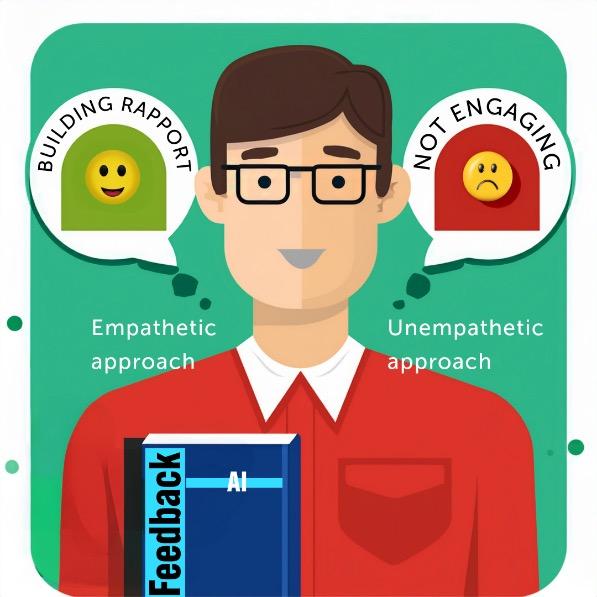
Responding to students in a meaningful way extends far beyond the delivery of academic content. It requires an understanding of the complex social, emotional, and cultural factors that shape student experiences—ranging from peer and family dynamics to political perspectives and prior learning histories. Within this context, feedback becomes a powerful pedagogical tool that not only guides academic progress but also affirms students’ identities and realities.
Lecturers in the Faculty have increasingly experimented with AI-assisted prompts, such as “rewrite an empathetic and/or professional response” to refine their tone and improve the quality of their interactions. These prompts help ensure that feedback is not perceived as overly authoritative or impersonal, but rather as caring, supportive, and responsive. This shift from transactional to relational communication fosters deeper trust and encourages students to engage more confidently with learning content and academic support structures.
Student feedback mechanisms—particularly those facilitated through Fundani—have further enriched this process by amplifying student voice in a structured and reflective manner. Lecturers have been able to gain nuanced insights into their students’ needs, expectations, and learning experiences. Fundani’s role in gathering and sharing student perspectives has helped staff adjust their teaching approaches, humanise learning environments, and enhance overall engagement. By foregrounding empathy and acknowledging student diversity in feedback practices, the Faculty continues to move toward a more inclusive and socially just approach to teaching and learning.
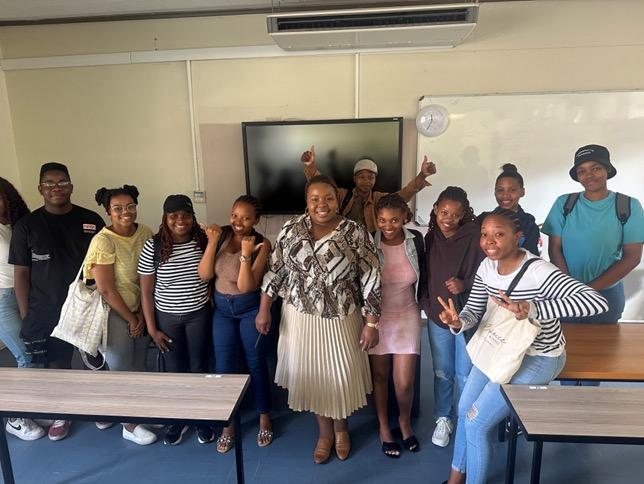
While the integration of AI tools into teaching practice has brought many advantages, it also introduces significant pedagogical challenges—particularly around the cultivation of critical thinking and the development of independent insight. Traditional models, such as Bloom’s Taxonomy, have long guided curriculum design by emphasising a progression from foundational knowledge to higher-order cognitive skills, such as analysis, evaluation, and creativity. However, the ease with which AI can now generate coherent, well-structured responses has prompted the concern that students may bypass the deeper cognitive engagement these frameworks were designed to promote.
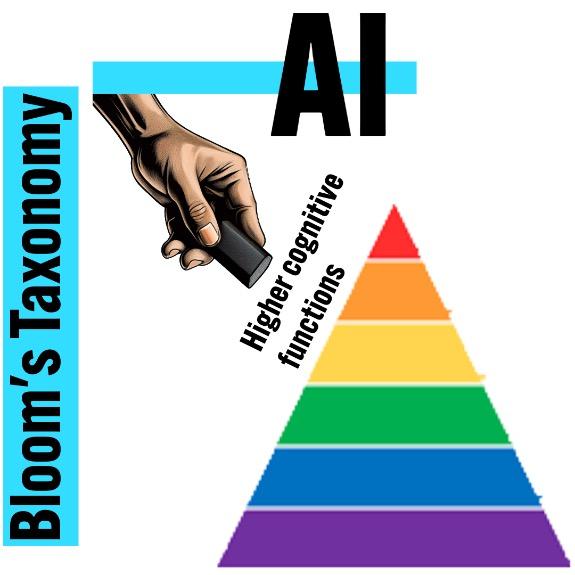
In practice, some lecturers in the Faculty of Health and Wellness Sciences have observed an increasing reliance on AI-generated content in student assignments. While these tools can serve as learning aids, their overuse may short-circuit the reflective processes needed for genuine understanding and problemsolving. When students turn to AI for instant answers, they risk disengaging from the very struggles that foster intellectual growth and professional competence.
These trends suggest the need for a critical re-examination of assessment models and learning outcomes. Assignments that once served as reliable indicators of independent thinking may need to be redesigned to account for the realities of AI-enhanced learning environments. This could involve more emphasis on process-driven assessments, reflective practices, collaborative problem-solving, and viva-style engagements in which students must articulate their reasoning in real time.
As AI continues to reshape how students interact with information, the Faculty is challenged to rethink not only what we assess, but how and why we assess. This moment presents an opportunity—not only to adapt existing frameworks, but to cocreate new ones that align with the demands and possibilities of a digital era, while remaining anchored in our commitment to cultivating ethical, critical, and socially conscious health professionals.
Amid the challenges and complexities of AI integration, the potential for enhancing student engagement and personalised learning remains one of its most promising contributions to higher education. Within the Faculty of Health and Wellness Sciences, tools, such as Blackboard AI, have been effectively employed to create more interactive and responsive learning environments.
AI-generated questions based on lesson content, for instance, have allowed lecturers to reinforce key concepts while encouraging students to apply their knowledge in context. These adaptive questioning features help bridge the gap between passive learning and active engagement, offering students immediate opportunities to test their understanding and receive feedback. This approach not only supports formative assessment but also promotes deeper learning and critical application—key attributes in professional health education.
In addition, AI-generated images and visual summaries have become valuable tools for supporting conceptual clarity. Complex topics—ranging from human anatomy to clinical procedures—can be visually represented in engaging, accessible formats that cater to diverse learning preferences. These visual aids enhance comprehension, particularly for students who benefit from multimodal learning approaches, and contribute to more inclusive teaching strategies.
As AI continues to evolve, the Faculty is exploring how these tools can be embedded more systematically into curriculum delivery to support differentiated learning pathways. By aligning content creation with student needs and learning styles, AI-driven personalisation opens new opportunities to meet students where they are, while guiding them toward where they need to be
Despite the benefits of AI in enhancing student engagement and learning personalisation, the integration of AI-generated content into academic settings still necessitates careful human oversight. While tools, such as Blackboard AI, can efficiently generate structured overviews, quizzes, as well as interactive learning materials, the accuracy and appropriateness of this content cannot be taken for granted. Misinformation, misalignment with course outcomes, or culturally insensitive phrasing may inadvertently emerge without lecturer intervention.
Academic staff in the Faculty of Health and Wellness Sciences have recognised the importance of refining AI-generated materials to ensure they meet pedagogical standards and align with curriculum goals. One effective strategy involves feeding the AI system with institutionally validated content—such as lecture notes, evidence-based guidelines, or case studies—before uploading the outputs into Blackboard. This approach ensures that AI acts as a supportive co-creator, not a replacement for academic expertise.
The collaborative process between human educators and AI highlights a key principle: While technology can enhance delivery, the responsibility for educational quality and ethical learning remains firmly in the hands of lecturers. Sustaining this balance will be essential as we continue to innovate in ways that honour both academic rigour and the lived experiences of our students.

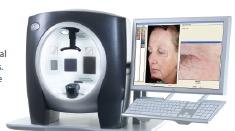

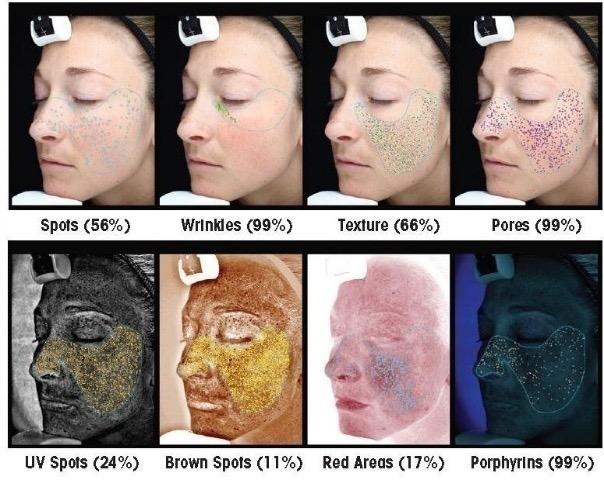
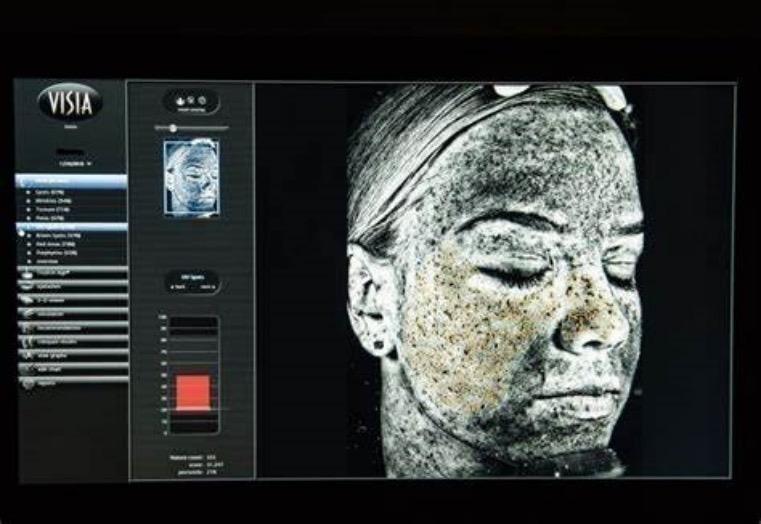
at: www.canfieldsci.com/imaging-systems/visia-complexion-analysis/ (Accessed 14 March 2025)
“As a lecturer, I leverage AI integrated with Blackboard to create tailored quizzes and formative assessments for each chapter, ensuring that students engage with the material effectively. By utilizing AI-driven analytics, I can monitor individual progress and identify areas where students may need additional support. These assessments not only reinforce foundational knowledge but also encourage active learning and self-assessment. Additionally, the AI tool provides instant feedback, allowing students to understand their strengths and weaknesses in real-time. This approach fosters a more personalized learning experience, ultimately enhancing their grasp of the subject matter and boosting overall academic success”.
While the integration of AI was a prominent focus this year 2024, it was only one aspect of the broader teaching and learning landscape within the Faculty of Health and Wellness Sciences. Throughout 2024, the Faculty engaged in a range of initiatives and milestone events that contributed to strengthening academic practice, fostering collaboration, and advancing curriculum innovation. These moments—whether driven by policy shifts, student engagement efforts, or professional development activities— offered valuable insights into our collective strengths and areas for growth. The following highlights provide a snapshot of the year’s key developments and how they shaped our ongoing commitment to quality, equity, and transformation in health sciences education.
Despite the benefits of AI in enhancing student engagement and learning personalisation, the integration of AI-generated content into academic settings still necessitates careful human oversight. While tools, such as Blackboard AI, can efficiently generate structured overviews, quizzes, as well as interactive learning materials, the accuracy and appropriateness of this content cannot be taken for granted. Misinformation, misalignment with course outcomes, or culturally insensitive phrasing may inadvertently emerge without lecturer intervention.
Academic staff in the Faculty of Health and Wellness Sciences have recognised the importance of refining AI-generated materials to ensure they meet pedagogical standards and align with curriculum goals. One effective strategy involves feeding the AI system with institutionally validated content—such as lecture notes, evidence-based guidelines, or case studies—before uploading the outputs into Blackboard. This approach ensures that AI acts as a supportive co-creator, not a replacement for academic expertise.
The collaborative process between human educators and AI highlights a key principle: While technology can enhance delivery, the responsibility for educational quality and ethical learning remains firmly in the hands of lecturers. Sustaining this balance will be essential as we continue to innovate in ways that honour both academic rigour and the lived experiences of our students.

While the integration of AI was a prominent focus this year 2024, it was only one aspect of the broader teaching and learning landscape within the Faculty of Health and Wellness Sciences. Throughout 2024, the Faculty engaged in a range of initiatives and milestone events that contributed to strengthening academic practice, fostering collaboration, and advancing curriculum innovation. These moments—whether driven by policy shifts, student engagement efforts, or professional development activities— offered valuable insights into our collective strengths and areas for growth. The following highlights provide a snapshot of the year’s key developments and how they shaped our ongoing commitment to quality, equity, and transformation in health sciences education.
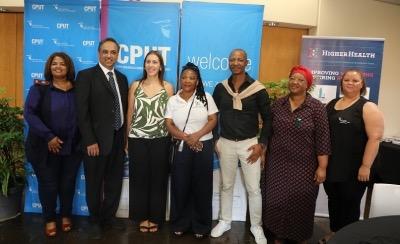
The provincial Ministry of Health and Wellness joined hands in 2024 with the Department of Nursing Science in the Faculty of Health and Wellness Sciences to host a Reproductive Health Jamboree at the Bellville campus. The month of February is dedicated to reproductive health and the provincial Minister for Health and Wellness, Prof. Nomafrench Mbombo, engaged with first-year Nursing students during the event celebrationg womenmoneht. Stakeholders present included Higher Health, the HIV/ Aids Unit, Campus Health Clinics and other role-players.
Mbombo was welcomed by Dr Nicole Brooks, Acting Dean of the Faculty of Health and Wellness Sciences, whereafter a number of health stakeholders spoke on various topics related to sexual and reproductive health and the crucial role it plays in fostering a healthier society. The speakers included Nursing Science lecturer, Amy Williams, who spoke on why sexual and reproductive health matter, while Sr Caroline Maarman provided an overview of the available services by Student Health. The Provincial Department of Health and Wellness Prof. Mbombo also provided an overview of provincial reproductive health facilities and services , and various stakeholders, including students, were given a chance to provide their input.
Students and staff members were also given an opportunity to ask questions and engage with the Minister, with the Acting Dean, Dr, Nicole Brooks and Acting Deputy Dean of the Faculty, Lloyd Christoper, Head of the Department of Nursing Science, Dr Odilia Sehume, as well as invited stakeholders. “It was an important opportunity to discuss all things youth matters and to remind all in attendance about how sexual and reproductive health not only impacts one’s physical well-being, but also one’s emotional, social and economic health,” Mbombo said in a social media post, following the event.
While the integration of AI was a prominent focus this year 2024, it was only one aspect of the broader teaching and learning landscape within the Faculty of Health and Wellness Sciences. Throughout 2024, the Faculty engaged in a range of initiatives and milestone events that contributed to strengthening academic practice, fostering collaboration, and advancing curriculum innovation. These moments—whether driven by policy shifts, student engagement efforts, or professional development activities— offered valuable insights into our collective strengths and areas for growth. The following highlights provide a snapshot of the year’s key developments and how they shaped our ongoing commitment to quality, equity, and transformation in health sciences education.
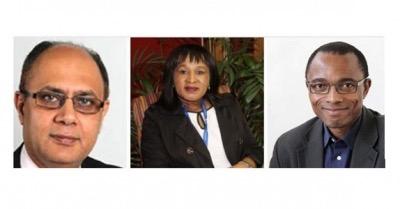
Two adjunct professors of the SA Medical Research Council/CPUT Cardiometabolic Health Research Unit and one of the Unit’s collaborators are amongst the researchers of a in 2024 released global study published in The Lancet , which showed that more than one billion people in the world are now living with obesity. Adjunct Prof. Tandi E. Matsha, founder and co-director of the Unit and former Dean of the Faculty of Health and Wellness Sciences, Adjunct Prof. Rajiv T. Erasmus and Prof. Andre Pascal Kengne, Director of the intermural SAMRC Noncommunicable Disease Unit and a collaborator of the SAMRC/CPUT Cardiometabolic Health Research Unit, are among the approximately 1500 researchers of the study titled Worldwide trends in underweight and obesity from 1990 to 2022: a pooled analysis of 3663 population-representative studies with 222 million children, adolescents, and adults.
Researchers analysed weight and height measurements of over 220 million people aged five years and older, representing more than 190 countries.
According to a press release, the analysis of global data estimates that among the world’s children and adolescents, the rate of obesity in 2022 was four times the rate in 1990. Among adults, the obesity rate more than doubled in women and nearly tripled in men. In total, 59 million children and adolescents and 879 million adults were living with obesity in 2022. Between 1990 and 2022, the proportion of the world’s children and adolescents who were affected by underweight fell by around one fifth in girls and more than one third in boys. The proportion of the world’s adults who were affected by underweight more than halved over the same period.
Prof. Glenda Davison, Head of the Department of Biomedical Sciences and Interim SARChi Chair in Cardiometabolic Health, said she was proud to work with these three scientists. “This type of collaboration, with world leaders, is a great achievement. The Lancet is a very high- impact journal and is recognised as one of the premier journals in medical and health Science. What a fantastic achievement for our unit and for CPUT.”
*The study was conducted by the NCD Risk Factor Collaboration (NCD-RisC), in collaboration with the World Health Organization (WHO).
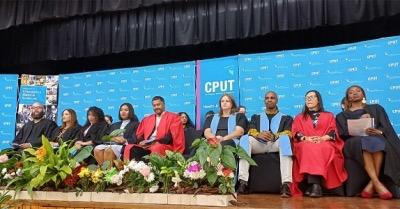
More than 100 graduates recently celebrated their achievements during the Faculty of Health and Wellness Sciences’ Higher Certificate Graduation ceremony. The ceremony, which was held at the Education Hall on the Bellville Campus, celebrated graduates who had successfully completed the Higher Certificate in Dental Assisting and the Higher Certificate in Emergency Medical Care in 2023. Acting Assistant Dean, Dr Lloyd Christopher, welcomed the graduates and their loved ones and stated that the road which the graduates had taken was challenging but they had completed it and had excelled.
“You’ve made a success of your time at CPUT, and now you can inspire others to consider a university education because they have seen you succeed,” he said. “What we would like you to do is to take what you’ve learnt from us and do good in small and big ways.” Dental Assisting class representatives Radhiyah Fakier and Faaria Shaik acknowledged the support of their lecturers and congratulated their fellow graduates on their success. EMS alumni Sergio Amos and Ashlee Alpes shared their experiences in the field and thanked the EMS staff members for the role they had played in their lives. “You can never go back to being the same person you were. This is a special department in that it changes you and you grow so much as a person and a practitioner. At this time, I want to commend the lecturers, the management and the staff of EMS,” said Alpes.
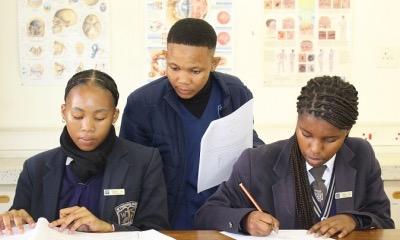
The Faculty of Health and Wellness Sciences’ Life Science Revision project is growing from strength to strength, with nearly 200 matrics from three high schools joining in a recent revision session at CPUT. The project was launched in 2018 by the Department of Emergency Medical Sciences’ Prof. Kareemah Najaar, to help more learners achieve the minimum requirements to qualify for programmes in the field of sciences. Matric learners and teachers from Lavender Hill High School, Wynberg High School and Langa High School visited the Bellville Campus for the first revision session of the year with 43 tutors volunteering to assist the learners. The tutors included staff and students from all seven Departments in the Faculty: Emergency Medical Sciences, Biomedical Sciences, Wellness Sciences, Nursing, Medical Imaging and Therapeutic Sciences, Ophthalmic Sciences and Dental Sciences and, for the first time, tutors from the Department of Medical Biosciences at the University of the Western Cape (UWC).
“Over the years, since its inception in 2018, this community project has grown in numbers and evolved in design, efficiency and leadership. What started as a project with 15 tutors and me and one Department supporting one high school with Life Science revision, now has a pool of approximately 100 tutor volunteers from seven FHWS Departments, as well as volunteers from UWC who are supporting three high schools,” said Prof. Najaar. “I am also now part of a powerful leadership team, with Dr Wendy Solomon and Ms Marnel Germishuys, who work tirelessly to ensure the efficient planning and execution of each revision session. We are very proud of what has been termed as a Faculty Flagship.”
In previous years, a school would serve as the venue for the revision session; however, in 2024 learners were welcomed on campus, where they received valuable exposure to the institution. Plans to expand the project are in the pipeline. “Before the end of 2024, we intend inviting two additional schools from disadvantaged backgrounds in the Paarl district. We also intend to invite the Medical Biosciences Department of UWC to partner with us officially and continue to increase the number of adopted high schools.”
Prof. Najaar said a fundamental component of the project’s success was to use feedback given by the teachers and learners and adapt operations and revision content to their needs. “I do believe that we have created a tutoring model that is able to adapt to various scenarios, from serious events, such as the COVID-19 pandemic (when technology was not available to the disadvantaged) to an unexpected significant decrease in tutor numbers.
The ever-adapting model ensures that the matric learners are provided with quality revision sessions in preparation for their final exams.” Langa High School teacher, Nandipha Mandongana, said the project afforded learners the opportunity to revise topics for which they may otherwise not have had time. “The exposure to CPUT also serves as a motivation. They know what is expected of them in terms of their results if they want to make it (to CPUT) next year.”
Prof. Najaar said that in 2021 a significant component had been added to the community project, which sought to empower the young women in matric. “In support of the national Sanitary Dignity Programme, we provide feminine hygiene products to the female students, in the hopes of making a small difference to the quality of education for young women.”She thanked all role-players who had contributed to the project’s success. “We would always first give thanks to our tutors who volunteer their time and create a welcoming environment for the matric learners, without whom this project would not be possible.
A warm Thank You to our colleagues from UWC, who volunteered their time and skills. A heartfelt Thank You to our teachers who provide us with the opportunity and guidance during the planning and execution of the revision sessions. We are also in appreciation for the received support from the Dean’s office, as well as the Centre for Community Engagement and Work Integrated Learning, Service-learning division.”
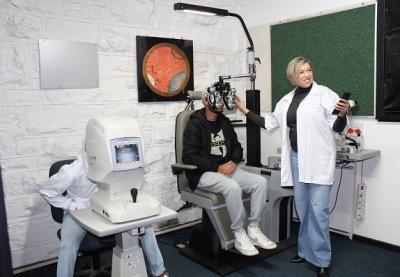
In 2024, the Department of Ophthalmic Sciences was excited to announce the opening of its new Eye Clinic, which would offer a range of essential eye care services to CPUT students.
Situated in the Trafalgar Stone Building on the District Six Campus, the clinic opened its doors to students on 5 June 2024. The services offered by the new facility include free vision screenings, comprehensive optometric examinations by qualified optometrists, and affordable spectacles provided by senior Opticianry students.
The Head of Department, Angelique Walbrugh, said that the Eye Clinic would operate on an appointment basis, ensuring an efficient and organised service. Students could book their appointments here
The clinic would be open from 10:30 to 15:30 on Mondays and Wednesdays during the academic term. A formal community launch of the Eye Clinic was scheduled to take place during Eye Care Awareness Month, which ran from 21 September to 17 October 2024. This event highlighted the clinic’s role in promoting eye health and providing accessible care to the CPUT community.
Ms Walbrugh said the new clinic would serve as a supervised training facility, offering invaluable practical experience to students.
Opticianry students were required to compile a 120-case patient record as part of their Health Professions Council of South Africa Board requirements.
“The programme includes a buddy system, where junior students are paired with senior students at each station. This system allows senior students to reinforce their skills by teaching them, thereby enhancing their learning experience.
“The Eye Clinic will not only benefit the students receiving care but will also provide critical clinical and professional experience to Opticianry students across all years of study. Increased patient interaction will help these students develop the essential skills needed in the ophthalmic industry, ensuring they are well-prepared for their future careers,” said Ms Walbrugh.
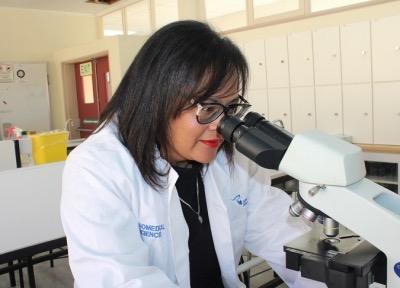
Senior lecturer in the Department of Biomedical Sciences, Dr Yvonne Prince, said it was an “incredible honour” to be awarded the prestigious Self-Initiated Research (SIR) Grant by the South African Medical Research Council (SAMRC) for her work on the oral microbiome.
Dr Prince, a researcher with the SAMRC/CPUT Cardiometabolic Health Research Unit, said the grant not only recognised the value of her work but also provided the necessary support to advance scientific knowledge and contribute to improving health outcomes.
“I am excited to embark on this journey and look forward to the positive impact my research will have.”
Dr Prince explained that the oral microbiome was the second largest microbial ecosystem after the gut microbiome, containing more than 700 species of microorganisms. Therefore, the oral cavity is a major gateway to the human body.
“Evidence has shown that any disruption in the diversity of the oral biome can be associated with inflammatory conditions, such as periodontitis, diabetes and metabolic syndrome and kidney disease.
“This implied that disturbances in the diversity of the oral microbiota could lead to an increase in chronic inflammation predisposing patients to low grade inflammatory disorders and the development of cardiovascular traits. Furthermore, factors, such as smoking, allow certain oral microorganisms to gain dominance and, therefore, predispose individuals to the progression of periodontal disease.”
She believed that the SIR grant aimed to build on these initial findings by expanding the sample size and investigating other habitats within the oral cavity to validate fully these initial findings. Moreover, it would allow the investigation of (a) the effects of lifestyle factors, such as smoking and the use of alcohol, on the oral biome, and (b) whether there is an association between the diversity of oral microorganisms and other disorders, such as renal disease and the severity of bacterial infections. The final aim would be to translate these findings into improving oral health in the surrounding community.
A primary goal was to enrol and mentor one PhD and one MSc candidate who would join the other postgraduate students within the research unit. These students would receive training in the isolation of DNA and RNA, as well as expertise in 16S RNA nextgeneration sequencing, and bioinformatics which is a scarce skill in South Africa.
“In addition, CPUT offers several training courses on various aspects of performing research and, therefore, all students will graduate with the attributes to develop into independent researchers. In addition to training students, young emerging scientists and postdoctoral fellows will be mentored in supervision skills. This will be achieved by involving them as co-supervisors with experienced supervisors.” A collaboration was formed with the University of the Western Cape Dental School to contribute to furthering the training of dental and biomedical postgraduate students.
“The cardiometabolic health research unit is committed to transformation and the reduction of gender inequality. This is reflected in the fact that many of the recent graduates are young women of colour. “
Dr Prince would be working with the unit’s director Prof. Tandi Matsha and co-director Prof. Glenda Davison, while the other collaborators were Prof. Manogari Chetty (UWC) and CPUT’s Dr Saarah Davids, Dr Stanton Hector, Dr Shanel Raghubeer and Dr Lisa Graham. “I would like to express my sincere gratitude to the SAMRC, the SAMRC/CPUT Cardiometabolic Health Research Unit and its directors Prof. Tandi Matsha, Assoc. Prof. Glenda Davison, the laboratory manager and the research staff in the unit.”
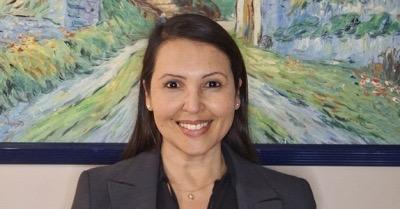
The passion for her work, combined with a desire to empower the next generation, earned Prof. Kareemah Najaar a finalist spot in the prestigious 2024 HERS-SA Higher Education Women Leaders Awards.
Prof. Najaar, a senior lecturer in the Department of Emergency Medical Sciences, was one of the top five finalists in the category of Women in STEM.
She is the leader of a community project that supports matric Life Sciences learners from selected disadvantaged schools in preparation for their final exams.
The project has been running for six years and has become a Faculty of Health and Wellness Sciences service-learning project, as well as an inter-institutional endeavour with the University of the Western Cape’s Medical Biosciences Department.
“In addition, in the past three years we have included a project that supports the National Sanitary Dignity programme that is aimed at empowering women. The coproject leaders are both professional women at CPUT, and creating opportunities for the development of women in Higher Education is part of what I am being recognised for, too,” Prof. Najaar said.
She said her heart skipped a beat upon learning that she was one of the finalists.
“Being acknowledged on this level is very humbling and leaves me emotional because it’s a reflection of my passion and my dreams for STEM in South Africa. It shows that the selection committee understands and appreciates the critical role that higher institutions play in driving and supporting STEM in the community, particularly at disadvantaged high schools.”
Her passion for science started at a young age.
“I have always been drawn to science and was very fascinated by the functioning of the human body and the mechanisms that make it possible. To be honest, I always knew I wanted to pursue this path and am grateful for the opportunities that I was granted to achieve my goals. The discovery that teaching is my passion was a bonus to an already gratifying path. I could not have wished for a better combination!”
She enjoys witnessing her students apply theoretical knowledge, whether at undergraduate or postgraduate level.
“In other words, when theory is translated into practice, to improve the quality of human life. Watching my students grow and develop into self-sufficient and kind human beings and then being humbled by their unselfish natures when they volunteer and pay it forward to their communities - this is what makes my work very enjoyable.”
Her advice to young women hoping to pursue a career in STEM is: “If you feel it calling to you, pursue it! South Africa needs more women to join in the STEM field. It is one of the few disciplines that has significant potential to drive our country’s economy. Our country’s future literally depends on supporting and driving campaigns that encourage young women and girls to achieve their dreams of becoming successful within the STEM field.
The Awards Gala Dinner was held at the Two Oceans Aquarium on 29 August.
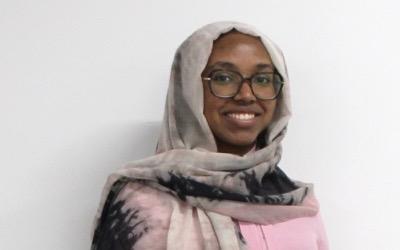
A medical student who had been displaced from her home country of Sudan was welcomed to CPUT, ahead of the Ubuntu 2024 Conference. Sara Idrees, a fourth-year student at the University of Gezira, was on a two-week Student Network Organisation exchange and was hosted by the four local universities: CPUT, the University of the Western Cape (UWC), Stellenbosch University and the University of Cape Town.
The four institutions co-hosted the Ubuntu 2024 Conference with the Western Cape Department of Health, Rural WONCA and The Network: Towards Unity for Health. A conference was hosted at UWC from 10 to 13 September 2024 and the theme was People, Place and Policy for Community Wellness. During her stay at CPUT, Sara was hosted by the Faculty of Health and Wellness Sciences.
She said that, after the conflict in Sudan, she and her family were displaced and now live in Riyadh, Saudi Arabia.
“We are displaced in Riyadh for about seven months now. The first few months was [sic] a bit difficult and everything was new.”
Her Sudanese university opened an external branch in Riyadh and other cities to facilitate the education process for students. Sara said visiting CPUT “was a beautiful experience” in terms of education and culture.
Dr Lizel Hudson, Work-Integrated Learning and Language Coordinator in the Faculty of Health and Wellness Sciences, who hosted Sara, said they briefly explored the small towns of Gouda, Saron and Porterville in the Boland, which included a visit to centres in Saron. They also travelled to the West Coast towns of Vredenburg, Saldanha Bay and Langebaan. Hudson said it was a “rich personal and professional experience, setting the scene for the conference with a very apt theme of People, Place, Policy and Community.” Dr Hudson said Sara had been selected to spend time learning about rural and community health in South African communities, their cultural norms and traditions, in addition to their local health systems, beliefs and habits.
She met with community members and patients from three organisations: Community home-based care a soup kitchen facilitated by the non-profit organisation NorSA, and a visit to the elderly at Badisa’s Percy Bilton Centre. Dr. Hudson commented as follows: “The West Coast leg of the visit was to Siyabonga Care Village – an emotional trip where tears rolled freely from our eyes. Under the guidance and leadership of Ms Chrisna Du Plessis, this facility gives a whole new meaning to care.
“Documenting these activities in a linear manner seams easy and straightforward; yet the observations and emotions were difficult, uneasy and shook me to the core personally. The people we met, having to operate and deliver services in mostly difficult situations ‘underscored’ by often difficult to understand policies, are true angels!”
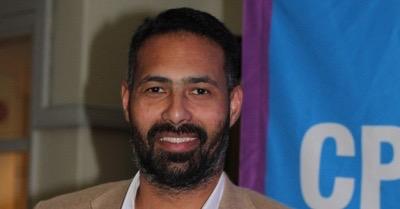
Excellence was at the heart of the Faculty of Health and Wellness Sciences (FHWS) Teaching and Learning Awards, which also celebrated the themes/goals of oneness and smartness.
The event, held at the Cape Town Hotel School, was attended by academic, administrative and clinical staff and was a testament to the high standard of learning, teaching and assessment in the Faculty.
The following awards were presented:
• Departmental Teaching Excellence Awards 2023: Dr Stanton Hector and Dr Samantha Meyer (Biomedical Sciences Department)
• Recognition for Outstanding Secretary Award: Sanet Nothnagel (Biomedical Sciences)
• Recognition for Outstanding Technician/Clinical Instructor Award - Vera Baiden (Dental Sciences)
• Recognition for Innovation in Teaching with Technology Award - Benjamin De Waal (Emergency Medical Sciences)
• The Faculty also recognised retiree Bridget Wyrley-Birch of the Medical Imaging and Therapeutic Sciences Department.
The keynote address was delivered by Prof. Penelope Engel-Hills, who spoke on the topic: Embracing Innovation: Transforming Health Sciences Education in South Africa. She encouraged colleagues “to reflect on our own innovative teaching and learning practices” and to “embrace innovation”. The event was arranged by Faculty Teaching and Learning Coordinator Anthea Pinto-Prins and members of the Faculty’s Teaching and Learning Committee.
“We, as the FHWS, wish to extend our gratitude to Dr Xena Cupido and the team at Fundani (CHED) for allowing us to make this special occasion possible through the UCDP”, said Ms Pinto-Prins.
Winner of the Departmental Teaching Excellence Award 2023, Dr. Stanton Hector was honoured at the Faculty of Health and Wellness Sciences Teaching Excellence Awards
Helping to give others a ‘better tomorrow’
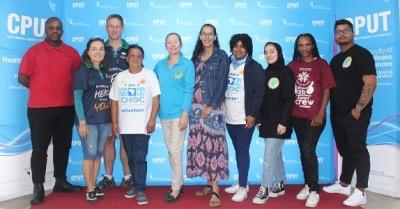
The Department of Biomedical Sciences collaborated with the South African Bone Marrow Registry (SABMR) with regard to the annual Bone Marrow Drive at the Bellville Campus.
The SABMR helps to find matching donors for patients needing a bone marrow transplant and who do not have a match within their own families. Biomedical Sciences lecturer, Rizqa Siebritz, said the Bone Marrow Drive aimed to spread awareness of the importance of being a donor in the hope of giving someone else a ‘better tomorrow’.
“My students in the Haematology II Biomedical Sciences Department volunteer to assist in spreading awareness of the bone marrow donation process and how easy it is to become a donor.”
Nadia Chalkley, head of donor recruitment for the SABMR, said drives like the one at CPUT were critical “because it helps us really focus in terms of the demographic we want to recruit to our registry”.
“The South African Bone Marrow Registry, even though we have 78 000 current donors, [they] are predominantly Caucasian, and we really need to diversify if we want to service all our patients in South Africa and in Africa. So, not only diversifying the registry in demographic terms, but giving patients a better outcome, really is what this is about. And it’s obviously always wonderful working with CPUT: they’re so efficient in the implementation of the service-learning agreement that it makes sense for us to partner with CPUT through events like this, through lectures and hopefully more to come this year.”
The Bone Marrow Drive was followed by a virtual online talk by Canadian partner, Sylvia Okonofua, from Black Donors Save Lives. It was titled: “A needle in a haystack: What are the odds it’s going to be you?”
The aim was to highlight the importance of diversity and inclusivity in the donor population in order to increase the chances of finding donors for patients in the same genetic pool. Other partners in the drive included:
• Childhood Cancer Foundation (CHOC)
• Organ Donor Foundation (Save Seven Lives)
• Vitanova (Tissue Bank)
• Western Cape Blood Services
• CPUT Student Counselling
• CPUT HIV/Aids Unit
Student Support in Action: The Role of Retention Officers (ROs) in First-Year
The Faculty of Health and Wellness Sciences continues to prioritise student success by strengthening its first-year support initiatives, including the active involvement of Retention Officers (ROs) based within the Faculty. These dedicated staff members play a vital role in assisting first-year students academically, socially and emotionally as they transition into university life. ROs provide individualised guidance, connect students to essential resources, and proactively identify potential challenges that may impact their academic journey. A core aspect of their work involves close collaboration with academic Departments, mentors and tutors to create a coordinated support network. To ensure effective communication and build a sense of community, ROs also facilitate tools, such as WhatsApp groups, for departmental cohorts. These efforts underscore the Faculty’s commitment to holistic, student-centred support and the belief that academic success is best achieved through shared responsibility across teaching and support teams.

speakers emphasised the importance of patient-/person-centered care, the students’ responsibilities towards WIL and adherence to HPCSA requirements. The ceremony ended with a candle-lit ceremony, students reading the pledge and signing the pledge book, which served as a commitment to the journey ahead.
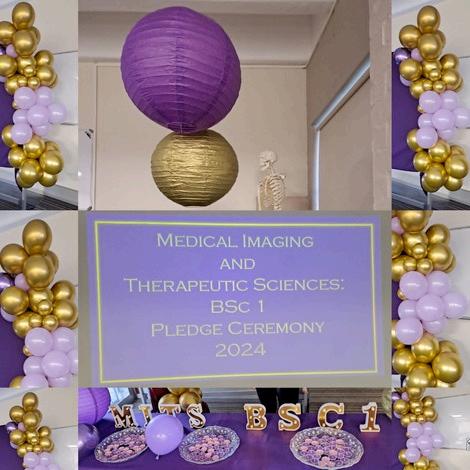

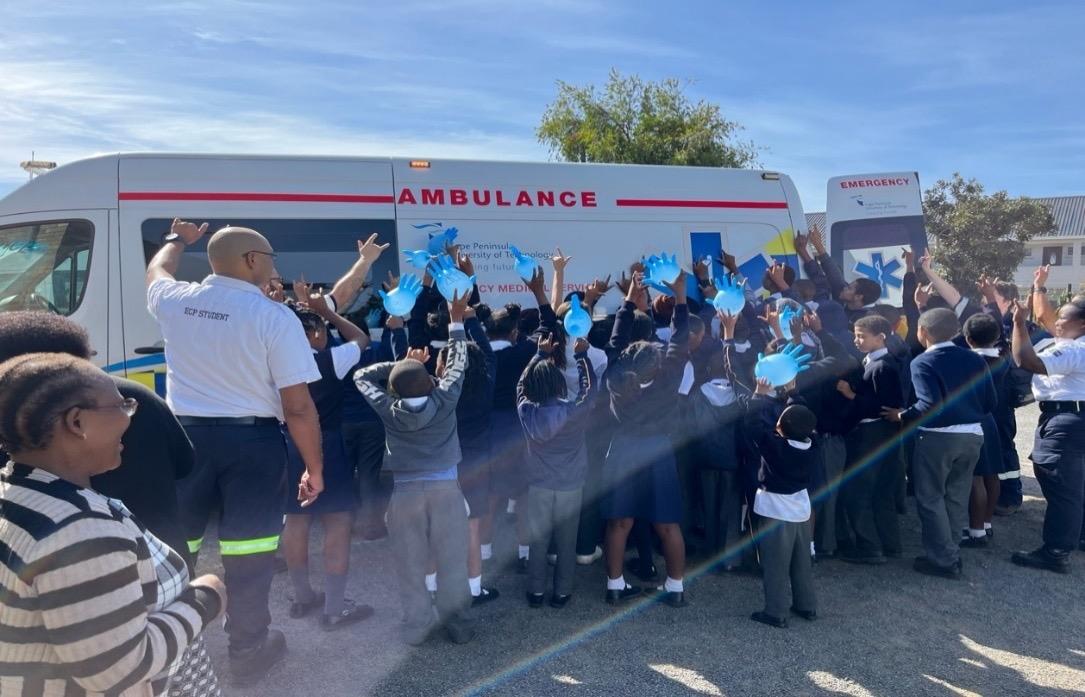
A group of Emergency Medical Care students led a transformative service-learning project focused on enhancing emergency literacy and healthcare access for the deaf community in Cape Town. With guidance from their supervisor, Mrs C. De Waal, the students partnered with the Mary Kihn and Dominican Schools for the Deaf to educate learners regarding emergency services and build trust between emergency responders and hearing-impaired individuals.
What began as a project rooted in advocacy evolved into a deeply reflective experience. Students engaged learners through interactive demonstrations, song-based recall of the emergency number “112”, and the use of South African Sign language (SASL). They also incorporated visual learning aids and exposed children to EMS uniforms and vehicles in a friendly, educational context, breaking down barriers of fear and unfamiliarity. Student reflections revealed profound insights into empathy, inclusion, and professional ethics.
They described their increased cultural sensitivity, improved non-verbal communication skills, and a commitment to advocating for equitable healthcare access. The project also sparked critical dialogue with regard to the current limitations which deaf individuals face when attempting to contact emergency services, ranging from technological gaps to the lack of SASL interpreters in urgent care settings.
One of the student’s reflected that “[t]his project reminded me to be patient and flexible and that good communication and empathy are key to providing quality emergency care for all patients, regardless of their abilities”. This experience allowed students to not only expand their clinical preparedness but also to embrace the values of respect, dignity, and social justice.
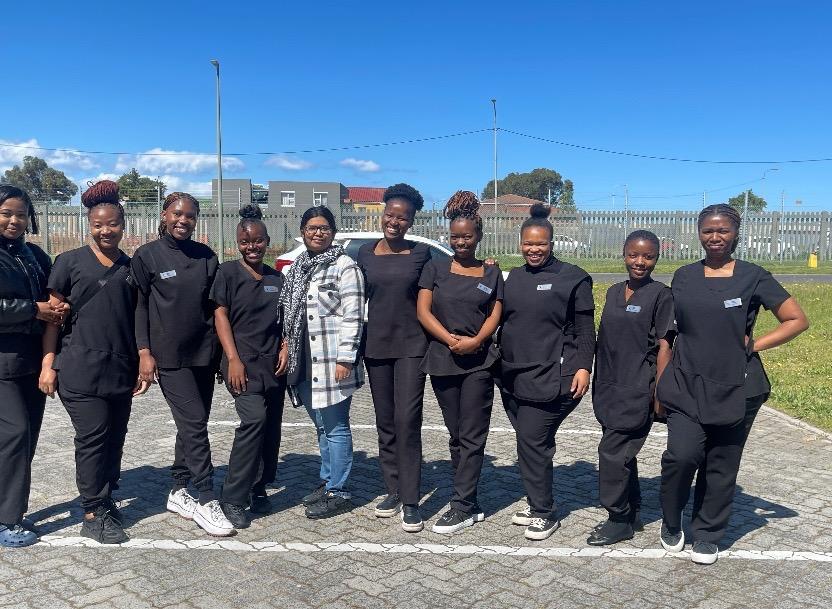
Third-year Somatology students from the Wellness Science Department participated in a service-learning initiative at Lentegeur Psychiatric Hospital, where they offered therapeutic self-care treatments to pre-discharged patients. These interventions aimed to improve patient self-esteem, promote a sense of identity, and support reintegration into society. The project was rooted in a long-standing partnership with the hospital, guided by social workers and coordinated by the Wellness Sciences Faculty.
Students provided manicures and massages in a safe, respectful environment, learning to build rapport with individuals and navigate complex mental health challenges. Reflections from students highlighted empathy, communication skills, and a deeper understanding of patient-centered care. Many reported that their initial nervousness was replaced with admiration for the strength and resilience of the patients.
In addition to direct care, students reflected on systemic barriers in mental health settings—such as limited mobility equipment and social stigma—and recommended more interactive, creative approaches to engaging patients in future interventions. This experience empowered them to challenge preconceived notions about mental illness and underscored the importance of the therapeutic touch in emotional healing.
As we reflect on the teaching and learning journey of 2024, it is clear that the Faculty of Health and Wellness Sciences embraced both innovation and introspection. The integration of AI into pedagogical practices opened new avenues for engagement, personalisation, and clinical relevance, while also challenging us to re-evaluate traditional frameworks and assessment strategies. Alongside these technological shifts, the Faculty has remained committed to strengthening student support, fostering collaboration, and celebrating key milestones that reflect our ongoing growth. As we look ahead, our focus remains on creating a responsive, socially just educational environment—one that prepares students not only to succeed academically, but to thrive as ethical and competent professionals in a rapidly changing world.

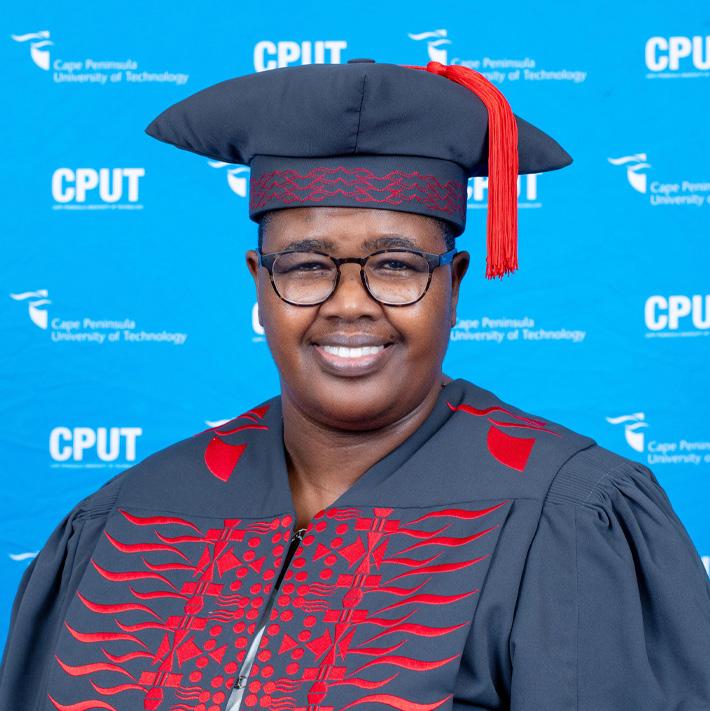
Prof Tembisa Ngqondi Dean of the Faculty

Prof Masilonyane Mokhele Assistant Dean of the Faculty
Learning from the past and embracing democracy
Faculty Vision
Leading creativity and innovation in Africa
Faculty Mission
The Faculty of Informatics & Design provides an environment conducive to creativity and innovation where:
• People are the focus, and our programmes are relevant to society’s needs;
• Appropriate technologies are explored and applied;
• Excellence in teaching and learning is actively supported;
• A culture of research and scholarship with an emphasis on trans-disciplinarity is promoted;
• Personal and professional growth is nurtured;
• Graduates are critical thinkers and leaders in their fields.
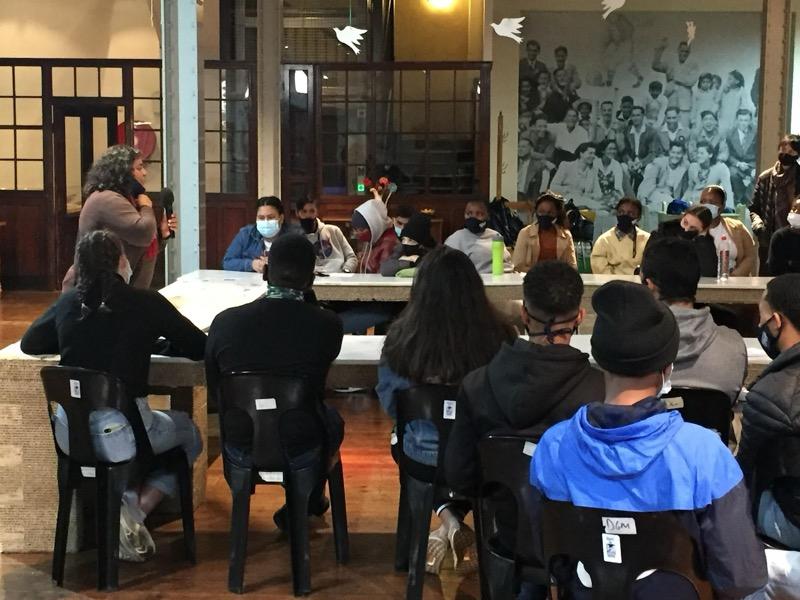
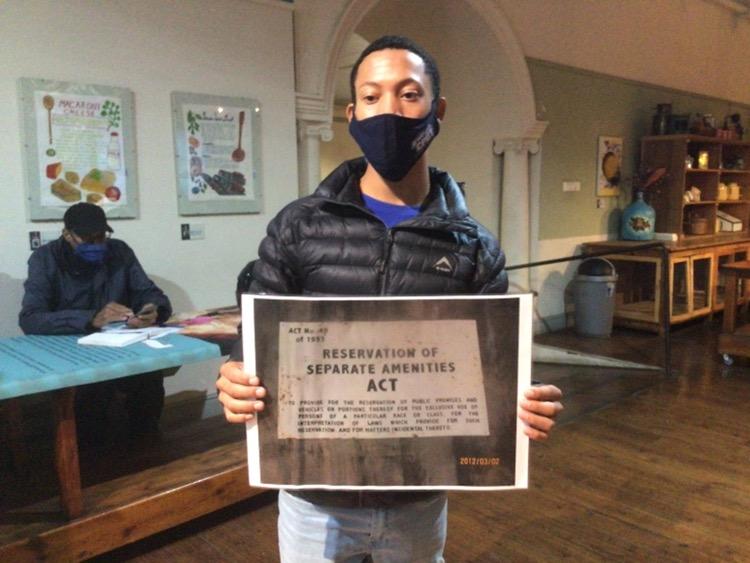
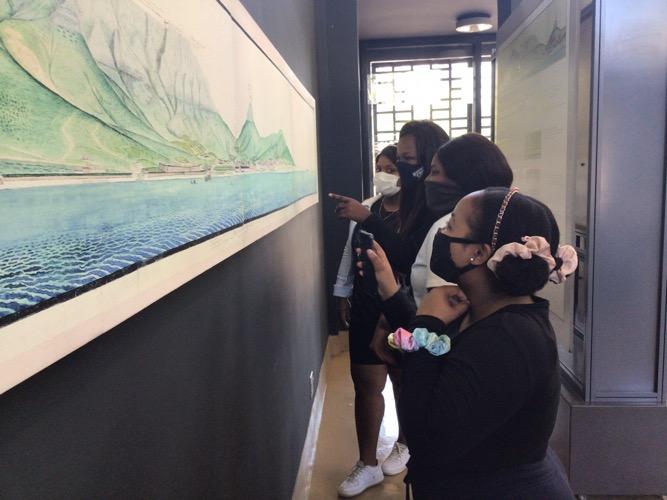
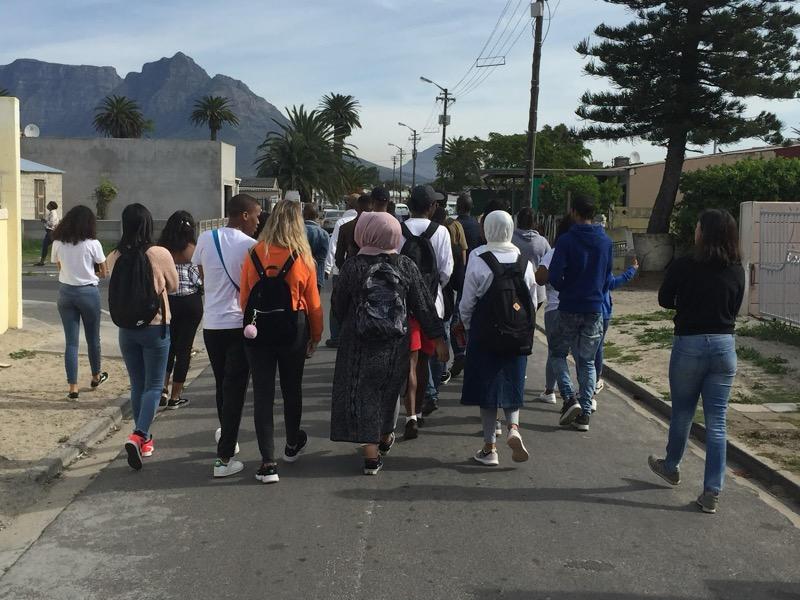
Architectural Technology and Interior Design students used design and art to demonstrate apartheid’s Reservation of Separate Amenities Act of 1959, as part of their learning and projecting challenges posed by the apartheid regime. Students and facilitators interacted at the District Six Homecoming Centre.
The Vertical Project is an ongoing initiative that involves both junior and senior students in the Department of Architectural Technology and Interior Design. A long-standing project, it experienced setbacks in 2019 and was further affected by the COVID-19 pandemic. The project is designed to allow students from different academic years to collaborate on the same project. Its goal is to foster lasting connections between students from junior to senior years, and to break down the silos between student years within the Department. The main motivation behind the Vertical Project was to empower students to design their own social spaces within our campus. This is considered a valuable addition to the academic experience, particularly in creating spaces for relaxation and social interaction outside of academic spaces. This helps to achieve a better balance between work and play on campus, while also enhancing the aesthetic appeal of the campus and encourage creativity.
In June 2024, the Department of Architectural Technology and Interior Design ran a vertical project built on work from the previous year, when students developed mural designs. The 2023 designs were then realised in 2024 by painting the lines of the patterns of the murals on the departmental walls throughout CPUT’s Roeland Street building. The complete colouring in of the murals is to be done in a future vertical project and when funding becomes available.
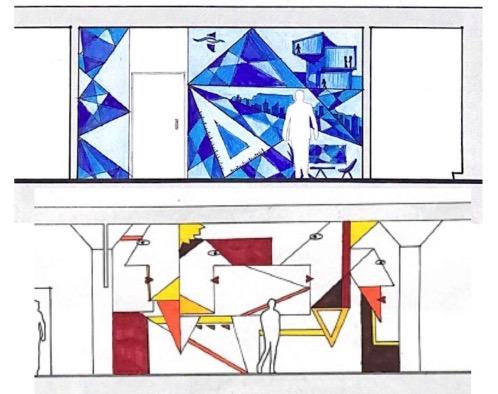
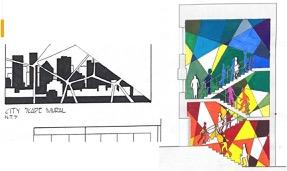
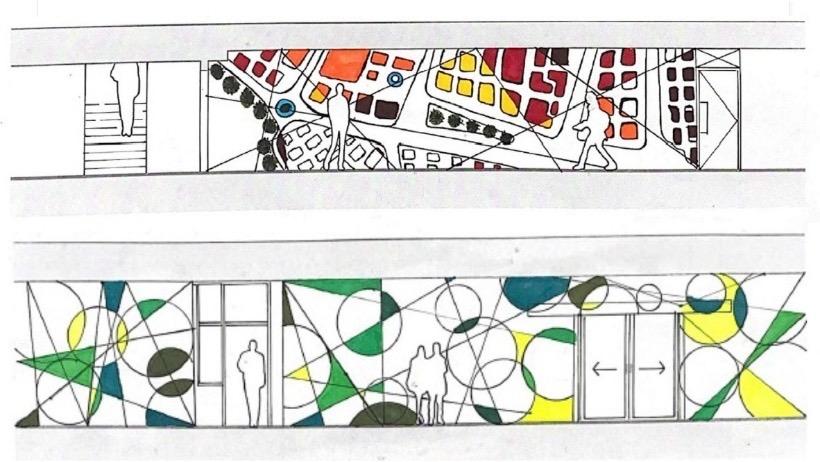
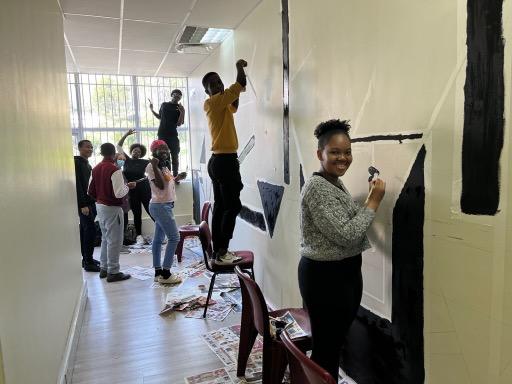
Students working in groups to develop these mural designs for the chosen spaces throughout the departmental building on Roeland Street.
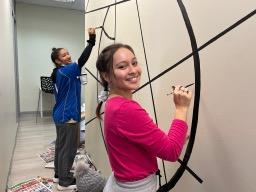
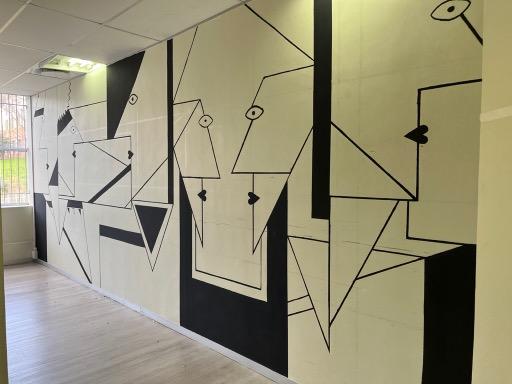

From 6 to 17 May 2024, second-year Interior Design students collaborated with students from the University of Derby (UK) on a live project at the Water’s Edge Accommodation Centre (WAEC) in Simon’s Town. The aim was to design and implement spatial interventions that celebrated the history of the Simon’s Town community.
The activities of the first week took place at CPUT’s Roeland Street building. Students were introduced to the project; they took part in team building and orientation activities and were divided into mixed groups. They spent the week developing ideas, finalising concepts, and presenting their proposals for murals and signage. The week was concluded with a guest lecture presented by a staff member of Saint Gobain, a company that specialises in drywall solutions, followed by a visit to Zeitz MOCAA to spark further creativity.
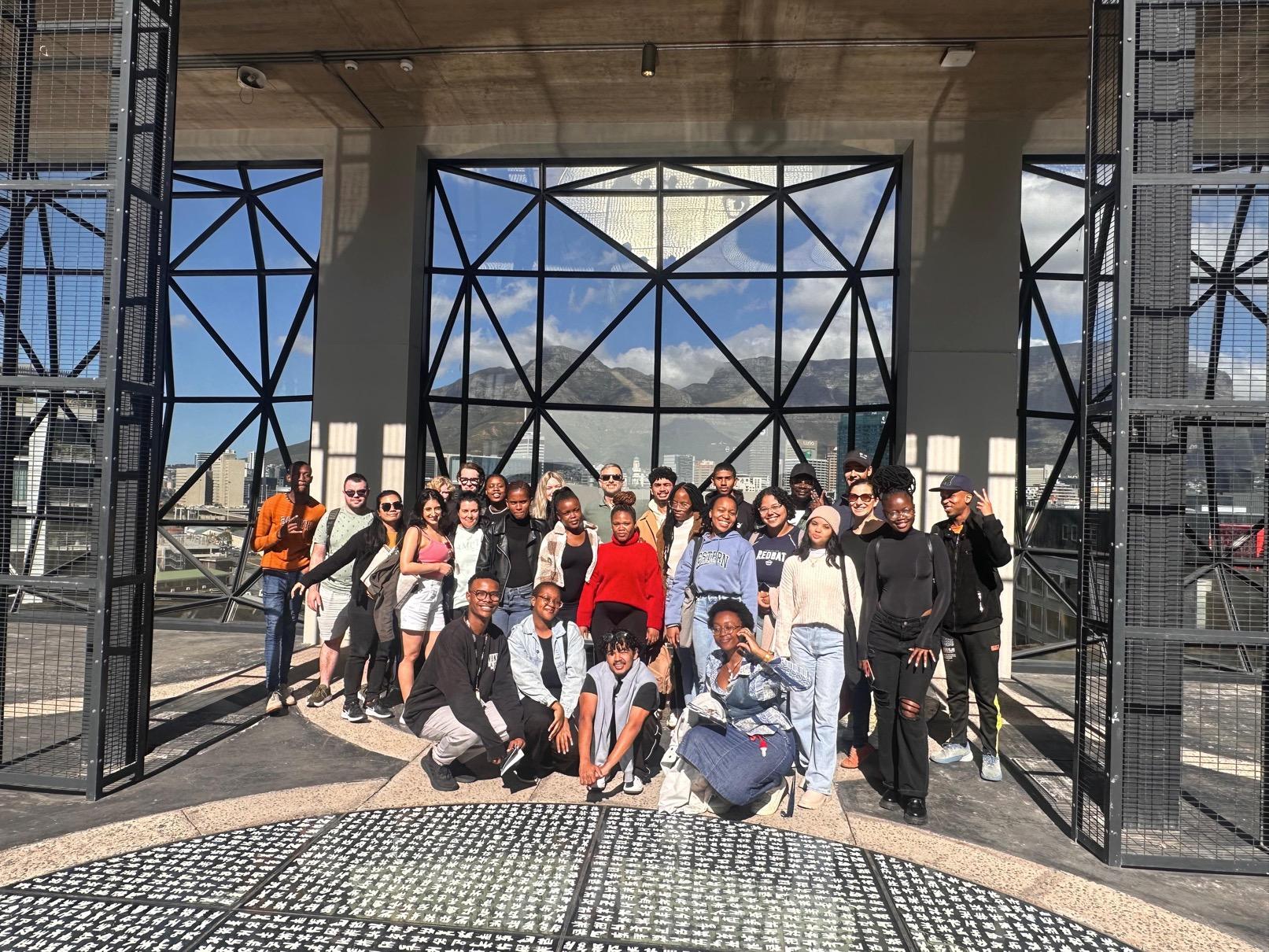
During the second week, students stayed on-site at WAEC to implement their designs. Activities included creating way-finding and signage, observing the installation and finishing of the drywall structures, and designing and painting murals, feature walls and doors. The work aimed to enhance the visual and functional quality of the centre, which serves as an affordable, safe, supportive space for youth camps and community groups.
Students gained valuable hands-on experience, from technical skills, such as painting, drywall installation, and the use of power tools, to collaborative problem-solving and time management. The project also encouraged cultural exchange, as students worked closely with their UK counterparts, sharing perspectives and approaches to communitybased design.
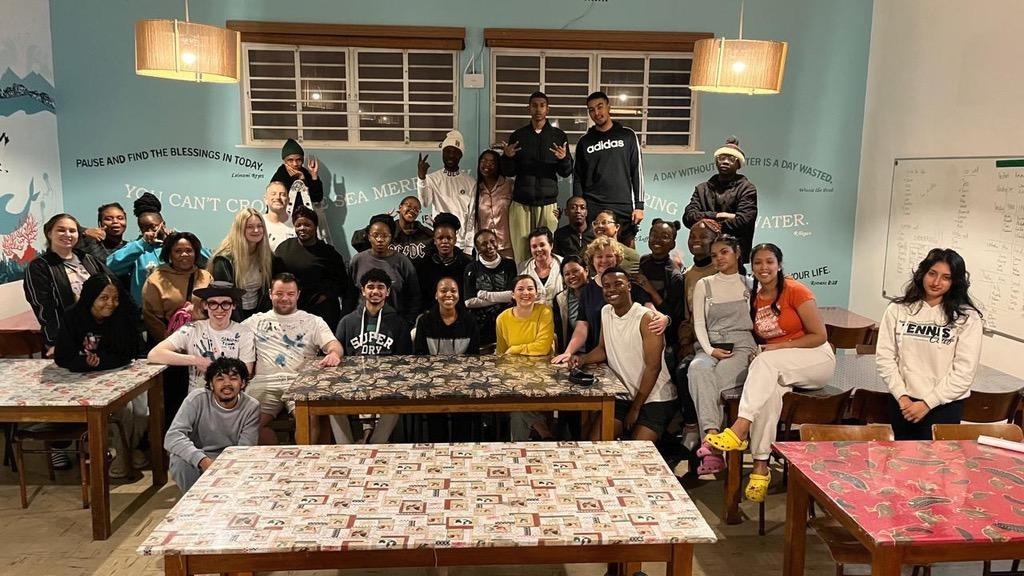
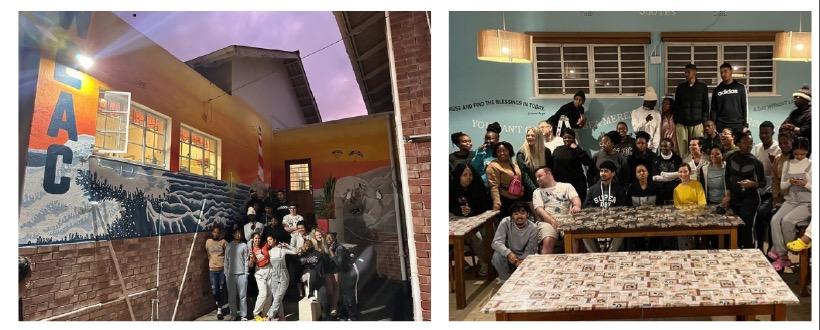
The project concluded with a successful handover of the renovated spaces, which reflected the students’ creativity, teamwork, and commitment to delivering functional, sustainable, and aesthetically engaging design solutions.
The Architectural Technology and Interior Design Department overcomes WIL challenges
The Architectural Technology Diploma includes a WIL component in its architectural practice module, in which students complete at least 18 weeks of internship to gain practical experience. However, some students in the Architectural Technolo¬gy and Interior Design Department could not secure work-integrated learning (WIL) place¬ments. According to the Department, this was partly due to the country’s economic climate. Nevertheless, the Department did not fold its arms. It developed solutions to tackle the challenge.
The Department’s WIL coordinator, Ayanda Buwa, and the Head of the Department (HoD), Rayner Moodley, improved the simulated office model (SIM) by incorporating industry engagement and building partnerships. This transformational project enabled students to experience comprehensive industry interactions, gain access to professional mentorship, and engage in projects that simulated real-world challenges and opportunities in architecture and interior design.
The Department-initiated partnerships with eight architecture and interior design firms ensured that students who had internships, as well as those in the simulated office environment, could benefit equally. The firms were approached to contribute not only their expertise but also resources, such as speciality materials and tools that our Department would otherwise have lacked. The coordinator’s role involved establishing collaborations, coordinating projects, setting expectations, and guiding industry professionals and students during the second semester of the three-year diploma. The hands-on involvement allowed students to gain a well-rounded and immersive industry experience that previously had been unattainable within the constraints of the then simulated office model.
Mr Buwa collaborated with another third-year Architectural Technology lecturer, Gingirikani Maswanganye, and adopted a hands-on approach, guiding the breakdown of project briefs for the Caesarstone Competition and the Catalytic Projects, and working with the Marketing and Communications Department. Lecturers provided design and technical support throughout the competition, ensuring that students understood the requirements. The HoD provided guidance throughout the semester, helping students manage their workflow while balancing other commitments.
The core mission had been to develop students’ skills and confidence through collaboration. It fosters a resourceful environment in which students are encouraged to partner with lecturers and peers across disciplines within CPUT’s Architectural Technology and Interior Design Department. The collaborative network is central to the office of the HoD and his efforts to empower students, preparing them to navigate complex design challenges with resilience and creativity.
Final-year students sang the Department’s praises. Miles Luyanda Magubane said the programme allowed him to work on CPUT’s Vision 2030 project. The project focused on two ideas — oneness and smartness — to promote unity within the CPUT community. The project entailed redesigning the entrances to the District Six and Bellville campuses, rendering them bigger and more student-friendly. The students who participated in the SIM Office programme appreciated the experience. ‘Interative and very important to us.’ It was an important programme for us to also get work experience and showed them how the industry works. Students produced the drawings for the company, which taught them the Council submission processes, creating working drawings, and technical detailing of building components (see pictures below).


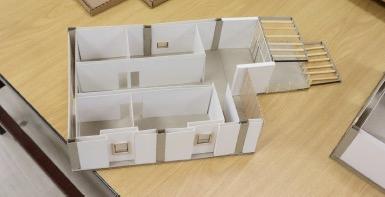
The Department of Architectural Technology and Interior Design also introduced the lunch hour talk series in 2024. The purpose of these talks was to introduce students to directors of leading architecture and interior design firms, both nationally and internationally. The talks are well received and are seen as an expansion of the greater profession, which has been achieved by inviting architects, interior designers, research academics, and interdisciplinary designers to inspire students and broaden their thinking regarding career options within their chosen area of study. During these sessions, students are required to sign an attendance register in order to earn CPD points as part of their PRACTICE subject. This is a standard procedure within the profession. Guest speakers can also earn points - awarded by our Department - for the South African Council for Architectural Professionals (SACAP) as guest lecturers for these LUNCH HOUR TALKS.
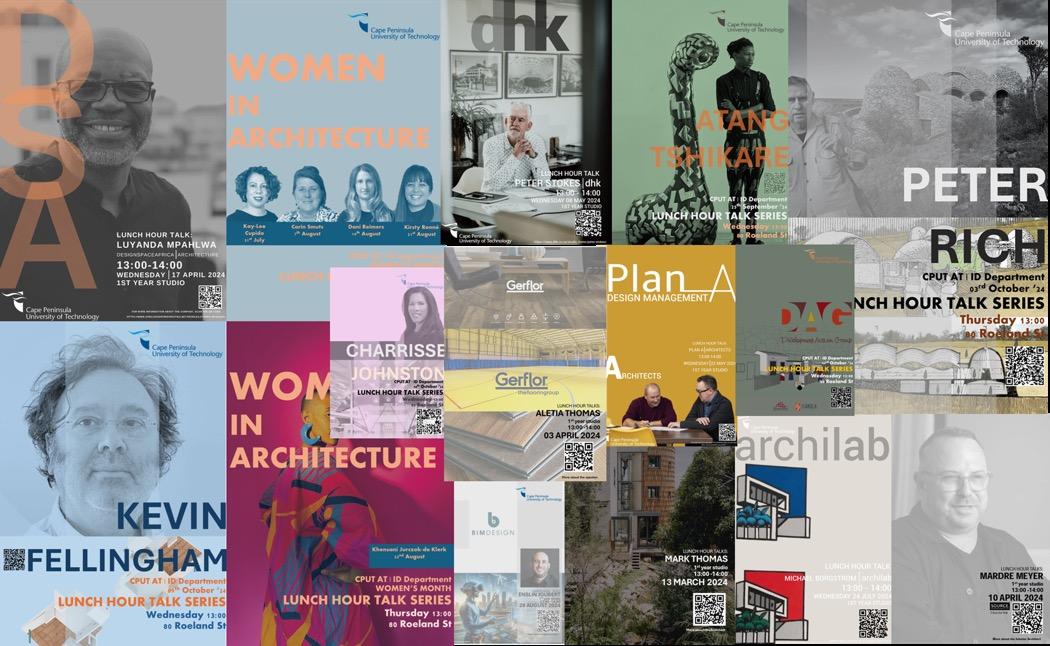
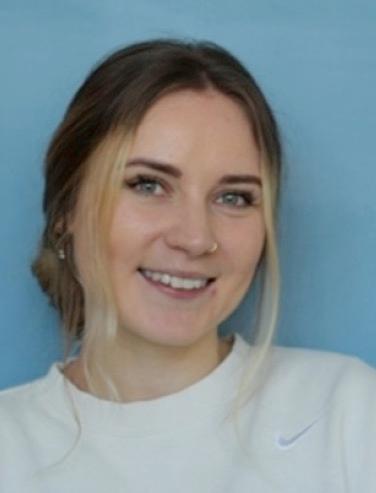
An Advanced Diploma in Interior Design student was announced as one of the student winners in the prestigious SIT Furniture Design Awards. Kayla Obbes won the Furniture Design (Armchair category) for her design, titled Grounded. Her design is a statement piece embracing an organic, harmonious, down-to- earth and soothing energy. It was conceptually derived from a brass-singing bowl and the experience thereof, embracing shape, held space, and being centered and grounded. The student’s work is a product of her third year of study at the BHC School of Design – a project which required students to design a furniture prototype. Kayla was motivated and supported by her lecturer, Colleen Cocotos, who saw potential in her design and encouraged her to enter the SIT Furniture Design award. Consequently, the student reworked some of her designs and uploaded them. The congratulatory email shocked and excited Kayla since she had not expected this.
Industrial Design students in the Department of Applied Design transformed children’s ideas into reality. Five machines, designed by 2024 Grade 7 learners at Steenberg Primary School, and built by CPUT students, were displayed at the Zeitz MOCAA (Museum of Contemporary Art Africa) at the V&A Waterfront as part of the ongoing MyMachine exhibition. The ‘Dream Machines’ turn childhood concepts into functional prototypes. MyMachine, active in 47 countries, challenges conventional education by empowering children to recognise the value and impact of their ideas. Through hands-on STEAM (Science, Technology, Engineering, Arts and Mathematics) education and intergenerational collaboration, primary school pupils design their own ‘Dream Machines’. Their imaginative concepts are transformed into fully functional prototypes by third-year Industrial Design students from CPUT, who work closely with the young innovators as their clients.
This project takes place annually, choosing a primary school from a disadvantaged community to ensure that the transformative power of creative education reaches those who need it most. This process nurtures critical thinking, problem-solving skills, and bridges generations, empowering children to become innovators and future leaders. At the Zeitz MOCAA Museum “MyMachine South Africa” was described as more than an educational project - namely, a transformative tool for innovation ideas. It was further described as a beacon of hope, a catalyst for aspiration and systemic change, a celebration of creativity, and a platform empowering youth to shape a brighter future for themselves, their communities, and the world. The project, supported by CPUT and the BMW Centre for Art Education at Zeitz MOCAA, integrates STEAM education, projectbased learning, and intergenerational collaboration to equip South Africa’s youth with the skills, imagination, and resilience needed to navigate an uncertain future. “Together, we can nurture the next generation of change-makers — one Dream Machine at a time.”
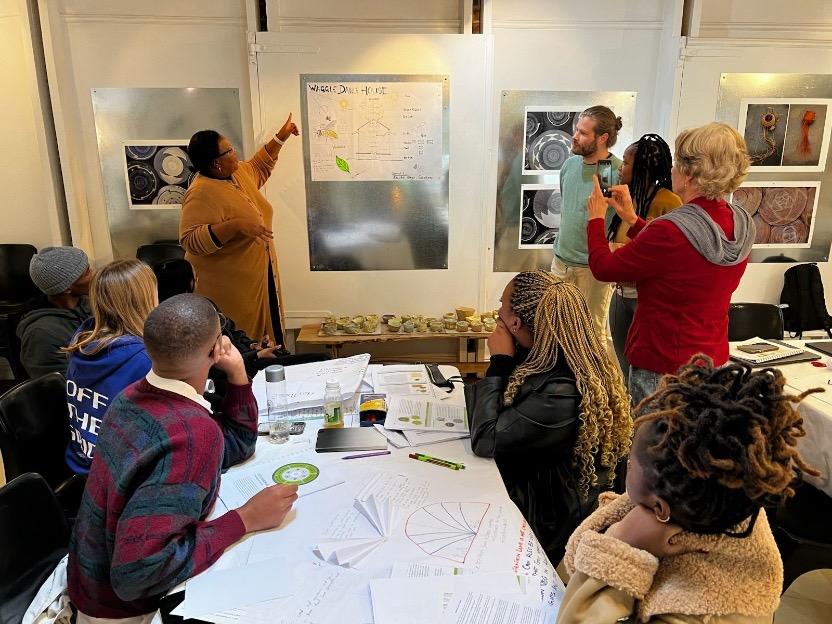
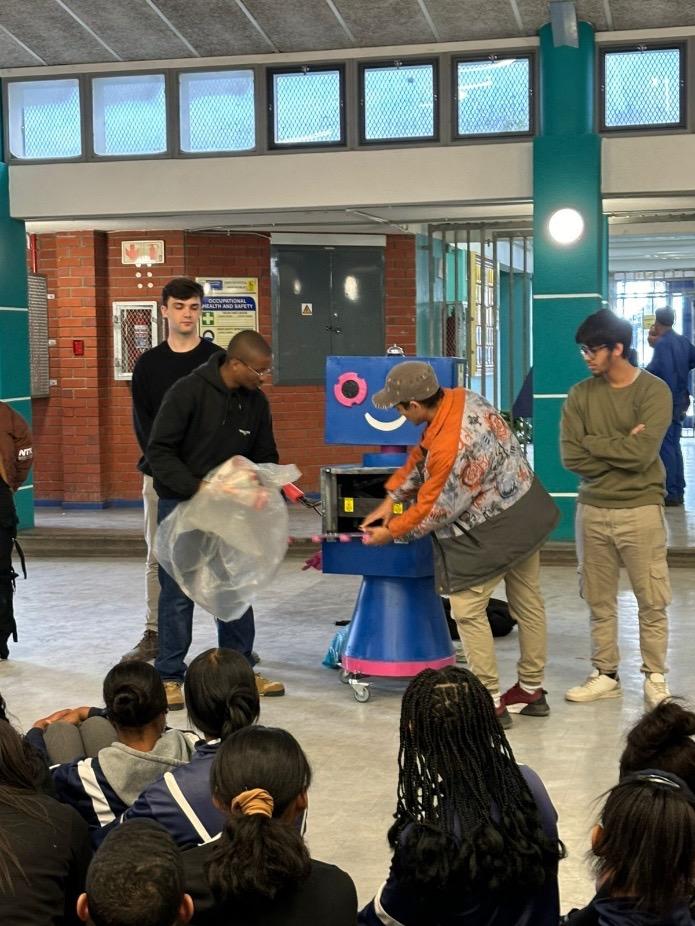
When Zena Julies crossed the stage in her wheelchair to graduate in December 2024, wearing a specially designed gown, she felt empowered and transformed and proud. The “inclusive graduation gown”, created by fashion design lecturer Sindiswa Papa, was tailored to meet Ms Julies’ needs as a wheelchair user. She graduated with a Diploma in Business Information and Adminis¬tration and is now pursuing an Advanced Diploma. Ms Julies shared that putting on the specially designed graduation gown was a transformative experience. It felt liberating to have a gown that not only represented her academic achievements but also met her specific wheelchair needs. She said that, unlike standard gowns, which can be cumbersome and ill-fitted for someone seated. This new and adapted gown embraced functionality and elegance by including practical features, such as a shorter length, strategic openings for ease of dressing, and a fitted, yet flowing, design that balanced form and function. It allowed her to move with ease, avoiding the frustrating tangling or dragging that often comes with traditional gowns.
And wearing the gown was more than just a personal achievement; it was a message of inclusivity and ingenuity. As she was wheeled across the stage by the Deputy Registrars] of CPUT, Ms Nonzuzu Zikalala, she felt that tradition could be redefined, a challenge to others to consider how small adjustments can have a significant impact. The plaudits she received were not just for her academic achievements but also for the breakthrough presented by the design of her inclusive gown. She believes the innovation sets a strong precedent for inclusive academic traditions. It demonstrates that with intelligent design, everyone’s achievements and equality can be celebrated.
Future graduates with disabilities will no longer have to choose between comfort and confidence on such a significant day. It also pushes institutions to move beyond onesize-fits-all approaches, fostering a culture in which accessibility is the norm rather than the exception.
Ms Julies said inclusive fashion is not just about practicality but also dignity, representation, and empowerment. She said academic and professional settings define what we wear, reflect who we are and how we want to be perceived. Ensuring attire is inclusive sends a message that everyone belongs and deserves to participate fully. It is a step towards breaking down barriers and promoting diversity.
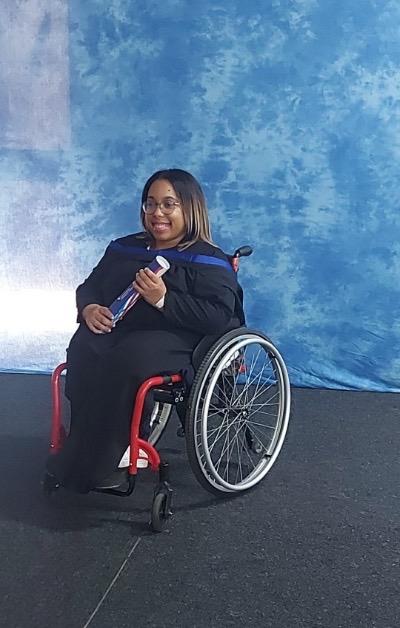
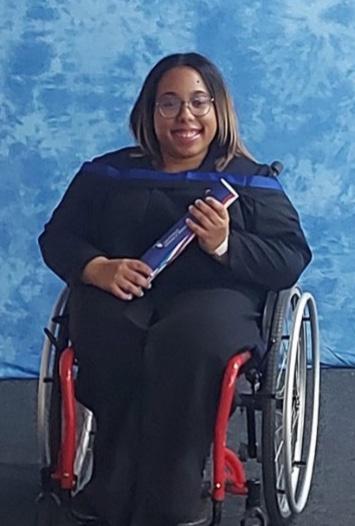
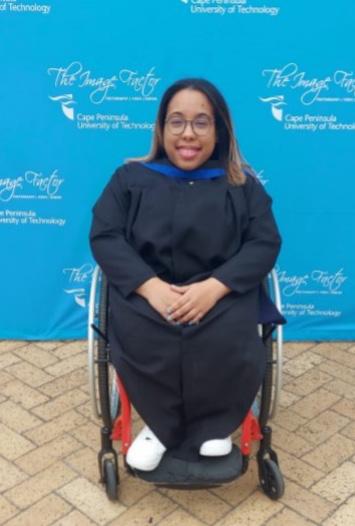
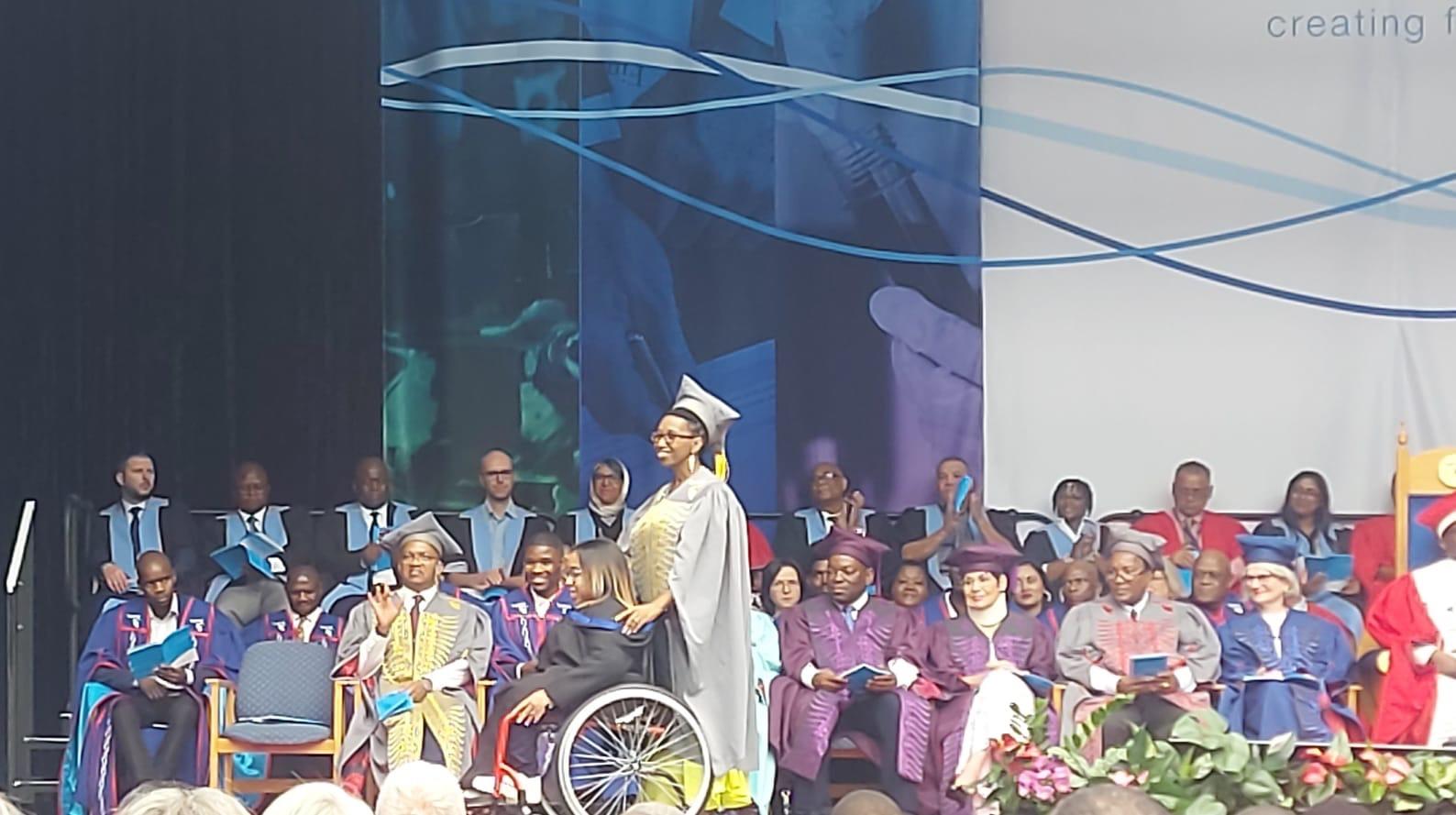
The Faculty of Informatics and Design (FID) achieved impressive student enrolment figures, reaching nearly 99% of its planned target for 2024. This included close to 90% of firsttime cluster enrolments and approximately 65% of postgraduate enrolments. Faculty Officer, Mr Nkosiphendule Kashe, said these successes highlighted the dedication and hard work of the Faculty’s staff. In 2024, the Faculty had received a total of 61 922 applications; 23 491 applications were accepted into their ‘first choice’ of qualification. These numbers enabled the Faculty to meet the first-time entering (FTE) target by achieving 89,4% of the first-time cluster.
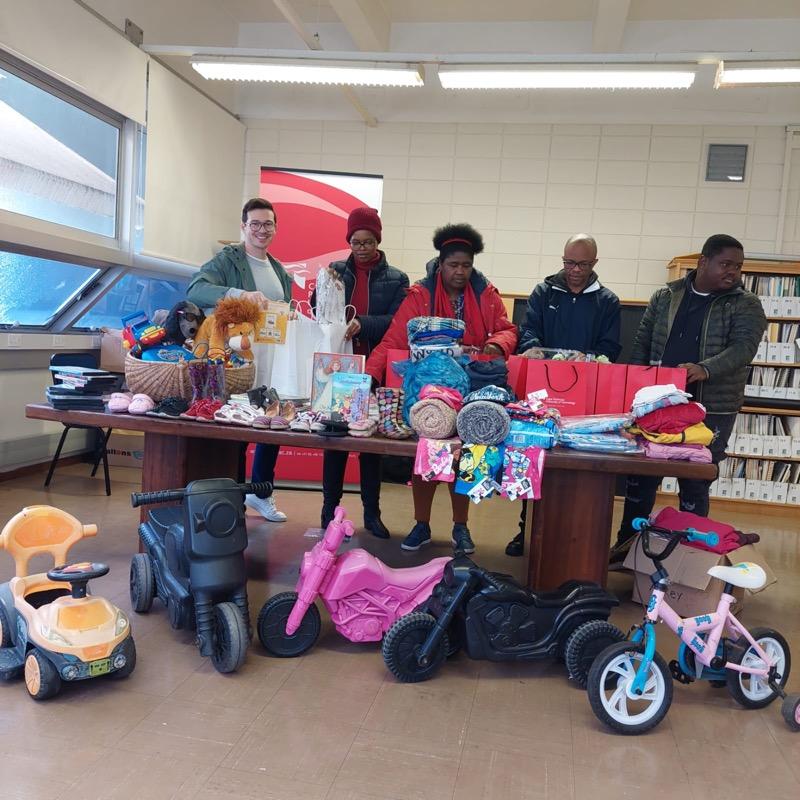
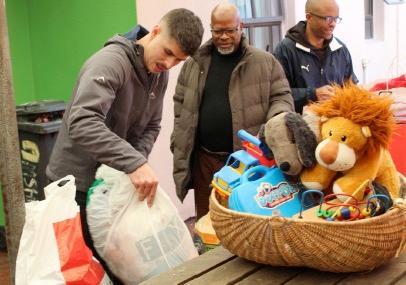
In postgraduate enrolments, the Faculty managed to meet 64,5% of the enrolment target. The Faculty Office believes that the number may be increased and is currently looking at ways to support the Postgrad Studies Office to improve the number.
The graduation list, submitted and approved by SENEX (Senate Executive Committee), achieved a flawless 100% accuracy rate. For approval, the audit assessed the completeness, accuracy, and validity of the graduation lists used. Furthermore, the Faculty Office was engaged in business acceptance testing in preparation for the 2025 registration period, to eliminate hiccups. This process tested the correctness of the academic structure, fee structure and other services associated with registration.
The Faculty of Informatics and Design embraced the spirit of Mandela Day by giving back to those in need. Led by Dean Professor Tembisa Ngqondi, a team visited an orphanage in Langa, bringing with them gifts, such as toys, clothing, bedding and food. The visit brought joy and left a lasting impact on the children, etching permanent smiles on their faces.
Mandela Day, the birthday of the late former South African president, is celebrated on 18 July, and is a global call for people to unite to fight poverty and promote peace, reconciliation and cultural diversity. Ms Ndileka Xameni, the founder of Siyaphambili Orphan Village, was overcome with gratitude and struggled to find words to adequately thank the Faculty. The bedding and track suits for children were produced by the first and second year students as part of their assessment. The funding for the fabrics for the bedding sets had been sourced from staff and alumni.
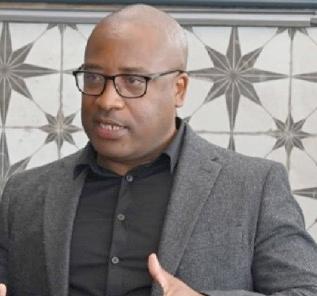
Senior lecturer in the Media De¬partment, Dr Blessing Makwam¬beni, is one of the editors of a groundbreaking new book Organ¬isational Communication in Africa: Navigating a Digitalising World published in 2024. The book brings together empirical work that examines how digitali¬sation is impacting on and re-con-figuring organisational communi¬cation in different countries across the African continent. It provides new insights, theories and prac¬tical strategies for engaging with organisational communication from a Global South perspective.
Dr Makwambeni edited the book alongside Dr Sam Usadolo of the Durban University of Technology and Dr Queen Usadolo of the North West University and said that the project had arisen from everyday conversations between the trio.
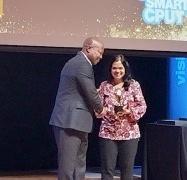
Dr Sam Usadolo and Dr Makwambeni are communication scientist while Dr Queen Usadolo specialises in organisational behaviour. They wanted to produce a book for their modules that borrowed from both fields of study to examine contemporary issues in organisational communication from a Global South perspective.
Palgrave Macmillan took an interest in their project and gave them two contracts. The above-mentioned book is the first of two books they are publishing. The second one that focuses on the intersection of organisational behaviour and organisational communication and technology is being published in February 2025. Dr Makwambeni co-authored one of the chapters in the book, titled Appropriation of Artificial Intelligence in Organisational Communication: A Scoping Review.
The Media and Communication Depart¬ment’s postgraduate qualifications are a cut above the rest. This was affirmed by the Vice-Chancel¬lor’s Awards, which was presented to the Department at the inaugural Vice-Chan¬cellor’s Excellence Awards on Mon¬day, 25 November 2024. Professor Nirvana Bechan, the head of the Media and Communication Department, described the award as a stamp of approval.
In August, the Department underwent a programme review, requiring the submission of subject guides and assessments. Our Department conducted two simultaneous reviews: one for undergraduate programmes and another for postgraduate programmes, each with its own set of documents. At the Vice-Chancellor’s Excellence Awards, the Department of Media and Communication was honoured with an award, sharing the recognition with two other Departments. The three Departments achieved the highest scores in the postgraduate programme review, meaning their Master’s degrees and postgraduate diploma programmes were of excellent quality. Prof. Bechan said the University’s quality directorate also awarded the Blue Flag status to the Department this year based on the previous quality review. That meant that all items requiring improvement, as indicated by the previous review, had been successfully achieved.
The first year at university is often a chal¬lenging time for many students. However, the IT Department found an innovative way to ease this transition and enhance student experience. In 2024, the Department ran five sessions, through the First-Year Experience (FYE) initiative, to support students “mentally and academically”. The FYE initiative was launched in 2023. The latest session, in which Samantha Hanslo from Student Counselling en¬gaged the students on the importance of mental health care, was held in October 2024 – just in time for the exams.
Ms Hamman, lecturer in the Department, indicated that the program was valuable and informative, addressing current students’ viewpoints. The Department keeps all the presentation on a portal that acts like a subject on Blackboard. All the sessions and the speakers’ videos, presentations, or books, are stored on the portal for students to access.
IT students impress at Afrihack Connect Hackathon
IT students showcased their talents at the prestigious Afrihack Connect hackathon. Third-year students Palmira Senama and Athini Nocanda demonstrated innovation and problem-solving skills in September 2024. The annual event, organised by the Empiras Global Academy, brings together students from various institutions to tackle real-world challenges through innovative technology solutions.
Ms Senama remarked that the experience helped her step out of her comfort zone, challenge herself and speak in front of an audience. This competition helped her overcome stage fright and gained confidence She admitted that there were certain things she had not known existed or how they worked; it was like discovering a new world she did not know existed.
Mr Nocanda’s team secured an impressive third place by developing a solution to assist disadvantaged students in applying for university admissions. Securing a third place was a surprise to him as his team had completed all their projects in one minute.
The Photography students put their talent in focus with an exhibition in Cape Town’s CBD. The exhibition, launched on 2 November 2024, ran until February of 2025 at the Central Library Art Gallery. Dr Waldemar Bussiahn, the Head of the Photography Programme, said the turnout at the opening of the exhibition was good. About 100 people attended the event that showcased a range of stunning images that included displays of commercial, fine art and personally inspired work.

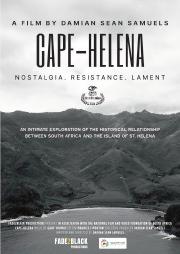
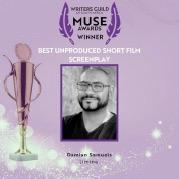
The shared history of South Africa and St Helena Island is underexplored in formal research, despite a rich oral history tradition and a large St Helenian diaspora in South Africa and from books in some libraries. Film Production lecturer, Damian Sean Samuels, pulled these stories from obscurity with his nostalgic film. Cape-Helena was screened at the Labia Theatre, Cape Town, in October of 2024, and was selected for the Encounters International Festival, where the screening was sold out. Mr Samuels said it was very difficult and expensive to produce a film in South Africa. He said Cape-Helena was a personal film, but also intersubjective in the sense that his connection to the Island of St. Helena, as a descendant, is representative of hundreds of thousands of other South Africans who shared his heritage. It took seven years of intensive research, trying to source funding, writing, planning, producing and eventually releasing the film. However, the journey was very satisfying because he managed to visit Saint Helena twice and reconnected with his family after two generations of separation. Samuels reaped the dividends of hard work this year. Two of his film scripts were selected for the prestigious Writers Guild of South African Muse Awards 2024. The first is a script for his doctoral documentary film, Cape-Helena, that has made it to the Semifinalist stage. The second is a short fiction script, Limina, which won the award for best 2024 Short Fiction Screenplay.
Johann Abrahams wins SAFTA for ‘Khoekhoe saga’
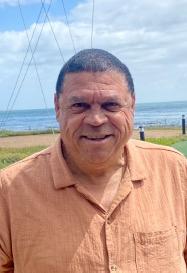
Cinematography lecturer, Johann Abra¬hams, won the prestigious South African Film and Television Award. Abrahams received an award for Best Educational Programme for the documen¬tary series ‘Khoekhoe Saga’ in October of 2024. He directed the documentary - which premiered on SABC 2 in 2024 - telling the stories of South Africa’s herders. It showcases his skill in blending storytell¬ing with educational content.
Abrahams said the award recognised the history of the aboriginal people of South Africa.
“I am extremely grateful for this recognition because what it means is that for the first time, there is an acknowledgement of the history of the Khoi and the San. Their collective history is so important for our youth. This places the focus on that history.”
Have you ever questioned your own identity?
This is the theme of Who Am I? an exhibition created by collab¬orating film and photography students from the Cape Peninsula University of Technology and the Polytechnic of Porto, Portugal. First showcased at Cape Town’s Iziko Museum in March of 2024, the exhibition will be displayed at the Polytechnic of Porto in May. Through their work, students explored the evolving nature of self-perception, offering a critical reflection on identity.
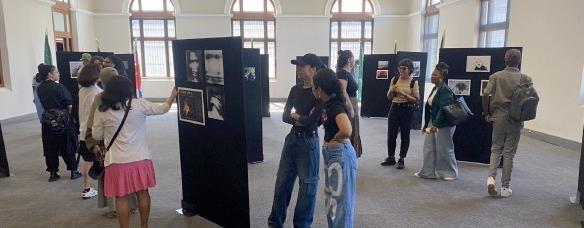
Dr Waldemar Bussiahn, Head of CPUT’s Photography Programme, said 12 students from both institutions participated in the exhibition. According to him, students at the Polytechnic of Porto study primarily fine art, which created an interesting mix. Furthermore, they had commercial photography students collaborating with fine art students, which led to diverse approaches and unexpected creative outcomes. The students were given the same brief and spent about seven months developing their work. The organisers started discussions in mid-2023, identified student groups in early 2024, and worked from March until around September or October.
Former photography student Saadiqah Ebrahim said she was happy to have been among the first students involved in the collaboration.
Polytechnic of Porto lecturer, Professor João Leal, who also exhibited his Farpado/ Barbed series, took the students’ work with him to Portugal to prepare for the May
Dr Bussiahn and Mr Eran Tahor, Head of CPUT’s Film Production Programme, travelled to Portugal in mid-May to set up the exhibition. Dr Bussiahn indicated that there was interest from potential buyers who would like to buy the students’ collection. Leal said the collaboration was made possible by the Erasmus+ Programme, the European Union’s student exchange initiative, and that this was the first partnership between CPUT and the Polytechnic of Porto’s School of Media, Arts and Design.
Jewellery design and manufacturing shines at Plata Africa Awards
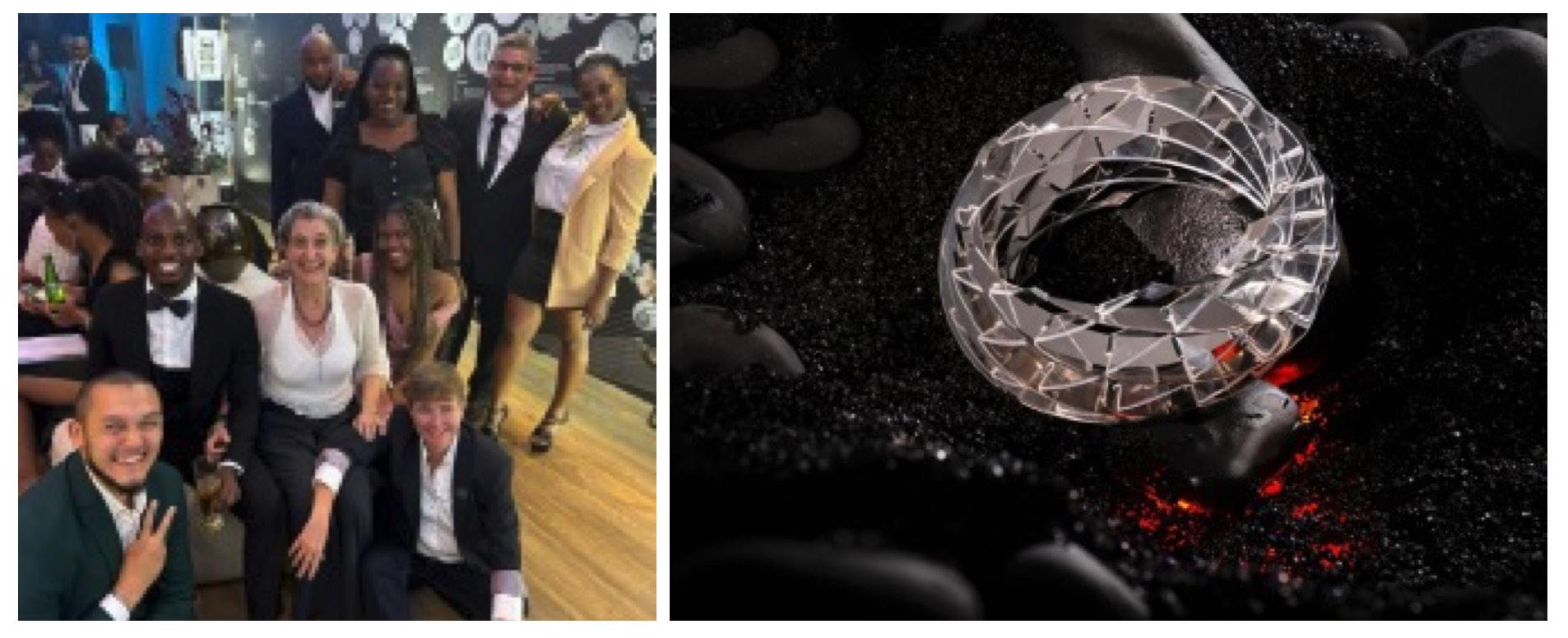
CPUT’s Jewellery Design and Manufacture Programme’s lustre shines bright.
Ms Jordaan, a lecturer and goldsmith, won in the professional category of the 2024 PlatAfrica Awards, held at Melrose, Johannesburg, in October.
This achievement showcased her work on a prestigious platform, enhancing her credibility and visibility in the industry. Her entry, Resonance, was inspired by the theme Legacy and Beyond and drew on Villarceau Circles, a mathematical concept first described by Yvon Villarceau in the 19th century. The design was realised in platinum and polyethylene terephthalate (PETG) plastic, combining traditional craftsmanship with modern technology.
The techniques used included hand manufacturing, 3D printing, casting, laser cutting, laser welding, and computer-aided design. She described the bracelet as a fusion of design, mathematics, and symbolism, using two seemingly opposite materials that united to create a piece that reflects everything around it. Visually, the bracelet resembles ripples formed when a pebble is dropped into calm water. These ripples symbolise the impact we have on the world, forming our legacy. As they expand, they represent growth. For the wearer, they reflect the positive effects of responsible actions. A legacy can be permanent, like platinum, or fragile and fleeting, like plastic. Platinum also has a lasting economic impact on South Africa. With this piece, she wanted to show how patience, intent, and balance contribute to creating a lasting and meaningful legacy.
Ms Jordaan said that being recognised at PlatAfrica was deeply rewarding. It validated the hard work and creativity that went into not only the design and manufacture of this piece but also her career as a goldsmith and, more recently, as a lecturer. She added that she hoped her success would inspire her students. She wanted to encourage them to pursue their passion and strive for excellence, showing them that dedication leads to great achievements.
Ms Jordaan congratulated CPUT students who had also excelled at the competition. Mr Vuyani Gumede, an alumnus, had been placed first in the student/apprentice category. His piece demonstrated both technical skill and innovative design. Third-year student Mongameli Obed Thafeni was placed second, recognised for his unique interpretation of the theme and his technical excellence. Third-year student Julia Sithole shared fifth place at the competition. Ms Jordaan also highlighted the contribution of Osmond Davis, who taught the students platinum techniques in preparation for the PlatAfrica competition. Davis was placed second in his category.
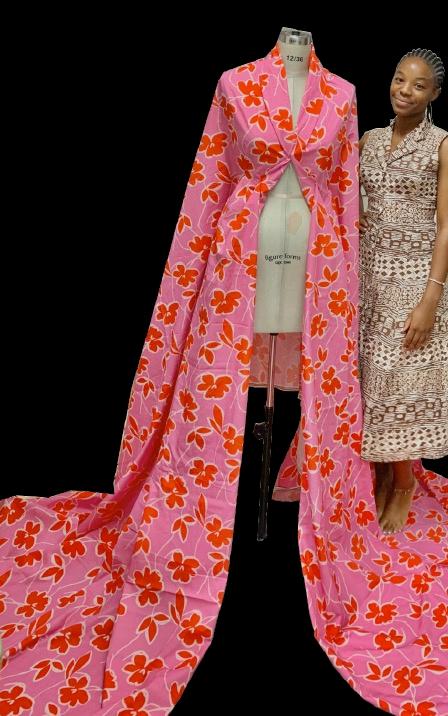
How do you share your heritage in a foreign country?
For Zimbabwean Surface and Fashion Design student, Amanda Sakarombe, the answer was: design. Now pursuing her Advanced Diploma, she introduced her her¬itage to the Faculty of Informatics and Design (FID) through her Her¬itage Fashion Design project. Blending culture with contem¬porary fashion, Sakarombe explored identity through design. In an interview with FID Pulse, she reflected on her decision to study at the Cape Peninsula University of Technol¬ogy, her experience as an international student, and the challenges she had faced. She chose CPUT because of its strong reputation for fostering creativity and innovation in Surface and Fashion Design. The curriculum balances theory with handson learning, encouraging experimentation and critical thinking. This approach deepened her understanding of design and how to apply it in real-world contexts. Unlike many international students, Sakarombe did not experience culture shock at CPUT.
She had moved to South Africa when she was five; thus, by the time she enrolled at CPUT, she was already familiar with the cultural environment. Nothing surprised her. However, her biggest challenge was the annual registration process, which she found stressful and longer than expected. Nevertheless, she described the CPUT community as welcoming. The support from Faculty and students had made a difference. Her lecturers were approachable and always willing to guide them, and her classmates had created a collaborative space in which all learned from each other. Heritage and identity remained central to her work. Through the Heritage Fashion Design project, she explored traditional Zimba¬bwean garments, their cultural significance, and their relevance in contemporary fashion. She focused on fabrics, patterns, and garment styles from her home country and explained their stories to her classmates. It was not just a question of showcasing traditional clothing — it was about expressing identity through design. Seeing how others approached their heritage was just as inspiring. International students should consider CPUT and come with an open mind. The university embraced diversity, she maintained, and there was much to learn from different cultures and perspectives.She praised all her lectures Walter, Jas, Sindy, Bongi, Marquine, Nike, Mr Zandisile, and Mr Gabriel for guidance and patience.
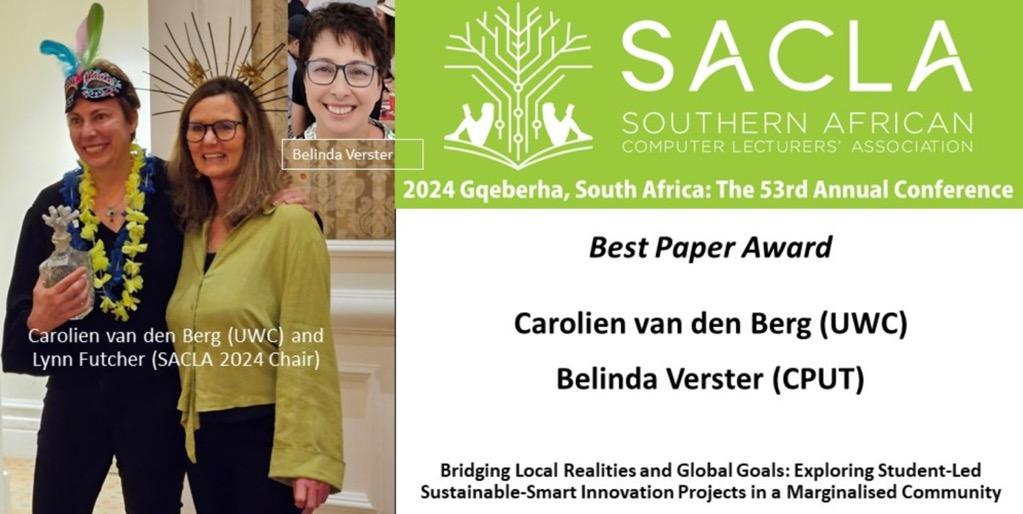

Dr Belinda Verster, a Senior Lecturer in the Department of Urban and Regional Planning, won the Best Paper Award at the national SACLA Conference based on an interdisciplinary longitudinal L&T project in partnership with the University of the Western Cape. This research focused on localising the SDGs with and within marginalised communities.

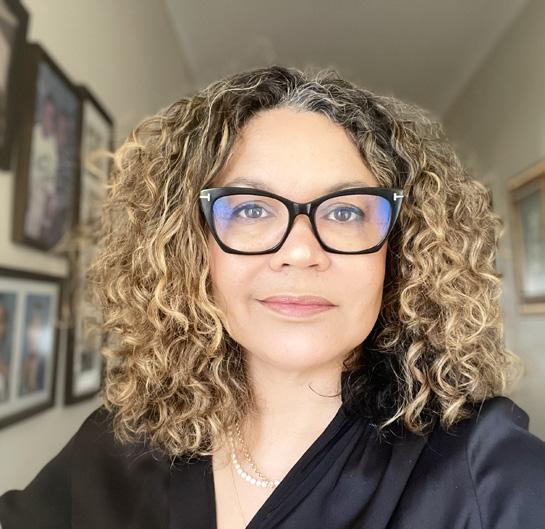
Dr Xena Cupido Director: Fundani Centre for Higher Education Development
The 2024 academic year has had a deep impact on and innovation for Fundani CHED. As a centre committed to enhancing teaching and learning across the university, we have seen how our collective efforts in academic staff development, curriculum renewal, student support, and evidence-based practice have contributed to building a stronger, more inclusive academic community. Through academic staff development, we expanded opportunities for professional learning by offering workshops, short courses, and peer-learning platforms that strengthened teaching practice and encouraged engagement with the scholarship of teaching and learning. Many colleagues have taken up these opportunities to reflect on their pedagogical approaches, experiment with new technologies, and publish their work, thereby contributing to CPUT’s growing reputation for teaching excellence.
Our curriculum development work has also deepened, with teams supporting programme reviews, embedding multilingual approaches, and integrating social justice principles into curricula. The Curriculum Development Unit convened forums with colleagues from across faculties and the broader higher education sector, positioning CPUT as a thought leader in inclusive curriculum design.
The student voice has remained central to our work. Through structured student feedback initiatives, including focus groups and review processes, we ensured that learners’ experiences informed both curriculum renewal and teaching improvement. The powerful feedback from students in high-risk courses, such as Cytology and Microbiology, has already led to redesigned support structures and significant improvements in pass rates. In STEM education, we continued to tackle challenges regarding student success in foundational mathematics and science subjects, developing targeted interventions and building collaborations with Faculty to improve student outcomes. At the same time, our academic advisory initiatives have matured into a structured and evidenceinformed practice, giving students better guidance and tailored support throughout their academic journeys.
The First-Year Experience (FYE) remained a flagship initiative, celebrating its tenth anniversary this year and reaching thousands of students with orientation, mentoring, and CPUT101 workshops. At the postgraduate level, our workshops, mentoring programmes, and article-writing initiatives contributed to higher progression rates and strengthened research capacity, particularly among black and female students. None of these achievements would have been possible without the enabling role of the University Capacity Development Grant, which has allowed us to act with both agility and vision. These investments in staff, students, and curriculum will endure, creating futures that align with Vision 2030’s call for Oneness and Smartness.
As Director of Fundani CHED, I am proud of the way our centre continues to embody ubuntu through our collaborative ethos, while also embracing the smart, digitally enabled practices that ensure our relevance in an evolving higher education landscape. Together, we are building a university in which every student can succeed, every staff member can grow, and every graduate can step into the world with confidence and purpose.
Dr Xena Cupido Director: Fundani CHED
In 2024, the Cape Peninsula University of Technology (CPUT) successfully implemented its University Capacity Development Programme (UCDP) with funding support from the University Capacity Development Grant (UCDG), amounting to R30.3 million. The implementation rate reached 95.5% by the end of March 2025. The programme was structured around three strategic focus areas: student development, staff development, and curriculum renewal - with cross-cutting management and institutional transformation projects. All initiatives were closely aligned to CPUT’s Vision 2030, particularly in supporting the transition to a smart, people-centred university grounded in the philosophy of Ubuntu.
Student development was prioritised through several high-impact projects. With the help of structured recruitment, training, and evaluation processes, the Undergraduate Student Success Initiative implemented a multi-layered support system by appointing 609 Student Success Champions, including tutors, mentors, teaching assistants, and retention officers. These champions supported over 3,000 students across all Faculties. The First-Year Experience (FYE) programme was significantly enhanced through the facilitation of 38 CPUT101 workshops, which reached more than 10,000 first-year students. The appointment of a dedicated FYE facilitator further expanded the reach and coherence of student transition support. In October 2024, the university celebrated its 10-year anniversary of the FYE initiative with a symposium that highlighted its longterm impact on student success and belonging.
At the postgraduate level, CPUT recorded notable progress in strengthening research capacity and improving postgraduate success rates. The Student Success Postgraduate Project, implemented in collaboration with the Centre for Postgraduate Studies and the Directorate for Research, saw a 28.7% increase in students progressing from Honours and Postgraduate Diplomas to Master’s Degrees, with significant gains among black and black female students. A total of 54 research methodology workshops and 18 mentoring sessions were conducted, reaching 2,436 postgraduate students. The introduction of an article-writing programme resulted in the development of 12 manuscripts, with 7 accepted and 4 published in DHET-accredited journals. Editing support exceeded targets, with 75 postgraduate students benefiting from academic writing services. These interventions not only improved research quality and postgraduate retention but also fostered a stronger culture of research productivity. Research development was further advanced through strategic capacity-building initiatives. The integration of mentoring, structured training, and editing services provided targeted support to emerging researchers and postgraduate students, strengthening the university’s knowledge production pipeline.
Workshops achieved 90% participation and full attendance duration, indicating high levels of engagement. Additionally, new models of support, such as the literature-based writing programme, demonstrated the potential for accelerating proposal development and publication readiness. These developments contribute directly to CPUT’s strategic goal of unlocking staff and student potential while addressing transformation targets in research output and participation.
Community engagement also emerged as a key pillar of the UCDG-funded initiatives. The Community Engagement Student Academy (CESA) was officially launched to prepare students to implement impactful projects that respond to real-world challenges. In 2024, students implemented over 13 community-based projects in which interdisciplinary teams addressed literacy, life skills, STEM education, and social justice themes.
Project themes, such as Jumpstart, Sparkling Nova, and Science Dynamos, enabled students to work across disciplines and engage communities meaningfully. Students and alumni were introduced to frameworks rooted in servant-leadership and Ubuntu, with a particular focus on the Sustainable Development Goals. The CESA programme included project retreats, reflection workshops, and a conference hosted in November 2024, providing students with platforms to present their work and receive feedback from peers and facilitators.
The STEM Club, in partnership with CESA, expanded its membership to 567 students and deepened its engagement through bootcamps, coding competitions, National Science Week, and the Residence Study Buddy initiative. Collaborative activities with institutions, such as the University of the Western Cape and Stellenbosch University, broadened the STEM Club’s reach. The club also contributed to academic recovery by way of support for at-risk students in mathematics, physics and chemistry, particularly during recess periods and with pre-assessment bootcamps.
The Siyaphumelela Project, implemented as part of CPUT’s data-informed student success strategy, continued to play a critical role in supporting transition, access, retention, and success. The project strengthened the university’s use of learning analytics, advisory tools, and early warning systems to better identify and support atrisk students. Faculty-based retention officers and data interns collaborated to enhance predictive insights and to align interventions with Faculty priorities. The STARS (Student Transition and Retention Support) Unit, allowed the project to contribute to ongoing institutional conversations pertaining to student support, success pathways, and transformation. The Siyaphumelela network provided a national platform for learning exchange, and CPUT’s active participation in this network ensured that lessons from the institution’s experience could drive broader sectoral improvement.
Staff development initiatives focused on both teaching and research. Learning and teaching-related projects supported communities of practice, curriculum innovation, and mentorship. Staff participated in targeted professional learning sessions aimed at improving student engagement, assessment, and the integration of digital technologies. The research development stream provided support to emerging academics through proposal development, article writing workshops, and access to editing services, contributing to increased publication rates and academic confidence.
Curriculum renewal efforts were geared toward decolonial and context-responsive programme design. Staff participated in curriculum transformation workshops, and Faculties were supported in reviewing programme offerings to ensure alignment with industry needs, societal relevance, and inclusivity. These efforts supported the institution’s transformation agenda and ensured that students received education that was not only academically rigorous but also socially responsive.
The effective implementation of the UCDP was supported by a strong governance structure. The UCDP Steering Committee, a subcommittee of the Senate Learning and Teaching Committee, provided oversight of all funded projects, reviewed progress reports, and ensured alignment with institutional strategy. Regular meetings, clear terms of reference, and a participatory structure involving academic, support, and financial staff enabled collaborative and transparent decision-making.
While the 2024 implementation cycle yielded considerable achievements, several challenges were identified. The progression rate from Master’s to Doctoral studies declined, highlighting the need for more structured doctoral-level support. Administrative capacity and data integration were also noted as areas for improvement, particularly in tracking student outcomes and managing high-volume initiatives. Ensuring the sustainability of initiatives post-UCDG funding remained a key concern, requiring institutionalisation and alignment with recurrent budgets.
In summary, the 2024 UCDG-funded projects at CPUT demonstrated substantial progress in transforming the academic project, supporting student and staff development, and strengthening institutional capacity. The initiatives created a strong foundation for future cycles and contributed meaningfully to the university’s mission of becoming a smart, inclusive, and socially just institution.
In 2024, the Designing for Social Justice Partnership (DSJP) short-course was successfully piloted as a collaborative initiative between the Cape Peninsula University of Technology (CPUT), the University of the Western Cape (UWC), and the University of Cape Town (UCT). The project was generously supported by the University Capacity Development Grant (UCDG) and aligned directly with the national priorities of equity, transformation, and student success in higher education.
The 6-week online course invited staff and students to explore how socially just learning design could be co-created across differences. At its core, the course sought to shift traditional models of curriculum design—in which academics alone determined what and how students learned—towards participatory approaches that centre the voices of students and marginalised groups. This was framed as both a pedagogical commitment and a justice imperative, resonating with CPUT’s Vision 2030 goals of Oneness and Smartness.
By foregrounding co-design, facilitation, and research partnerships, the DSJP course provided participants with conceptual grounding and practical tools to engage with power, privilege, and participation in the design of teaching, learning, assessment, and even extracurricular initiatives.
The first offering (April–May 2024) brought together a maximum cohort of 50 participants across the three partner universities, with teams consisting of staff-student partnerships (at least one academic or professional staff member with at least one student partner). This model ensured that co-creation was not only discussed but also practised throughout the course.
The first offering (April–May 2024) brought together a maximum cohort of 50 participants across the three partner universities, with teams consisting of staffstudent partnerships (at least one academic or professional staff member with at least one student partner). This model ensured that co-creation was not only discussed but also practised throughout the course.
The participant group was diverse, spanning:
• Academic staff engaging with curriculum renewal and assessment design,
• Professional staff working in student support and administration,
• Student leaders and activists, committed to amplifying learner voice in institutional spaces,
• Postgraduate and undergraduate students, who brought lived experience to the partnership.
The curriculum explored:
• Equity-oriented learning design as a framework for navigating power dynamics,
• The opportunities and tensions of co-creation, including responsiveness to student needs versus institutional constraints,
• Case studies of student-staff partnerships as remedies for exclusion and silencing,
• Practical engagement with human-centred design and co-design practices, including prototyping interventions.
• The pedagogy reflected principles of Ubuntu and sentipensante (thinking-feeling) approaches, emphasising that knowledge is co-created, relational, and rooted in social justice.
By the end of the course, participants were equipped to:
• Apply co-design tools in their own contexts (teaching, support, leadership, or research);
• Critically reflect on the messiness of partnerships, including negotiation of roles, voice, and institutional limits;
• Develop prototypes of interventions for more equitable and inclusive teaching and learning.
Participants were invited to join the broader DSJP project community of practice, where their interventions could be implemented, peer-reviewed, and evaluated. This ensured that the short- course was not a stand-alone event but part of a growing movement towards embedding student-staff partnerships as a norm in higher education practice.
The DSJP short-course has established itself as a pioneering model for South African higher education, showing how capacity development funding (UCDG) can be leveraged to experiment with innovative, socially just pedagogy. It demonstrated that student voice is not an optional add-on but a critical dimension of knowledge creation in the university. Ultimately, the course affirmed that designing for social justice is not only about equitable outcomes but about equitable processes of learning, teaching, and decision-making.
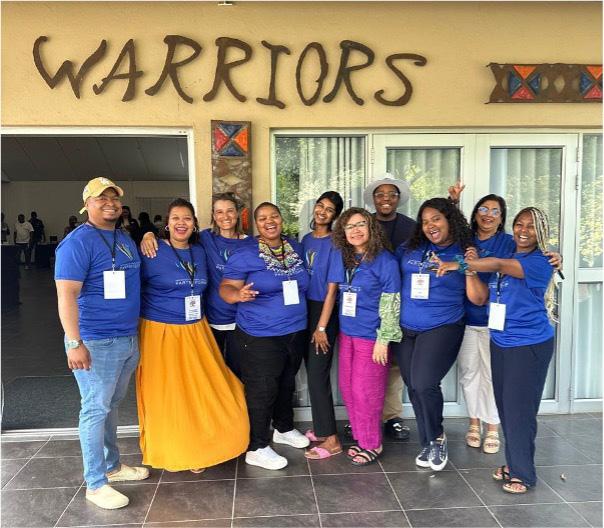
The HELTASA (Un)Conference 2024 (Higher Education Learning Teaching Association of South Africa), co-hosted by the University of Limpopo and the University of Venda, aimed to address key challenges and opportunities in Southern African higher education. Under the theme “Under the Baobab Tree”, it fostered holistic, innovative approaches for inclusiveness, equity, and sustainability. Participants were invited to share experiences and insights, celebrating HELTASA’s 20th anniversary from the 26th to the 29th of November 2024.
The Designing for Social Justice Partnership (DSJP) team were in attendance and were able to engage participants in attendance with their ideas around (Un)Conference.
One of the most significant outcomes of the 2024 HoD Forum process was the emergence of the Academic Leadership Programme, designed to strengthen the capacity of Heads of Department and future academic leaders. The sustained conversations held in the forums established that HoDs required structured and ongoing support to navigate the complexities of academic leadership, including human capital management, curriculum renewal, data-informed decision-making, and student success initiatives. In partnership with the Human Capital Directorate, a comprehensive learning pathway was developed to address these needs. This pathway balances immediate, practical training on institutional processes—such as recruitment, promotions, performance management, and conflict resolution—with longer-term development of leadership capabilities.
The programme includes workshops, peer learning, and access to professional development resources, such as LinkedIn Learning, ensuring that HoDs are not only administrators of policy but also enablers of academic innovation and transformation. Crucially, the learning pathway was designed to align with CPUT’s Vision 2030. It builds capacity for Oneness by fostering collaborative and inclusive leadership practices, and for Smartness by equipping leaders to engage confidently with digital systems, learning analytics, and new technologies. In this way, the programme moves beyond transactional training to cultivate reflective, resilient, and future-focused academic leaders.
In summary, the Academic Leadership Programme represents a milestone in professionalising academic leadership at CPUT. It reflects the university’s recognition that strong departmental leadership is essential to student success, staff development, and institutional transformation. By investing in the growth of our HoDs through a structured pathway, we are building leadership that is both people-centred and strategically agile, ensuring that our university continues to thrive in an evolving higher education landscape.
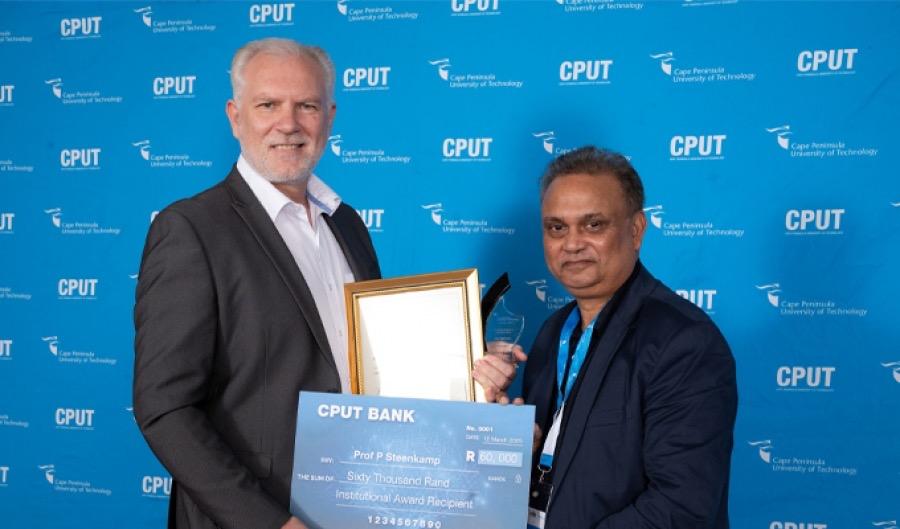
Outstanding educators were honoured during the 2024 Institutional Teaching Excellence Awards Ceremony, recently held at the Cape Town Hotel School. Faculty and Institutional Award winners were recognised during the event with Dr Pieter Steenkamp from the Faculty of Business and Management Sciences receiving the individual award for Established Teacher at Institutional level. Dr Steenkamp is a senior lecturer in the Marketing Department and has more than 20 years of experience as an academic. He obtained a PhD from the Stellenbosch University Business School specialising in brand strategy. His research has been published in major academic journals, including the Journal of Brand Management. He is a co-author of the Services Brand Management textbook. The following award winners were announced:
• Faculty of Applied Sciences – Dr Sune Henning
• Faculty of Business and Management Sciences – Prof. Brendon Knott
• Faculty of Education - Dr Tanja Coetzer and Dr Cisca de Kock
• Faculty of Engineering and the Built Environment - Dr Gunjan Gupta, Dr Rumbidzai Muvunzi and Prof. Asis Patnaik
• Faculty of Health and Wellness Sciences – Gerhardus Koch and Anthea Pinto-Prins
• Faculty of Informatics and Design - Gingirikani Maswanganye, Dr Waldon Hendricks and Dr Belinda Verster
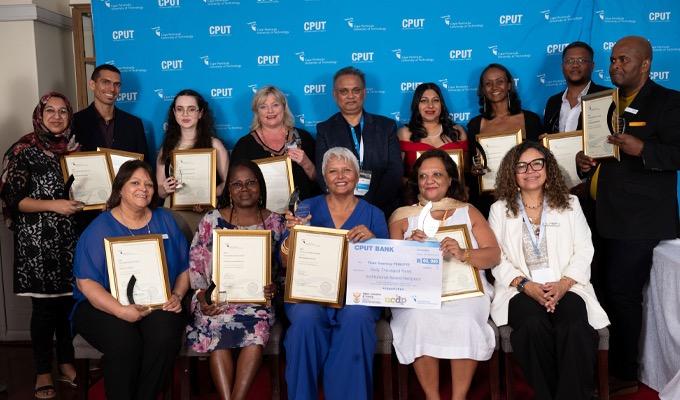
Deputy Vice-Chancellor (Learning and Teaching), Prof. Rishidaw Balkaran, said that the winners’ contributions would go a long way towards helping students become leaders.
“We are acknowledging you, not only because you have achieved in this space, but because you are a beacon of hope for the university.”
Dr Xena Cupido, Director Fundani CHED, congratulated the winners and said the recognition was well deserved.
The guest speaker at the event was Prof. Denise Zinn. For the past five years she has been Programme Leader for the national Women in Leadership Programme under the auspices of Universities South Africa (USAf) and its Higher Education Leadership and Management division (HELM).
The Institutional Teaching Development Programme (TDP) at the Cape Peninsula University of Technology (CPUT) continues to demonstrate its role in nurturing teaching and learning toward institutional and national priorities. In 2024, it underwent a re-curriculation to align with the National Framework for Enhancing Academics as University Teachers, the National University Teaching Awards (NUTA), and CPUT’s Vision 2030, which emphasises Oneness and Smartness.
Institutionally, it embeds Vision 2030’s transformative focus on inclusivity and technological responsiveness. Professionally, it prepares academics for recognition through awards, such as the Teaching Excellence Awards (TEA) and the National University Teaching Awards (NUTA), which give recognition to innovative teaching practices at CPUT. This represents a strategic endeavour to advance teaching and learning at the institution.
Delivered face-to-face, the TDP provides a comprehensive, structured, and responsive curriculum to support lecturers in addressing the unique contextual challenges that the South African Higher Education sector is confronted with. It fosters collaboration and peer learning, while exposing lecturers to a developmental pathway that moves from foundational understandings of teaching philosophy and institutional vision to advanced practices, such as leadership in higher education and the Scholarship of Teaching and Learning. Furthermore, the curriculum covers critical areas, such as curriculum design, decolonisation, multilingual pedagogies, blended learning, recognition of prior learning, universal design for learning, community engagement, work-integrated learning, ethics, and academic integrity. This scaffolding ensures that both novice lecturers and experienced lecturers progress on their academic journey at CPUT.
The success of the TDP is reflected in multiple areas. On completion of the TDP programme, participants have highlighted their ability to interrogate historical and systemic challenges in South African higher education, whilst adopting inclusive pedagogical practices that promote epistemic justice. Lecturers gain practical skills in blended learning, the use of artificial intelligence in teaching, e-assessments, and student feedback processes, ensuring that they align their practice with ongoing digital transformation. Lecturers who have completed the programme have gone on to win Teaching Excellence Awards within their Faculties at CPUT, highlighting the direct impact of TDP in cultivating innovative and impactful educators. In addition, several colleagues have been nominated to apply for the prestigious NUTA National Teaching Awards, demonstrating that the programme’s influence extends beyond institutional recognition to the national stage. A further marker of the programme’s success is the breadth of Faculties represented among those who completed the TDP in 2024. Graduates came from Applied Sciences, Education, Engineering & the Built Environment (FEBE), Informatics & Design (FID), Business & Management Sciences (FBMS), and Health & Wellness Sciences (FHW).
The Institutional Teaching Development Programme (TDP) exemplifies how a university can integrate national frameworks, institutional goals, and academic development needs into a coherent and impactful programme. As CPUT continues to work towards Vision 2030, the TDP ensures that academics are well-prepared to meet the challenges of higher education with innovation, inclusivity, and integrity. Its success, reflected in the achievements of colleagues who have won Teaching Excellence Awards in their Faculties, those nominated for NUTA, and the wide cross-faculty representation of graduates, affirms its value in shaping both the future of academic staff and the broader higher education system in South Africa.
During 2024, we facilitated a series of teaching and development workshops to support lecturers in developing teaching portfolios aligned with the National University Teaching Awards (NUTA) guidelines. These workshops aimed to strengthen scholarly and reflective approaches to teaching, emphasising that portfolios are not only about awards or ad hominem promotions, but also about professional identity. Lecturers were guided to see portfolios as a space to capture who they were as teachers, their students, how they supported diverse learning needs, and how they reflected on their practice. Using the NUTA evaluation rubric framework, the workshops engaged participants in critical areas, such as teaching philosophy, curriculum responsiveness, support for underprepared and exceptional students, and inclusive and innovative teaching practices.
The workshops were well received and strongly attended, reflecting broad institutional engagement. The Teaching Portfolio Development Workshop on 5 June 2024 attracted 107 participants. Two additional NUTA training sessions drew 18 and 7 staff members respectively, while a specialised nGAP Portfolio Development Workshop on 18 June 2025 supported 30 early-career lecturers. Collectively, these workshops equipped staff with the tools to prepare teaching portfolios that are reflective, evidence-based, and aligned with national standards. They also contributed to the broader goals of CPUT Vision 2030 by fostering oneness, smartness, and ubuntu and building a culture of inclusive, innovative, and reflective teaching practice across the university.
The Enhancing Learning and Teaching at CPUT through Artificial Intelligence: A Guide was developed to provide practical, ethical, and pedagogical direction for integrating AI into higher education at CPUT. To embed the guide into practice, Fundani conducted workshops across Faculties, introducing staff to its principles and applications. These workshops are ongoing and continue to build institutional capacity for responsible AI adoption. They ensure that staff are well-equipped to innovate in their teaching while upholding academic integrity.
By engaging staff from diverse Faculties and maintaining momentum through continuous sessions, the initiative aims to foster lecturers’ ability to navigate the AI landscape and prepare students for success in an AI-driven future.
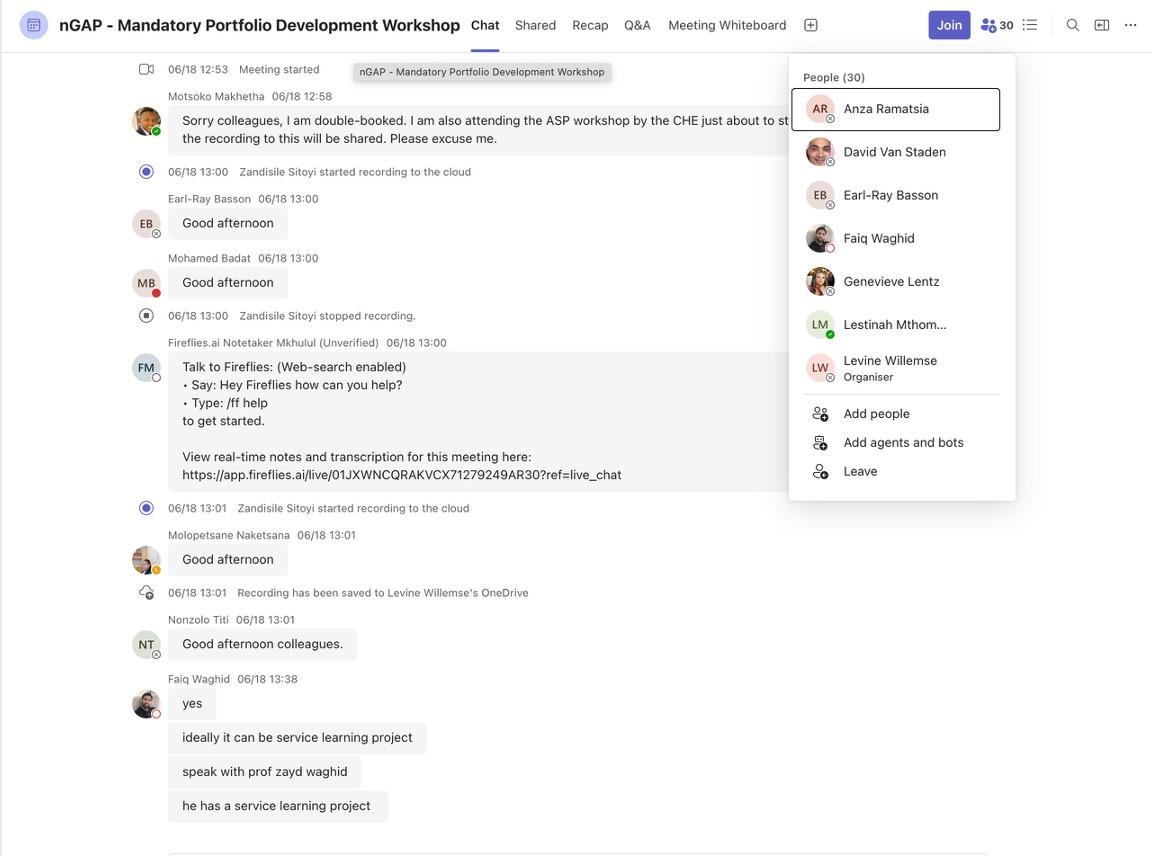
Curriculum Development Unit (CDU)
Introduction
In 2024, Fundani CHED’s Curriculum Development Unit (CDU) delivered high-impact initiatives that advanced CPUT’s vision for equity, inclusivity, and excellence in teaching and learning. More than 100 academic staff engaged in professional development programmes designed to strengthen curriculum design, pedagogical innovation, and student success.
The Curriculum Development and RPL Workshop Series (13–17 May 2024) provided targeted training on Recognition of Prior Learning, Graduate Attributes, and Curriculum Theory, equipping academics with practical implementation plans aligned with the 2025/26 academic cycle. The Unfurling Post School Education and Training (UPSET) Project expanded TVET–university partnerships, laying the groundwork for new Higher Certificate pathways to address industry skill needs and widen access to higher education.
Significantly, the Student Feedback initiative in Biomedical Sciences transformed two “at risk” subjects, Cytology and Microbiology, with pass rates improving from below 50% to 60% within a year, demonstrating the effectiveness of student-centred curriculum review and targeted academic support. Collectively, these initiatives illustrate Fundani CHED’s measurable impact on staff capability, curriculum transformation, and student performance, reinforcing CPUT’s institutional culture of innovation and social justice in higher education.
Curriculum Development and RPL Workshop Series – May 2024
Hosted by FUNDANI CHED: Curriculum Development Unit (CDU)
Dates: 13 – 17 May 2024 Via MS Teams
The CDU facilitated a week-long professional development workshop on Recognition of Prior Learning (RPL), Graduate Attributes (GAs), Curriculum Theories, and Pedagogical Practices. This virtual engagement series was attended by academic staff across Faculties and aimed at building institutional capacity for transformative curriculum development.
Facilitator: Ms Frederika de Graaff
13 & 14 May 2024
The RPL workshops introduced staff to foundational principles, the legislative context, and practical case studies of RPL in South Africa. Participants discussed three types of RPL (access, advanced standing, and certification) used at CPUT. They engaged with socialist theoretical frameworks that underpin RPL practices and worked collaboratively to draft RPL implementation plans for qualifications aligned to the 2025/26 academic cycle.
Facilitators: Dr Najwa Norodien-Fataar and Ms Lauren Davids
15 May 2024
This session focused on understanding and embedding CPUT’s Graduate Attributes within teaching and learning. It explored conceptual clarity, constructive alignment, and authentic learning. Structured into three key parts: Thinking With, Through, and Beyond GAs, the workshop promoted deep reflection on curriculum alignment with graduate outcomes.
Facilitators: Dr Najwa Norodien-Fataar & Ms Lauren Davids
16 May 2024
This interactive session explored key curriculum theories (Fataar, 2022; Shay, 2016; Bernstein, 2000) and introduced Biggs’(2003) constructive alignment and Anderson and Krathwohl’s (2001) knowledge taxonomy. Breakout sessions enabled academics to reflect on how these theories applied in their own disciplines, particularly in the context of CPUT’s recurriculation efforts.
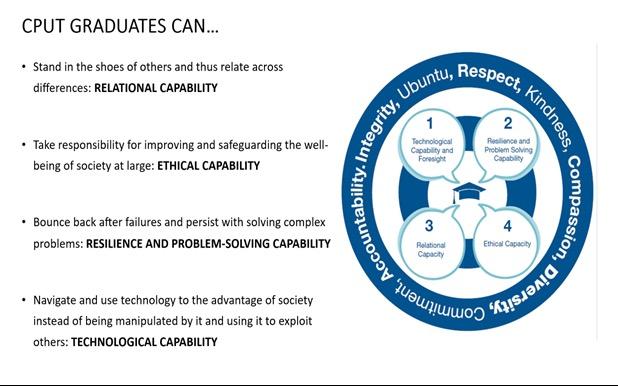
Theorist Key Concepts
A. Fataar, 2022
S. Shay, 2016
Student agency, contextualised learning, ethical praxis
Curriculum Structure, knowledge-building, epistemic access
Post-schooling, social justice, student experience
Higher education, professional curricula, and curriculum design
The Unfurling Post School Education and Training (UPSET) Project
Curriculum as a transformative space rooted in students’ life-worlds
Curriculum as social practice requiring epistemic access
Knowledge must be recontextualised to support student identity and agency
Pedagogy must be relational, inclusive, and attuned to students’ lived realities
Emphasises powerful disciplinary knowledge and access to knowledgebuilding processes
Curriculum must enable students to engage with and produce knowledge
The Unfurling Post School Education and Training (UPSET) Project, led by Dr Najwa Norodien-Fataar, aimed to facilitate educational pathways and academic collaboration between TVET colleges and universities, specifically strengthening TVET articulation to higher education. This initiative is crucial for addressing the demand for industry-applicable skills and bridging the gap between TVET and university studies.
The Western Cape Hub of the UPSET project was launched online on November 9, 2022.
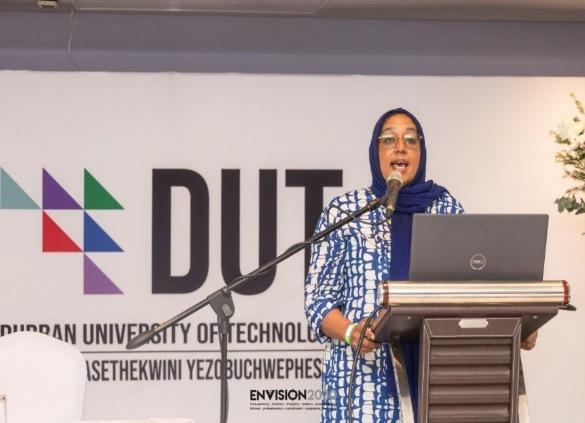
The core aims of the UPSET project include:
• Facilitating educational pathways and academic collaboration among TVET colleges and universities,
• Promoting and enhancing Technical and Vocational Education and Training (TVET) articulation to higher education,
• Strengthening TVET articulation to higher education to meet the increasing demand for industry-applicable skills and bridge the void between TVET education and university studies.
The project has engaged with various Faculties at CPUT to generate interest in Higher Certificates (HC). Meetings were held with Teaching and Learning Coordinators of the six Faculties, where discussions occurred regarding the difference between Extended Degree programs and HCs.
At the beginning of 2024, the Biomedical Sciences Department faced a serious challenge: Cytology and Microbiology had been identified as “subjects at risk”. Student pass rates were below 50%, and many students felt disengaged and had no hope of doing well in these subjects, as no interventions had been introduced to mitigate the risks. To address this, the Curriculum Development: Student Feedback Unit, under the guidance of the Fundani CHED team, introduced a subject review process which entailed different strategies and mechanisms that placed student voices at the centre. For the first time, students were invited to participate in focus groups to share their experiences. Not only did they share their challenges, but they were also given the opportunity to co-create solutions that would be implemented going forward. The subject reviews process was done following a four-pronged approach which consisted of the following phases: (1) providing peer support by appointing tutors, mentors and TA’s; (2) a student formative feedback mechanism through focus group discussions as illustrated in the below picture (3) lecturers’ reflections and, lastly, (4) partnering with CIET to investigate educational technologies, e.g., how blackboard was used in Cytology and Microbiology. In 2025, both subjects were not at risk anymore, and the pass rate increased to 60%.
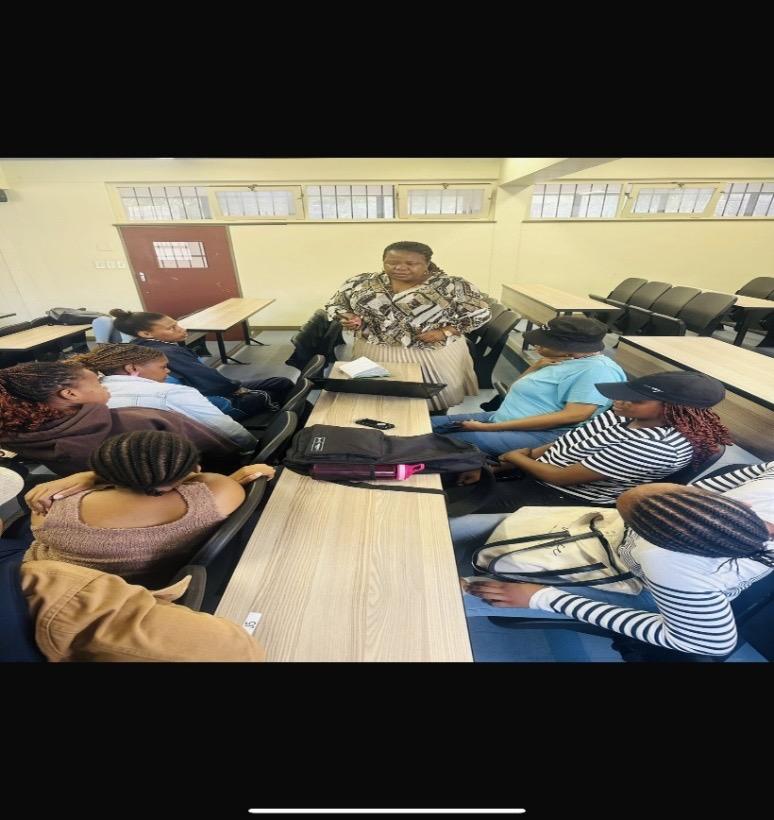

The Food Sciences and Technology focus group was requested by the Department to invite students to share their aspirations and career plans beyond the Advanced Diploma level. This was very successful. The data were transcribed and the generated report shared with the lecturers in the Department.
Date: Wednesday, 7 August 2024 Time: 09h00 - 12h00 Via MS Teams

CLICK HERE TO JOIN
Presentation: Do No Harm: Re-Thinking Student Feedback On Teaching And Courses In Higher Education
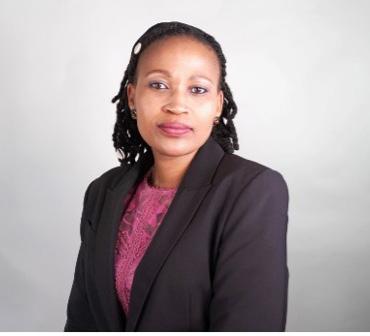
Ms. Nompumelelo (Mpumi) Mazibuko, Evaluations Coordinator at the University of Witwatersrand, has over a decade of expertise in higher education. Mpumi holds a BCom Honours in Human Resource Management, a Postgraduate Diploma in Education (Higher Education), and an MBA. She manages the conduct of student feedback on learning experiences through the University’s online platform and drives advocacy initiatives. Mpumi actively seeks best practices in student feedback, foregrounding its potential to inform decisions on improving teaching and professional development in a way that would benefit student learning experiences.
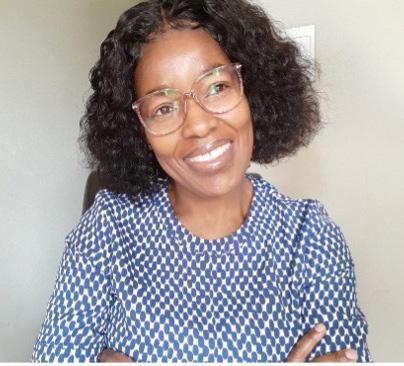
Dr Rejoice Nsibande is currently the Deputy Director of the Department for Education Innovation at the University of Pretoria. She holds a PhD in Education (Curriculum Studies). She has worked in academic staff development for many years in various positions at the Cape Peninsula University of Technology and Wits University. Her interest in professional development and the Scholarship of Teaching and Learning (SoTL) has led to research and contribution in these areas in various ways, such as the Teaching Advancement at University Fellowship and the National University Teachers Awards. She has also authored several papers on student feedback, emphasising her commitment to encouraging the exploration of better ways of thinking about the practice for the benefit of all stakeholders.
Presentation: An Exit Ticket as a formative assessment tool
Dr Mark Marais is a Senior Lecturer in the department of Medical Imaging and Therapeutic Sciences (MITS) and former deputy Head of Department. He obtained a PhD from the University of Cape Town in High Energy Particle Physics. Dr Marais is a recipient of the Institutional Teaching Excellence Award at CPUT, and coordinates physical sciences across the four, degree programmes in MITS. He is the co-chair of an international proto-BRICS research group and a member of the International Society for Technology, Education and Science (ISTES). Among his research interests is the contexualisation of physical sciences in fields of practice.
Fundani CHED’s Curriculum Development Unit hosted a CO forum (7 August 2024) on students’ feedback regarding teaching and courses. External speakers from Wits (University of the Witwatersrand) and UP (University of Pretoria) were invited. The speakers were our former colleague, Dr Rejoice Nsibande, Deputy Director of the Department for Education Innovation at the University of Pretoria, and Ms Nompumelelo Mazibuko, Evaluations Coordinator at Wits. Internal speakers from the Faculty of Business and Management Sciences and Applied Sciences in the Mathematics Department had also been invited.
The CDU 2024 at a Glance – Fundani CHED: Curriculum Development Unit
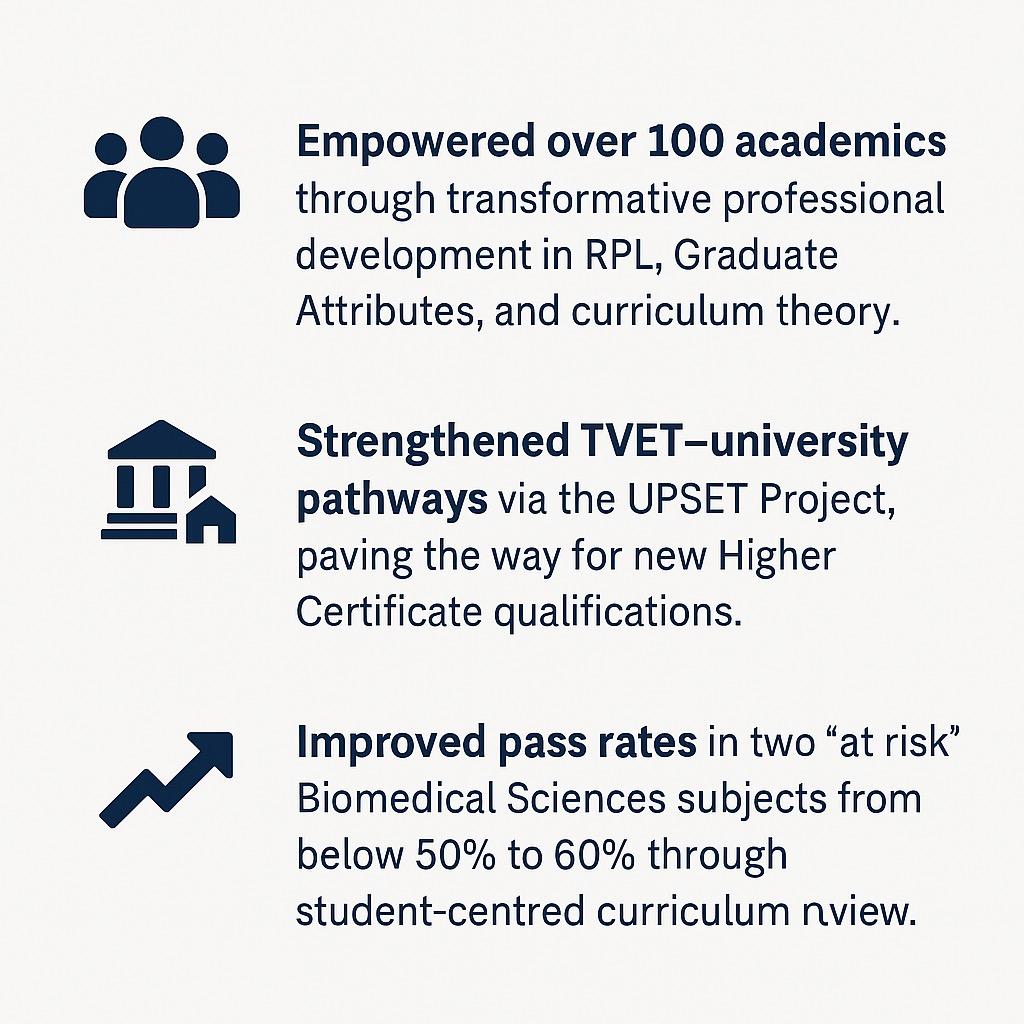
The RPL process at CPUT is qualification-specific. Although the University has an RPL Unit, the RPL process takes place at Departmental and/or Faculty levels. Many Departments have an RPL Facilitator overseeing and coordinating the process within the Department. The number of applications received in 2024 was very high – the highest ever received by the RPL Unit: 488, of which 29 were for Postgraduate studies.
Faculty of Business and Management Sciences
Faculty of Health and Wellness Sciences
Faculty of Engineering and Built Environment
Faculty of Informatics and Design
Faculty of Applied Science
PG Dip and Lectured Masters
Full
and Doctoral
However, the number of approved RPL applicants was low at 84: 47 approvals in the Faculty of Health and Wellness, 36 in the Faculty of Business and Management Sciences, and five in the Faculty of Informatics and Design. Eighty applications were made to stand over to 2025. The reasons for the high dropout rate are unclear at this stage. To avoid dropouts during the RPL process, the RPL Unit offers workshops to assist students on their RPL journey. Various workshops were held:
Applied Legal Studies:
Paralegals in South Africa play an important role in communities, assisting community members with a variety of issues, such as labour disputes, gender-based violence, labour and work issues, divorces, and estates. The exposure to the legal system, the legislation of this country and the associated practices, rules and regulations, places paralegals in a unique position within the legal fraternity. CPUT offers a Bachelor’s Degree in Applied Legal Studies to accommodate this group of legal workers. However, some of these individuals do not meet the entry requirements for this qualification. Portfolio-building workshops are held with RPL applicants for access to this Bachelor’s Degree. The workshops aim to assist with portfolio development and accommodate the work of a paralegal. The applicant uses cases he/she has worked on to reflect on personal experiences and learning. In the process of documentation and reflection on their own practice, paralegals are assisted by tutors to complete the task. Once done, these portfolios are assessed by the Department to gain an insight into the individual’s work experience, as well as his or her interpretation and reflection of personal learning. The applicants are also required to write tests in Numeracy and Literacy, which they must pass to gain access to the University.
Auxiliary Nurses and paramedics play a unique, supportive role in health. To further their careers and be considered for promotion, these individuals are interested in pursuing either the Bachelor’s Degree in Nursing or one of the qualifications in Emergency Medical Care (EMC). For individuals who do not meet the entry requirements for these qualifications, Numeracy and Life Science Knowledge Enhancement workshops are offered to facilitate their RPL applications. The knowledge enhancement workshops are a reminder of the Mathematics and Life Sciences they did at school and, at the same time, they are prepared for their Higher Education studies.
In the business sector, individuals are exposed to and can develop workplace-based knowledge in various aspects, such as human resources and industrial relations, marketing, administration, budgeting, management and, in some cases, project management. Working in either the private or public sector, these individuals bring valuable knowledge into Higher Education if their RPL application is successful. In the Faculty of Business and Management Sciences, knowledge enhancement workshops are offered in Numeracy and in Business English, with the same purpose as in the Health Faculty, namely, to build on the knowledge these individuals already have. In the Business Faculty, exemptions via RPL are also considered in cases in which an individual has substantial knowledge in a specific field, such as industrial relations, basic managerial skills or selling and marketing.
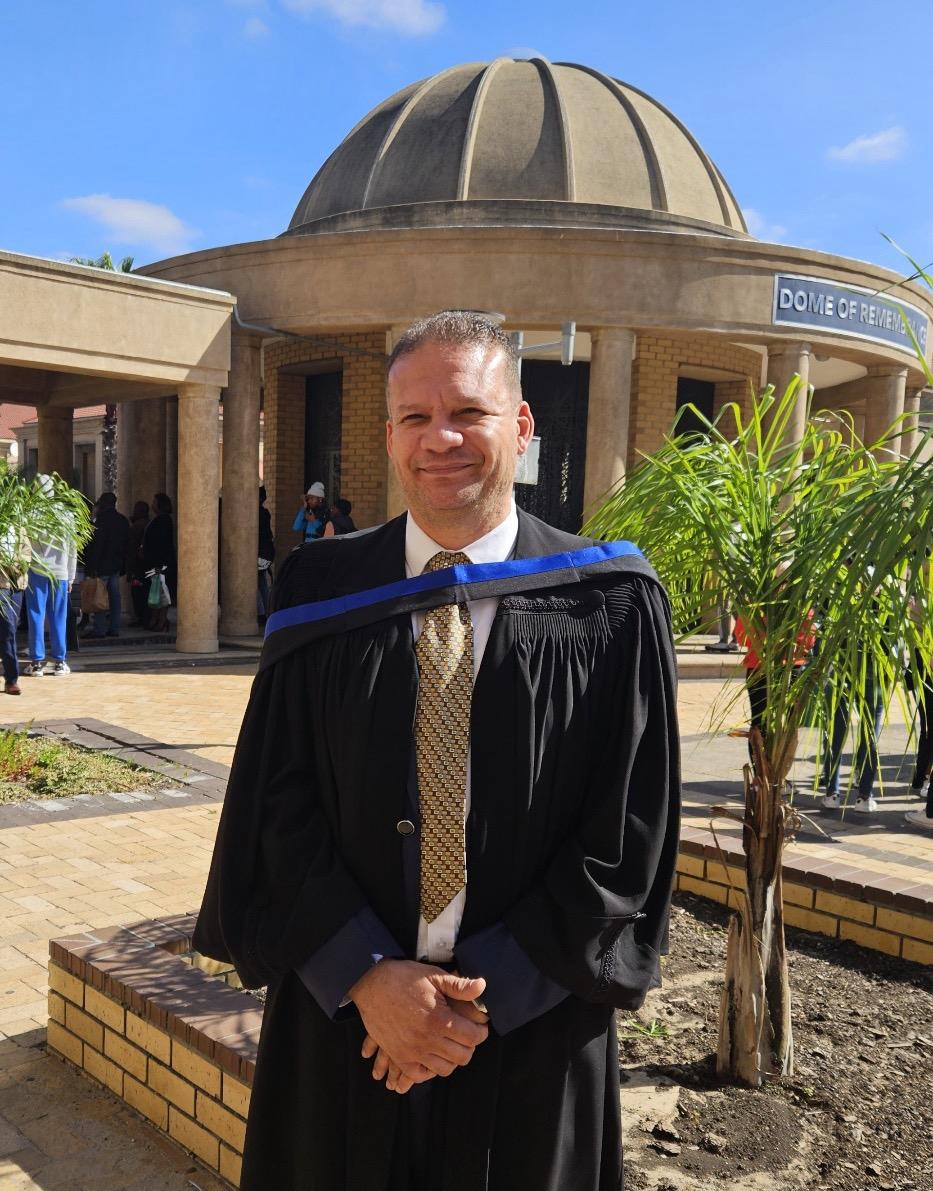
From RPL applicant to successful graduate: the RPL story of Nathan Gertse
“ I’m Nathan Gertse, a graduate in the Diploma in Management at CPUT, all thanks to Recognition of Prior Learning (RPL).
My journey started when I attempted to study at a university in the past and explored the possibilities thereof several times but due to not meeting the minimum requirements to enter a university I kept getting denied.
But I knew somehow some way there must be a way, there always is a way and this was when I discovered the RPL Team… … Recognition of Prior Learning
A way to gain access into the university and obtain that qualification I so badly needed.
I then looked into what is required of me to take advantage of this opportunity and of course the main thing was that I have worked in the field that I wanted to pursue my studies in and for once my age gave me the upper-hand and of course my experience, I then completed my portfolio and long story short…
My journey with Recognition of Prior Learning (RPL) during my diploma in management at Cape Peninsula University of Technology (CPUT) in 2020 began and it was a rollercoaster ride through unprecedented challenges, but you overcome them and soldier on. One thing I can say is that I was no different to the other students that entered CPUT the conventional way, maybe more determined yes but not at any disadvantage because I was an RPL student, in fact once you accepted into the University, you are a student number and not an a RPL candidate or applicant. The first year brought forth a cascade of disruptions, starting with the onset of the COVID-19 pandemic. And just when I began to find my footing in this new educational landscape, another wave of challenges emerged. CPUT was engulfed in strikes, sparked by grievances that escalated into protests and, tragically, fires that ravaged campus infrastructure. The strikes disrupted the academic calendar, leaving staff and students scrambling to cope with the upheaval and uncertainty that ensued. As the world grappled with the uncertainties brought by the pandemic, universities, including CPUT, swiftly transitioned to remote learning. For me, this meant adapting to a new mode of education – one conducted entirely through virtual classrooms and online platforms. The sudden shift was disorienting, to say the least, as I navigated the complexities of remote learning while juggling other aspects of life as I was working, a family man and then my part time studies.
I found myself reflecting on the transformative power of recognizing diverse forms of learning. It was a journey of self-discovery – a testament to the resilience of the human spirit and the indomitable will to overcome adversity.
Once first year was completed, I felt settled in and felt okay, now I’m a student.
As I progressed through the next few years, I was faced with the same struggles as any other student but you always find a way out, be it the support of your family, friends, other students, lecturers or even your colleagues, they were always there for you, a great support structure was vitally important. Looking back, my experience with RPL serves as a reminder of the importance of embracing unconventional paths and recognizing the value of diverse forms of learning,
Without this means of entry into the university I would have probably never achieve my goal of obtaining my Diploma in Management and currently busy with my Advanced Diploma in Project Management. I hope my story serves as a testament to the resilience and determination, there’s no failing, just stumbling block to detour you to the correct path.
Thank you.
Nathan Gertse”
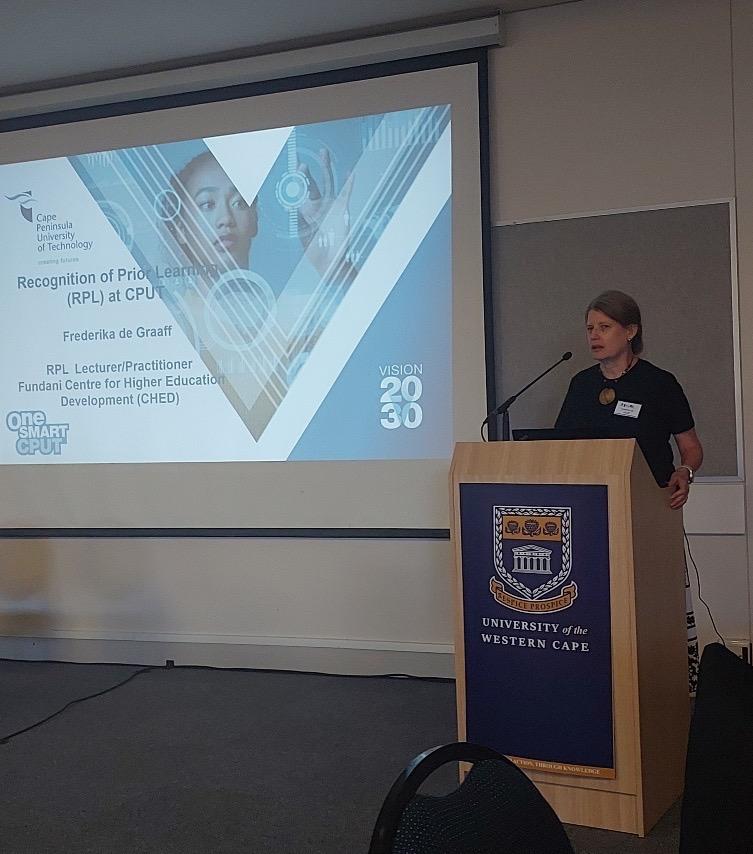
On 14 March 2024, CPUT’s RPL Unit participated in a RPL awareness day held at UWC. The aim of the day was to share experiences with other RPL practitioners, specifically from University of the Western Cape (UWC) and the South African Qualification Authority (SAQA). The various speakers contributed to the discussion by discussing RPL processes at the various institutions, challenges faced and highlighting achievements. In conclusion some UWC students, who were admitted to the university via RPL reflected on their journey as
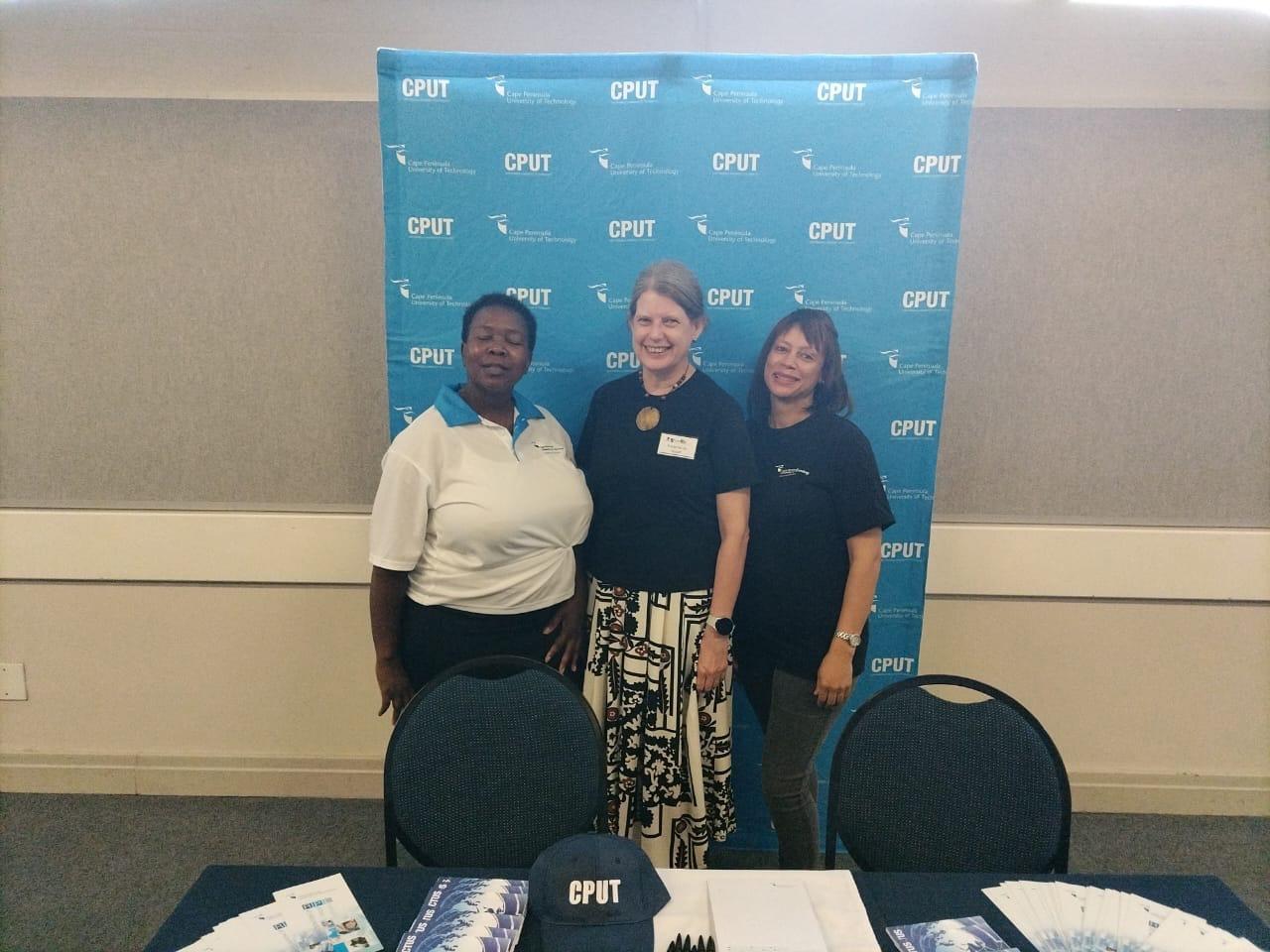
First-Year Experience (FYE)
2024 FYE Report


CPUT FYE Programme
CPUT’s First-Year Experience is a student-centered intervention designed specifically for first-year students, starting with their enrolment and accompanying them throughout their year of study. It is delivered by means of FYE orientation, seminars, the CPUT101 programme, and the FYE mentoring and retention officer (RO) programme. FYE is aligned with CPUT’s Vision 2030 - SMART CPUT, and ONENESS. The FYE programme aims to enhance student success and reduce dropout rates. By facilitating a seamless transition from high school to university, FYE assists students in cultivating the essential skills for effective studying. The initiative aspires to support students to fully immerse themselves in their academic disciplines and programmes, providing both psychosocial and academic support to foster a commitment to academic excellence. This year FYE used a hybrid approach to deliver its activities - combining online and face-to-face methods - to meet the varying needs of first-year students across Faculties. Seminars and workshops were offered in both formats, ensuring flexibility and accessibility. Additionally, first-year students were given access to FYE videos on a range of topics available on YouTube and CPUT’s website. These topics were also integrated into the CPUT101 program and on Blackboard LMS, allowing students to engage with the content through multiple platforms anytime every day of the week.
In 2024 142 mentors and 23 retention officers (ROs) were trained to assist first-year students in transitioning to the university. We managed to appoint 39 ROs and 111 Mentors to assist the first-year students. The table and graph below provide a closer look at the number of Mentors and ROs trained per Faculty:
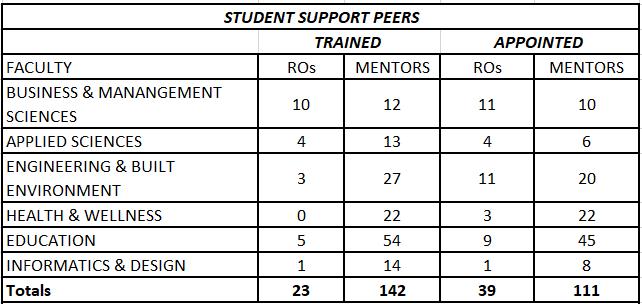
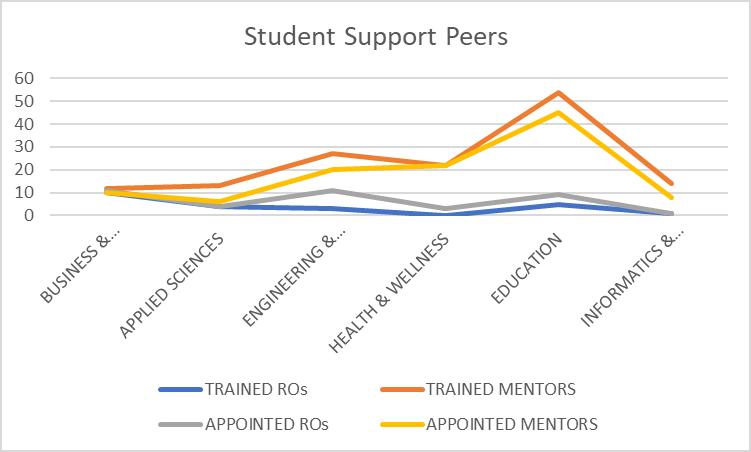
The FYE programme in 2024 was able to conduct 85 workshops and reach out to 13 779 first-year students. The graphs below unpack the number of workshops conducted in the different Faculties, and the number of students reached.
All Departments in the FBMS have a schedule of CPUT101 modules to be completed for the year. The gender-based violence (GBV) module is a mandatory part of the CPUT101 program and is facilitated by external facilitators who are experts in the field. Feedback on CPUT101 progress is provided at each Faculty FYE meeting. The Faculty works collaboratively on projects, such as GBV and the Emma Sadlier Social Media module. Departments also engaged in Sexual Orientation, Gender Identity and Expression Sessions with external service providers. Departments included HIV sessions facilitated by the HIV Unit. The FBMS has an active FYE committee which meets quarterly to discuss FYE issues and general student support. The Faculty had ten retention officers and ten mentors. Departments selected CPUT101 modules that could be facilitated at the opportune time, i.e., when the module was most useful for high-impact learning. These modules formed part of a subject and were integrated into the curriculum. Gender-based violence (GBV) is a mandatory CPUT101 module in the FBMS. The following number of FYE workshops were facilitated in the Faculty:
Table 2: Workshops and students researched in FBMS.

EXAM PREP CLASSROOM PARTICIPATION
EMBRACING DIVERSITY FREEDOM & RESPONSIBILITY
GOAL SETTING NOTE TAKING
PERSONAL BUDGETING SMART STUDY SKILLS
TIME MANAGEMENT
The Faculty of Applied Sciences actively engaged its FYE Committee, convening quarterly to address matters impacting first-year students. An integral aspect of the FYE Committee’s role involves planning and executing the annual orientation, a successful endeavour in 2024 that employed both in-person and online methods. Preparations for the 2025 orientation programme were underway in 2024 already, involving the revision and updating of materials and resources. The strategy for the 2025 programme entails maintaining a blended approach, utilising various platforms, such as Blackboard, Padlet, SMS, and the website. To accommodate late registrants, orientation resources will remain accessible throughout the semester. These resources serve as valuable references for students navigating the higher education landscape.
The Institutional Orientation Committee collaborates with other Faculties, particularly on the Wellington Campus, to offer orientation collectively where necessary. Additionally, the FYE objectives align with the Siyaphumelela Project, enhancing them through analysing HEMIS data and developing dashboards. Initially created by the Mathematics Department’s students, these dashboards aim to understand student demographics and learning needs, and tailor teaching strategies accordingly. The plan is to expand this initiative to all Departments and potentially to other Faculties through the Siyaphumelela Project. In leveraging insights from the dashboards, the Faculty aspires to make informed decisions and provide targeted support to students based on their unique requirements. The evolving nature of first-year cohorts necessitates flexible approaches to meet their needs better. Reports from retention officers have proven invaluable, offering detailed accounts of support provided to students throughout the year. These reports, available upon request, follow a general trend of anticipated support at various academic stages. The Faculty utilises these reports with data from the Student Counselling Unit to understand students’ support needs comprehensively and adjust strategies accordingly.
FYE conducted seven workshops in the Faculty of Applied Sciences.
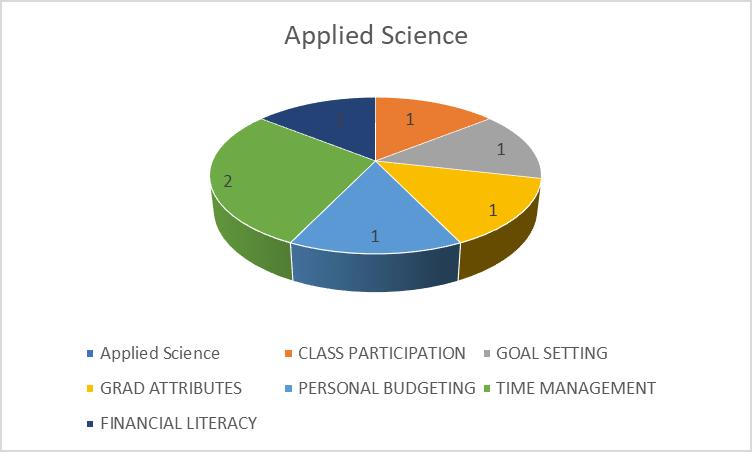
The Faculty offered 45-minute long, structured support sessions for first-year students throughout the academic year, covering a range of topics, which include:
• Team building through the creation of short videos for TikTok
• Essential insights from Emma Sadleir on what university students should know about social media
• Guidance on utilising Blackboard
• Personal mastery
• A session on sexuality
• Mental health and wellness, addressed by Ms Janine van Sitters-Mintoor
• Tips on practice teaching, presented by students for students
• Feedback sessions on practice teaching
• Information on gender-based violence through posters
• A presentation by the Disability Unit
• Insights into the characteristics of a successful student, featuring current Honours and M. Ed. students, as well as recently graduated teachers
• A presentation on time management by the Institutional First-Year Experience (IFYE) team
• Celebrations of heritage
• Mentor Groups: Mentors, guided by our capable retention officers (ROs), maintained regular contact with first-year students, offering support and guidance as needed.
• Social Media Engagement: The Wellington campus Instagram and TikTok pages, managed by ROs, gained popularity among students. The platform serves as an engaging space, and culminated in an exciting flash mob in the campus library at the year’s end.
• Late student acceptances led to missing participation in the orientation week’s programmes which meant that they forfeited crucial information, social and academic activities, and a sense of belonging. Mentors faced challenges in assisting these students, which became a time-consuming exercise.
Issues related to accommodation and finances, including concerns about NSFAS and Fundza.
Plans: Going forward, the Faculty plans to embark on the following:
• The Faculty will see to the regular provision of food parcels for students.
• The Faculty is launching a pregnancy prevention campaign in response to a high pregnancy rate within the Education Faculty, with a focus on sexual health, wellness, and direct pregnancy prevention aligned with the university’s policy rollout.
• The campaign aims to address the impact of pregnancies on students’ ability to attend classes, academic activities, manage personal finances, and mental wellbeing.
• Moreover, speakers are invited to address sensitive topics, covering medical, psychological, and financial aspects, and introduce positive role models who have experienced similar situations.
FYE workshops/seminars were facilitated for the Faculty:
Table 4: Workshop and students researched.
The 2024 FYE project was implemented through a 10-week programme in the first semester, as well as seminars and webinars held in the second semester.
The 10-week programme in Semester 1 focused on developing critical skills to enhance a positive first-year student experience. It was integrated as a compulsory component into the Engineering Communications Course, and participation was monitored and assessed. The FYE pulled together all the resources and support available at CPUT to help first-year students manage the transition from high school to university.
The themes covered were as follows:
1. Diversity and Cultural Inclusivity (Week1)
2. Identity (Week 2)
3. Time Management (Weeks 3, 4)
4. Study skills (Week 5, 6)
5. Wellness (Holistic) (Week 7,8)
6. Ethics (Week 9, 10)
Semester 2 of the FYE programme was implemented because of the resounding success of Semester 1. The activities in Semester 2 were a response to some of the incidents that took place on campus, such as the protests and the violent reactions of students to academic challenges they experienced.
In 2025 this module, based on the 2024 offering of the FYE, will be implemented as a compulsory stand-alone module in all Departments for all first-years within the Engineering and Built Environment Faculty. The subject guide is already available and will be shared in due course. The Engineering for Social Change module is set to be a 12-week module incorporating artificial intelligence in engineering and sustainable goals.
The Faculty identified an FYE Coordinator to spearhead the FYE activities. Student support/ FYE activities in FID:
ECP: Utilised student counsellors and service providers
• Product Design: Referred students to student support services and distributed goodie bags.
• Jewellery Design and Manufacture: Brought in Fundani to speak to the students during orientation week.
• Urban and Regional Planning: Offered support through a retention officer, mentors, a teaching assistant, tutors, and work-study programs, including student and lab assistants.
• ECP Design: Leveraged Fundani mentors, Fundani TAs, FYE videos, and presentations on all offerings; introduced the Student Representative Council (SRC), and addressed student housing.
• Public Relations: Provided video support from retention officers, mentors, and a student counsellor.
• Photography: Organised physical library visits.
Support varied across programmes, some offering extensive resources while others providing more basic support. The ECP Design programme stood out with a comprehensive suite of resources, including Fundani mentors, orientation videos, and detailed presentations on all course offerings, as well as addressing housing needs and introducing the Student Representative Council (SRC). The Urban and Regional Planning programme also offered robust support, including a retention officer, various teaching and work-study assistants, and mentors. There appeared to be an inconsistency in the level and breadth of orientation support across the different programmes. The following FYE workshops/seminars were facilitated in the Design Department for ECP and mainstream.

The FHWS appointed three retention officers to engage actively with first-year students, and hold regular feedback meetings with the Teaching and Learning Coordinator. These meetings helped identify issues which students faced, whether socio-economic, mental wellness, or academic, and underscored the importance of the ROs’ role. The FHWS values the contributions of ROs and plans to continue appointing them.
The Faculty collaborated with the FYE Office of CPUT to organise a successful welcome and orientation event for all seven Departments. The Faculty Teaching and Learning coordinator outlined the roles of the student support team, including tutors, peer mentors, retention officers, and teaching assistants. During the event, senior students serving as peer mentors shared their first-year experiences at CPUT, emphasising how tutors and mentors aided their transition from high school to university. Dr Cecil Weal delivered a motivational talk, recounting his journey from being a first-year student to earning a Ph.D. and becoming a post-doctoral researcher in the Faculty of Health and Wellness.
Despite the success of FYE, the Faculty faced challenges, particularly in identifying students for RO and mentor positions, due to limited numbers of individuals with postgraduate qualifications. To address this, the FHWS decided to engage with Fundani for assistance. The demanding workload of appointed ROs and mentors poses an additional challenge and leads to occasional resignations from their position. Furthermore, a substantial number of tutors were postgraduate students from UWC, according to the ECP Coordinator of the Faculty.
Although Faculties aim to appoint a specific number of students each year, many wellqualified candidates are unwilling to provide student support, prioritising their academic commitments.
Table 7: Workshops and students researched in the Health and Wellness Faculty Issues indicated in the RO and mentor reports
As a result of the alteration in the NSFAS funding framework, which excluded students with credits below 60 from receiving monthly allowances, mentors were confronted with the challenge of addressing the needs of hungry students.
On 10 October 2024, FYE celebrated its 10th anniversary at the Bellville Campus where mentors and ROs shared their experiences, challenges, and best practices in supporting first-year students. The FYE Symposium was featured on the CPUT webpage.
We are delighted to invite you to the FYE 10-Year Celebration at CPUT
Theme: “A Decade of FYE at CPUT: Reflecting on the Past and Shaping the Future”
Date: 18 October 2024 | Time: 09h00 - 15h00 | Venue: Auditorium, Bellville Campus
Join us as we celebrate 10-years of the First-Year Experience program, honoring our accomplishments, reflecting on our journey, and looking ahead to the future

For Enquiries: Ms Siphokazi Matsolo: matsolos@cput.ac.za / Mr Zwelibanzi Ngculu: jantjiesz@cput.ac.za



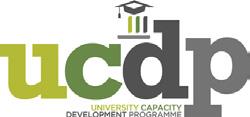

The Academic Advising Programme was piloted in the Electrical, Electronic and Computer Engineering Department of the FEBE to enhance the existing student support systems and programmes within CPUT. Initiated on 20 October 2023 and continuing till December of that year, The AA Programme aimed to add value to the students’ experience and academic journey. The programme received an extraordinary response from students. On the first day, seventeen students showed interest in the programme. Most had genuine concerns and challenges they wished to be assisted with, while some were merely curious about the programme.
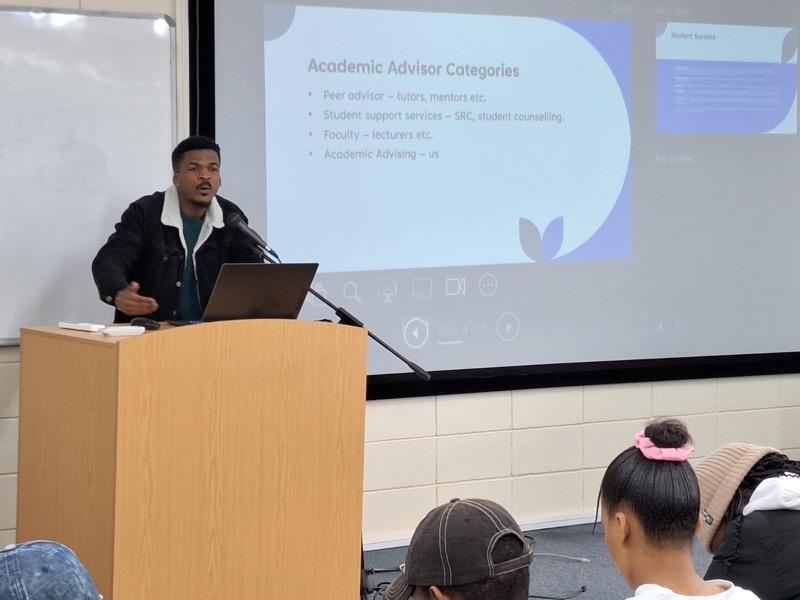
As part of the programme, students were given a special email addressAcademicAdvisory@cput.ac.za - which they could use to access the programme or contact the academic advisor. The email address was created for this specific purpose and was easy to remember. The FEBE Student Engagement Coordinator assisted in informing students of the programme and the services available to them. This was done through an email containing a flyer that provided an overview of the services and benefits offered by academic advisors. Students who required assistance could email the advisor for help. There was a follow-up with the students, requesting contact information from those willing to share their contact details and request assistance. All information shared by students was kept confidential and not disclosed without their consent. Figure 10 illustrates the appreciation of some the students assisted by the AAs.
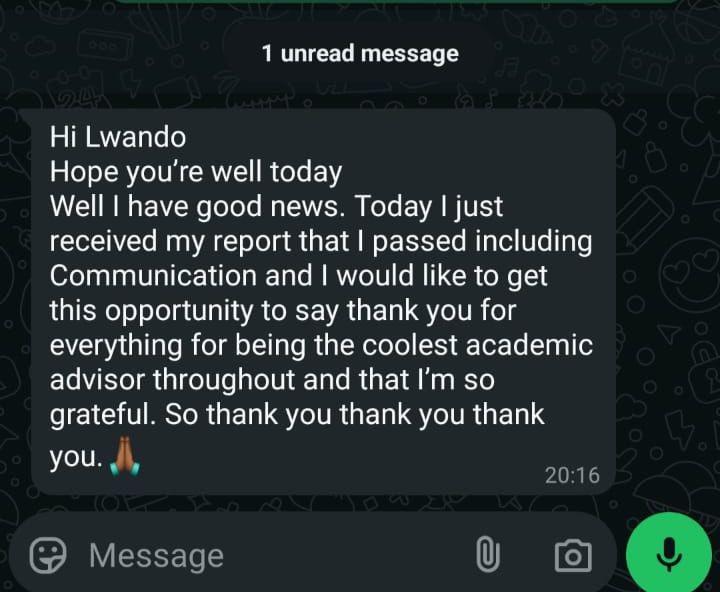
The flyer below is the final version created to share general information with the rest of the university students. It was tailored towards FEBE students as part of a pilot programme. However, it is subject to change and can be improved based on lessons learned or programme modifications.
Then talk to your Academic Advisor today:
Faculty of Engineering & the Built Environment (FEBE) & Faculty of Education (FED):
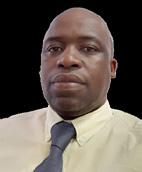
Mr Xolani Vanda AcademicAdvisory@cput.ac.za (021) 469 1010
For consultation: Availabile via Teams and one-on-one, 08h00 - 16h00
Bellville: Language Unit, IT Center, 2nd floor FEBE: Monday & Tuesday FED: Thursday & Friday
Faculty of Health and Wellness Sciences & Faculty of Business & Management Sciences:
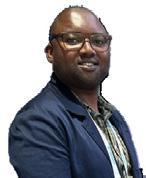

Mr Lwando Mampunye mampunyel@cput.ac.za
For consultation: Availabile via Teams and one-on-one, 08h00 - 16h00 Tuesdays FHWS & Wednesdays FBMS
Bellville Campus: Language Unit, IT Center, 2nd floor
District 6: Fundani Engineering Building, Room 4.51, Wednesdays & online every day
Faculty of Informatics & Design & Faculty of Applied Sciences:
Mr Sibulele Ngqengelele ngqengeleles@cput.ac.za
For consultation: Based in Availabile via Teams and one-on-one, 08h00 - 16h00
District 6: Fundani Engineering Building, Room 4.51
FAS: Tuesday & Thursday
FID: Monday & Wednesday
Students in Higher Education (HE) face various challenges, with the most common issue being student funding, which creates much anxiety among them. Some were not sure whether they would be allowed to write their final exams due to non-payment of fees. They found university processes challenging and often did not know how and when to follow up after submitting their applications. Additionally, many students experienced anxiety over accommodation billing that NSFAS has not paid. Many students also struggled to understand bursary policies and what it means to ‘double-dip’, in a case when they received two bursaries as a benefit they deserve. Career planning came up a few times, with some students not being clear about what they wanted to become after completing their studies. Some had also requested help with their study methods. In the short time spent with students, it became clear that they struggled to set goals, and the courses they were studying were wide-ranging, crossing through many fields which the students may not have been familiar with. These challenges can be addressed during orientation to allow students to understand funding policies.
Regarding study methods and forming new study habits, the advice – which worked well for most students - was to draw up a study timetable and ease into it as a new habit. Some students were referred to FYE to be partnered with mentors and tutors.
Introduction session about FYE
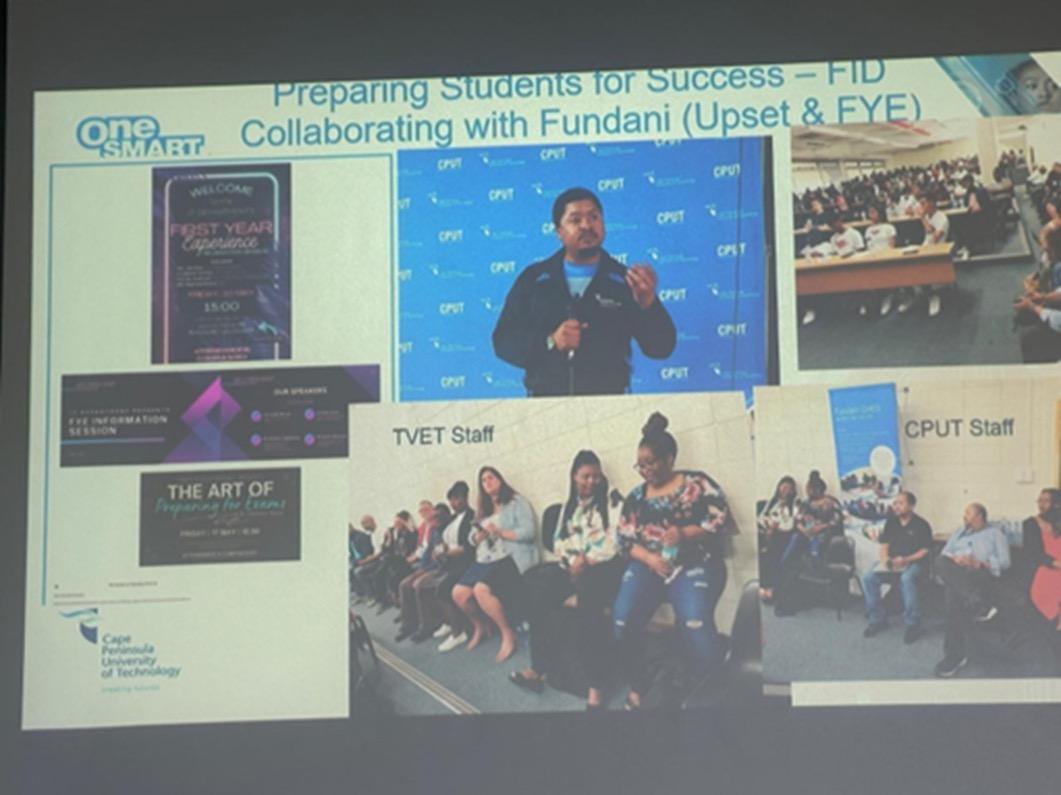
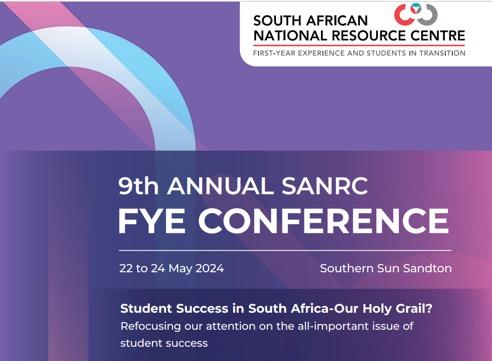



This report provides an overview of the activities and support initiatives of the STEM Sector for the 1st, 2nd and 3rd term. An overview of the activities planned for the 4th term is also provided.
Located within the Student Transition, Advising, Retention and Success (STARS) Unit, the STEM Sector consists of Dr. Frikkie George, the coordinator, consultants (research assistants, teaching assistants, learning facilitators and tutors), and the STEM Club. The STEM Club consist of committee members who help to manage the following subcommittees: STEM Study Buddies, Coding and Robotics, and Science Expo
Student Support
This section focuses on the different formats of student support provided in the different Departments during each term, and a summative view of the year.
Table 1: STEM consultants appointed September 2024
Name & Surname Allocated Lecturer Department
Anelisa Frieste (RA)
Zedlee Malesu (Tutor)
Dr. Frikkie George
Anthony Ile (TA)
Divine Tarla (TA)
Asanda Situda (LF)
Sinenhlanhla Langa (TA)
Sinalo Mdolo (TA)
Dr Mark Jacobs
Dr Ekaterina Rzyankina
Mr. Butter Ntamba
Dr Jerome Tangeh
Dr. Saka
Dr Ignatius John
Dr. Mabangula
Dr Frikkie George
Students
(Math)
The consultants are responsible for:
a) Conducting individual consultations with students
b) Conducting tutorial sessions with the linked lecturer’s students
c) Developing OER material that must be share with all students
Established in March 2022, the STEM Club annually conducts a mid-year Bootcamp in May, a National Science Week Expo Competition, and a September Recess Bootcamp. Besides these main activities, the STEM Club also enters the SA Olympia and plans excursions.
Table 2: Consultants’ allocation and students’ research
STEM Talk: Panel
Discussion – 4IR
Mid-year Bootcamp
Study Buddies
NSW Expo Competition
Recess Bootcamp
SAASTA NSW celebration
Residence Study Buddies
STEM: Mid-year Bootcamp
UWC, WCED, CTSC, Northlink TVET, CPUT
FEBE, Applied Sc, & Education
Richard Sacco & Freedom Square
All faculties
FEBE, Applied Sc, Education, FID & HWS

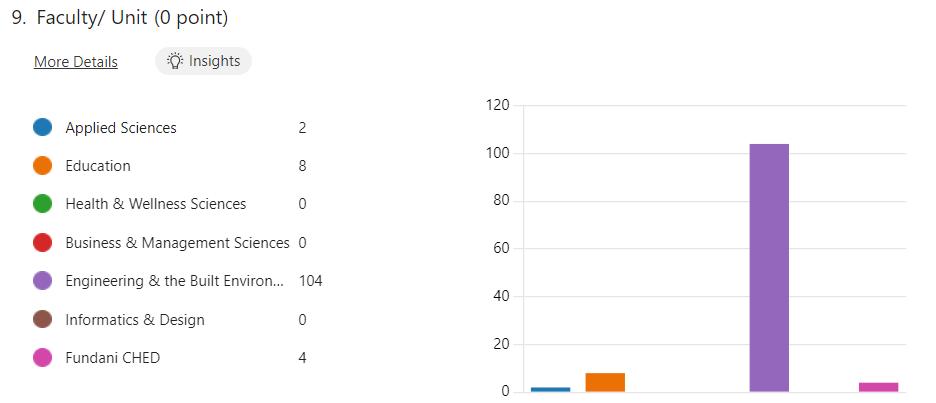
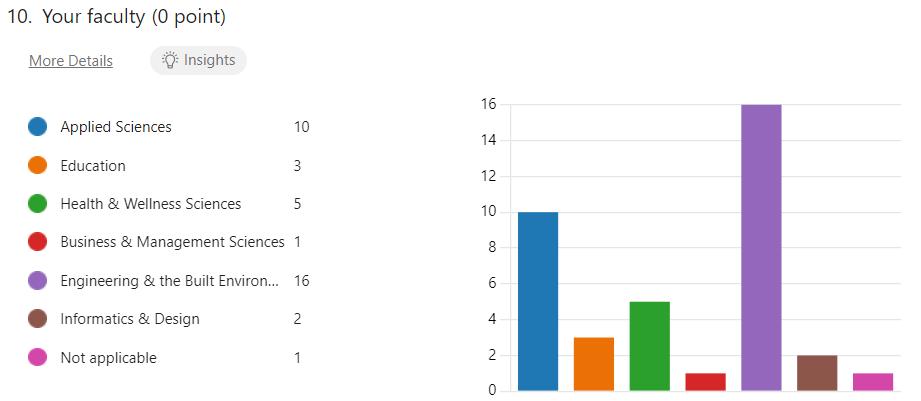
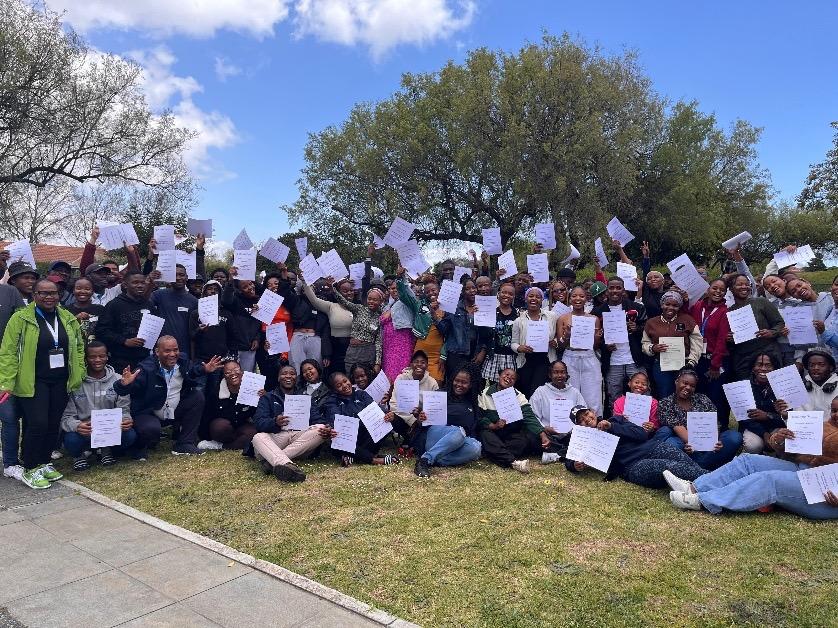
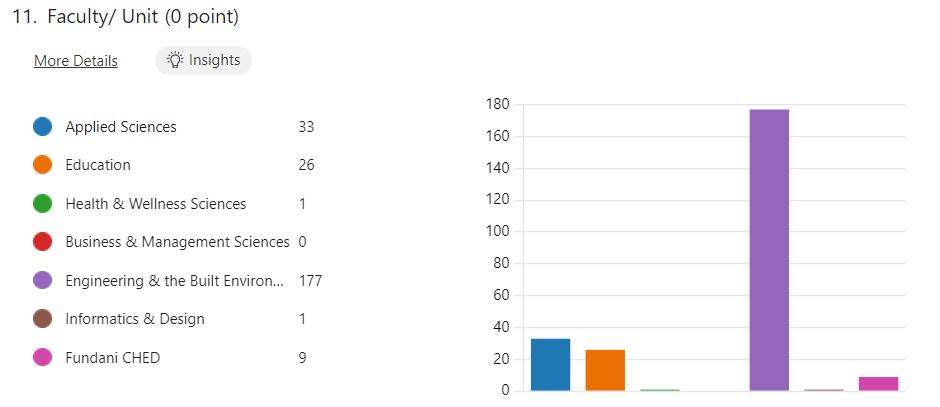
Diagnostic tests results: 60% - 55% = 10% improvement (n = 50)
STEM Workshops
• At-risk support workshop – held in March with lecturers of subjects identified at-risk lecturers
• Mid-year Bootcamp planning workshop – held with lecturers and STEM Club facilitators
• STEM Expo Competition planning workshop – held with judges and participants
• Recess Bootcamp planning workshop – held with lecturers, STEM Consultants, and STEM Club facilitators
• Residence Study Buddy groups at Richard Sacco and Freedom Square residences
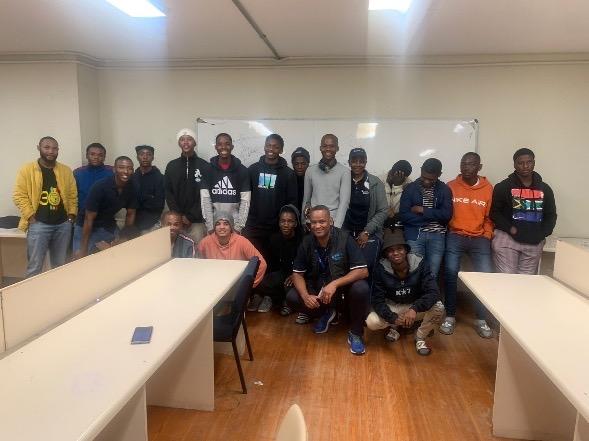

Activities
a) SAASTA National Science Week, 30 – 6 October, online sessions 18h00 – 20h00
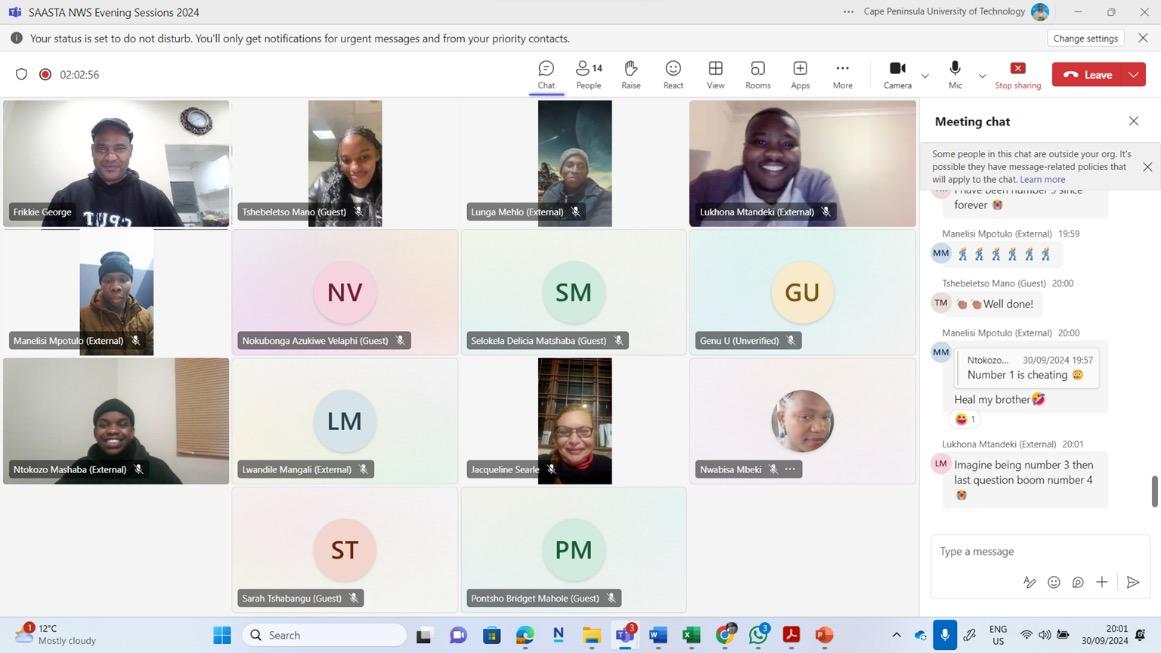
b) STEM Club annual elections and Evaluation & Monitoring workshop – 21 October
c) Material development workshop: Video recordings, creation of posters, better use of social media, update the Bootcamp Booklet – 5 November
d) Strategic planning and Evaluation & Monitoring workshop – 19 November
Challenges
• The need for an additional STEM lecturer – hopefully Dr Mbeki will migrate to the STEM sector next year
• The struggle to reach out and persuade the Wellington campus to participate in the STEM activities
Conclusion
Student success remains a priority for the Fundani STARS - STEM sector. It is very important to collaborate with lecturers of at-risk subject to establish collectively interventions that will ensure student success.
The Language Working Group (LWG) collaborated with the South African Association for Language Teaching (SAALT) to host the SAALT annual conference on 10 – 12 July. The conference was held at the Break water Lodge in Cape Town. The post-conference feedback received indicated that the event was a resounding success as compared to a few that preceded it in previous years. This is notwithstanding the usual logistical challenges typically involved in making arrangements for a conference of this magnitude. It was heartening to see that several of the papers presented at the conference emanated from inside CPUT and that several were given by international presenters. The success of this conference hinged heavily on the unfailing support that the organizers received from the Fundani Management, especially the Director and Administrative Staff.
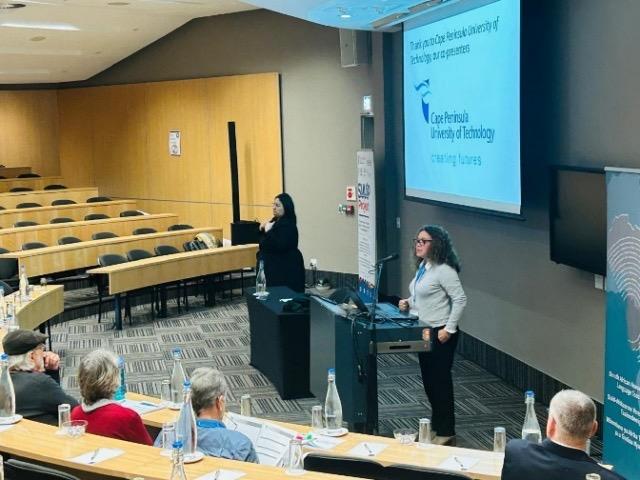
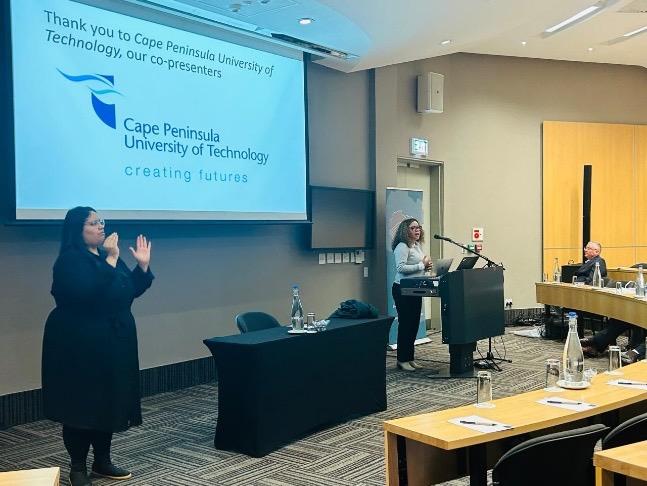
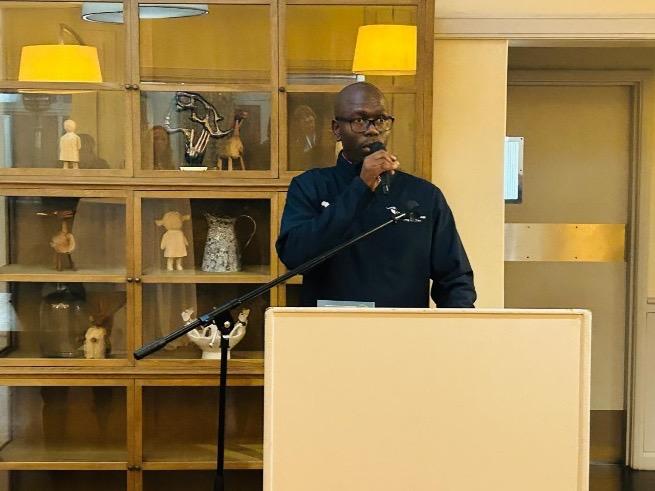
on multilingual pedagogies in SARETEC on the Bellville campus. In the main, the workshop targeted academic staff. Two experts from the North-West University, namely, Prof Wordsmith-Cromarty and Miss Tholakele Zungu, were invited to facilitate the workshop. The workshop was part of an effort to advance the implementation of CPUT’s language policy, which dictates that academic staff be empowered to contribute towards the university’s pursuance of a multilingual education. Although the degree to which the workshop was attended was not necessarily the best, the event was a reasonable success in general. Following this face-to-face workshop, the Language Unit organised a repeat online workshop which was attended mostly by students playing a leading role in learning and teaching and a few academic staff. The extent to which this workshop was attended was good enough to justify the effort.
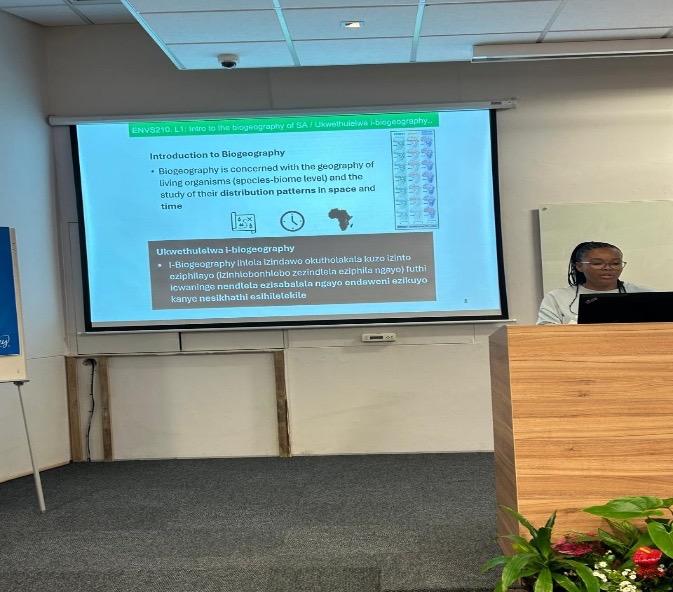
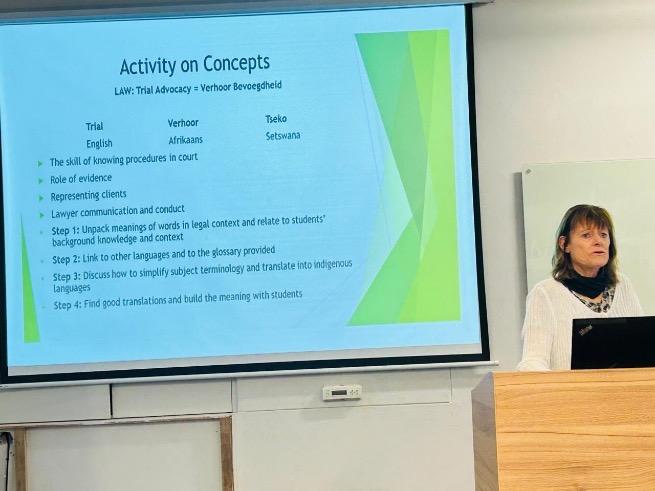
The Unit for Language and Academic Literacies collaborated with PanSALB to verify and authenticate the trilingual names of the University, Faculties and Departments that had been translated a while ago for the purpose of multilingual branding and signage. To this end, a three-day workshop was held in SARETEC in Bellville on 27, 28 and 29 November during which two PanSALB Committees verified and authenticated the isiXhosa translations of the names. Regardless of a few logistical challenges that came up during the process to arrange for the workshop, the event was a success. With this work completed, the LWG will be continuing with the process of developing and installing trilingual signage across all CPUT campuses in 2025. This project started a few years ago but had to be put on hold due to budgetary difficulties.
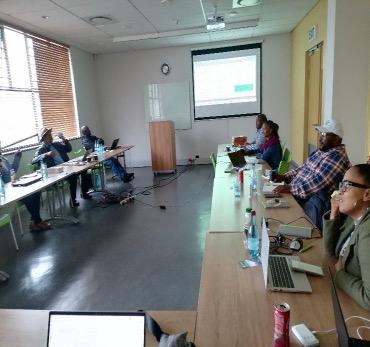
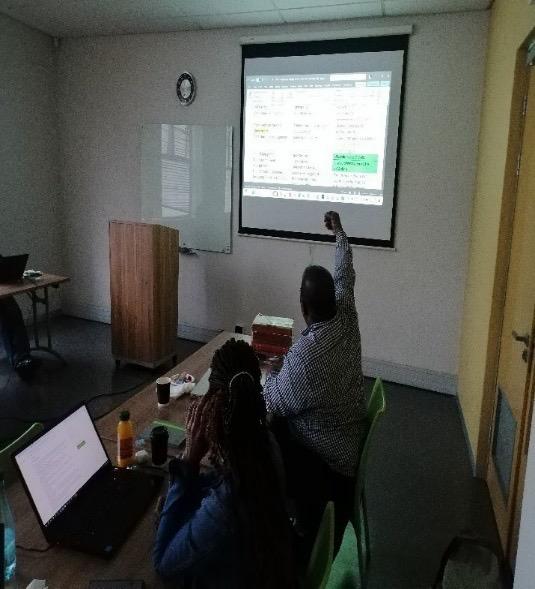
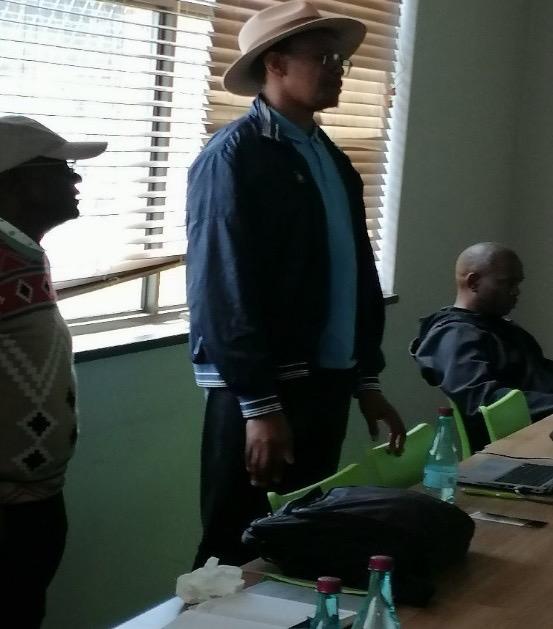
The Unit for Academic Literacies at Fundani collaborated with the Education Faculty to offer an Intensive English course to University of Luanda academics at the Wellington campus of CPUT. The course was offered from mid-October until the end of November of 2024. The request for this course to be offered came to the Faculty through the Office of the Deputy Vice-Chancellor: Research, Technology Innovation and Partnerships. The course was designed in collaboration with the Regional English Language Office of the USA embassy in Pretoria. This was meant to be the beginning of a long-term partnership wherein a series of similar short courses are to be offered to visiting professors from the University of Luanda in the future. The partnership is part of the larger effort to realise CPUT’s strategic goal to internationalise.
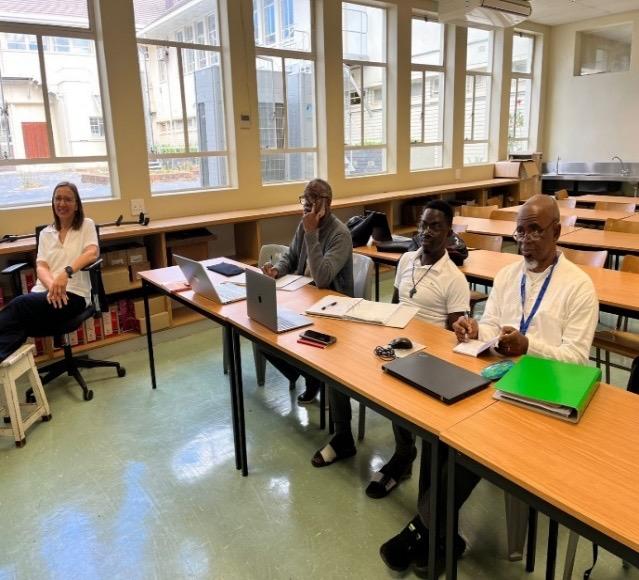
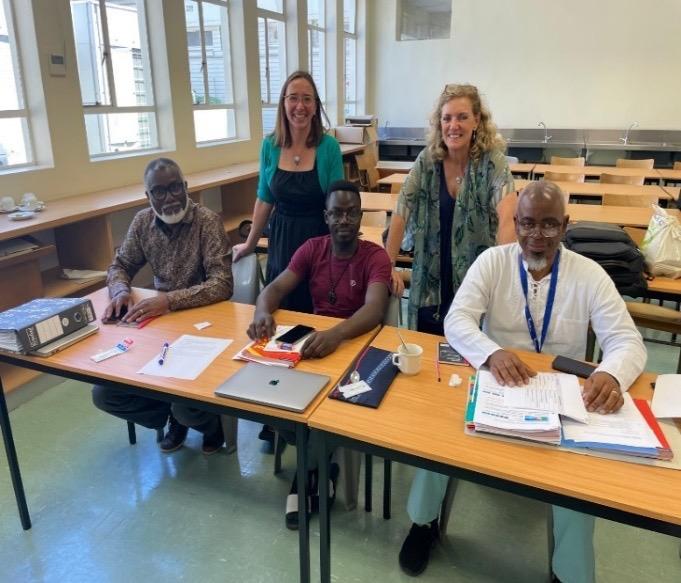
The Centre for Innovative Educational Technology (CIET) continued to play a pivotal role in advancing academic support, driving pedagogical innovation, and fostering futurefocused learning environments throughout 2024. Guided by the institutional mission to ensure inclusive, digitally-enhanced, and student-centred teaching and learning, CIET has made significant strides in supporting academics and students through technology integration, strategic innovation, and professional development.
• Successfully facilitated over 60 training workshops for academic staff on the effective use of Blackboard Ultra, with a focus on assessment design, content structuring, and student engagement.
• Produced step-by-step guides and video resources tailored to Faculty-specific needs, increasing accessibility and asynchronous learning support.
• Collaborated with academic Departments to design or revise over 40 blended or online modules, incorporating principles of Universal Design for Learning (UDL) and Laurillard’s Conversational Framework.
• Embedded learning analytics training for lecturers to help them interpret student engagement data and make informed teaching decisions.
• Co-hosted the Academic Staff Development Symposium alongside FUNDANI CHED, spotlighting best practices in digital pedagogy and course innovation.
• Partnered with Faculties to co-design curriculum alignment workshops for technology-enhanced teaching.
• In the process of launching a pilot short-course for AI in Learning and Teaching with Fundani for academic staff and students, focusing on responsible use of tools, such as ChatGPT, Grammarly, and Copilot.
• Developed a framework to assist academics in integrating AI tools into their Blackboard Ultra courses, with an emphasis on ethical use, student engagement, and critical digital literacy.
• Contributed to the planning and prototyping of Smart Classrooms equipped with AI-powered lecture capture, digital whiteboards, and immersive hybrid learning tools.
• Initiated a Digital Futures Lab concept in collaboration with ICTS and selected Faculties to explore extended reality (XR), digital storytelling, and simulation-based learning.
• Partnered with the Library and Information Services to run student digital readiness workshops, impacting over 2000 first-year students.
• Embedded future-focused graduate attributes in all CIET-developed training resources, ensuring alignment with 21st-century competencies.
• Partnerships and Collaboration
• Deepened collaboration with FUNDANI CHED, contributing to academic staff development, curriculum transformation initiatives, and AI integration.
• Served on the Learning and Teaching Technical Committee to shape institutional policies on blended learning and AI in education.
• Built new external partnerships with platforms, such as LinkedIn Learning and Panopto to enrich learning content and enable micro-credentialing opportunities.
In 2025, CIET aims to:
• Expand the AI short-course to include students and support staff.
• Pilot a Learning Experience Design (LxD) certification for academic staff.
• Roll out automated analytics dashboards for real-time Blackboard course monitoring.
• Strengthen the institutional ecosystem for micro-credentials and digital badging.
CIET remains committed to transforming learning and teaching through innovation, evidence-based pedagogy, and inclusive technology. As we embrace the creative futures of education, our focus remains on empowering academics, enhancing student learning experiences, and shaping a digitally fluent academic community.
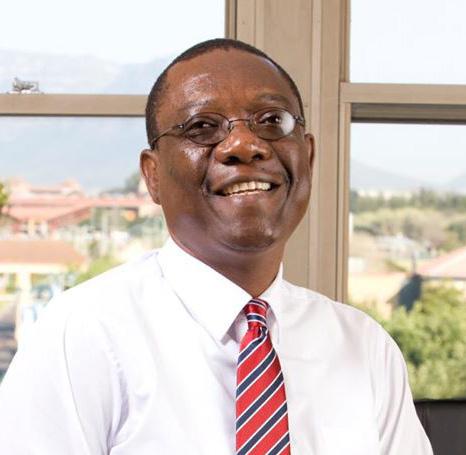
Prof. Elisha Chiware Director: Library Services
Introduction
CPUT Libraries continue to play a vital role in supporting the university’s learning and teaching endeavours. This report highlights our initiatives and achievements in enhancing research and information literacy skills, embracing innovation, and exploring the potential of artificial intelligence (AI) in academic support as part of the CPUT Libraries strategy to increase the number of skilled staff and guide students in using resources optimally.
CPUT Libraries hosted a seminar on “Research and Information Literacy Skills in the Workplace” in November 2024. This 3rd seminar focused on data literacy and included presentations on contextual data and how this should guide the application of GenAI tools. The seminar aimed to equip staff to support students with essential skills for the modern workplace, focusing on information literacy, critical thinking, and problem-solving. The well-planned panel discussion set the tone for focused training of librarians who need to support students in the future.
Recognising the importance of data-driven decision-making, CPUT Libraries introduced data literacy training as part of the Information Literacy modules redesigned process that will continue into 2025.
This strategy will focus on improving students’ and staff’s understanding of using data as a key element in decision-making. This initiative aims to enhance the university community’s ability to work with data, fostering a culture of evidence-based decisionmaking.
To stay abreast of emerging trends, CPUT Libraries provided training for librarians on the application of AI tools in academic support. This training enabled librarians to develop skills in using AI-powered tools for tasks, such as literature searching, citation management, and research data management. Librarians attended monthly webinar sessions with relevant resource providers in online training sessions to familiarise themselves with new trends and developments in the library and information sector.
CPUT Libraries introduced AI Primo research assistants to support students in their research endeavours, using the library’s main search platform. We developed training programmes to equip students with the skills to use these AI tools effectively, promoting efficient and innovative research practices. Integrating awareness of the CPUT AI guidelines in all training aspects is a priority for Librarians.
To enhance decision-making and user experience, CPUT Libraries developed library dashboards, providing real-time data on library usage, collections, and services. Furthermore, we explored the application of machine learning tools to predict user behaviour, informing the development of personalised services and improving the overall library experience. These findings will be incorporated into strategic plans, workflow modules, skills development and staff planning in support of an improved client-focused service.
CPUT Libraries remains committed to innovation and excellence in academic support. Our initiatives in research and information literacy, data literacy, AI tools, and library dashboards demonstrate our dedication to enhancing the university’s teaching and learning environment. We look forward to continuing our collaboration with the University’s Teaching and Learning Office to drive innovation and support academic success.

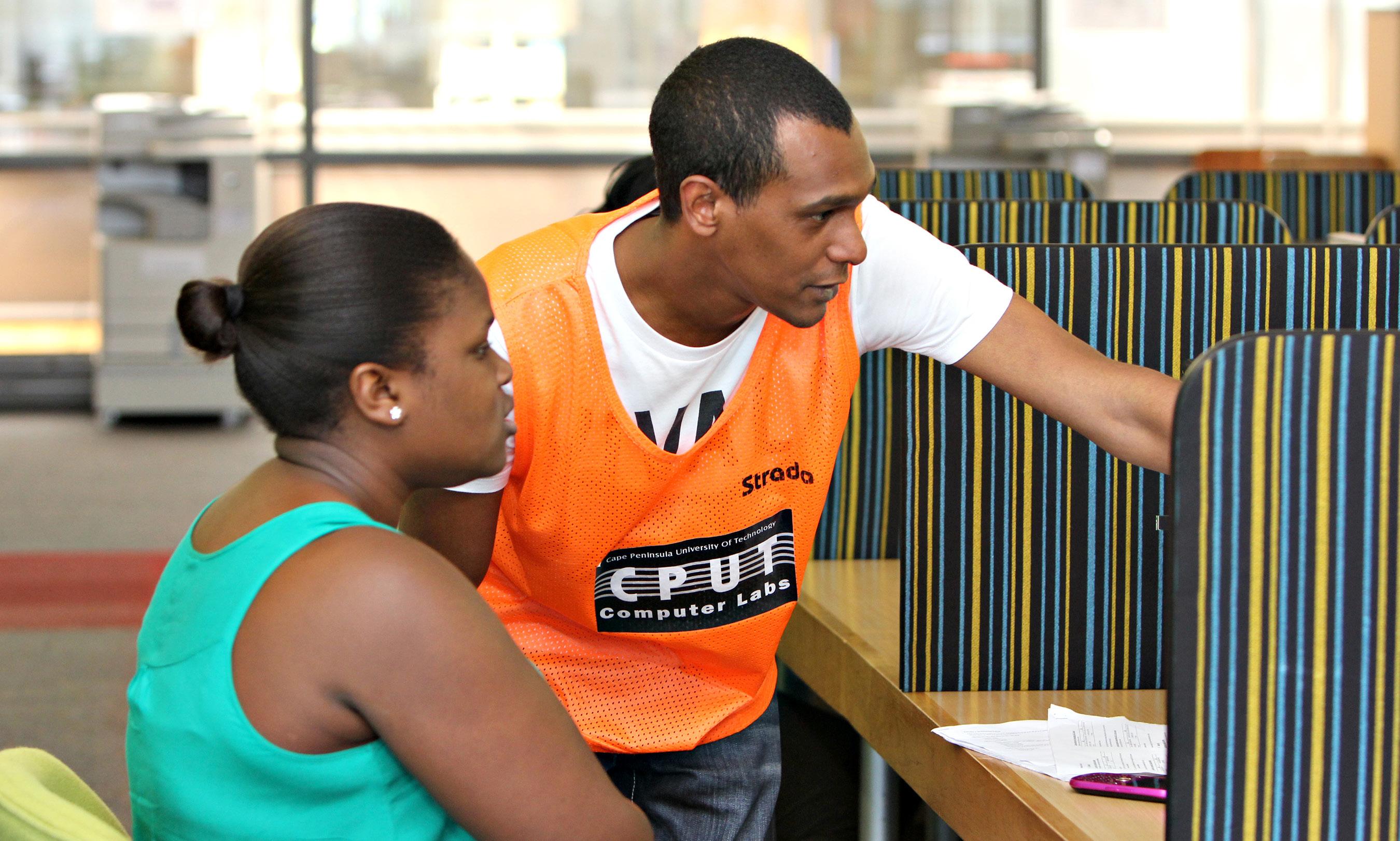


The highlights of the Centre of CE and WIL in 2024 are:
1. The annual WIL Coordinators’ Induction Workshop was held in February 2024 at the Auditorium with 70 WIL coordinators in attendance. The WIL Cycle, THENSA WIL, Policy Brief, quality matters, WIL data management, LinkedIn Learning pathways and building industry-university partnerships were discussed.
2. A WIL INDABA held on 13 March 2024 at the Hotel School, hosted 29 Industry partners in round-table discussions on WIL and other industry engagement opportunities.
3. After 10 years, the Co-op Unit hosted the Career Fair at the Major Sports Hall (Bellville campus) on 16 May 2024. The students/graduates met with 27 employer organisations in an informal and relaxed environment. There were 897 students/ graduates in attendance.
4. A highly successful VC Industry and Business Event was held at the Hotel School on 14 June 2024, with 40 industry partners attending. The CPUT Research exhibition and the simultaneous launch of the Institutional Industry Forum were well received as attendees gained a better picture of CPUT’s V2030. Mr Raymond Maseko, PRASA Acting Regional Manager, (Division of PRASA – Western Cape division) was the Industry guest speaker.
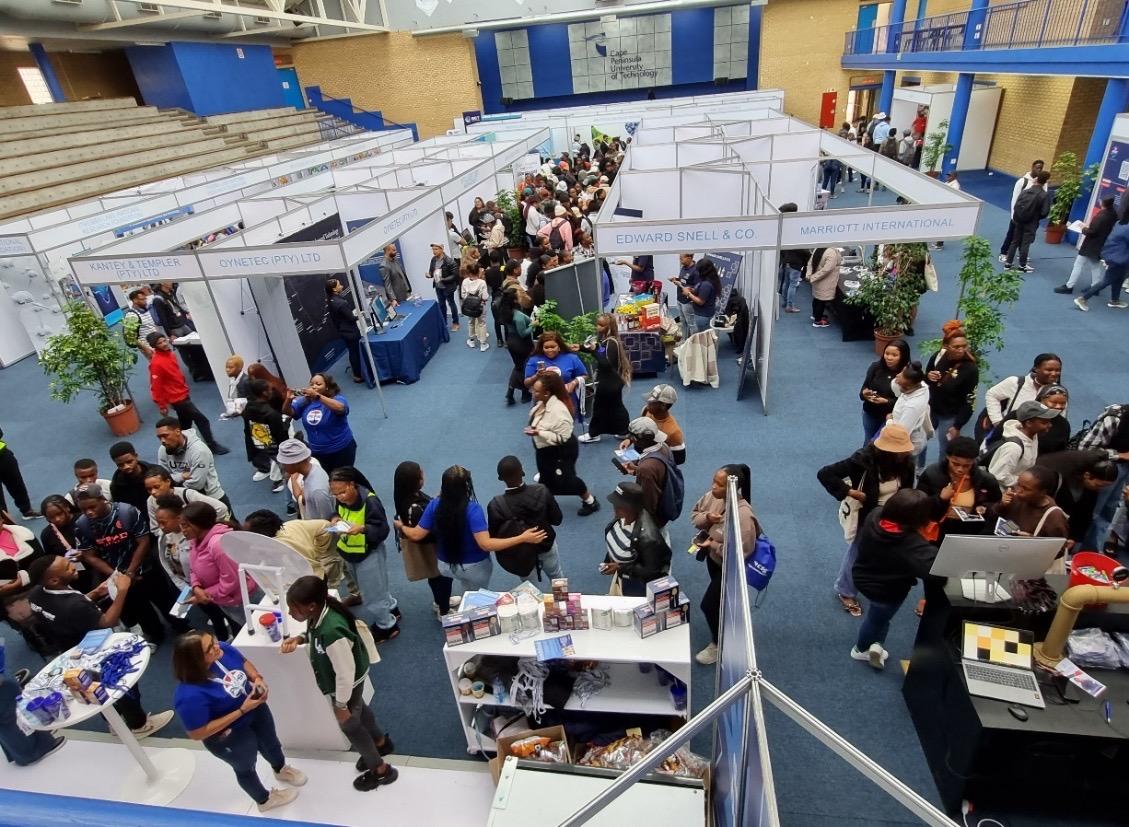
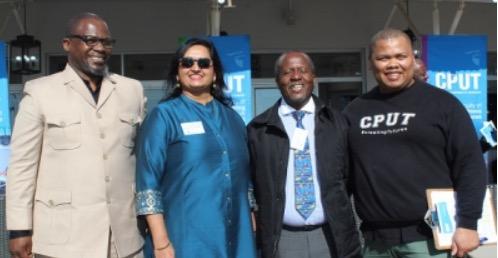
Prof. L. Reddy is part of the curriculum development and training team for the THENSA Entrepreneurship Education Project and Curriculum Committee. The pilot training of SA educators will occur in January 2025.
Prof. Lalini Reddy, the Director of CCEWIL, and Ms Deidree Porthen from the Public Relations Programme, presented at the CHEC Dual Higher Education Conference Seminar 1, on 19 March 2024 at Stellenbosch University. The PR Diploma pilot has been approved and piloted. The Food Science and Technology Bachelor’s Degree is currently being curriculated for DHEP. A successful workshop of the latest CHEC DHEP Terms of Reference document was held at the Hotel School on 28 October 2024. This paves the way for more programmes to incorporate DHEP to enhance the employability of graduates.
The THENSA Erasmus+ Project kicked off on 30 October 2024 with CPUT as a full partner which included CPUT signing the EC agreement. This international UNIICO project seeks to promote entrepreneurial universities in the SADC region. Prof. Reddy is the CPUT lead and Dr L. Hudson is the co-lead. Our task is to facilitate training for co-creating an entrepreneurship curriculum for all partners.
The IFC Employability Project has entered its 2nd phase, and CPUT is preparing a Roadmap to enhance Career Services at CPUT in order to improve the employability of our graduates. This project is funded by the OVC and is currently coordinated by Prof. Reddy.
The LinkedIn Learning Pathways Project for 2nd-/3rd-year students as part of WIL Preparation. Applied Sciences Faculty WIL Coordinator, Mr Andrew Rand, has administrator rights and has created learning pathways for work preparedness of CPUT students in Applied Sciences.
Prof. Reddy has co-edited a Springer book with Prof. Iman Chahine of the University of Massachusetts on WIL experiences.
The SASCE WIL Africa Conference took place at the Century City Conference Centre in Cape Town from October 2 to 4, 2024. CPUT’s Cooperative Education Unit co-hosted the event and sponsored the WIL Research Workshop at the Hotel School for 80 conference participants. Prof. K. Zegwaard, the editor of IJWIL, from New Zealand, was the presenter, together with Prof. C. Winberg and Prof. J. Garraway.
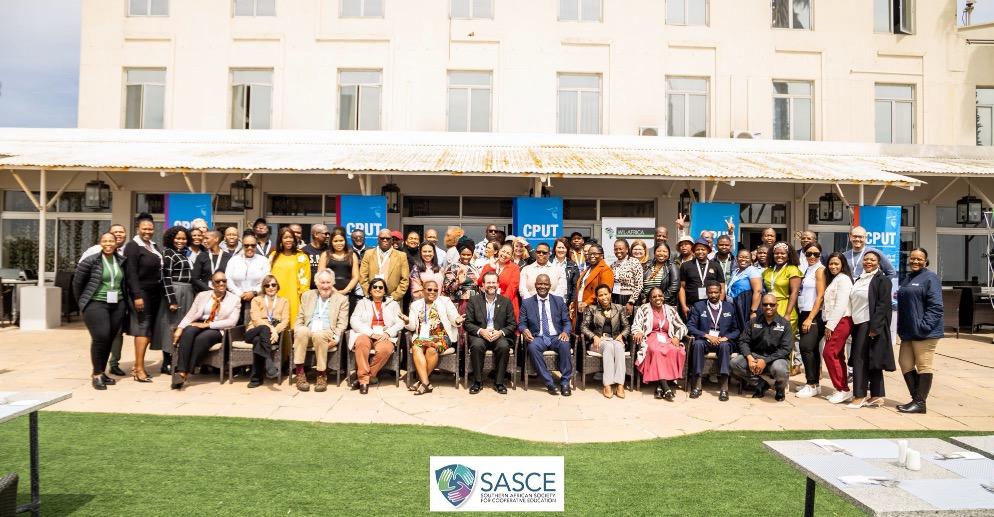

Mr Shoni Kangala Director: CPPD
The year 2024 marked another pivotal chapter in the evolution of the short-course environment at CPUT. Building on previous years of resilience and adaptation, the Centre for Professional and Personal Development (CPPD), together with the Short Course Offering Entities (SCOEs), embraced a future-focused agenda to enhance thirdstream income generation, strengthen quality assurance, and align with the One Smart CPUT Vision 2030.
This report highlights key milestones achieved during 2024, including deepening stakeholder engagement, advancing institutional quality standards, and promoting inclusive growth within the short-course environment. It also captures CPPD’s expanding role in supporting the academic project and catalysing AI-informed teaching and learning responses, ensuring a coherent and coordinated approach to the continued development of this vital academic and professional portfolio.
In alignment with its mandate to lead the performance and activities of the University’s short- course environment, the Centre for Professional and Personal Development (CPPD) convened a pivotal two-day Joint Strategic Planning Workshop in February 2024. This annual initiative brought together all Short Course Offering Entities (SCOEs), fostering alignment with the outcomes of the Annual Deans and Directors Strategic Planning Workshop and Vision 2030 of the One Smart CPUT.
Throughout the year, CPPD sustained its focus on enhancing institutional awareness and engagement in short-courses. The Short Course Workshop, hosted at the Cape Town Hotel School, catalysed broader internal stakeholder interest, particularly among units not traditionally involved in short-course delivery. This workshop laid the foundation for initiatives by non-faculty units, such as FUNDANI and CE&WIL, to introduce new shortcourse offerings. It also led to the preparation of eleven new short-course proposals by the end of 2024.
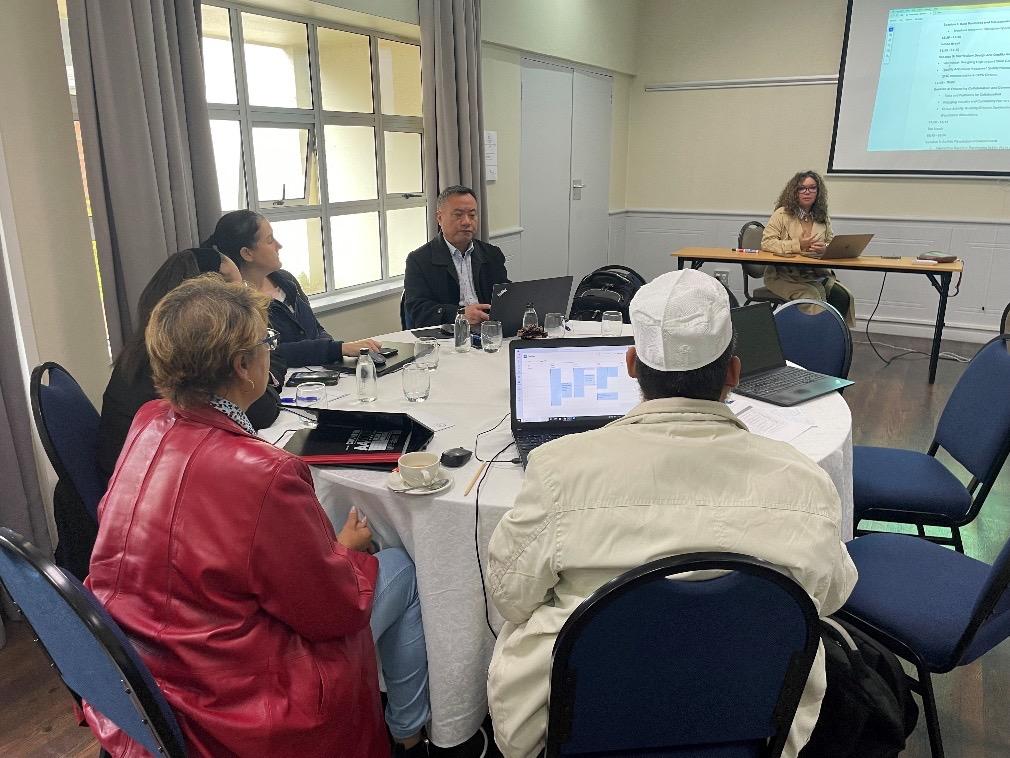
CPPD implemented the review of the policy on the Implementation and Certification of Trades and Occupational Qualifications (formerly the QCTO Policy). The policy enables good governance of qualifications outside the Higher Education Qualifications SubFramework (HEQSF). In parallel, CPPD continued its support for all University entities intending to introduce new short-course offerings, providing clear guidance and tailored presentations to ensure alignment with the Short Course Policy. These efforts supported improved policy literacy and compliance across the short-course environment.
As part of its commitment to quality assurance, CPPD collaborated with the Quality Management Directorate (QMD) to develop the Quality Management Practice Standards (QMPS) for the short-course environment. Through iterative development and review, the QMPS reached finalisation towards the end of 2024, positioning CPPD as one of the first support units within the University to formalise such a framework. The QMPS integrates critical elements, such as course design and planning, human resource considerations, and financial and infrastructure requirements. It marks a significant step in embedding a consistent quality culture across the University’s short-course offerings.
In 2024, CPPD made a meaningful contribution to supporting the academic project. A standout initiative was facilitating strategic planning for the Registrar’s Office, enhancing alignment between administrative processes and educational imperatives.
In partnership with the Learning and Development Department, CPPD delivered the Leadership Development and Coaching Programme, with two cohorts trained in 2024. This initiative fosters leadership capacity, reinforcing CPPD’s role in developing institutional human capital aligned with CPUT’s strategic objectives.
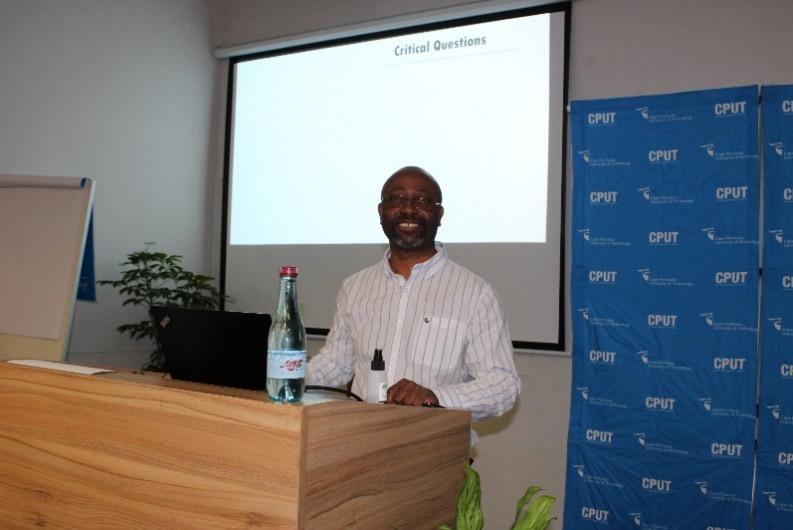
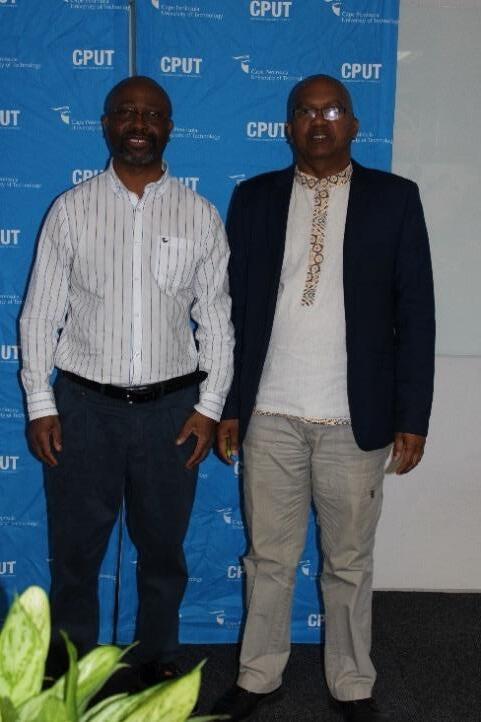
In 2024, CPPD actively pursued and supported strategic partnerships to extend CPUT’s reach and relevance in the evolving personal and professional development landscape. Engagements included Microsoft, MTN, CBS International Business School, the University of Luanda, Ghana Communication Technology University (GCTU), and North Carolina Agricultural and Technical State University (NCAT). These collaborations are geared toward innovation in short-course offerings and the expansion of international and inter-institutional networks, which are critical for sustaining third-stream income and ensuring responsiveness to regional and global educational demands.
CPPD actively supported the University’s risk governance framework through active engagement in Combined Assurance Reporting processes. As Combined Assurance Champion of the DVC: Learning and Teaching portfolio, the CPPD Directors collaborated closely with the Enterprise Risk Management (ERM) Office, Faculties, and units reporting to the DVC: Learning and Teaching portfolio, contributing to a more integrated risk management approach. Key efforts included reviewing CPPD’s Risk Register and clarifying risk-related matters with ERM. The CPPD Director also facilitated cross-unit collaboration through strategic engagements with Fundani, CIET, and CE&WIL to encourage a unified approach to combined assurance reporting.
Looking ahead, CPPD is committed to advancing the transformative potential of Artificial Intelligence (AI) within learning and teaching. CPPD recognises AI as a catalyst for inclusive and innovative educational reform. Thus, the Centre aims to equip facilitators, instructors, and support staff with the competencies required to engage constructively with AI technologies. It will enable educators, administrators, and practitioners to harness AI for pedagogical innovation and student-centred learning. In doing so, CPPD aims to shape a digitally literate staff, embedding AI meaningfully into learning and teaching practice.
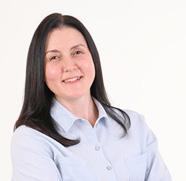
Leanie Brits Head of Department Student Counselling (Counselling Psychologist)
The Department of Student Counselling follows a holistic wellness model which focuses on eight dimensions of wellness, thereby promoting holistic student well-being. The dimensions of wellness are intellectual, occupational, environmental, spiritual, financial, emotional, social-cultural, and physical wellness. Student Counselling provides a range of comprehensive services to CPUT students and the CPUT community, to support and promote healthy student development, adjustment, mental health, and wellness in both academic and personal domains.
The Department’s holistic wellness model is implemented through development, prevention, and treatment modalities, which include psychoeducation, skills development, and psychological interventions. The Department’s three-legged approach aims to improve personal well-being, whilst focusing on skills development to empower student resilience and coping abilities, as well as promoting the student’s problemsolving capability. The development lens ultimately aims to prevent re-occurrence and foster skills to promote personal and academic success. Individual interventions, such as counselling and therapy, focus strongly on all three modalities, whereas group interventions, such as support groups, classroom-based workshops and campaigns, focus strongly on development and prevention. The Department registered a total of 12568 contacts in 2024 across all wellness domains.
Student Counselling Programme Students Researched
Individual Counselling and Therapy
Psychosocial Support Groups
Wellness Programme
Welfare Programme and Residence Peer Helpers
Holistic Wellness
Career Development Programme
• Career Counselling and Assessments
• Work-Integrated Learning
• Final Year Experience Programme
Learner Development and Support
• Leadership Development Training
• Academic Enhancement Questionnaire
• First-Year Experience/ Orientation
Holistic Wellness
Social wellness
Emotional wellness
Financial wellness
Holistic wellness, and in particular:
Occupational wellness
Emotional wellness
Social wellness
Intellectual wellness
Financial wellness
Occupational wellness
Emotional wellness
Social wellness
Intellectual wellness
Holistic student wellness is at the core of the Department Student Counselling’s approach to student support and student success. All programmes are geared towards student well-being, healthy development and success. The various programmes and different types of engagement strategies with students in 2024 made it possible to focus on holistic student wellness.
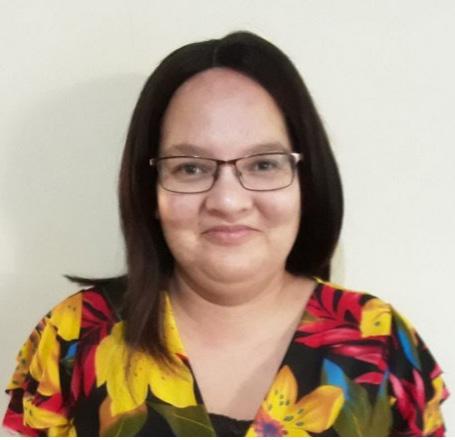
Dr Amanda Ismail Disability Unit
Background of the Unit:
The DU is a multi-functional support service point of the University that strives to implement an ACCESSIBLE and WELCOMING learning environment for students with disabilities.
Vision
Building a supportive community that values diversity, promotes disability awareness and strives to provide support services in order to enhance the quality of life of students with disabilities.
Mission
To empower and support students with disabilities to reach their full potential in an inclusive academic environment.
Autonomy: Students with disabilities can make their own decisions. Respect and dignity: All lives matter. Inclusivity and diversity: All students deserve a place at the table.
Collaboration and partnership: We cannot work in isolation.
Innovation and adaptability. We embrace technology while promoting universal access.
Accessibility and equity: Advocating for barrier free designs, resources and facilities.
Compassion and empathy: We care.
Resiliency theory
Strength-based theory
Human rights theory
Systems theory
The social model of disability
Disability justice theory
United Nations Conventions on the rights of persons with disabilities (UNCRPD).
World Health Organization (WHO) classification of functioning disability and health (ICF).
Strategic Policy Framework on Disability for the post school education and training system.
Philosophies:
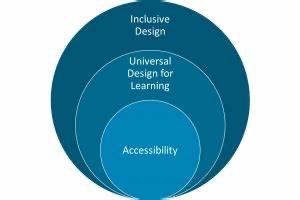
Advanced integrated planning and delivery of services.
High performance culture.
Creating a student centred environment that is vibrant, enabling and well resourced.
Being a catalyst for social transformation.
High quality efficient and energised service delivery.
Effective and relevant partnerships.
Effective human resource development and recruitment.
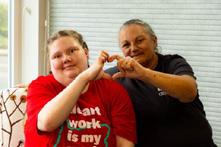
Direct support
• Applications and recommendation for reasonable accommodation and exam concessions for students with disabilities.
• Assessment of the needs of students with disabilities across campuses.
• Academic assistance in class and during assessments.
• Operation of a DU lab and resource centre.

Partnerships and collaborations
• Referrals of students with disabilities to additional resources and services, where necessary.
• Lobbying and networking.
• Sharing of best practices.
• Outreach and marketing.

Research and advocacy
• Inputs in policy development.
• Advocacy initiatives.
• Diversity/Inclusivity peer support program.
• AI-powered tools enhance accessibility for students with disabilities, such as voicecontrolled devices, text-to-speech software, and accessible websites.
• AI helps to tailor support to individual needs, such as personalised care plans, medication reminders, and behavioural interventions.
• AI-powered communication tools, such as augmentative and alternative communication (AAC) devices, facilitate interaction between students with disabilities and others.
• AI-driven assistive technologies, such as robotic assistants and smart home devices, promote independence and autonomy for individuals with disabilities.
• AI is particularly useful to analyse data to identify trends, patterns, and areas for improvement, optimising support services.
• AI-powered tools may not always be accessible or usable for individuals with disabilities, highlighting the need for inclusive design and testing.
• Over-reliance on AI-powered tools can create dependence and diminish human interaction, potentially exacerbating social isolation.
• Staff may require training and support to integrate AI-powered tools into their work effectively, ensuring seamless adoption and optimal benefits.
Challenges
Staff capacity, 6 Staff members serving over 500 students (Part-time & Full-time)
Requires software and equipment that is very expensive
Several resources, facilities and services that are not universally accessible and inclusive
Resolution
• Request staff from other DSA departments to assist, especially during exam periods.
• Flexi work time for staff who assist part-time students
Collaboration with other departments
Partner and collaborate with CPUT’s advancement department
Advocacy work with relevant stakeholders
Conclusion
The DU experienced a very productive year during 2024. The unit demonstrated its commitment to CPUT and took significant steps to achieve its strategic goals.
www.facebook.com/cput.ac.za